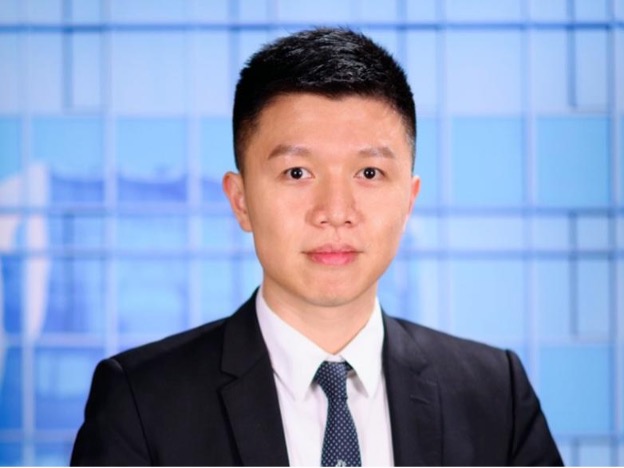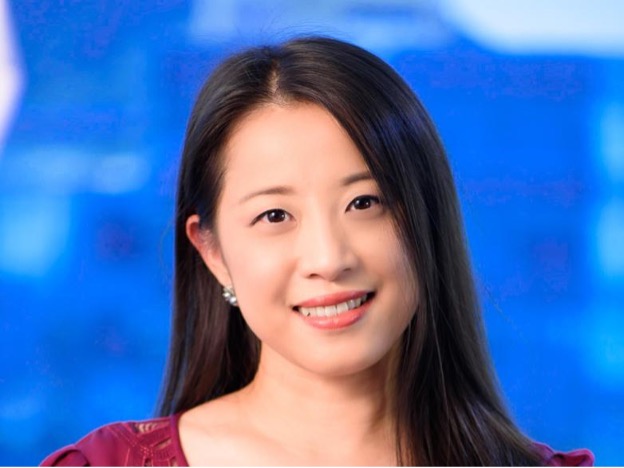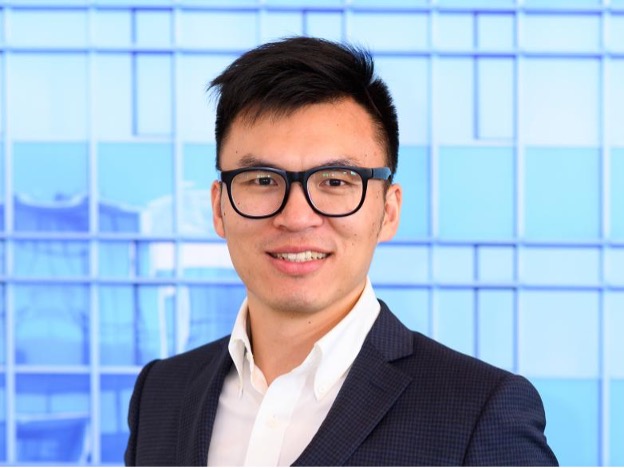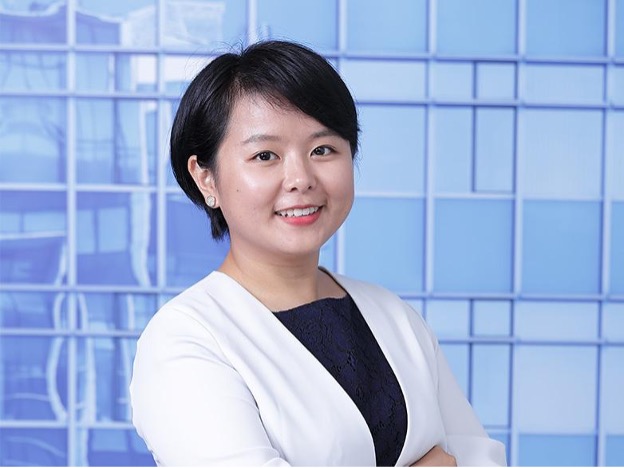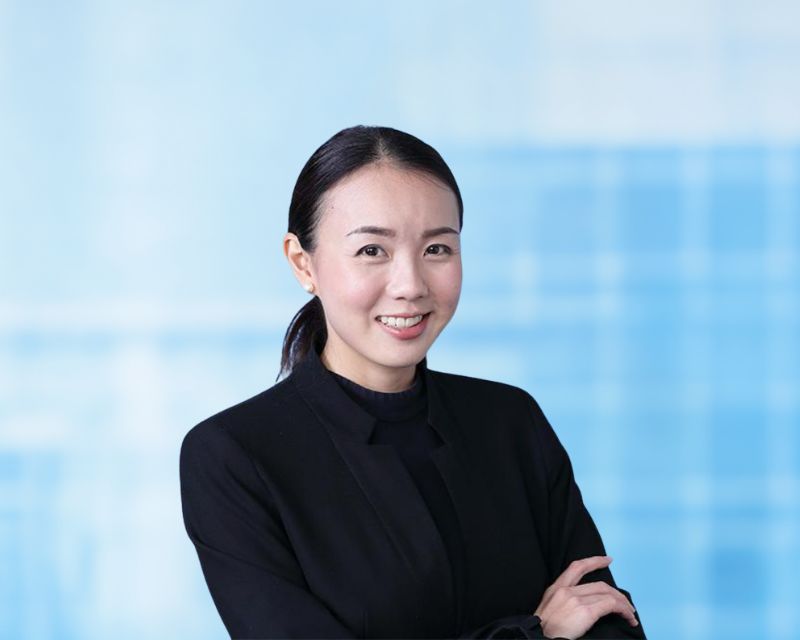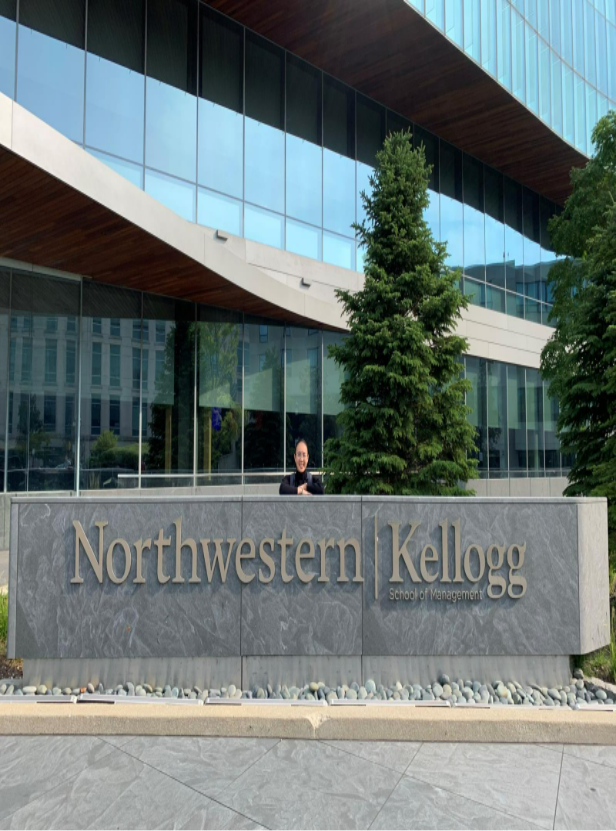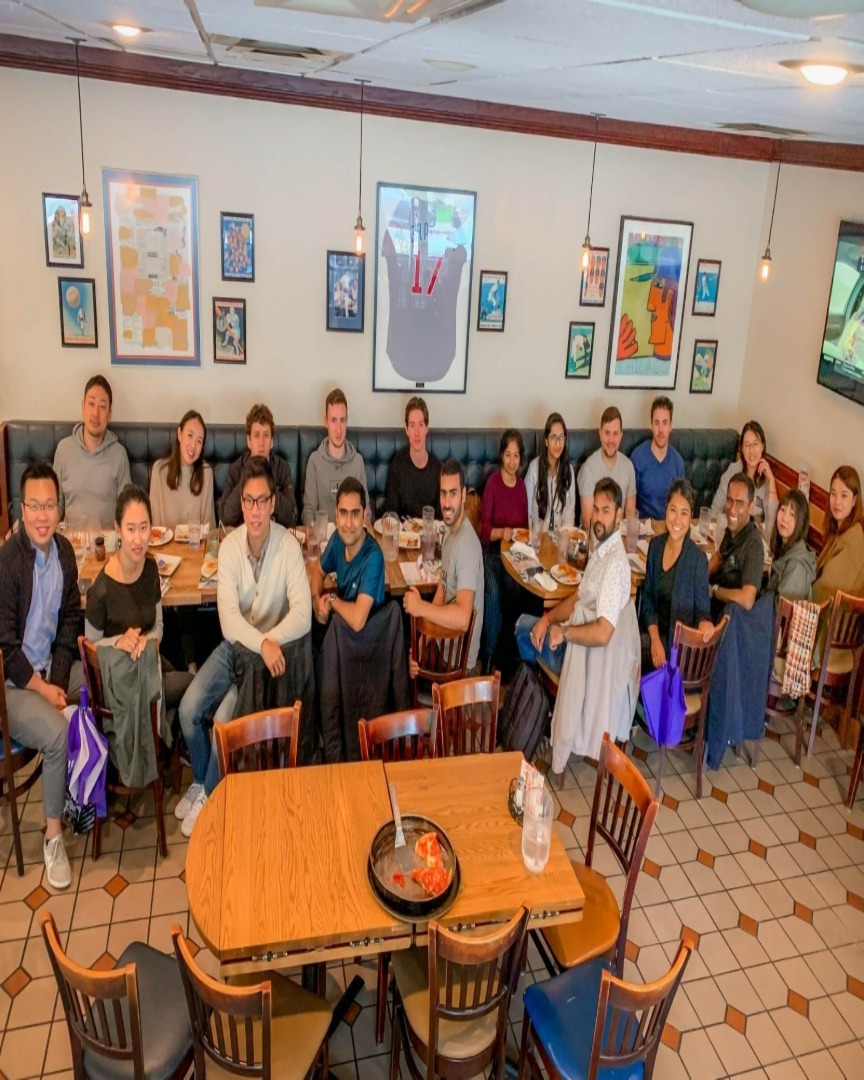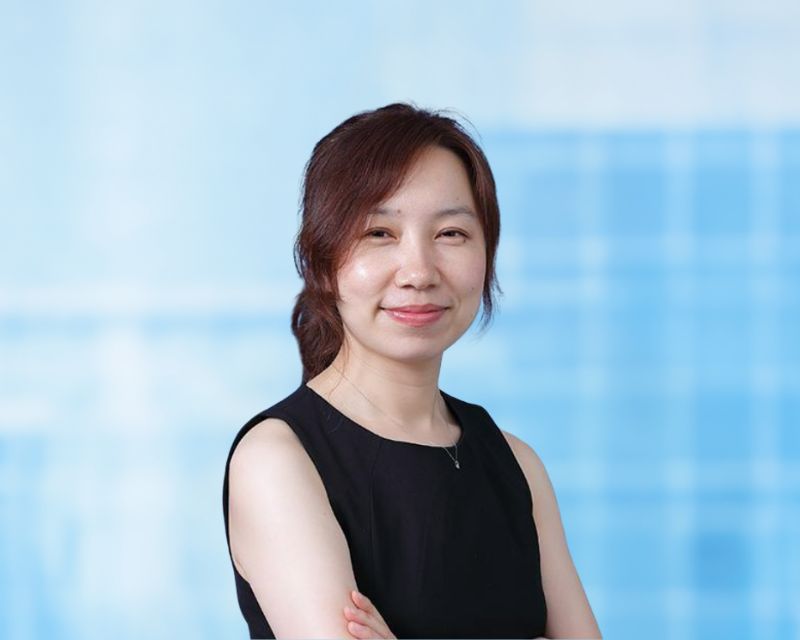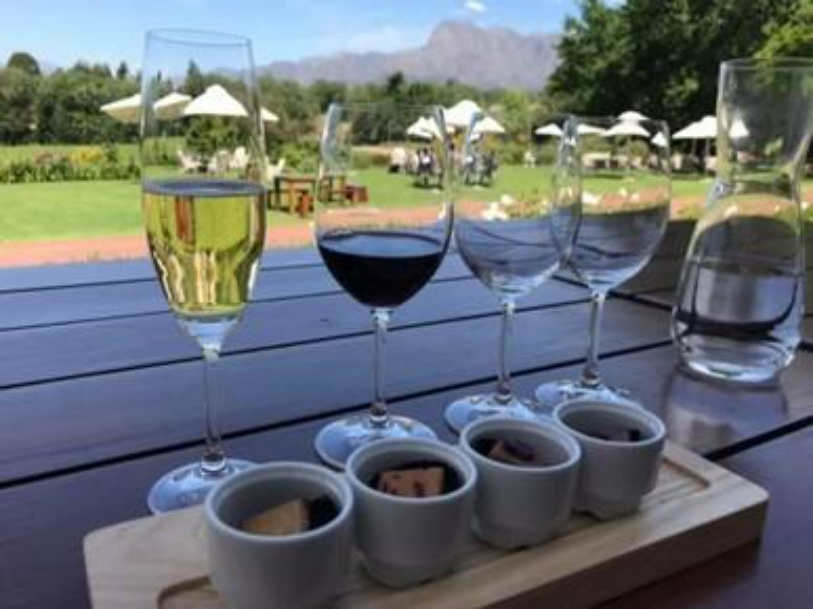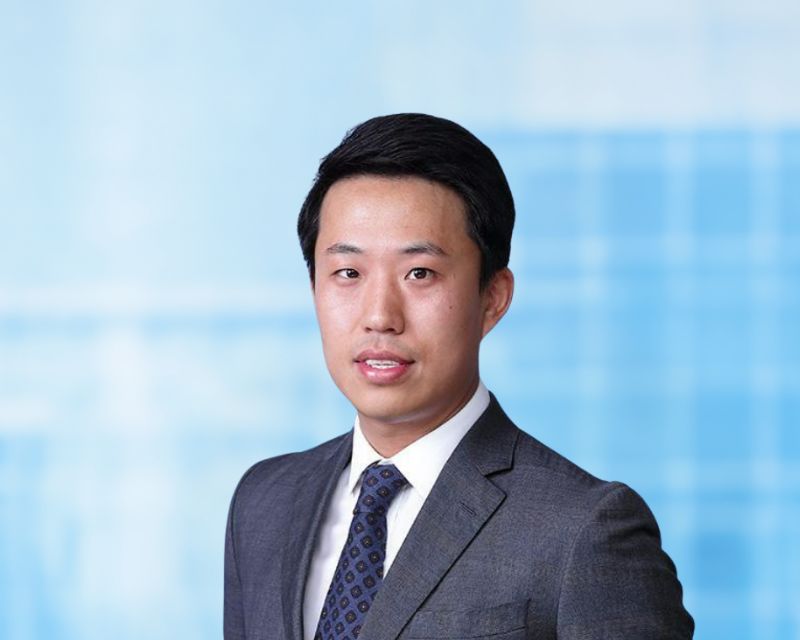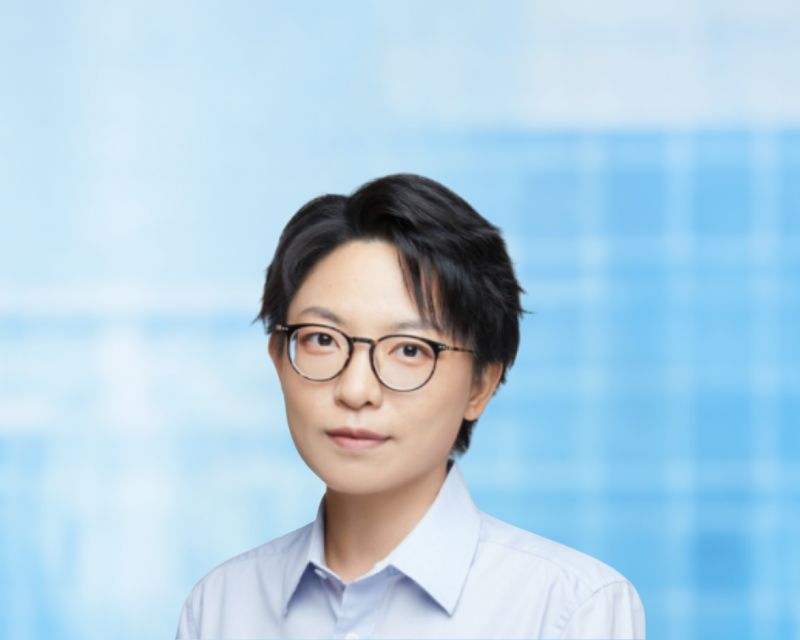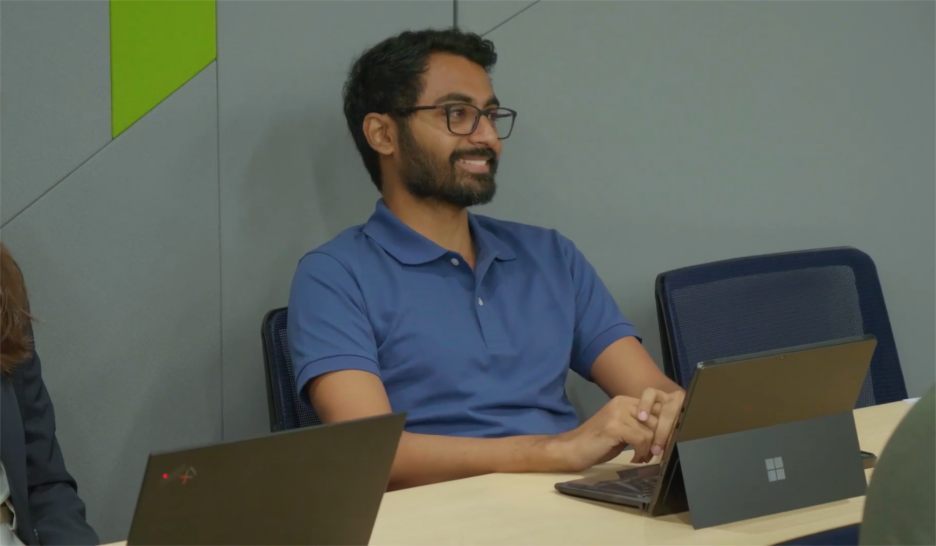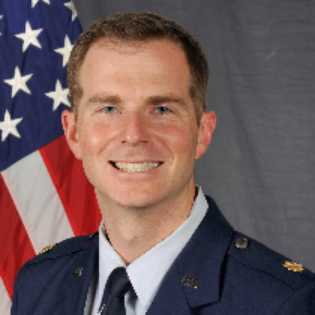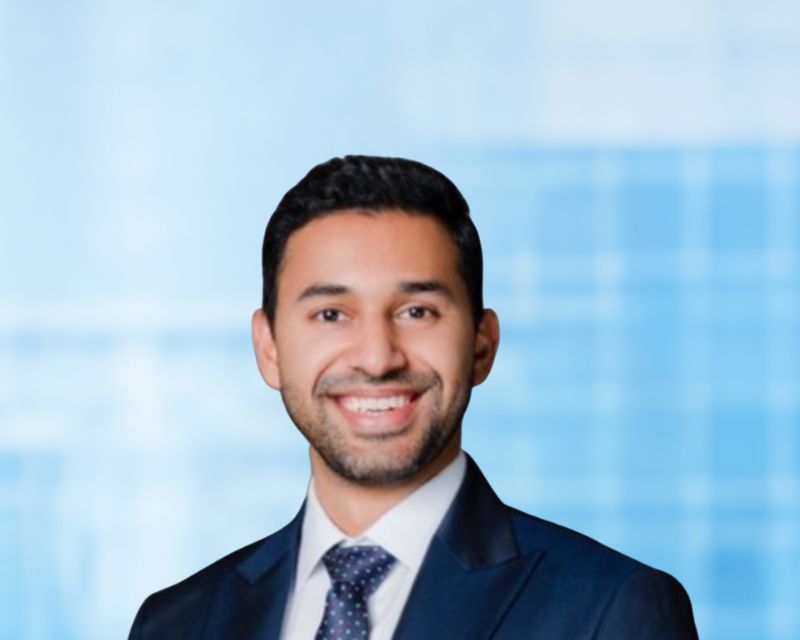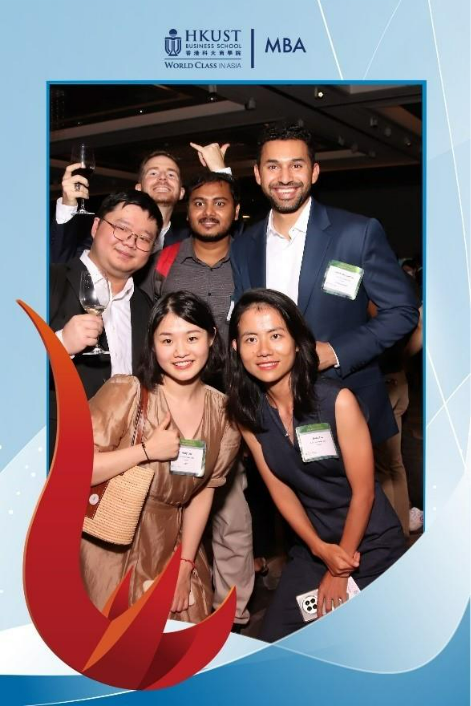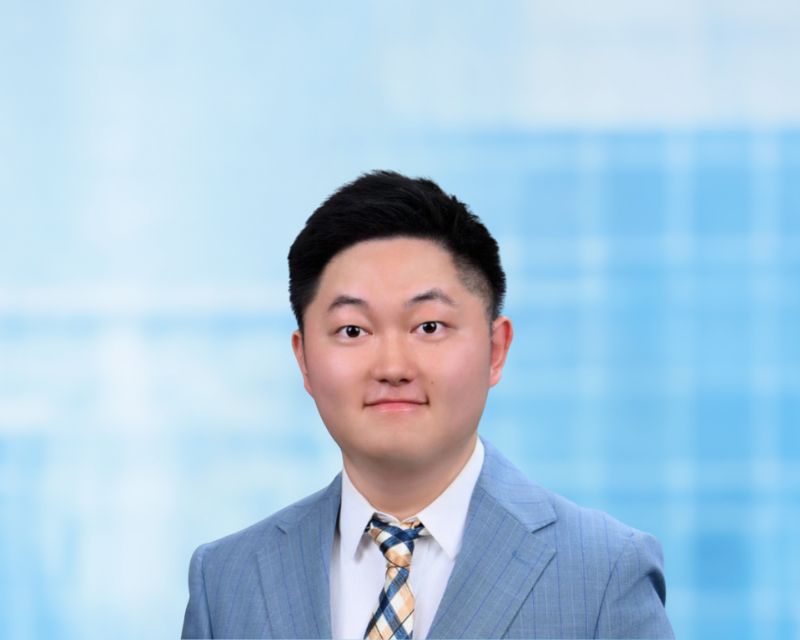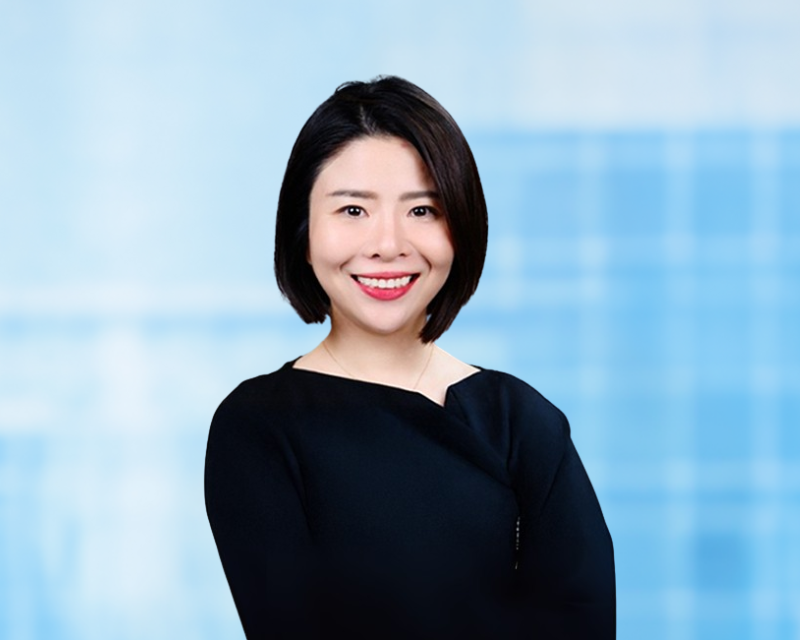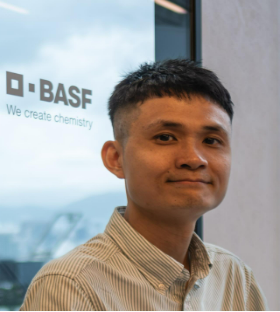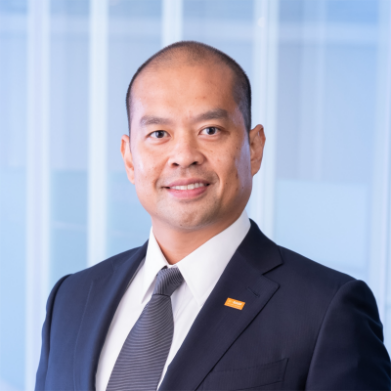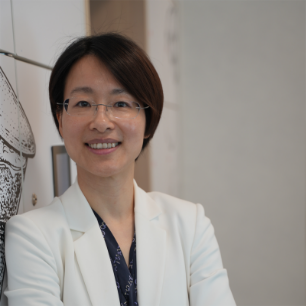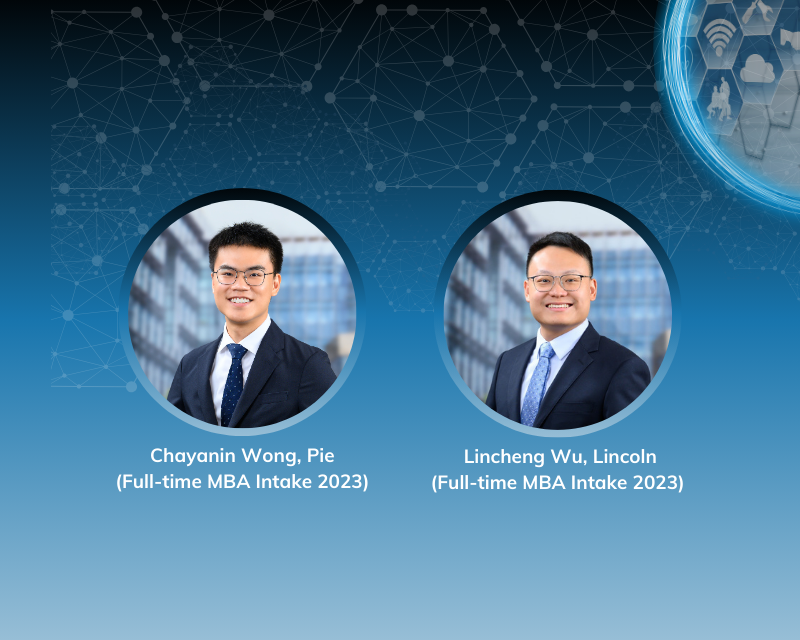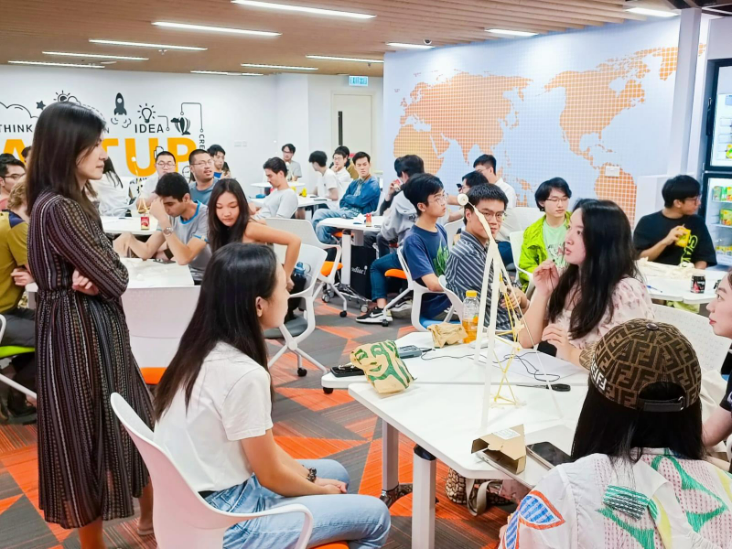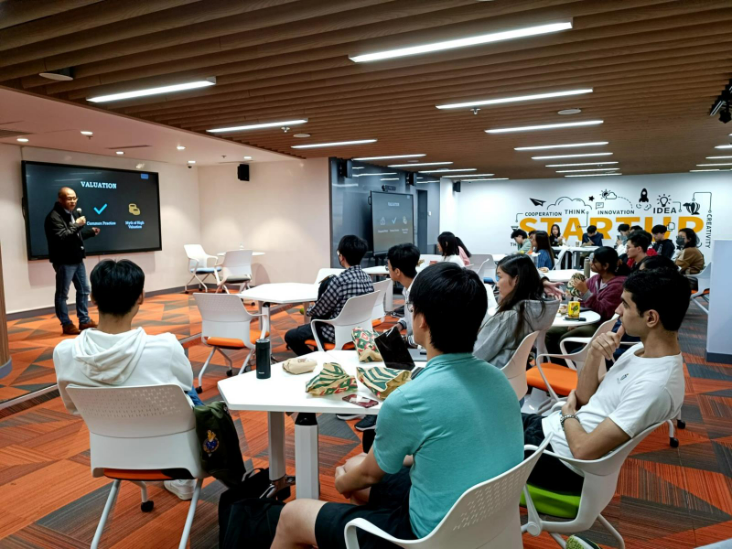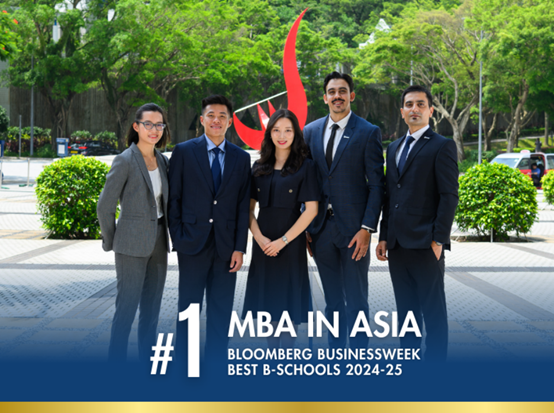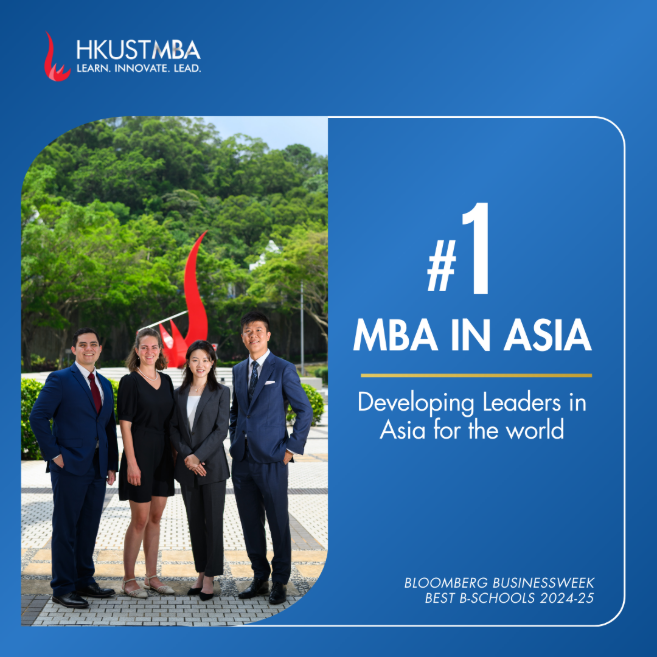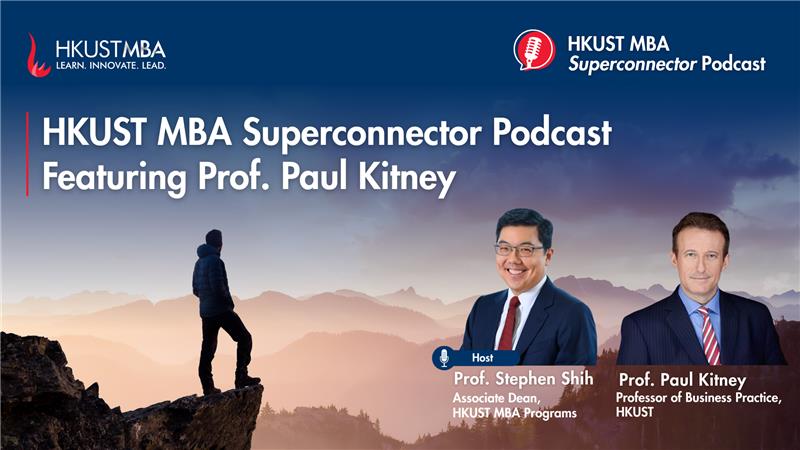
“For the first time in my life, it’s not just a career—it’s a vocation. I’m not chasing returns anymore; I’m investing in the next generation.”
After exploring the future of Fed independence, Prof. Stephen Shih sits down with Prof. Paul Kitney for a candid and wide-ranging conversation in the HKUST MBA Superconnector Podcast. Together, they delve into Prof. Kitney’s transition from a long and successful career in global finance to a new chapter in academia, uncovering the motivations and insights behind his shift in purpose.
With over three decades in finance, Prof. Kitney held senior roles at Morgan Stanley, BlackRock, and also ran his own hedge fund— his experience shaped not just his teaching, but his outlook on life.
Prof. Kitney opens up about how mountaineering shaped his thinking on risk management, how emotions can derail even the smartest investors, and why teaching future leaders is now the most fulfilling chapter of his career. He also shares his current reading list on health, performance, and digital wellness —topics that matter just as much outside the classroom as they do inside.
Listen now on Apple Podcasts, Spotify
How a Finance Strategist Survi… - HKUST MBA Superconnector - Apple Podcasts
How a Finance Strategist Survives the Summit | HKUST MBA Superconnector Podcast with Prof. Paul Kitney Part B - HKUST MBA Superconnector | Podcast on Spotify
Don’t miss his upcoming Masterclass this December, stay tuned for our updates.

“For the first time in my life, it’s not just a career—it’s a vocation. I’m not chasing returns anymore; I’m investing in the next generation.”
After exploring the future of Fed independence, Prof. Stephen Shih sits down with Prof. Paul Kitney for a candid and wide-ranging conversation in the HKUST MBA Superconnector Podcast. Together, they delve into Prof. Kitney’s transition from a long and successful career in global finance to a new chapter in academia, uncovering the motivations and insights behind his shift in purpose.
With over three decades in finance, Prof. Kitney held senior roles at Morgan Stanley, BlackRock, and also ran his own hedge fund— his experience shaped not just his teaching, but his outlook on life.
Prof. Kitney opens up about how mountaineering shaped his thinking on risk management, how emotions can derail even the smartest investors, and why teaching future leaders is now the most fulfilling chapter of his career. He also shares his current reading list on health, performance, and digital wellness —topics that matter just as much outside the classroom as they do inside.
Listen now on Apple Podcasts, Spotify
How a Finance Strategist Survi… - HKUST MBA Superconnector - Apple Podcasts
How a Finance Strategist Survives the Summit | HKUST MBA Superconnector Podcast with Prof. Paul Kitney Part B - HKUST MBA Superconnector | Podcast on Spotify
Don’t miss his upcoming Masterclass this December, stay tuned for our updates.
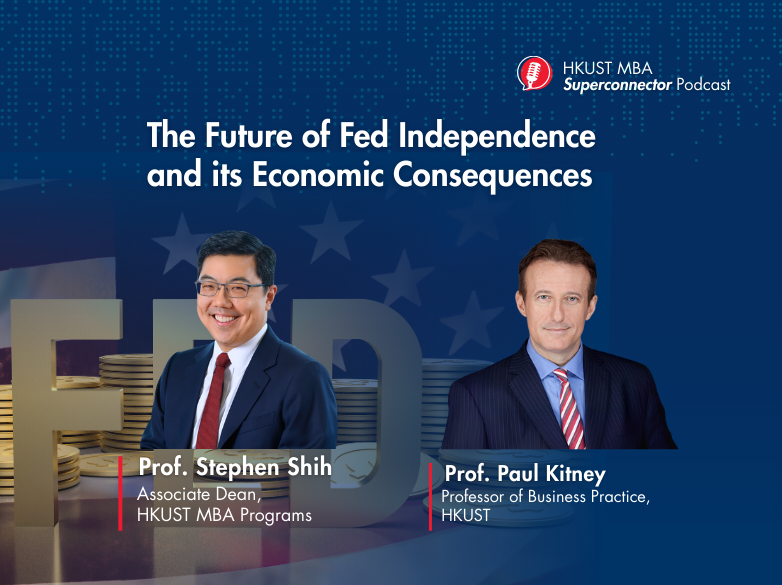
In this timely episode of HKUST Superconnector Podcast, Prof. Paul Kitney unpacks one of the most critical—and often misunderstood—pillars of global economic stability: the independence of the U.S. Federal Reserve. Whether you're an investor, policymaker, or simply a global citizen, understanding how the Fed sets monetary policy and supervises the banking system is essential.
Kitney explains the Fed’s dual mandate—price stability and full employment—and the multifaceted consequences of political interference on price levels, currency exchange rates, and sovereign risk. Drawing on global examples from Turkey to Argentina, he illustrates the lessons of history related to central bank independence and economic outcomes.
From the Fisher Effect to the value of gold, this episode offers rich insights for anyone navigating today’s uncertain financial landscape.
Tune in now to hear why Fed credibility isn’t just a United States issue—it’s a global one.
Listen On Apple Podcast
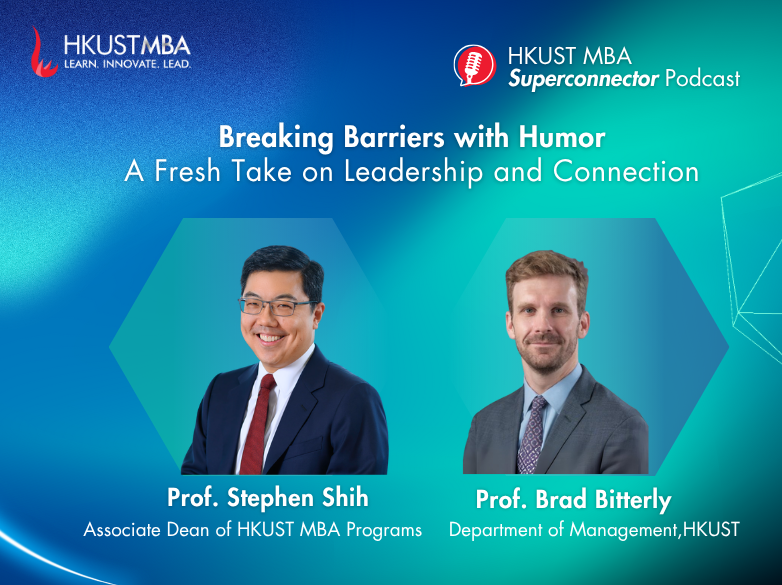
In our latest episode of the HKUST MBA Superconnector Podcast hosted by Prof. Stephen Shih (Associate Dean of HKUST MBA Programs), we had the opportunity to speak with Prof. Brad Bitterly. Prof. Bitterly’s research is at the intersection of psychology, management, and artificial intelligence. He received his PhD at Wharton and also worked at the global hedge fund, Bridgewater Associates.
In a corporate landscape often dominated by data and algorithms, Prof. Brad Bitterly points out the timeless value of humor—not as a distraction, but as a strategic asset in leadership. When used intelligently, self-aware, and at the right moment, humor creates positive, open environments where teams engage deeply and barriers break down. It boosts leaders’ credibility and helps tackle sensitive issues smoothly, turning challenges into opportunities rather than defensiveness.
As the conversation unfolds, Prof. Bitterly reflects on the rise of AI in management. While machines may be efficient, they lack the emotional credibility that humor brings to human interactions. In a future shaped by automation, he argues, the ability to connect through laughter will be more essential than ever.
Tune in to learn how infusing humor into your leadership styles can boost effectiveness and contribute to a healthier, more connected workplace culture.
For those interested in exploring these themes further, check out these two articles by Prof. Bitterly.
- Sarcasm, Self-Deprecation, and Inside Jokes: A User’s Guide to Humor at Work from Harvard Business Review
- How Perceived Lack of Benevolence Harms Trust of Artificial Intelligence Management (This article provides empirical evidence on the psychological barriers to trusting AI in managerial roles—an essential read for anyone navigating the future of work.)
Apple Podcasts
Podcast on Spotify
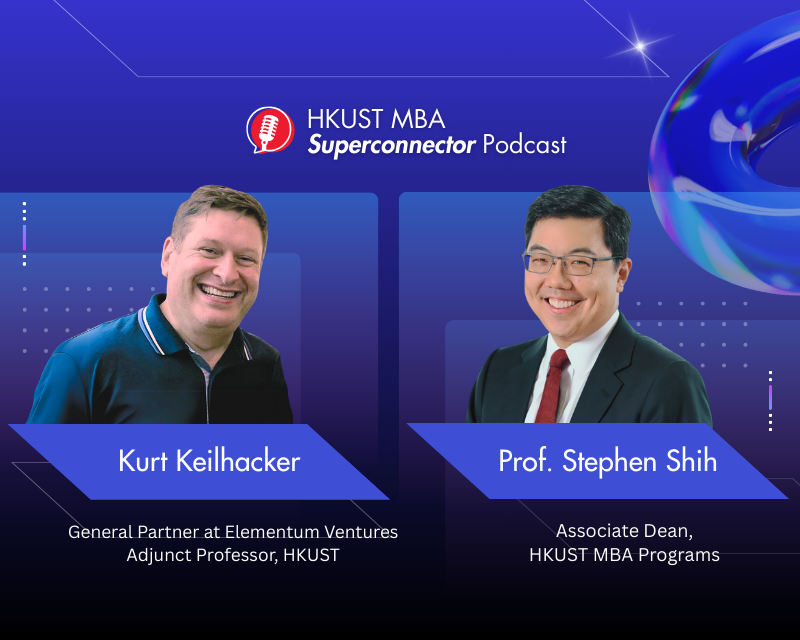
Venture into the future of business and leadership with the HKUST MBA Super Connector podcast. In this episode, our host Prof. Stephen Shih, Associate Dean of HKUST MBA Programs, engages in a dynamic discussion with Kurt Keilhacker, General Partner at Elementum Ventures. Together, they explore how artificial intelligence (AI) is reshaping the corporate landscape.
Kurt, who recently taught the innovative course “Strategic AI: Transforming Business and Redefining Leadership” at HKUST, addresses how AI evolves beyond a mere tool to become integral to business operations. Through the conversation, listeners will hear how companies like DeepSeek challenge traditional notions with innovative structures that rival industry giants.
Throughout the episode, Kurt invites listeners to embrace an experimental approach to AI, emphasizing diverse solutions and critical problem-solving skills. Prof. Shih underscores the importance of integrating quantitative expertise with interpersonal skills, essential for navigating the complexities of today's unpredictable business environment.
This episode is a gateway to understanding the future of business. If you're an aspiring leader, this episode will provide insights into preparing for the future of work and a taste of what the HKUST MBA program offers.
Tune in now to discover why mastering AI is crucial for redefining leadership and driving success in your organization. Explore the full episode and more at -
Apple Podcasts
Podcast on Spotify
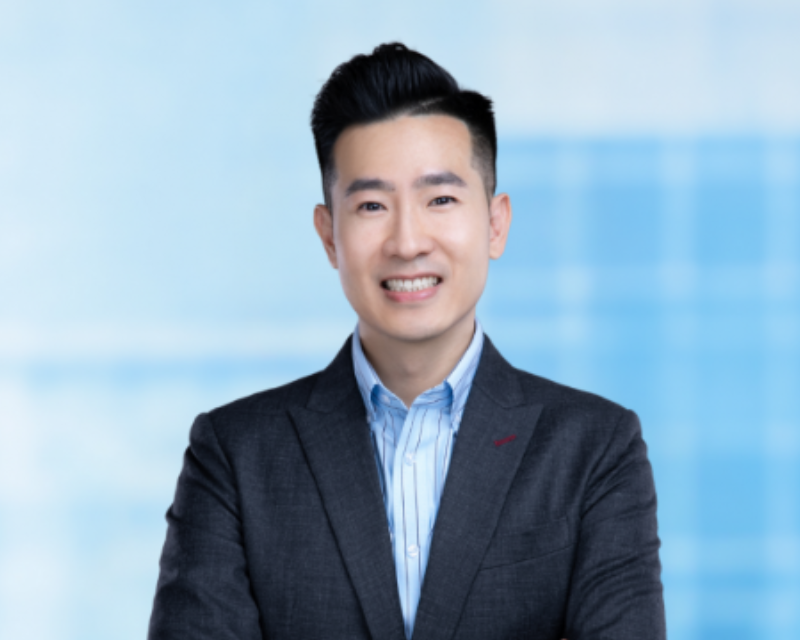
Percy Kong, our student of the Digital MBA Intake 2023, has over 20 years of experience in global supply chain and operations management across multinational corporations, including Philips, Avnet, and Medtronic. He currently holds the position of Senior Director of Global Supply Chain Management at Micro Center.
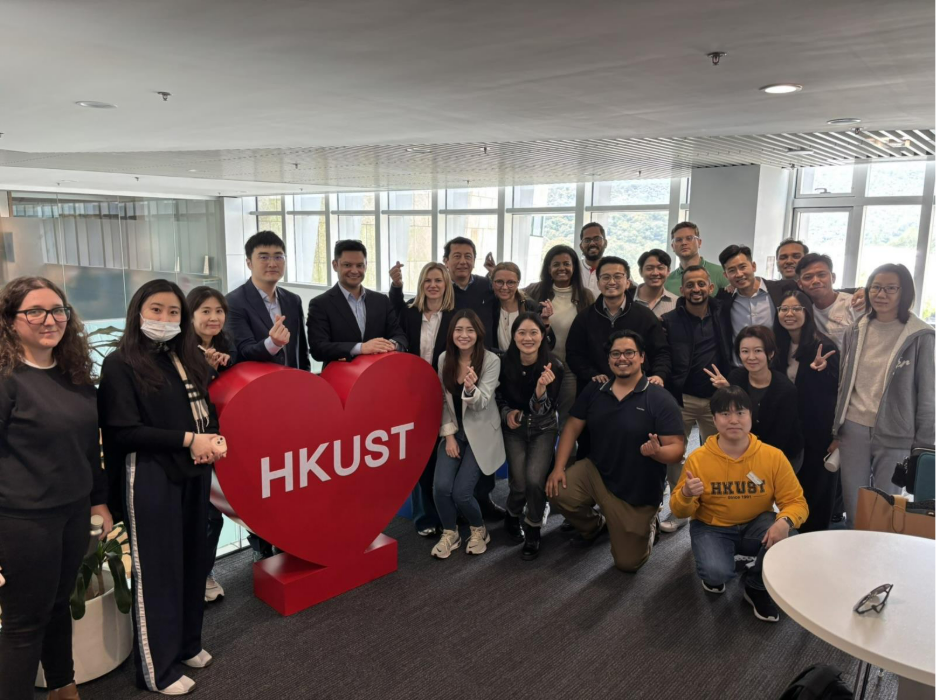
THE REASON OF CHOOSING THE HKUST DIGITAL MBA
Percy, a frequent traveller between the United States and Asia, is driven to enhance his expertise in AI and entrepreneurship. In his pursuit of new knowledge and skillsets, particularly in AI and technology, Percy chose to enroll in the DiMBA program to enhance his leadership capabilities. Reflecting on his decision, Percy notes, "The self-paced online learning allows me to manage my study time effectively. It enables me to continue learning while working between the United States and Hong Kong."
MEMORABLE EXPERIENCES IN DIMBA JOURNEY
Throughout his DiMBA journey, Percy has had several memorable experiences. One notable example is his participation in Global Network for Advanced Management (GNAM) Network Week. "I have the opportunity to meet and connect with the exchange-in students from the USA, China, Canada, India, Mexico, and other Asian countries. Apart from the intensive workshops, we have visited Hong Kong Science Park and joined industry sharing, to learn how key players leverage resources strategically," he recalls, underscoring the importance of teamwork and diverse perspectives.
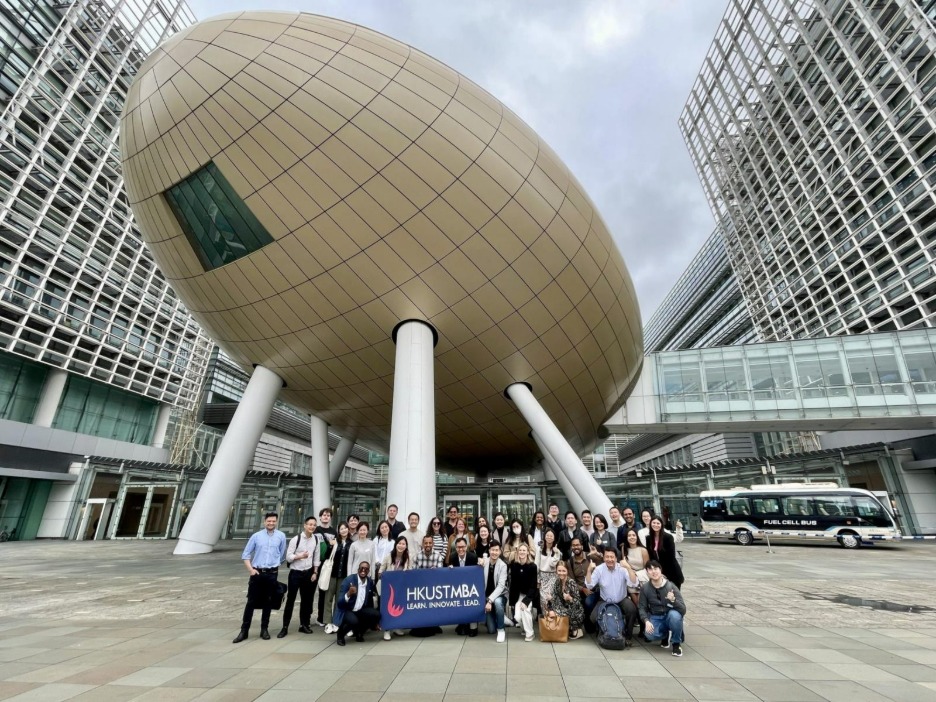
Another standout was a practical workshop in Enhancing Professional Skills (EPS) course. Percy reflects, "We worked on solving real-life business scenario, and the collaboration made it both challenging and rewarding." This activity emphasized the importance of teamwork and diverse perspectives like corporate finance, marketing, sales pitching, and business development.
ADVICE TO PROSPECTIVE STUDENTS
For those considering the HKUST Digital MBA, Percy advises, "Invest in your education and personal growth; enhance knowledge as for entrepreneurship, intrapreneurship, or senior management roles continuously; engage with world-class faculty and diverse classmates to expand your global network actively, and apply all of these in daily life."
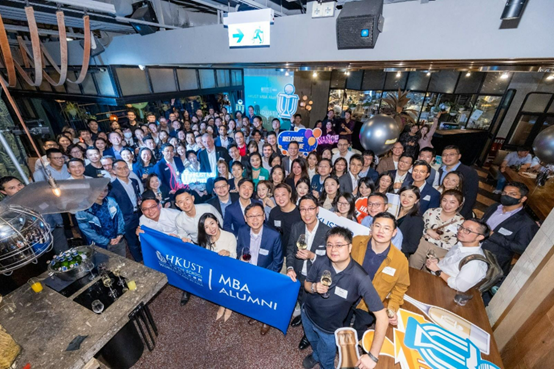
Application for HKUST Digital MBA Program Intake 2025 is NOW OPEN! Ready to take the next step in your career? Schedule a chat with our advisors to learn more about the DiMBA program.
1-ON-1 CONSULTATION

A WINNING MINDSET
Introducing Ivan Xuebo Wang, a standout full-time MBA student from the 2022 intake at HKUST. His extraordinary achievements throughout the program showcase how seizing opportunities can lead to a rewarding career. From triumphing in case competitions to engaging in rich global experiences, Ivan's journey is a powerful testament to the life-changing potential of the HKUST MBA. Through his relentless drive and passion, he embodies the spirit of transformation and success.
EXCELLING IN CASE COMPETITIONS
Reflecting on his first year, Ivan highlights his achievements in various case competitions. "One of my key accomplishments during Year 1 is my success in these competitions. My teammates and I won nearly every case competition we entered, and we were honored to represent UST at the Roland Berger Global MBA Case Competition in Barcelona," he shares. These experiences not only sharpened Ivan's case-cracking and presentation skills but also allowed him to expand his global network, forging lasting connections with MBA peers from around the world.
DIVERSE INTERNSHIP EXPERIENCES
The summer of 2023 was a significant time for Ivan, as he took on multiple internships that enriched his business acumen. "I've managed to take internship roles as Corporate Strategy and Sustainability Intern at Schneider Electric, Market Strategy Intern at Ageas Group, and also get involved in one of the new business projects at Jebesen Group during the summer of 2023," he explains. These internships provided him with valuable exposure to real-world corporate projects, diversifying his skillset further.
A GLOBAL LEARNING EXPERIENCE
During his second year, Ivan embraced an international perspective by joining the exchange program at the Kellogg School of Management, Northwestern University. "I felt blessed to have the opportunity to be an exchanger to one of the top business schools—Kellogg School of Management, Northwestern University during my second year," he says. "I've experienced diversified culture and a steep learning curve. The marketing, finance, strategy classes have broadened my understanding of the business world with global vision. I cherish the inclusive and interactive learning experiences and many amazing people I've met there."
TRANSITIONING TO CONSULTING
Upon graduation, Ivan achieved his career goal by joining Mercer Hong Kong as an Associate Director. "Upon graduation, I'm now taking the role of Associate Director at Mercer Hong Kong—one of the leading consulting firms world-wide," he shares. "The HKUST MBA experience definitely contributed a lot to my career switch. I changed location to Hong Kong—an amazing city where the east met the west, and deepened my root in consulting career."
VALUING THE INVESTMENT
Ivan reflects on his journey with heartfelt appreciation for the program: "I view my MBA as one of the most significant investments of my life, and HKUST has provided me with an incredible return on investment that I could have never imagined."
Individual Consultation with MBA Advisor
Download Brochure | HKUST MBA | Learn. Innovate. Lead.
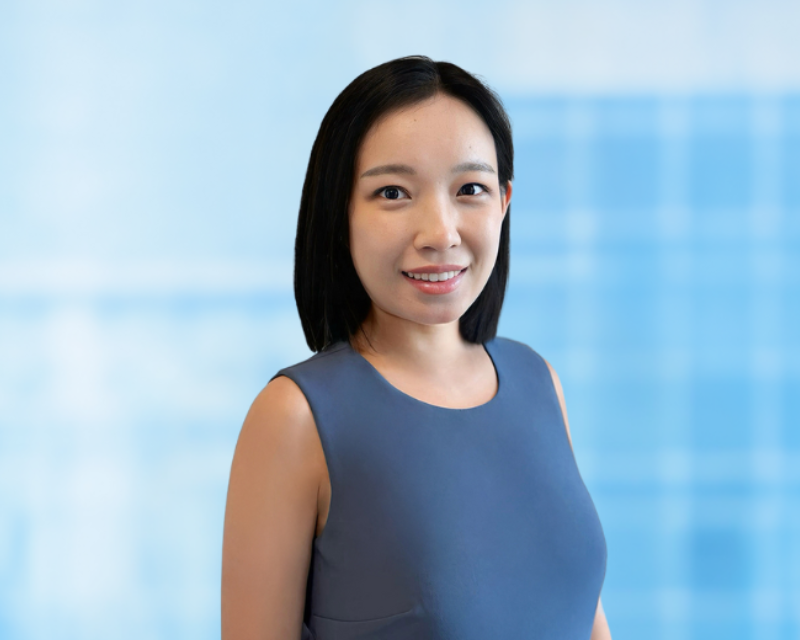
In today's dynamic business world, ambitious professionals are constantly seeking new ways to elevate their careers. To stay ahead of the curve and unlock new opportunities, investing in continuous learning and professional development is essential. Cherry Chen, currently Manager, Investor Engagement at HKSTP and a graduate of the HKUST MBA program, has adopted this approach by taking up her Part-time (Weekly) MBA study at HKUST.
A Passion for Learning and Growth
Coming from a background in investor relations and communications, Cherry recognized the need for a broader business perspective to elevate her career after having built her expertise in the profession for several years.
“In order to advance in my career, I realized the need to cultivate a macro-overview, enhance my vision horizontally, and develop strategic thinking. Pursuing an MBA provided an opportunity for self-reflection and exploration, and I wanted to explore new chances and possibilities that align with my strengths and interests,” said Cherry.
Why HKUST?
As Cherry was seeking an MBA that would open doors to diverse career opportunities, she came across HKUST’s strong regional reputation in its extensive range of internation exposure, and highly flexible program and curriculum design.
“Despite being a part-time student, I was thrilled to discover that HKUST offers various international programs such as the GNAM Small Network Online Course program, GNAM Global Network Week, and Exchange program, allowing students like me to tailor our experience to our specific situations and broaden our global perspectives. The Weekly study provided the perfect balance between academic rigor and personal flexibility, and students from different fields could find courses and schedules that suited their needs. Professor Chris Doran's Management Consulting was my favourite course! It gave me a professional consultant’s perspective with analytical mindset and problem-solving skills, which is going to benefit me for a lifetime,” said Cherry.
A Day in Life Juggling Multiple Roles: Working Professional, MBA student, and Family
We asked Cherry, how did she prioritize her different commitments, both as a working mum and part-time student? She recalled her once-in-a-life-time study experience during the pandemic, “This two-year journey gave me profound sense of fulfilment. This challenging period taught me valuable lessons in efficiency and time management. Along the unwavering support of my family, I also adjusted my routine to make the best use of my time – working on coursework with a takeaway lunch on a working day, then spending quality time with my child once I got home, and still, dedicating time to study or attend class after that. Undoubtedly, I needed to eliminate unnecessary distractions, but being able to accomplish everything I set out to do made this an incredibly enriching process that brought me substantial gains and life-long impact.”
A Unique “Family Exchange” Experience
Cherry leveraged HKUST MBA’s global network and went on for an exchange in Melbourne, Australia during her MBA study. Having sought great support from her then employer, Cherry was able to reassume a purely student role and even shared this unique experience with her family.
“My husband’s job allows him to work remotely, and my child was attending kindergarten at that time. They accompanied me to Melbourne, and we enrolled our child into a local kindergarten for a few months. Our family also took this opportunity to explore a new country and way of living. It was an incredibly enriching experience for all of us and shaped me into a more adaptable and culturally aware individual!” Cherry noted.
|
|
Cherry makes new and lasting connections with other students from diverse cultural background at her exchange school. |
|
|
A photo from Cherry’s last class with Melbourne Business School during her exchange. |
We ended the interview by asking Cherry, what is her advice to visionaries who also share the aspiration for continuous growth and professional development. As she reflected on her MBA journey, Cherry highlighted the transformation of her mindset and achievements she made, “The dynamic nature of the MBA program has reinforced my commitment to lifelong learning and adaptability. It has instilled in me a habit of continuous learning and a mindset of adaptability to different external environments. Studying such a rigorous program part-time is undeniably challenging, but it also enriches your life, adds another dimension to your daily routine, and allows you to accomplish things you may never have dreamed of. Remember, you are not alone on this continuously evolving journey. Along the way, you will meet like-minded individuals who share your aspirations and thoughts about personal and professional growth. The connections you make with them will become invaluable treasures in your life.”
Start your journey of change and growth today to prepare for future opportunities. Book an admissions consultation or join our admissions event to learn more about our Part-time MBA program!
Individual Consultation with MBA Advisor
Download Brochure | HKUST MBA | Learn. Innovate. Lead.

Born and raised in India, Prabhav Gupta (Digital MBA Intake 2024) has cultivated a truly global professional and academic journey. He pursued his bachelor's degree in at HKUST, located in one of the world's foremost financial hubs. His professional experiences span diverse industries, including travel retail, oil and gas chemicals, and the educational sector, with roles based across both Hong Kong and the United States. Now he is exploring entrepreneurial opportunities within the American jewellery industry.
Motivation Behind Pursuing an MBA
When asked about the inspiration behind his decision to pursue an MBA, Prabhav’s response underscored his intrinsic drive to enhance his skillset and take on greater career responsibilities. He recognizes that an MBA is instrumental in fostering a deeper understanding of business strategy and leadership, two critical components for professional growth and success in today’s business environment.
The HKUST Digital MBA program was a natural choice for Prabhav, given its flexibility and robust focus on digital transformation, an area he is deeply passionate about. The ability to continue working while acquiring advanced knowledge appealed to him greatly, as did the program’s emphasis on innovation and technology. For Prabhav, the prospect of learning alongside a global network of peers and faculty further solidified his decision, as he views collaboration and diversity as catalysts for meaningful personal and professional growth.
Goals and Aspirations for the MBA Journey
Prabhav’s MBA journey is driven by a clear vision: to master the intricacies of business strategy, leadership, and digital transformation. He believes these areas are vital for thriving in today’s fast-changing market landscape. Through the program’s hands-on projects and case studies, he aims to develop the skills necessary for data-driven decision-making and confident leadership in complex and dynamic environments.
Beyond academic pursuits, Prabhav is equally enthusiastic about connecting with a global network of professionals. For him, the exchange of ideas and exposure to diverse perspectives will serve as a profound source of inspiration and learning. Ultimately, he envisions leveraging the MBA experience to prepare for senior leadership roles and contribute to innovation and positive change within his organization.
The Value of Diversity in Learning
Prabhav eloquently emphasizes the importance of collaboration in a diverse cohort, describing it as an essential aspect of modern business success. The HKUST MBA program’s carefully curated student body includes accomplished professionals from various industries and cultural backgrounds, fostering an environment of rich dialogue and exchange.
Prabhav is confident that engaging with peers from distinct career paths and worldviews will broaden his understanding of global business challenges and solutions. He is particularly eager to experience fresh insights and collaborative thinking, as these interactions promise to enhance his creative problem-solving abilities and deepen his appreciation for varied approaches to leadership and innovation.
Anticipated Support and Resources from the HKUST MBA Program
Prabhav holds high expectations for the resources and support provided by the HKUST Digital MBA program. He is particularly drawn to the program’s unique integration of online learning with practical applications, which aligns with his goal of developing digital leadership skills. Furthermore, the program’s extensive network of faculty, alumni, and industry experts is a valuable asset for mentorship and professional growth.
He anticipates that personalized career services, including coaching and access to global networks, will play a pivotal role in refining his career trajectory. As someone with entrepreneurial ambitions, Prabhav sees these resources as instrumental in achieving his goals and contributing to the digital transformation of the business landscape.
Take your career to new heights with the HKUST Digital MBA. Embrace flexible online learning, connect with a vibrant global cohort, and seize unparalleled opportunities to network in person. Join us today!
Individual Consultation with MBA Advisor
Download Brochure | HKUST MBA | Learn. Innovate. Lead.
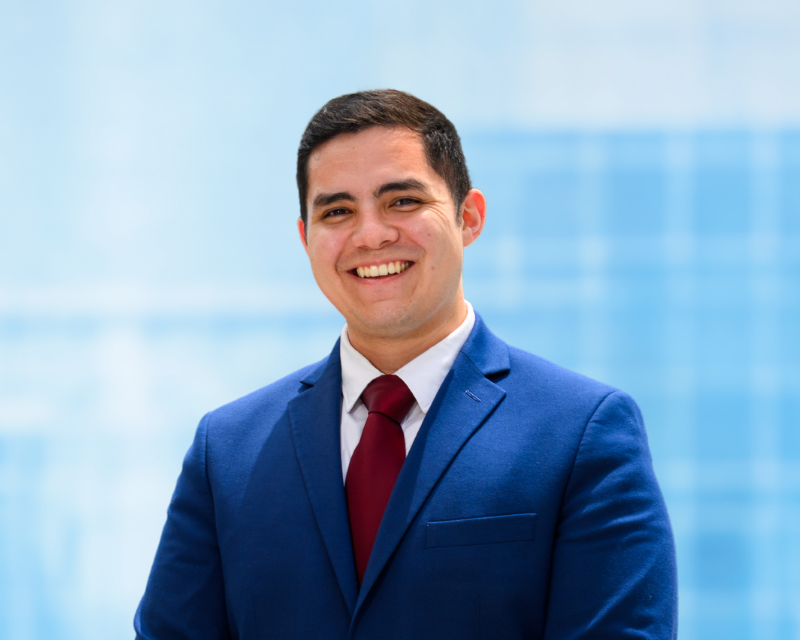
Meet Matthew Allred (Full-Time MBA Intake 2024), a former military officer pursuing his MBA at HKUST. His story shows how leadership experience from different backgrounds can build a strong foundation for business success.
BRINGING MILITARY EXPERIENCE TO BUSINESS
"The decision to pursue an MBA comes from wanting to apply my leadership skills in a new field," Matt explains. His military career taught him planning, team management, and problem-solving – skills valuable in business. "I saw how combining my operational experience with business education could open new opportunities," he adds. After years of military service developing his leadership abilities, he felt ready to step into the business world.
WHY HONG KONG, WHY HKUST
"Asia is where global business is growing fastest," Matt explains, "and HKUST puts you right at the center of this growth." The school's reputation and strong ties to Asian markets caught his attention. "What really stood out was how HKUST connects students directly with Hong Kong's business community, creating real opportunities for internships and networking."
EMBRACING DIVERSITY
The diversity of the program played a key role in his decision. "Learning alongside classmates from different countries and industries brings new perspectives to every discussion. This global outlook, combined with deep insights into Asian markets, provides a unique advantage for anyone aiming to work in international business."
LEVERAGING TRANSFERABLE SKILLS
His transition from military to business demonstrates the versatility of leadership experience. "Military service develops strategic thinking, decisive action, and team management capabilities," he notes. "I'm confident these skills will prove valuable in corporate settings. Moving from operational leadership to business leadership is an exciting evolution of my career."
LOOKING AHEAD
Matt's journey showcases HKUST MBA's distinct ability to empower proven leaders from diverse backgrounds to excel in global business. The program's strategic location in Hong Kong serves as a dynamic springboard, offering unparalleled exposure to Asia's fastest-growing markets while providing a solid foundation for career advancement. Through its strong industry connections, diverse learning environment, and focus on practical leadership development, HKUST MBA continues to attract and develop future business leaders who are ready to make their mark in Asia's dynamic business landscape.
Individual Consultation with MBA Advisor
Download Brochure | HKUST MBA | Learn. Innovate. Lead.
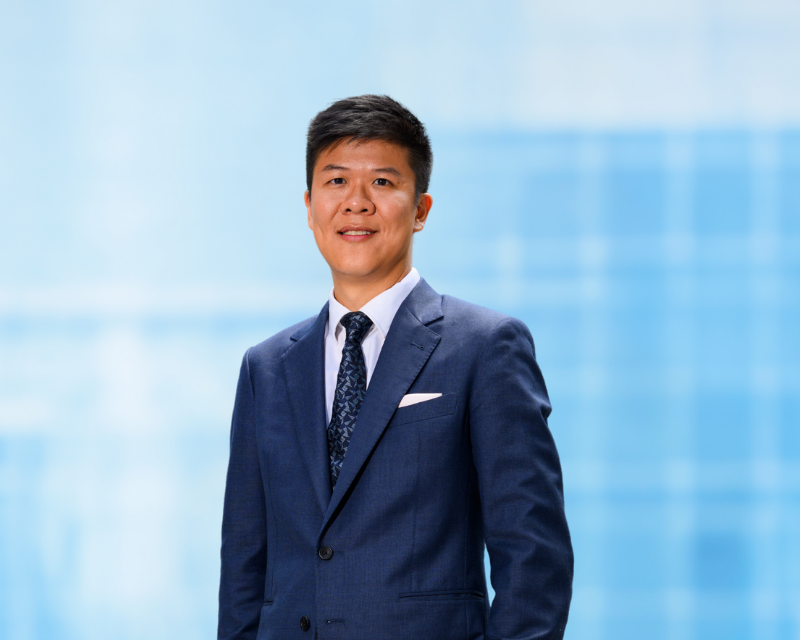
THE PERFECT TIMING FOR MBA
Gary Leung (Full-Time MBA Intake 2024) comes with over a decade of experience spanning venture capital, private equity, and strategy roles, the decision to pursue an MBA at HKUST was the result of thoughtful reflection and a clear vision for his professional growth.
"An MBA has always been on my to-do list," he shares. “It represents more than just skill acquisition – it's an opportunity to enhance leadership capabilities, gain transdisciplinary perspectives, and prepare for the next career phase." Having progressed from junior to leadership positions in the financial sector, he felt the timing was perfect for taking the next step.
A WELL-RESEARCHED DECISION
With his unique background – born in Hong Kong, educated in the UK, and experienced in global markets – his choice of HKUST was driven by Asia's position as a hub of innovation and growth. Drawing from conversations with the supportive MBA office and insightful discussions with HKUST alumni who generously shared their experiences, Gary found the warmth and strength of the school's community a compelling factor in his MBA journey. Additionally, HKUST's cutting-edge research facilities and renowned faculty provided him with the resources needed to excel in his studies and future career.
IMMERSION WEEK: FIRST TASTE OF EXCELLENCE
The immersion week provided early validation of his choice. "It was an intense blend of laughter and tears," he recalls. The experience combined rigorous academic content with practical elements – from DynaMetric assessments for self-awareness to data-driven storytelling and ESG case studies. Even before the official program started, the cohort had begun forming strong bonds through informal meetups overlooking Victoria Harbor, sharing visions and ambitions for their collective journey.
HKUST MBA AS A STEPPING-STONE
Looking ahead, he sees the HKUST MBA as a crucial stepping-stone in his professional growth. The program's world-class faculty, personalized coaching approach, and robust industry connections particularly appeal to him. "The abundance of opportunities here is precisely why pursuing a world-class MBA makes sense," he concludes.
His journey at HKUST MBA represents a thoughtful convergence of past experience and future aspirations, underpinned by a clear vision for leadership in Asia's dynamic business landscape.
Individual Consultation with MBA Advisor
Download Brochure | HKUST MBA | Learn. Innovate. Lead.

We recently connected with DiMBA Intake 2023 student Yennis Ng, whose journey exemplifies how HKUST's Digital MBA program extends far beyond online learning. Fresh from completing the intensive Enhanced Professional Skills (EPS) program, Yennis shared insights into how the program combines digital flexibility with powerful in-person experiences.
The EPS Experience
The 6-day on-campus program proved to be a highlight of her DiMBA journey. Under the guidance of distinguished faculty including Prof. Chris Doran (Business Problem Solving), Prof. Laurence Franklin (Finance), Prof. Joseph Salvacruz (Marketing), and Prof. Stephen Nason (Pitch and Q&A Strategy), Yennis experienced an intensive yet practical learning environment. What made it special was the opportunity to work face-to-face with teammates usually seen only in virtual settings, creating deeper connections with fellow MBA students from diverse professional backgrounds.
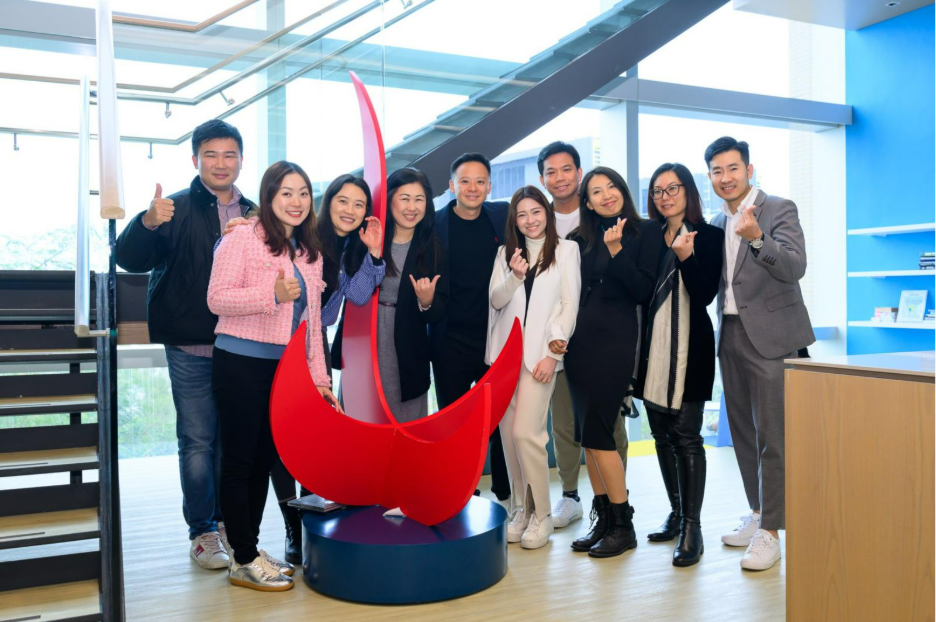
A Comprehensive Learning Journey
The DiMBA curriculum has significantly bolstered her professional development in finance. "The diverse range of courses, from accounting and strategic marketing to IT management, alongside the UCLA immersion program and CPD-organized C-suite level sharing at the Hong Kong Club, significantly bolstered my professional growth in my financial career," shares Yennis.
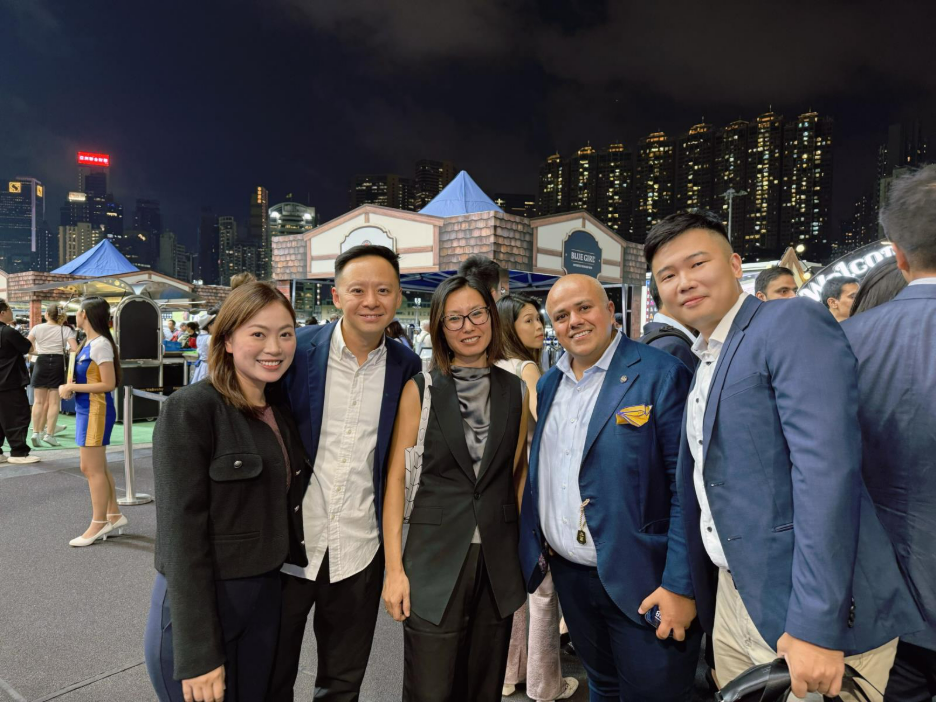
Building Lasting Connections
The program's virtual format provides learning flexibility, but meeting her classmates has enriched Yennis' experience in unexpected ways. Through her newfound MBA network, she's had opportunities to explore Japan, Taiwan, and mainland China - not just expanding her professional connections but also experiencing new cultures and perspectives alongside her classmates. These shared adventures have naturally strengthened the bonds first formed online.
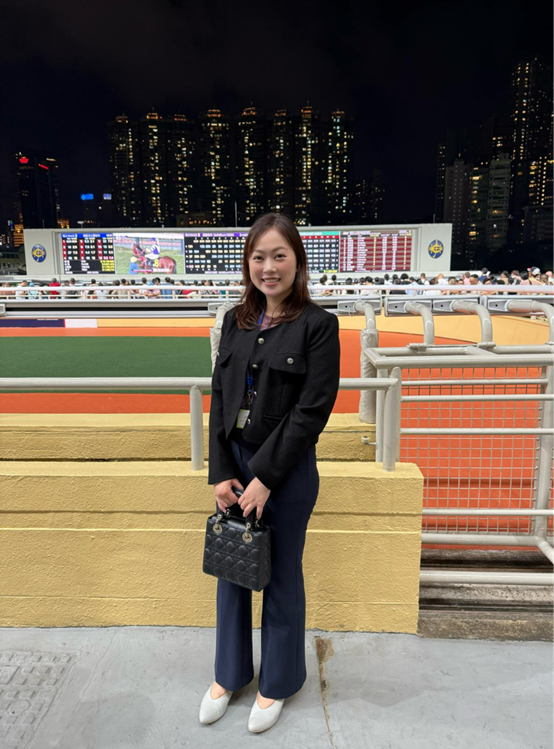
Leading with Purpose
Moreover, the Digital MBA program has shaped Yennis’ professional trajectory in unexpected ways. Through CPD activities and career coaching sessions, including visits to the Jockey Club, she gained exposure to diverse career opportunities. But perhaps most transformative were the personalized coaching sessions. "In the one hour tailor-made career coaching session, my coach inspired me to fortify my positive influence on younger generations of females, encouraging them to pursue careers in financial and other professional sectors," Yennis reflects. "This definitely gives me insight for a meaningful life planning during and after my MBA journey."
The DiMBA program demonstrates how modern business education can successfully blend digital flexibility with meaningful in-person experiences, creating not just skilled professionals, but purpose-driven leaders. As Yennis reflects, "What started as digital learning evolved into something more powerful: a journey of self-discovery and lasting friendships across borders. Moreover, the DiMBA delivers a uniquely balanced experience – where online learning meets real-world connections."
Individual Consultation with MBA Advisor
Download Brochure | HKUST MBA | Learn. Innovate. Lead.
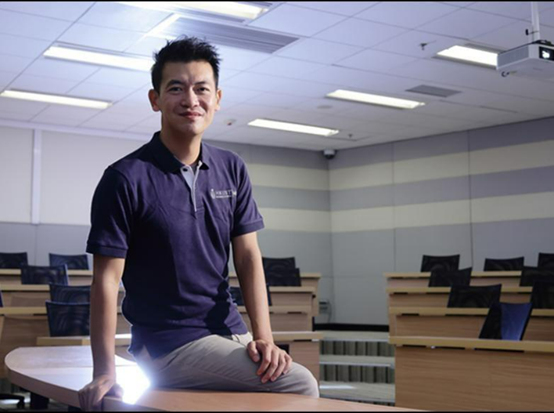
Transform and Soar with HKUST MBA
“When I step into the university (HKUST), it’s like I’m stepping into my home!” beamed Terry Tsang as he tugged on his shirt poised and ready to share all about his time at HKUST, home to his undergraduate and postgraduate studies in Civil Engineering, as well as his MBA degree.
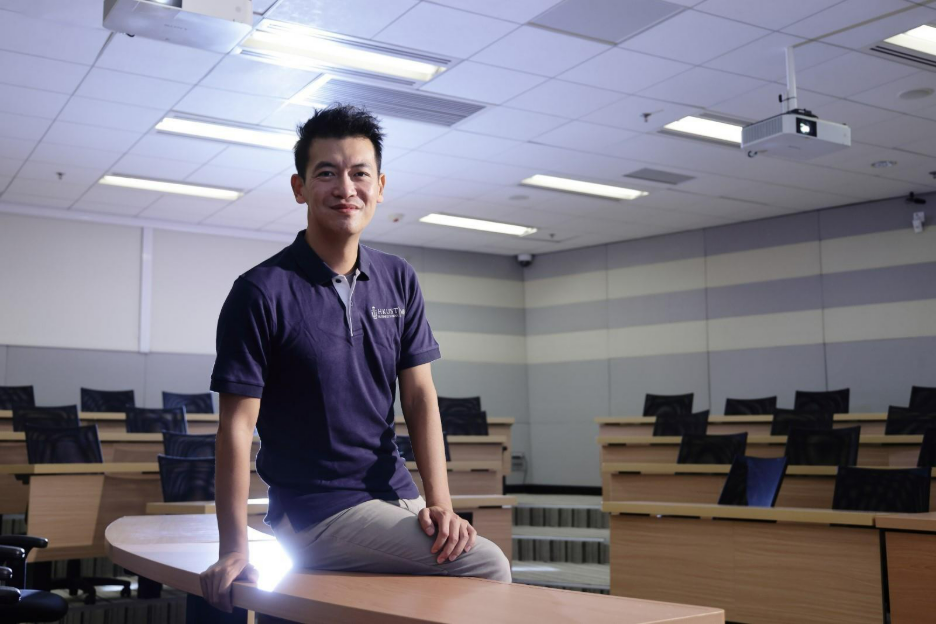
Caption: Terry Tsang, HKUST undergraduate degree and MBA alumnus, donates scholarship to attract bright candidates to join the MBA program.
Terry and his brother, Terence, are no strangers to the campus. Not just that they are alumni themselves, but they are also strong supporters of the University and the business school. Having given in generous amounts and in countless ways, the brothers have one wish: other students can gain the kinds of experiences that they had studying at the University.
With a philanthropic mindset, Terry donated a student emergency fund of HKD 2 million to the University, and later another HKD 6 million totaling HKD 8 million to the alumni endowment fund.
As the University celebrates its 30th anniversary, the alumni brothers Terry and Terence Tsang have pledged to donate HK$10 million to HKUST - HK$3 million will go to the MBA program, and HK$7 million will support the University’s development.
A Ray Of Light
Indeed, listening to Terry’s story, it’s easy to understand why. The kinship he feels towards the University was borne out of a personal tragedy. In 2004 upon graduating from his first degree, his father suddenly passed away. Consumed by grief, Terry and his brother had no idea how to carry on. Yet in the midst of his devastation, the University community came together to support him in a way that he would never forget.
“From the professors to my classmates to my peers, they all came to help us. But the biggest surprise was when a fellow PhD student helped me pen a letter to the University to ask for assistance through the emergency grant. It really made an impact on me,” Terry recalled that the support from the University was instant.
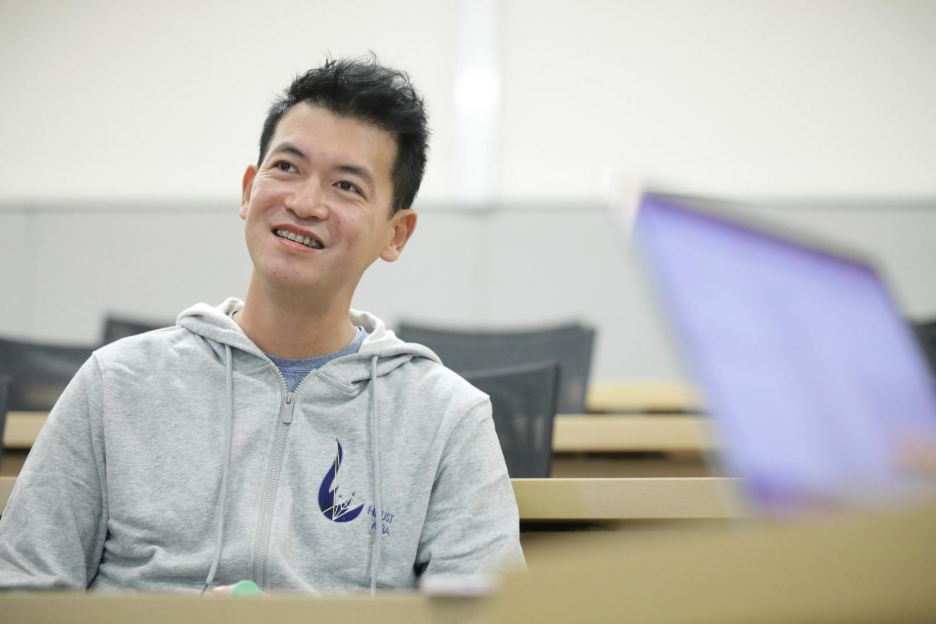
Caption: Terry is a returning alumnus applying for the MBA at HKUST after completing his bachelor and master’s degree from the same university.
A Reason To Give
Terry embarked on his MBA studies in 2011, but tragedy struck again during his journey. His mother was diagnosed with terminal lung cancer. By this time, Terry and his brother had built a business and co-founded a mobile game developing company called Madhead, and they had the financial means to take care of their mother. His mother’s diagnosis cemented in his mind how he wanted to give back.
“I finally found a reason to give,” he said. He hasn’t finished studying his MBA but donated to the University because he had a burning desire to help students in an emergency. “There must be other students at HKUST who were just like me who need emergency support,” he explained, “
This generous donation resulted in the establishment of the Student Emergency Fund, which provides financial assistance to HKUST students facing unforeseen financial emergencies that could disrupt their studies. To recognize the brothers’ contributions, the University named the atrium of the Lee Shau Kee Business Building after the brothers.
An MBA Like No Other
As Terry recalled the reasons why he applied for the HKUST MBA program, he said that there was no other MBA program out there that could come close to meeting his needs, “First, the HKUST MBA program was unparalleled in the city and worldwide. Second, I wanted to make more friends, not just networking. Third, I really wanted to go on exchange and this program allowed me to do so.”
Despite having to care for his ailing mother, having a young family, and growing a successful business, Terry managed to achieve all the above-mentioned needs in the MBA program, including an exchange experience overseas. Its richness left a lifelong impression on him.
“The study experience and exchange opportunities are irreplaceable,” he said. He recalled a study tour through the San Francisco Bay Area having the opportunity to visit tech giants. He also fondly recounted his experiences to South Africa visiting Johannesburg and Cape Town calling them “experiences that you could never achieve on your own”.
Caption: Fond memories during Terry’s MBA study (middle in the back row), he made life-long friendship with his batch mates and exchange students.
Honing Future Leaders
The alumnus has another wish: he can help contribute to a pipeline of future leaders who want to do good in the world, much in line with one of the five pillars of the HKUST MBA program which is to train leaders to make responsible and ethical business decisions.
“I have a personal motto in my life: Don’t be evil,” he explained, “no matter what the circumstance or situation is, you must stick to your principles. We talked about business ethics in class. You must know your value and understand consequences.”
It becomes evident that this generous giver isn’t after fame or glory, but simply wants to give back to a place where he calls home, a community that upheld him through the good times and bad.
‘Calling bright candidates to join HKUST MBA’
Terry Tsang MBA Admissions Scholarship
The scholarship, awarded by HKUST MBA alumnus Mr. Terry Tsang, is offered to admitted candidates who demonstrate strengths in their background, exposure and admissions performance. Preference will be given to graduates of HKUST undergraduate and postgraduate degree programs.
The HKUST MBA Community Succession Scheme
The scheme is developed for returning HKUST graduates or those referred by an HKUST MBA or EMBA alumnus. Students under this scheme can enjoy application fee waiver, guaranteed admissions interview, and tuition fee reduction upon successful admissions. The scheme is a way for alumni to give back to its alma mater.
VIEW SCHOLARSHIPS
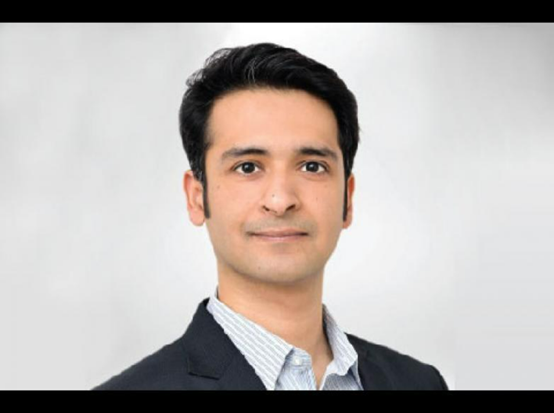
“Studying these topics gave me relevant and practical experience and I learned things that I apply in my job every day,” by Varun Sood.
From tech startup opportunities to leading digital transformation, these are the top five MBA jobs in Hong Kong right now
1. Sustainbility Consulting
The Hong Kong government wants to achieve carbon neutrality by 2050 and more businesses are prioritizing Environmental, Social, and Governance (ESG) factors, triggering increased demand for ESG and sustainability consultants in Hong Kong.
Big Three consulting firm McKinsey, for example, launched McKinsey Sustainability last year, a client-service platform focused on helping businesses achieve their climate goals. With offices in Hong Kong, McKinsey is looking for new talent to specialize in sustainability consultancy.
Speaking in a recent BusinessBecause webinar—Jobs in Hong Kong: What You Need to Know—delivered in partnership with Hong Kong University of Science and Technology (HKUST) Business School, MBA grad Varun Sood (pictured) explains how he’s taken advantage of Hong Kong’s drive towards sustainability goals.
After his MBA at HKUST, he launched a career at PwC as a senior associate within climate and sustainability.
PwC has one of the biggest teams for sustainability consultancy in Hong Kong, which Varun says was a motivating factor for joining the global firm. In the HKUST MBA, Varun studied courses including sustainability as a competitive advantage and ESG investing.
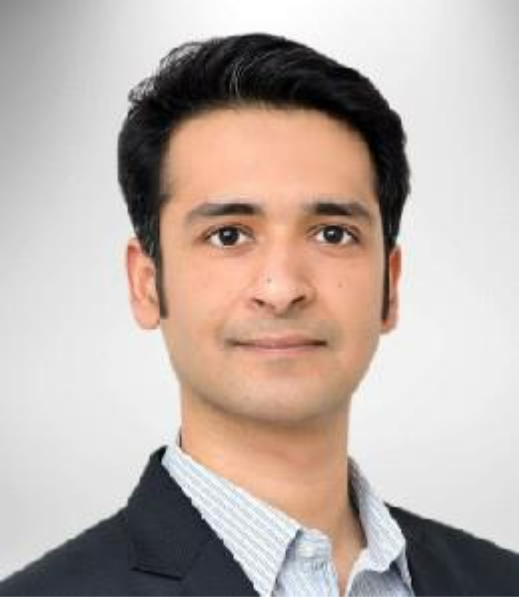
“Studying these topics gave me relevant and practical experience and I learned things that I apply in my job every day,” by Varun Sood, Full-time MBA — Class 2021.
2. Project management, digital sector
Companies in Hong Kong are embracing digital technologies to keep up with the ever-changing business landscape and they’re on the lookout for new hires who can help enhance business productivity using new tech.
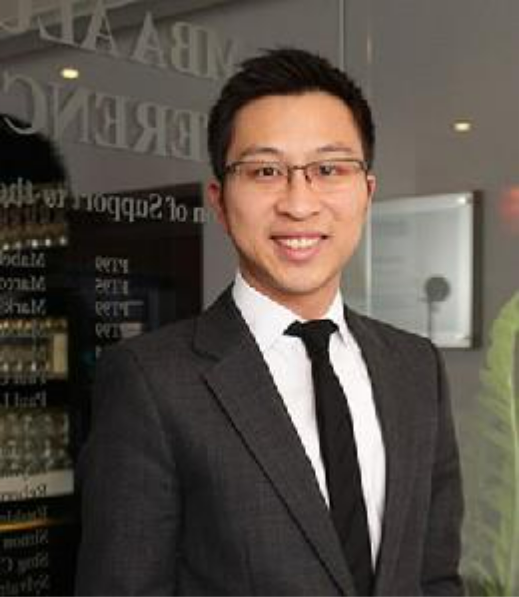
“Businesses are looking for people to manage projects and become the bridge between the technical and business teams, building strategy to push for digitization,” explains Christopher Yip (pictured), senior consultant for MBA career and alumni development at HKUST. With HKUST’s focus on business and technology, MBA students are well-equipped to offer this expertise, Christopher believes.
The HKUST MBA offers courses in Technology Entrepreneurship, Transforming Business with Artificial Intelligence, and Strategic Management, preparing students to enter fast-paced careers within digital and project management.
3. Investment banking & Wealth management
Investment banking and wealth management divisions across the Asia-Pacific are continuously expanding.
The HKUST MBA provides a series of intensive courses led by internal and external trainers, preparing MBAs to enter top finance jobs across areas like project management, investment banking, insurance, and accounting.
With advantages to living in Hong Kong including legislation that favors free trade and a strong capital inflow particularly due to the proximity with Mainland China, the city is a great place to kickstart your finance career.
4. Regtech startup jobs
The burgeoning regulatory technology, or regtech, sector is predicted to be worth $55 billion by 2025, making it an attractive career route for MBA grads.
Regulation technology startups are devising ways to use computer programs and other technology to help banking and financial companies improve and manage compliance with government regulations.
“With regulation limiting the development of cryptocurrency, startups are building regtech solutions and hiring MBA graduates for these roles. Hong Kong has become a base close to mainland China to develop digital-asset businesses,” explains Christopher.
Business schools like HKUST provide career coaching services to help students pinpoint the skills demanded in these emerging sectors.
“The career coaches help break down your options, providing students with a better understanding of what the job market is like at the time and of Hong Kong as a city,” Varun notes.
5. MBA jobs in mult-national companies
While finance is typically the most popular career path for MBA graduates in Hong Kong, Christopher says many HKUST MBA students pursue roles across a range of industries, including energy management and healthcare, within multinational companies.
“Due to the huge international student base at HKUST, multinational companies have been drawn to HKUST graduates as the international backgrounds of talent are an asset to the companies,” says Christopher.
“Many businesses are developing new programs to expand regional business and hiring MBAs to manage this and their marketing strategies.”
89% of HKUST MBA students are from outside Hong Kong. In Hong Kong, the growth of new industries and focus on sustainability and digitalization is creating exciting new job opportunities for MBAs from across the world.
This, Christopher says, makes now the perfect time to take advantage of all that Hong Kong has to offer.
Source: BusinessBecause
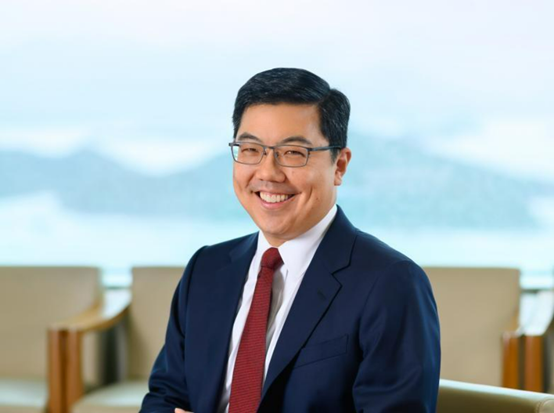
Professor Stephen Shih, Associate Dean of the HKUST MBA
We caught up with Professor Stephen Shih, associate dean of the HKUST MBA, to find out what you’ll gain from joining an MBA in Hong Kong
The Hong Kong University of Science and Technology (HKUST) MBA is ranked among the best MBA programs globally. The university was in the top 25 Financial Times MBA Ranking 14 years in a row, and placed ninth for international mobility in the same ranking in 2022.
This top MBA in Asia has recently appointed a new associate dean, Stephen Shih. Before filling this position, Stephen worked at Big Three Consulting firm Bain & Company for nearly 20 years in offices across the world including Beijing, Boston, Hong Kong, and Shanghai offices. As a partner he worked with clients on their strategic priorities and led Bain's talent recruitment, so has significant experience in strategic management.
He also worked in the MBA career services at HKUST Business School from 2010 to 2012.
From Partner at Bain & Company to Associate Dean of HKUST MBA
I’ve had two main interests and areas of experience during my career so far: management consulting and talent development. I spent nearly 20 years at Bain across the offices in Beijing, Boston, Hong Kong, and Shanghai.
I worked with senior executives and clients to help them with their top strategic priorities. Earlier in my career, I led the consultant recruitment team in Asia-Pacific. More recently, I managed learning and development programs for Bain’s senior executives around the world.
During 2010 to 2012, I took time away from Bain and served as head of MBA career services and corporate relations at HKUST Business School. Currently, I am also an adjunct professor in the department of management. I really enjoyed the time working with MBA students and helping with their career choices and career development. I’m excited to be back and leading our MBA programs.
Hong Kong: connecting the East and West
Hong Kong is uniquely positioned with a history of intercultural exchange between Western countries, other parts of Asia, and China.
Hong Kong is the ideal place to study for aspiring MBA students who recognize that understanding and building an Asia-centric network will create long-term opportunities in this dynamic region.
We have alumni around the world, and those alumni all have connections and experience with Asia through their HKUST MBA experience.
An MBA looking for dynamic leaders of tomorrow
- Energetic, open-minded leaders who are on a mission to improve the lives of others.
- People who are future-oriented and change-oriented—people who look at the world and ask “why not?”
- People who believe that business is about more than money—that it’s about delivering value for customers, creating opportunities for colleagues, and contributing to the broader community.
- People who realize that nothing great happens without teamwork—our HKUST student and alumni community is all about supporting each other.

Flexibility and tailoring: A unique MBA experience in Asia
I’m privileged to join the HKUST MBA community. We have a supportive alumni network, international faculty with experience in Asia as researchers, a flexible curriculum, and the benefits of collaborating with the broader HKUST university community, such as the entrepreneurship center.
We offer programs for fully employed professionals that are flexible to their schedule, including the new Digital MBA for Global Leaders program which offers a flexible online learning mode, a full-time MBA programs.
Within each program, we’ve designed the curriculum to allow a high degree of tailoring with a broad set of electives, full-time MBA students can choose their preference for 70% of their credits.
HKUST MBA programs achievements
I am proud of what HKUST MBA programs have achieved. It’s a great program that will continue to go from strength to strength.
The full-time program “aims achieved” score is number one in Asia (89%), according to the Financial Times MBA Ranking 2022, and 95% of our class of 2021 students were employed within three months of graduation.
We are also forward looking and innovative, with a curriculum that includes cutting edge courses on sustainability and technology. We launched the first digital MBA in Asia in 2022. This is the first-of-its-kind program in Asia among Financial Times’ global top 25 MBAs that offers a flexible online learning mode for motivated professionals in the region.
Looking towards the future for the HKUST MBA
Fundamentally, our goal is to prepare students for the future of work. My view is that successful leaders in the future will need to know how to position themselves to make the biggest contribution to society, take charge of their own learning and development, understand, and appreciate the implications of technological change and societal changes, and finally develop the ‘soft’ skills to be able to connect across boundaries.
As associate dean, I’ll be working to develop new learning experiences for our students. The smaller size of our MBA program has been designed to allow students to develop closer relationships with each other and for faculty to get to know students and help them with their development.
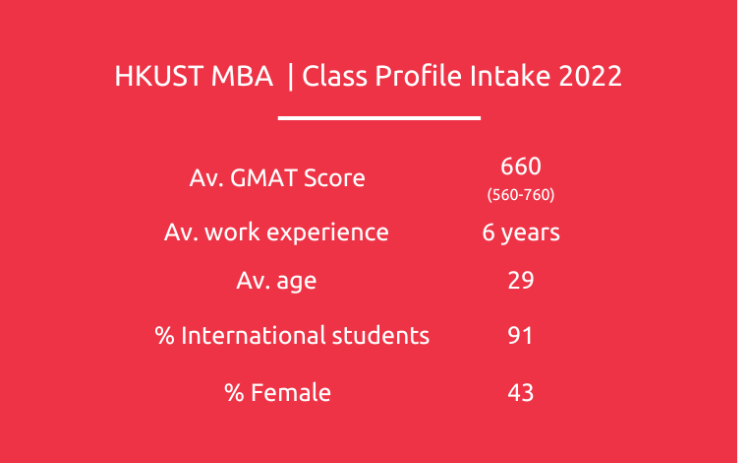
Excitements for HKUST MBA's future
Helping to attract and assemble international, diverse classes of MBA students who will develop lifelong relationships and help each other grow.
I want to continue to innovate and enhance our curriculum and co-curricular experiences to accelerate the leadership and career development of our student. Finally, I’m excited to watch our students achieve their personal definition of success after graduation.
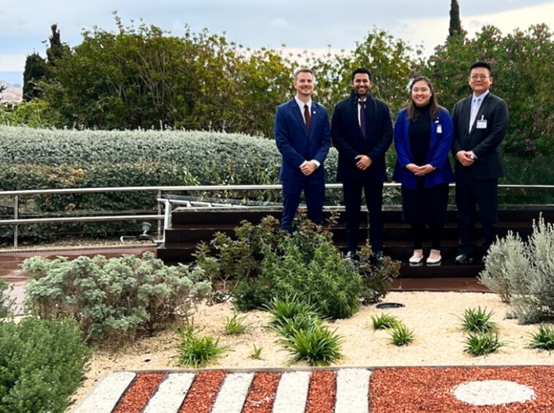
Congratulations to Stan Ma, Camille Hung Chiu Ming, Vinith Muralidhar, and Zach Bradford from the HKUST Full-time MBA Intake 2023 for their remarkable success. They have won the Gold award at the 2024 IESE Roland Berger International MBA Case Competition by showcasing innovative solutions and strategic prowess in a real-world business scenario.
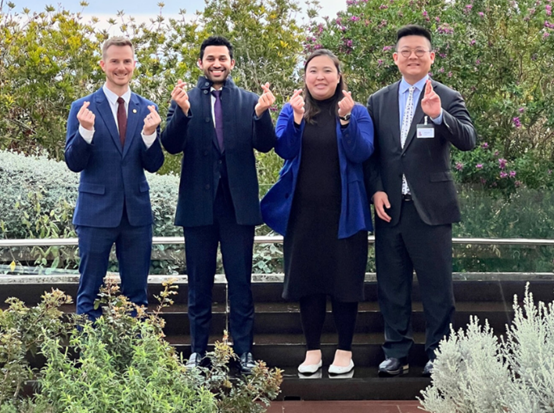 (Left to right: Zach Bradford, Vinith Muralidhar, Camille Hung Chiu Ming, and Stan Ma)
(Left to right: Zach Bradford, Vinith Muralidhar, Camille Hung Chiu Ming, and Stan Ma)
This highly competitive event showcases the top MBA schools from around the world, as they present innovative solutions and strategic approaches. Our team had the opportunity to collaborate on a real-life business case, gaining valuable experience that mirrors the challenges of a consulting career.
Their accomplishment is partly attributed to the Enhancing Professional Skills course. This course, under the guidance of four esteemed professors, this course equips students with the essential skills needed to tackle business challenges from various perspectives, including consulting, marketing, finance, and management.. The team's triumph underscores their commitment and elevates the reputation of the MBA program.
Well done to the entire team for their hard work and dedication! We are proud of their accomplishment and the representation they bring to our MBA program.
SCHEDULE AN ADMISSIONS CONSULTATION
Download Brochure | HKUST MBA | Learn. Innovate. Lead.

In a highly competitive landscape, a world-class MBA program receives applications from aspiring leaders worldwide. Your curriculum vitae (CV) serves as the first impression, highlighting your expertise, qualifications, and motivation to pursue an MBA. It sets you apart from other applicants and is crucial for your MBA application. Follow the CV refinement strategies below to elevate your MBA application!
Keep It Relevant
Making an effort to tailor your CV to the specific requirements of the school is essential and would set you apart from other applicants. Reflect on your career journey, envision your professional goal, and focus on highlighting experiences and skills that directly align with your motivation of applying to an MBA program.
Start shaping your professional story with a CV summary or objective that is a succinct yet impactful blurb about yourself, customized according to each application. Include education and work experiences that are relevant to your professional growth.
Show Your Impact
Simply prioritizing relevant experience without depicting your achievements is like a recipe without listing the key ingredients. Incorporating quantifiable achievements and outcomes into your CV can significantly enhance its effectiveness by giving it more depth and capturing the essence of your capabilities.
Utilize metrics, percentages, and concrete examples to illustrate the value you have brought to previous roles or projects. Convey confidence and engage the admission committees by using assertive action verbs, such as “led”, “originated”, “spearheaded” and “promoted”. By showcasing your impact, you not only substantiate your claims but also demonstrate your ability to drive results and contribute meaningfully – which are qualities that top schools always look for in a candidate.
Highlight Noteworthy Experiences
Apart from your education and professional backgrounds, build a comprehensive profile of yourself by including noteworthy experiences or skills that are relevant. If you have received awards, volunteered for an impactful project, or mastered great skills or professional software, prominently feature them in your CV to underscore your achievements and recognitions.
Last but definitely not least, your CV stands as a testament to your professionalism. Ensuring that even the smallest oversights in formatting, spelling, and letter cases are avoided is crucial to making a strong first impression.
We stands ready to support professional development of aspiring leaders admitted to our MBA Programs with deep understanding of the unique needs of MBA students, insightful knowledge of extensive industries, and strong corporate networks. Full-time MBA students receive tailored guidance in elevating their CVs to up-level their job search with precision and effectiveness. Students of all study modes are supported with coaching resources to access strategic guidance from industry veterans of diverse profiles.
Download our program brochures or book an admissions consultation to learn more about how our program prepares you for a lifelong journey of achievement and contribution.
Download Brochure | HKUST MBA | Learn. Innovate. Lead.
Individual Consultation with MBA Advisor
Resources: HKUST MBA - 1-page CV Sample.pdf
Remarks: A good CV should be highly customized according to your professional experience and this sample serves as a reference only.
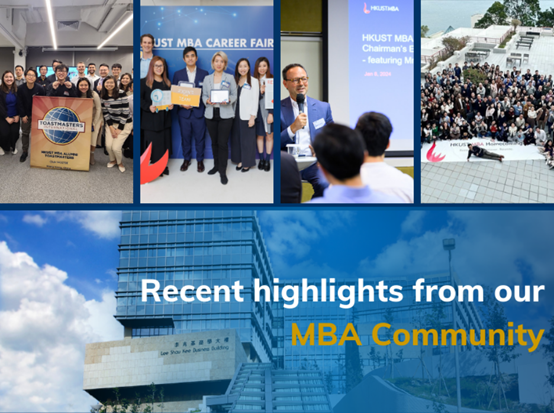
Expand your professional network without geographical boundaries.
At HKUST's MBA program, we take immense pride in our strong and close-knit community, which continues to grow. With over 6,300 accomplished MBA individuals from more than 70 nationalities across 60 countries, our diverse network is truly special.
The beginning of 2024 has been nothing short of exhilarating, with a wide range of exciting moments and achievements. Here are some highlights showcasing the recent activities and accomplishments of our dynamic MBA community.
We deeply appreciate the lifelong partnerships we have formed with leading individuals and corporations across various industries, our esteemed alumni, talented students, world-class faculty, and all those who contribute to the success of each event.
Stay tuned for more exciting events and opportunities as we continue to empower our students to thrive in their careers.
MBA RUNNERS
The MBA Runners team participated in the Standard Chartered Marathon on January 21, 2024. The runners gained extra motivation from incredible support physically and virtually.
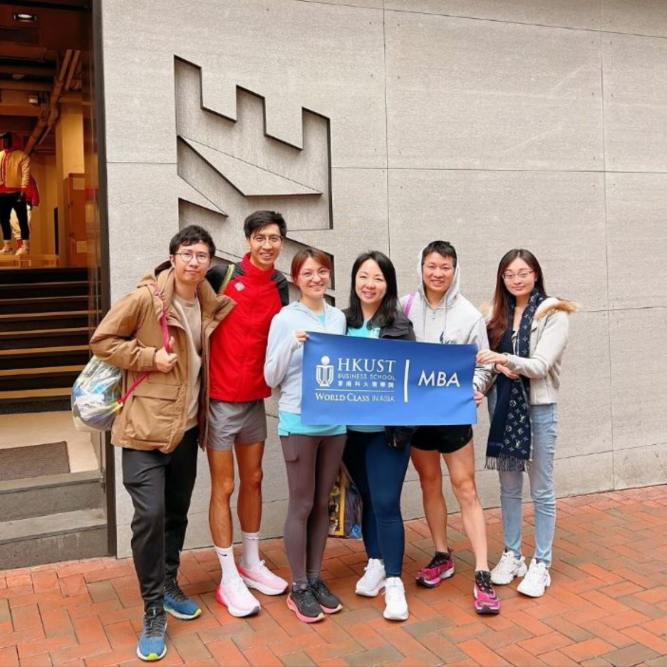
CONSULTING AND STRATEGY CLUB
The HKUST MBA Consulting and Strategy Club arranged a networking and panel event on January 16, 2024, discussing the topics about the rapidly developing trends of AI, Sustainability and Business Transformation and their respective impacts on the consulting industry.
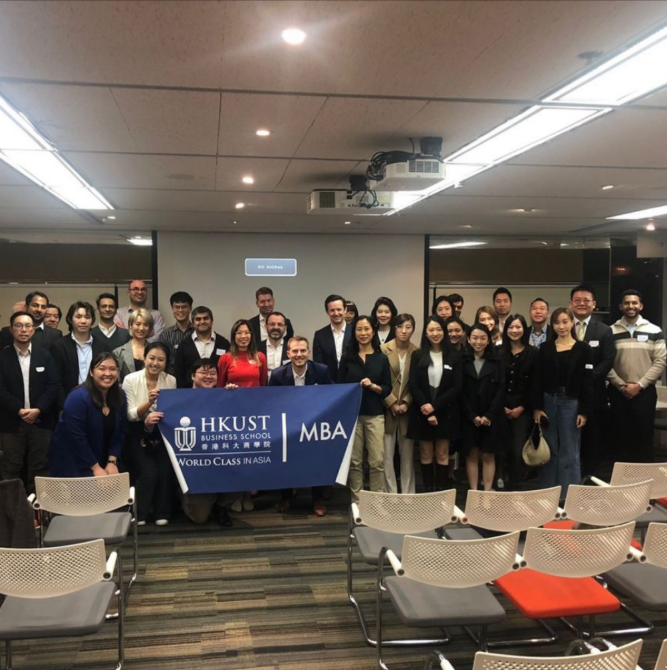
ALUMNI SHARING: DISCOVER THE FUTURE WITH FUSION ENERGY, FEATURING TAKA OMAE (FULL-TIME MBA, CLASS OF 2010)
We were honored to have Taka Omae, our alumnus from the Class of 2010, Full-Time MBA. Taka is the Chief Strategist at ITER Organization, a pioneer in the fusion energy industry. During the webinar, Taka shared insights into fusion energy theory, the progress of ITER's research and engineering, and the potential impact on our energy landscape.
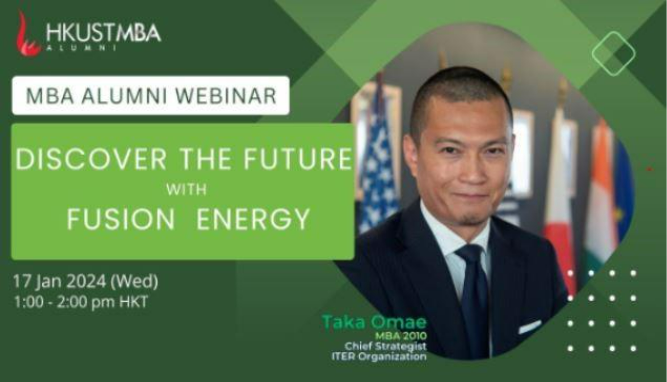
ALUMNI HOMECOMING LUNCHEON
We held a wholesome event on January 13, 2024, with over 300 alumni, students, and faculty for a heartwarming day to reconnect, rediscover, and reunite with this close-knit community of impactful leaders.
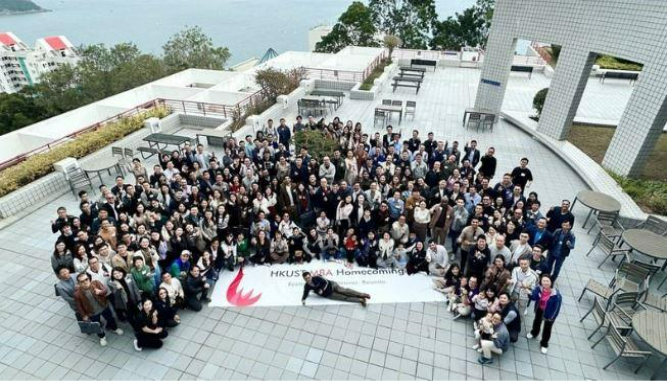
HKUST REAL ESTATE AND PROPTECH CLUB
On January 12, 2024, the HKUST Real Estate and PropTech Club organized a networking and panel discussion on capital deployment in real estate. This event was co-hosted with the Hong Kong University Real Estate Society.
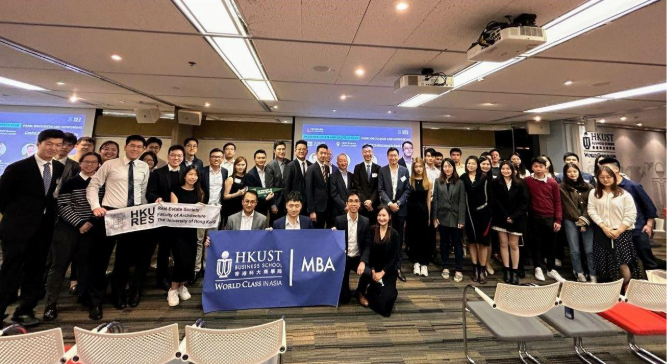
EXECUTIVE EXCHANGE: CHAIRMAN’S EDITION, FEATURING JEAN SALATA
We are honored to have Jean Salata, the visionary founder of Baring Private Equity Asia (BPEA) and the current Chairman of EQT Asia and Head of BPEA EQT, deliver an inspiring talk to our MBA students on January 8, 2024. During the session, Mr. Salata shared captivating stories from his career, discussed the inception of BPEA, and highlighted their resilience in the face of setbacks. He also provided insights into the current state of the industry, along with the challenges and opportunities it presents.
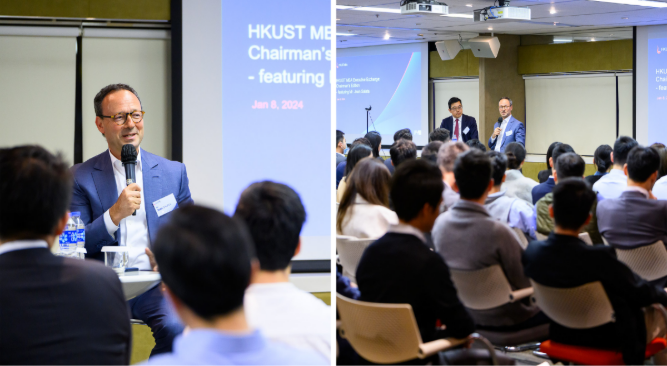
HKUST MBA ALUMNI TOASTMASTERS CLUB
The Toastmasters Club kicked off 2024 with its first session of the year on January 10, 2024, centered around the theme “Give it your best shot.” This was a great opportunity for new joiners and enthusiasts to get a first-hand experience of the art of public speaking.
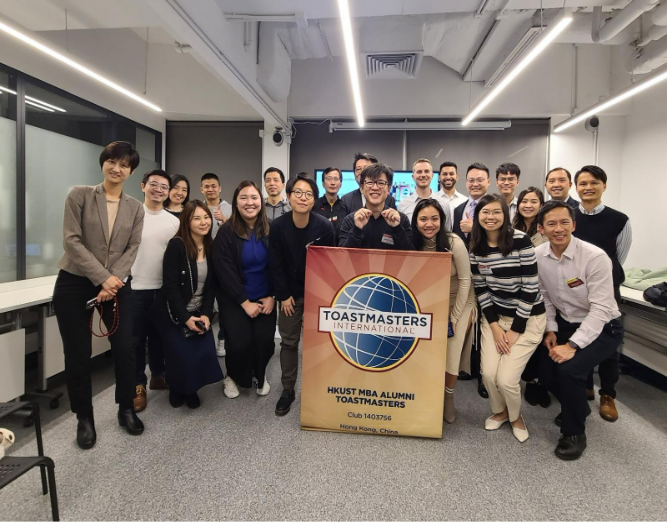
MBA CAREER FAIR
On January 12, 2024, we held our exclusive MBA Career Fair event, open solely to HKUST MBA students, and featured the participation of 30+ prestigious partners from diverse sectors such as Consulting, #Banking, Finance, Insurance, Technology, Supply Chain, and more.
Throughout the fair, we organized informative recruitment talks and executive-sharing sessions, covering topics such as hiring trends, job opportunities, business strategies, and market insights. The employers also provided valuable tips to our MBA students to stay competitive in the ever-evolving job market. Additionally, during the career booth sessions, students had the opportunity to engage in direct conversations with employers, exploring potential career paths and forging meaningful connections.
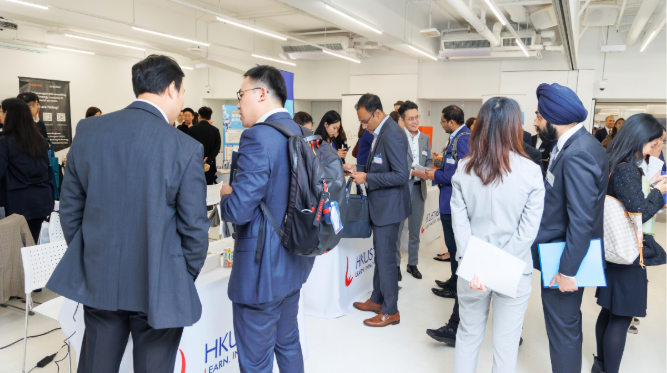
MBA CAREER Week+
We are delighted to highlight the remarkable success of the MBA Career Week+, organized during the semester break for our Full-Time MBA students. Throughout 10 days in January, we hosted 17 engaging events, including our annual Career Fair, insightful sessions with executives and alumni, career workshops, a mindfulness art and self-discovery workshop, personalized 1-to-1 sessions with Career and Professional Development (CPD) career advisors, and more.
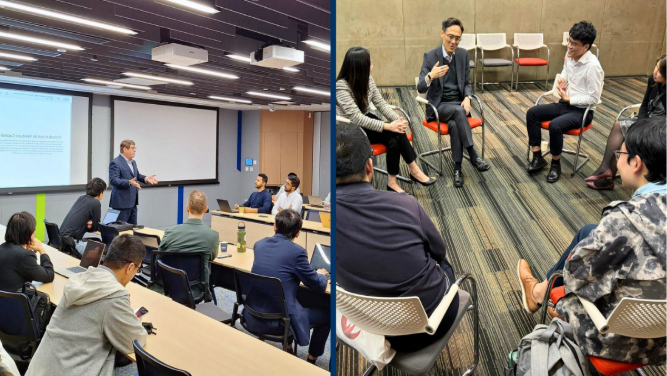
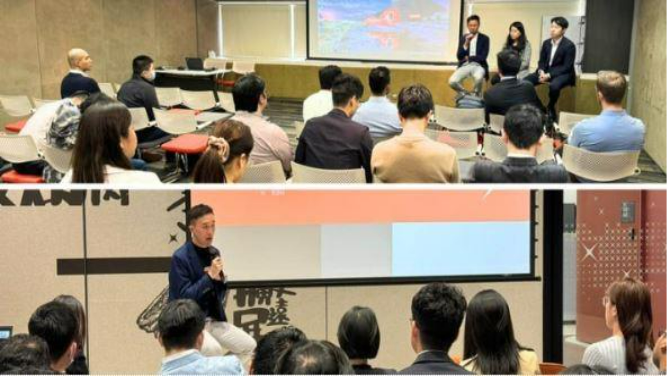
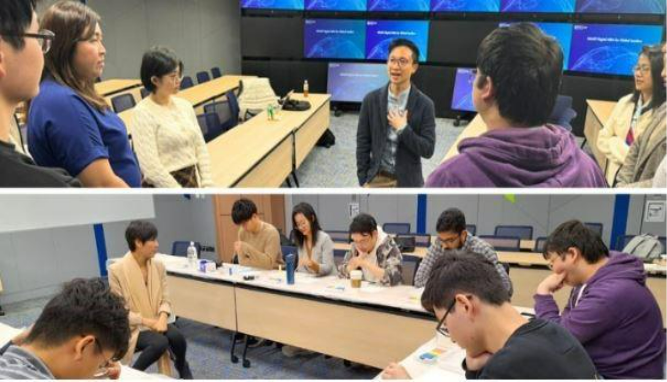
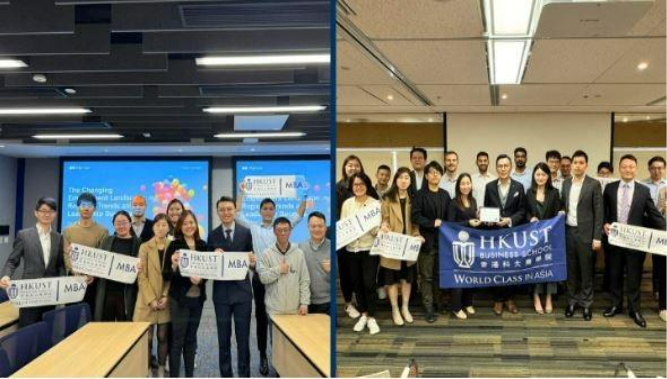
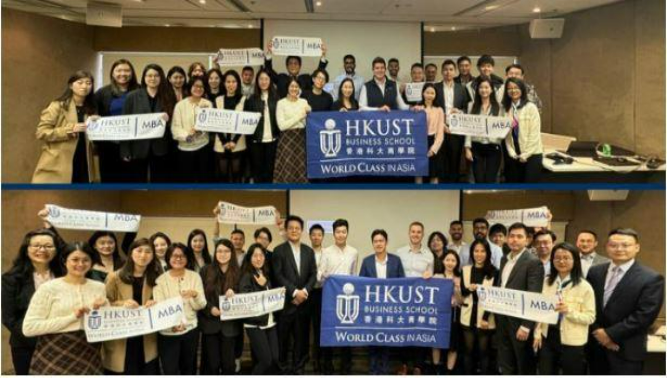
COMMUNITY LUNCH & ENRICHMENT TALK, FEATURING CARMEN CHIU
We had the privilege of hosting Carmen Chiu, former Regional Managing Director (APAC) of Fortnum & Mason, as our guest speaker at the unforgettable Community Lunch & Enrichment Talk with our Part-Time MBA students on January 6, 2024. It was incredible to hear Carmen sharing her awe-inspiring career journey, philanthropic support to young women and children, and the game-changing power of personal branding.
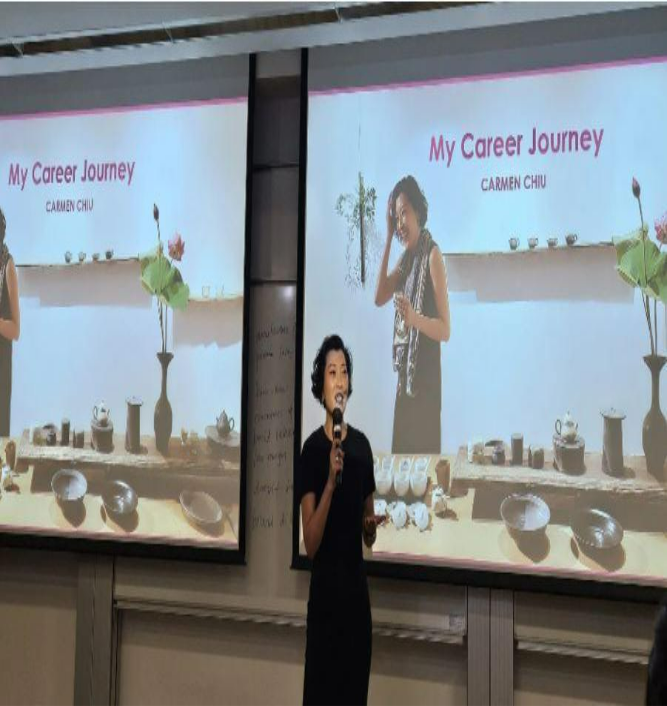
A LIFELONG ACCESS TO THE HKUST COMMUNITY
With a multitude of clubs and associations catering to various interests, joining one of these groups offers you a lifelong access to a vibrant and supportive community.
Whether you're seeking industry insights, mentorship opportunities, or simply want to forge new friendships, the HKUST MBA alumni associations and departmental groups have got you covered. To explore the exciting possibilities and unleash the power of your network, visit https://alum.hkust.edu.hk/your-networks/alumni-associations/department_aa.
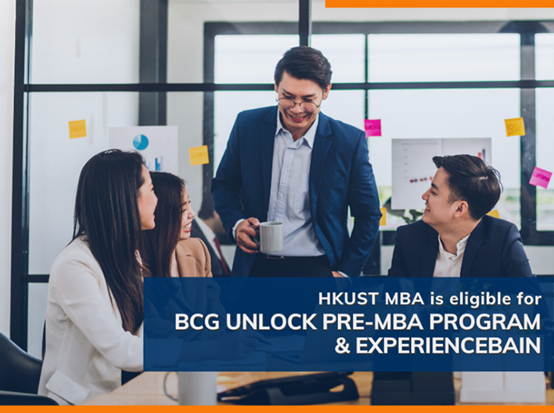
We are proud to announce that the HKUST MBA Program is the only Asian MBA program eligible for the BCG Unlock Pre-MBA Summer Program. Our commitment to providing you with a transformative learning experience equips you with the skills, knowledge, and global perspective needed to thrive in today's dynamic business landscape. Through our collaboration with BCG, we recommend Full-Time HKUST MBA Students of intake 2024 unlock their potential through this opportunity, gaining a head start on their MBA journey and pursuing their aspirations to intern at a top management consulting firm.
WHAT IS BCG UNLOCK?
BCG Unlock is a virtual summer learning program that introduces admitted full-time MBA students from selected MBA Programs, including the HKUST MBA Program (Full-Time), to the field of consulting and BCG. Through BCG Unlock, you can gain an advantage in the fall recruiting internship season by enhancing your knowledge in consulting, receiving personal and candid experiences and insights from BCG consultants and leaders, and interacting with pre-MBA peers. Additionally, you will have the opportunity to gain insights through sharing sessions with BCGers about the support systems, resources, tools offered, and career advancement opportunities.
ELIGIBILITY
-
Be enrolled in a 2-year MBA program, with their first year starting in the fall of 2024 (Full-Time HKUST MBA Students from intake 2024), and have an interest in interning in the summer of 2025.
-
Be a dual-degree student, such as MBAs/MD or MBAs/JD.
COMMITMENT TO THE BCG UNLOCK PRE-MBA SUMMER PROGRAM
-
Commitment to virtually participate in 60-90 minute individual sessions. The duration of some individual sessions may vary.
-
Sessions will be conducted from late May 2024 to late July 2024.
-
Additional sessions will be recorded and available for on-demand viewing.
-
All sessions and programming are optional.
-
The BCG Unlock program is designed to seamlessly align with your summer schedule, even if you are still working full-time.
REGISTRATION
-
Applications to register for the BCG Unlock Pre-MBA Summer Program will be announced in early March 2024.
For more information, please visit the official BCG Unlock Pre-MBA Summer Program page:
https://careers.bcg.com/on-campus/programs/unlock
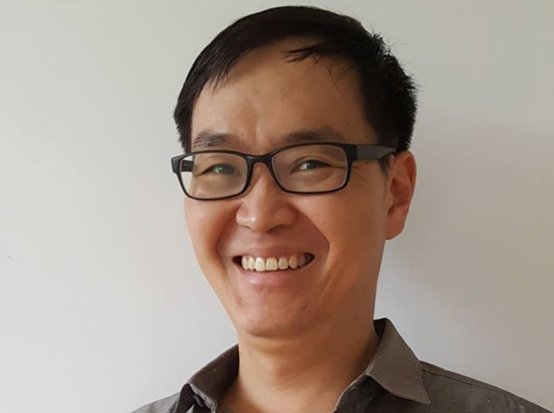
Prof. Joon Nak Choi, Adjunct Associate Professor, Department of Management, HKUST Business School
It takes the best teachers to bring out the best in students. Our faculty includes renowned scholars from prestigious global institutions, as well as business leaders with experience at leading companies. Sharing their valuable insights and real-life business experience, they will challenge you and inspire you to make a lasting difference. Moreover, our close-knit classes serve valuable and in-depth interactions between our faculty members and students.
With that being said, we welcome you to tap into the expertise of Prof. Joon Nak Choi (JC), Adjunct Associate Professor, Department of Management of HKUST Business School. He shares his insights into teaching techniques and advice for prospective students interested in pursuing an MBA at HKUST Business School.
INCORPORATING PRACTICAL EXPERIENCES INTO TEACHING TECHNIQUES
JC observes that too often, there is a bridge that needs to be built between two worlds: the world of the classroom with collaborative discussions, book learning, and case studies; and the world of the practitioner and entrepreneur, where the focus has to be upon expediting deliverables quickly, often leaving little time to think. It becomes a cycle of “acting, reacting, and responding to something that you are reacting to”. This leads you to lose sight of the bigger picture.
To address this, JC introduces the concept of the 'Helicopter Methodology,' which combines classroom learning with practical experience. Imagine yourself in a helicopter hovering above a forest, looking for forest fires. When you see a forest fire, you will descend from the helicopter with a team of firefighters to extinguish the fire before you fly back up in the helicopter, giving you a high-level perspective.
APPROACHES TO CREATING AN ENGAGING LEARNING ENVIRONMENT
JC believes that there are three pitfalls to avoid: the traditional top-down academic classroom, simply inviting guest speakers from various backgrounds, and an unstructured academic classroom.
The traditional approach to learning in academic classrooms is often top-down, with teachers delivering lectures and students expected to take notes, memorize, and reproduce information. While this method may enhance memorization skills, its effectiveness in other areas may not be very relevant. “I think most students, especially at the MBA level, would agree that what you learn in these types of learning environments is not always relevant.” said JC.
The approach JC uses to mitigate these pitfalls is taking the combination of industry experience and having a structured academic classroom. JC teaches you the entire process from start to finish. Each student is assigned a project for which they are responsible. JC breaks down this project into manageable tasks, which are assigned as weekly homework. He lectures upon the tools and techniques needed for these weekly assignments, before you apply them towards your own project. Then, you will present your progress to JC and your classmates. Once JC approves your progress, you will move on to the next step. By the end of the semester, you will have completed the entire project, step-by-step. This approach will provide you with a thorough understanding of the entire process, enabling you to apply it in a professional setting.
Prof. JC is eagerly anticipating the opportunity to teach this process during his course in the coming spring semester.
MBA PROGRAM
With some highlights of the HKUST MBA Program being the #1 ranked MBA in Asia by Bloomberg Businessweek Best Business School 2023-24, #2 World's Top 600+ Young Universities, Times Higher Education Young University Rankings 2023, and the Top 15 in Global Career Progression, Global MBA Ranking, Full-time MBA, Financial Times 2023. JC points out that excellent students coming through year after year become change leaders after the program, and top educators sharing their expertise contribute to the success and rigorousness of the HKUST MBA Program.
“It’s my honor to join this tightly knit circle. To get here, I had to prove myself by teaching undergraduate courses for HKUST Business School to teach in the MBA classroom.” Prof. JC remarked.
ADVICE FOR APPLICANTS
JC shares that “my advice for applicants is that you should be yourself and push yourself to be who you believe you can be.”
JC advises that you should avoid trying to make yourself into what you think of the MBA program. He shares that this is the wrong approach to looking at this. As you embark on this journey, you should take the time to reflect on your goals, the areas in which you can contribute to the cohort and wider MBA community, and what aspirations you aim to gain from the MBA program. “Believe in yourself and push yourself to be who you believe you can be.” Prof. JC raises the point that “an application to the MBA program is just part of that, and if you believe in yourself, have the confidence and conviction about who you want to be and how you plan on getting there, then you will naturally do well as we [admissions team] look into each application holistically.”
MBA COURSES
Below are the courses that Prof. Joon Nak Choi is teaching for the MBA program:
-
MGMT 6501J: Innovating via Entrepreneurship & Intrapreneurship
-
MGMT 5410: Strategic Management (for the Part-Time MBA Program)
Prof. Joon Nak Choi is also coaching an MBA team for a business case competition.
Learn more about Prof. Joon Nak Choi (JC): https://iems.ust.hk/people/faculty-associates/joon-nak-choi
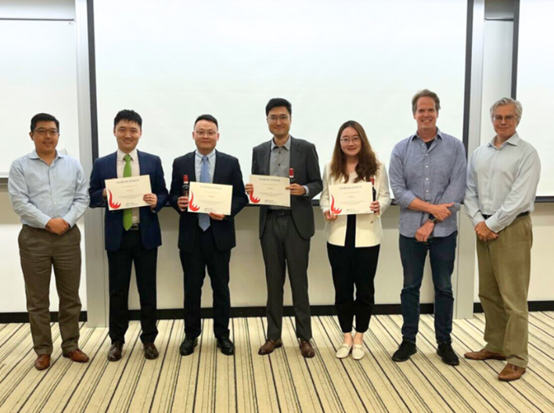
A round of applause to the teams that participated in the thrilling MBA Case Competition. Congratulations to the top three teams for their outstanding performance, who will receive sponsorships from the Morris S. Smith Foundation and will participate in an external international case competition of their choice.
WINNER
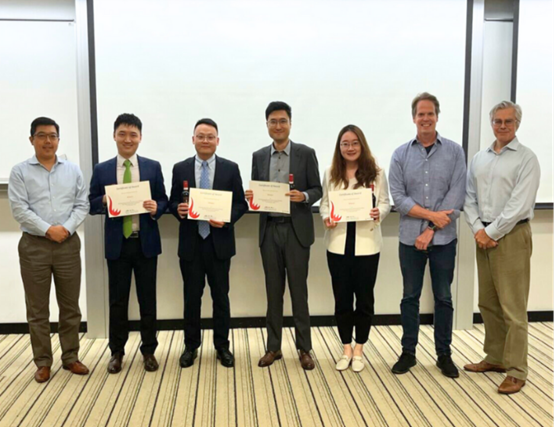 (Certificate holders of the winning team, left to right: Bowen Li, Lincoln Wu, David Liu, Kelly Liu)
(Certificate holders of the winning team, left to right: Bowen Li, Lincoln Wu, David Liu, Kelly Liu)
“Our strategy was to find an actionable and feasible plan while focusing on the key points of the requirements of the case. By analyzing the overall situation of the case, conducting competitor research, and evaluating whether an actionable and feasible plan can align with the case itself. After careful deliberation with the team, we decided to approach the case with a counterproposal against the case, which contributed towards us winning the MBA Case Competition.” said Bowen.
1st RUNNER-UP
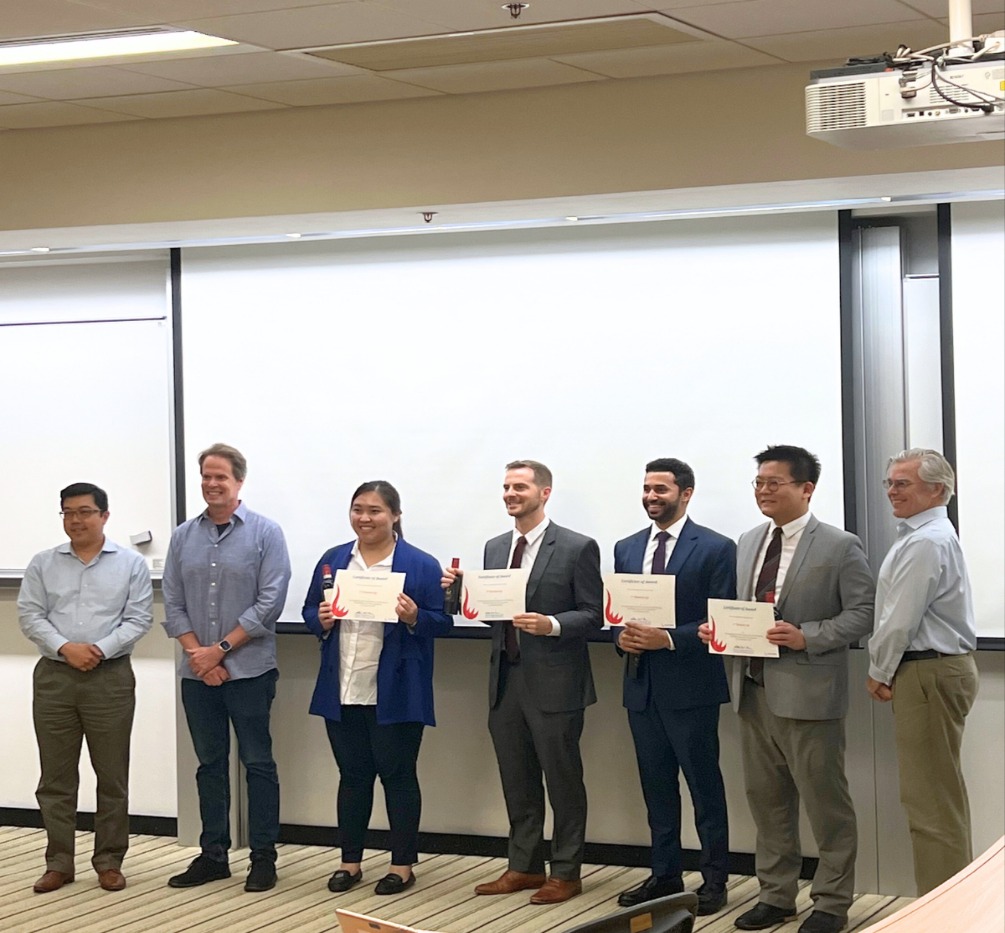
(Certificate holders of the 1st runner-up, left to right: Camille Hung Chiu Ming, Zach Bradford, Vinith Muralidhar, Stan Ma)
2nd RUNNER-UP
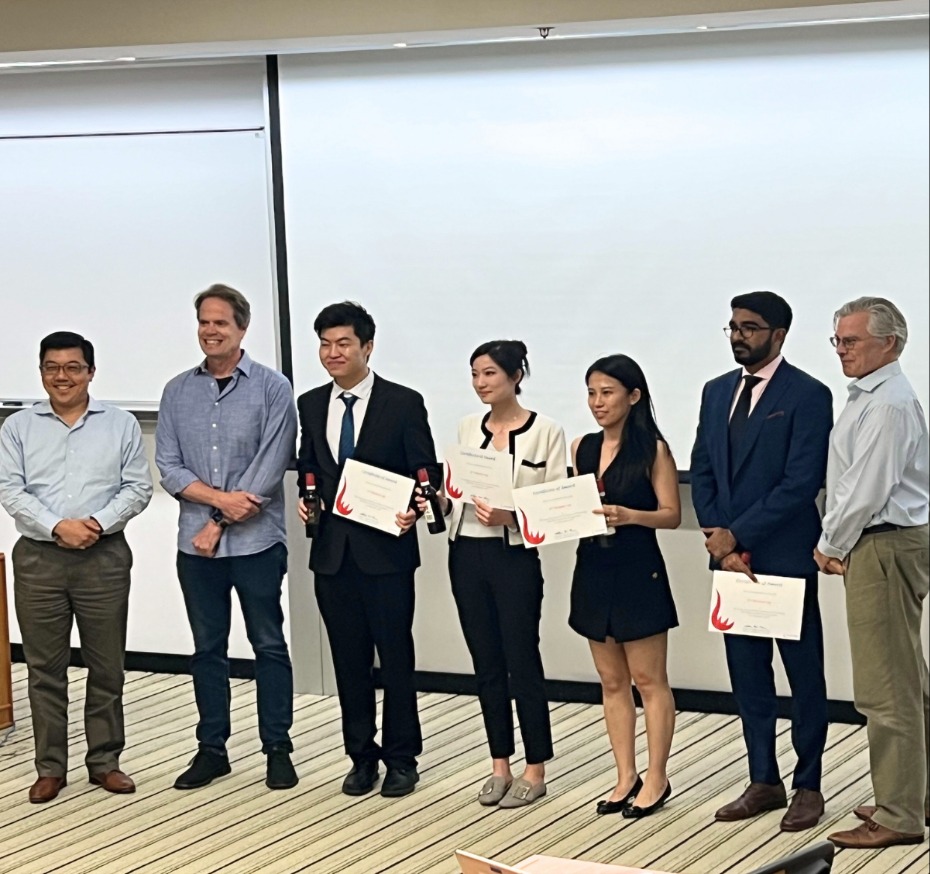
(Certificate holders of the 2nd runner-up, left to right: Vincent Chan, Denise Ho, Sophia Wang, Kartik Singh)
JUDGES
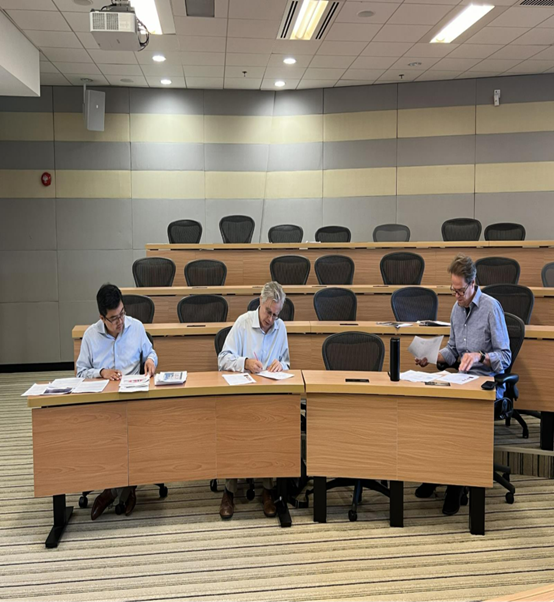 (Judges, left to right: Prof. Stephen Shih, Prof. Chris Doran, Prof. Stephen Nason)
(Judges, left to right: Prof. Stephen Shih, Prof. Chris Doran, Prof. Stephen Nason)
MBA CASE COMPETITION
Welcome to the MBA Case Competition, where teams of four dive into a one-week challenge to research, analyze, and present actionable recommendations for a real-life business case. Showcase your expertise in a face-to-face presentation to esteemed judges within a 25-minute timeframe. Begin with 5 minutes of uninterrupted delivery, followed by an open floor for thought-provoking questions, putting your skills and adaptability to the test.
Following each team's presentation, the judges will engage in a rigorous deliberation process to evaluate the performance of each team. The evaluation will be based on specific criteria that encompass key areas such as Presentation Effectiveness, Recommendations and Analysis, and Q&A. The top three teams will be awarded sponsorships from the Morris S. Smith Foundation and will have the opportunity to participate in an external international case competition of their choosing. The winners of the MBA Case Competition will have the privilege of selecting their preferred competition, with the Roland Berger Case Competition being the highly desired option.
WHY PARTICIPATE?
Participating in this competition will provide you with a high-confidence opportunity to:
-
Analyze a real-life business case and sharpen your strategic thinking skills
-
Evaluate various business solutions, enhancing your problem-solving abilities
-
Collaborate with a diverse team to develop and prepare a top-class presentation
-
Increase exposure in a global business context, broadening your perspective
Enhance your soft skills, from communication to teamwork and beyond
MEMORABLE MOMENTS
For Pie, “With the topic of the MBA case competition being focused on digital transformation in a bank, my teammates and I were able to learn so many new things from each other. Coming from the Tech industry myself, and having a teammate with a background in banking, the diverse industry perspectives within our team proved to play a crucial role in developing a creative solution [that none of them heard of before]. My team and I received many positive compliments from my classmates and professors.“
APPROACHES FOR NEXT TIME
“We previously had an Ocean Park case during our orientation week. So, going into the MBA Case Competition, this time, we did better as we’ve been enhancing our ‘soft-skills’ by playing to each other’s strengths, organization, and critical thinking.” – says Bowen.
“If we were to participate in the MBA Case Competition again, we would better manage the teams’ timeline, improve our coordination, and play to each other’s strengths. Additionally, we would reduce the amount allocated to the initial and middle sections of the presentation, allowing us to dedicate more time to the crucial recommendations section. Lastly, we would reduce the amount of text on our slides and to speed up the overall build up [to our recommendations] as this was a comment made by the judges.” said Bowen.
In Pie’s perspective, “if given another chance to participate in the business competition, we would spend more time on our presentation skills to make it more interactive and enhance our storytelling so that the audience can feel more engaged during the presentation. Also, we would improve on the Q&A section by being able to handle this part more effectively.”
HOW DOES THE EXPERIENCE OF THE MBA CASE COMPETITION BENEFIT YOU IN THE FUTURE?
“The MBA Case Competition was far from being an easy project. It demanded immense dedication and the ability to thrive in the rigorous environment of the MBA program. From my perspective, there are several noteworthy aspects to highlight from this experience. Firstly, the competition provided valuable training in coordinating and exerting effort to prepare a presentation for key stakeholders. Additionally, it allowed me to develop essential leadership skills. Coming from an analyst position, you don’t have many opportunities to lead a team. I had the privilege of serving as the team lead. Embracing this leadership role proved to be very valuable, and I believe it will greatly benefit me in the future." Bowen remarked.
“There are a few skills and courses during that MBA program that assisted me in the business competition. The financial modeling course equipped me with the necessary skills to evaluate whether an investment proposal with a financial model makes financial sense. Experience from the immersion program [at the start of my MBA journey] assisted me in developing my ability to effectively present ideas by meticulously using hand gestures to communication skills when presenting to the judges. Another highlight was learning how to think strategically, where I was able to gain a deep understanding of the concepts of how my actions can influence the actions of others, helping me anticipate and plan a few steps ahead.” Said Pie.
Explore our practical and in-demand MBA curriculum and download the program brochures here:
Download Brochure | HKUST MBA | Learn. Innovate. Lead.
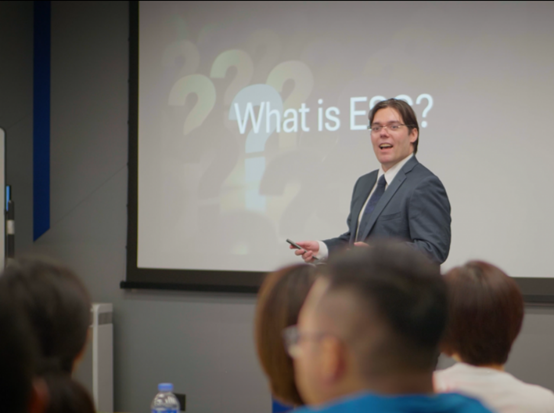
Step into the world of ethical leadership with Professor David Hagmann at HKUST. By merging psychology, ethics, and economic models, Professor Hagmann delves into the driving forces behind human actions and decisions.
Professor David Hagmann, Assistant Professor of Department of Management, HKUST Business School
Discover how Prof. David Hagmann's expertise in responsible leadership and behavioral economics equips MBA students to tackle the challenges of today's business world and leave a lasting impact on the global stage.
Professor Hagmann, who teaches our Responsible Leadership & Ethics course, was attracted to behavioural economics by surprise, “I initially wanted to become a lawyer. But in Switzerland, where I grew up, I also had to study economics. And in many ways, behavioural economics was a fascinating subject because there're so many predictions you can make about the world based on very simple models.”
Behavioural economics is way more than theories on paper, and its wide application in every aspect of reality benefits future business leaders with its adaptive, cross-discipline nature. What makes this course so uniquely engaging for its students, Professor Hagmann notes, is that they get to debate intensively on high-pressure situations, build robust strategies through motivated reasoning, and convert disagreements into catalyst for innovation. “Every day we make so many different decisions, and we don't really have time to stop and think about our reasoning. In a class like mine, we can really think about difficult questions in detail and understand the complexities and nuances that otherwise would get lost.”
Interactive simulations and course content wedded to the real world are critical components of this course. In controversies like tracking against privacy in pandemic emergency situations, or as the class uncovers the dark side of ESG together, students are rigorously tested on their resolve and decision-making processes. “As part of that, students have to come up with ways to do unethical things but make it seem like they're ethical. And, it turns out, students come up with great ideas.” One thing that’s also been very interesting for the students, Professor Hagmann remarks, is that they started to recognize many of those activities taking place through today’s companies.
With a strong emphasis on the future of work, like many of our other future-forward faculty committed to enlightening innovative business leaders, Professor Hagmann underscores the importance of being a tech-fluent professional in the wake of technology upheavals, “Imagine the advancement of ChatGPT in recent months that maybe a year or two ago we couldn't have predicted. We know that technological change is always happening. And so knowing how to manage people and navigate the changing environment, I think will always be very relevant.”
Explore our practical and in-demand MBA curriculum and download the program brochures here:
Download Brochure | HKUST MBA | Learn. Innovate. Lead.
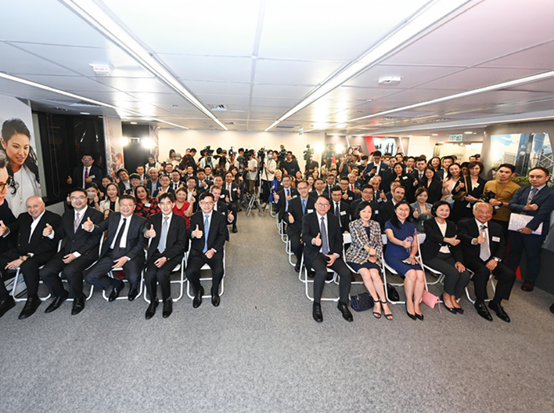
Meet Thomas Decamps, a French graduate from the HKUST MBA (Full-time MBA, Class of 2022), who embarked on an inspiring journey of transformation in the vibrant city of Hong Kong. Recently, he was honored at the opening ceremony of the Hong Kong Talent Engage Office, highlighting the profound impact of our MBA program in attracting global talents seeking to make their mark in Hong Kong and achieve remarkable professional success.
Hailing from various cities in France, Thomas began his professional career as an external auditor at Deloitte. Driven by his desire for an international and diverse environment, he made the move to London and built a successful career at CK Hutchison's headquarters. It was during this time, as he helped his Hong Kong colleagues adapt to life in London, that Thomas developed a deep fascination for the dynamic Asian city. Eager to embrace new challenges and expand his horizons, he found the perfect ally in the HKUST MBA program, which equipped him for his ambitious transition to the Asia Pacific region. Today, Thomas thrives in his role at Schneider Electric, making significant contributions to corporate strategy and sustainability following his graduation from the MBA program.
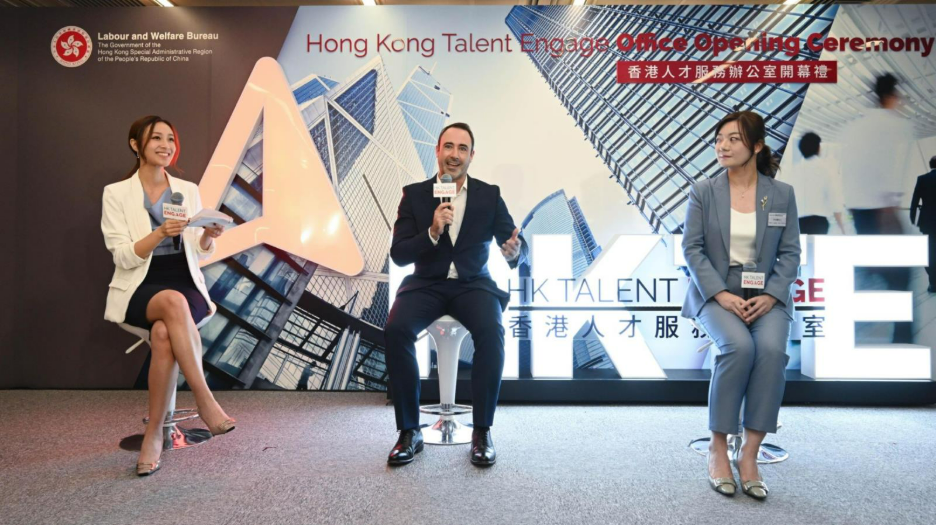
HKUST Full-time MBA Alumnus Thomas Decamps (Class of 2022) (Middle) shares his insights at the Hong Kong Talent Engage Opening Ceremony.
On October 30, 2023, Thomas was invited to speak as one of the arriving talents at the opening ceremony of the Hong Kong Talent Engage Office, a one-stop platform for talent engagement and admission facilitation for incoming talents. As Thomas recalled making the decision to relocate, “Years after working in London, when I wanted to think about my next step, my new challenge, Hong Kong became an obvious choice because I wanted to discover Asia. I joined the HKUST MBA program with an aim to learn more about digital transformation.”
During his time as an MBA student at HKUST, Thomas leveraged every opportunity in front of him to supercharge his professional capabilities and network over 16 months in the full-time program – from running student clubs, polishing his presentation skills with case competitions, going on an exchange in New York, to actively participating in career development activities. With great interest in technologies and ambition to join a technology company after graduation, Thomas also strategically enrolled in relevant courses such as “Information and Technology Management,” “Deep Learning Business Applications with Python,” and “Transforming Business with AI” to gear himself up with technology acumen.
When the panel host asked what attracted him to explore and stay in Hong Kong, Thomas rhapsodized his experience so far, “First, proximity to nature. I find it amazing that we are here in a global city, and within 20 minutes, you can go hiking, go to the beach, and that's something I've never seen anywhere else. The second thing is that we’re in an Asian city. Everyone is speaking English, and as a foreigner, it feels super safe and welcoming. It is easy to integrate and socialize with people as we share to exchange to learn more. And again, this duality between English and local culture is amazing, as a foreigner, as a Westerner.”
Thriving as a persistent high achiever who seamlessly adapted to life in this vibrant city, Thomas embodies his genuine advice to overseas talents contemplating a move to a new location. Reflecting on his own journey, he shares, "Hong Kong is an incredible place brimming with opportunities, but it also presents fierce competition. It's crucial to prepare diligently, understand the skills and profiles that local companies seek, and leverage your own abilities and connections to find your fit. Persistence is key when establishing yourself as a foreigner in a new country. You may need to go the extra mile because people may not be familiar with you. Stay resilient, keep engaging with others, seek understanding, and persevere until you achieve your goals."
Thomas' story is just one of the many remarkable narratives that emerge from our MBA community at HKUST. We invite aspiring individuals, like you, to join our vibrant and supportive community, where you'll find the resources, guidance, and network to embark on your own transformative journey. Come and be a part of the HKUST MBA community, where dreams become reality.
Image credit: Hong Kong Talent Engage LinkedIn
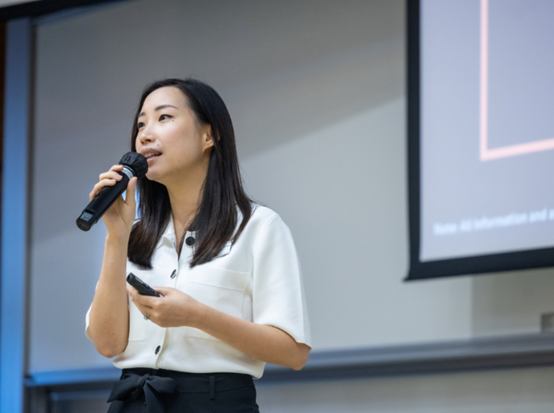
In this exclusive conversation, Anna Woo, the Head of Career Services and Corporate Relations, shares her insights into the core values and beliefs underpinning our career services and we delve into the remarkable success story of one alumnus.
Anna Woo, Head of Career Services and Corporate Relations
HKUST Business School is more than a collection of courses; it's where dreams take shape and students become the professionals they aspire to be. Believing in education goes beyond the classroom, our Career and Professional Development (CPD) service provides a solid platform for MBA students to enhance their learning outcomes. In this exclusive conversation, Anna Woo, the Head of Career Services and Corporate Relations, shares her insights into the core values and beliefs underpinning our career services and we delve into the remarkable success story of one alumnus.
“We embrace a growth mindset with our full-time MBA students and firmly believe in their capabilities and potential,” Anna asserts. “Not only do we equip them with the essential skills, industry knowledge and network for success, we are dedicated to fostering self-awareness, infusing resilience in our students and celebrating their achievements for long-term accomplishments.”
Bridging Theory and Practice
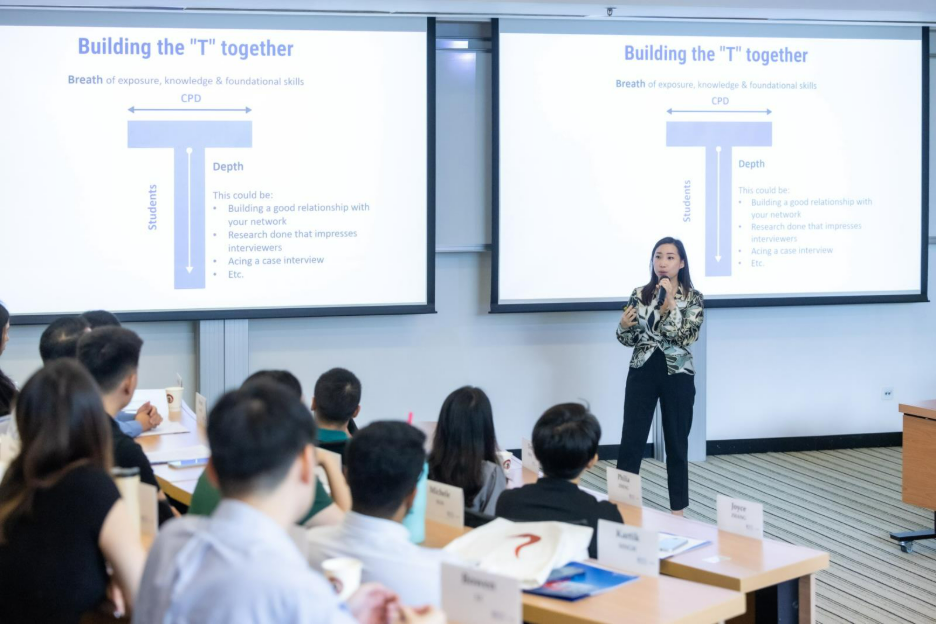
Photo caption: Career services orientation for new cohort of MBA students
The comprehensive spectrum of MBA-centered career services at CPD for full-time MBA program is anchored by three pillars. These have all been meticulously designed to bolster students' knowledge, expand their professional networks, and enhance their employability. Recognizing the uniqueness of each student, CPD coaches and advisors offer personalized 1-on-1 career advisory services, guiding students from self-discovery prior to program commencement, through the formulation of tailored job search strategies, to continuous support throughout the recruitment process.
To ensure our students stay on top of the latest industry trends, CPD fosters connections with diverse business networks, including industry professionals and alumni, on a weekly basis. These engagements span various formats, from expansive industry sharing sessions to intimate coffee chats. These interactions provide invaluable insights, cultivate a professional network, and foster impactful, candid two-way exchanges, ultimately helping students chart a course toward a prosperous career.
The experiential learning approach at CPD complements classroom education, offering students real-world exposure, fostering essential professional skills, and nurturing valuable industry networks during their full-time study. It transcends conventional training workshops by engaging students in real responsibilities, including consulting projects for actual clients, volunteer opportunities at prominent summits and forums such as FinTech Week and Rethink HK Expo, as well as part-time or full-time internships in their chosen paths. Through these immersive experiences, our students acquire practical skills and build networks within organizational and industry contexts.
A Partnership for Student Success
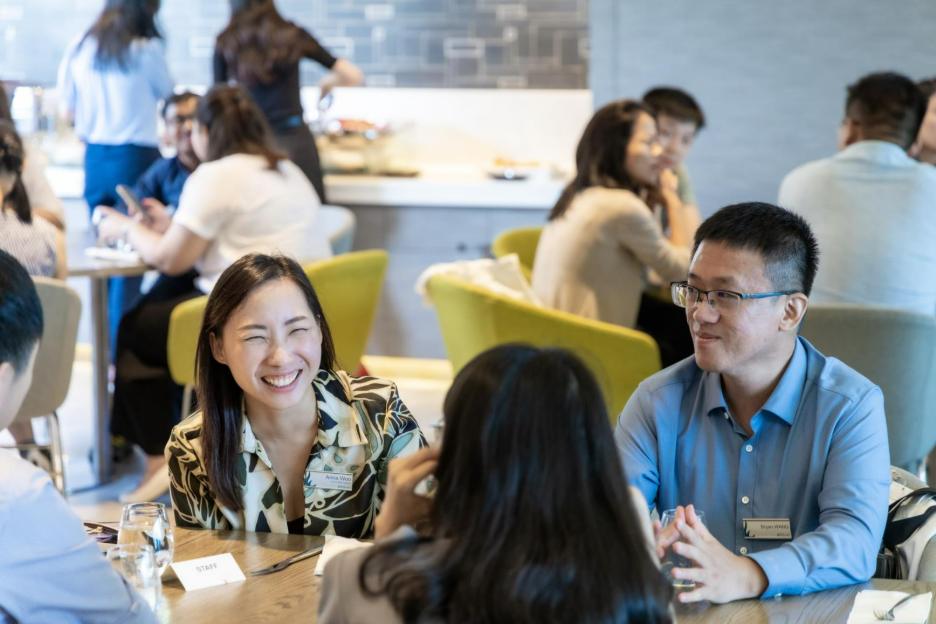
Photo caption: Student welcoming lunch on program orientation day
As mentors, advisors, and partners throughout their career journey, the CPD team at HKUST MBA collaborates with students from diverse backgrounds to achieve their professional aspirations.
As Anna proudly reflects: "It's a purposeful journey to witness our students achieve remarkable professional growth through the personalized support and guidance we provide, both within and beyond the full-time MBA program. One notable success story features an Indian full-time MBA student with a specialization in project management within the high-tech manufacturing industry before enrolling in our MBA program. He successfully transitioned to a role with a Fortune 200 company in an entirely new industry."
Anna further emphasizes the value of collaboration, stating: "We worked closely with him, built a trusted partnership, and tailored our support to maximize his job search effectiveness. He thrived in his career after graduating from the full-time program, leveraging the knowledge, expertise, and resilience gained at HKUST, achieving a remarkable promotion within a mere 10 months. We take immense pride in his accomplishments."
When asked about her advice for prospective MBA students preparing for their career journey, Anna emphasizes the importance of self-awareness and clear career objectives. "Leverage the resources available to you, and be prepared to stretch your limits, as our program is rigorous. Additionally, open communication with your employer about your personal goals may help opening doors to role transitions post-MBA that better aligns with your career objectives.”
Click here to learn more about our full-time MBA career services.
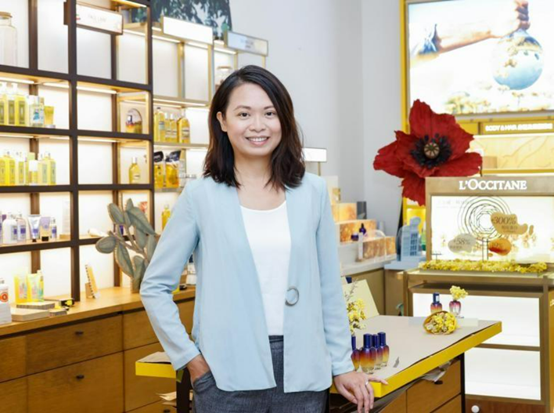
Venisa CHU, Full-time MBA alumna (Class of 2012), discusses how she discovered her mission as her true calling in sustainability through the MBA program.
As the Regional Sustainability Director of Asia Pacific for the L’Occitane Group, Venisa oversees sustainability strategies across nine diverse markets, aligning APAC with the group’s global sustainability vision. Having started her career in the technology industry, discover how Venisa found her true calling in sustainability through HKUST’s MBA program.
Discovering a New Career Path
“I’ve always been drawn to sustainability without knowing it,” Venisa says, recalling her student years, where she volunteered for causes that resonated with her. With a background in electrical engineering, Venisa embarked on a diverse career journey across various industries, spanning North America and Asia. Yet, her career choices consistently prioritized driving positive societal change.
With nearly five years of corporate experience, Venisa enrolled into HKUST’s MBA program – a choice driven by her curiosity of business decision-making processes. However, the true epiphany occurred while exploring her career options during her MBA. Through business case study discussions in class and participating in case competitions, she realized sustainability was a great career option for her combined skills. “It’s like general management. You need to know how each corporate function works to propose relevant sustainability actions for each of them.”
Nothing is Too Difficult
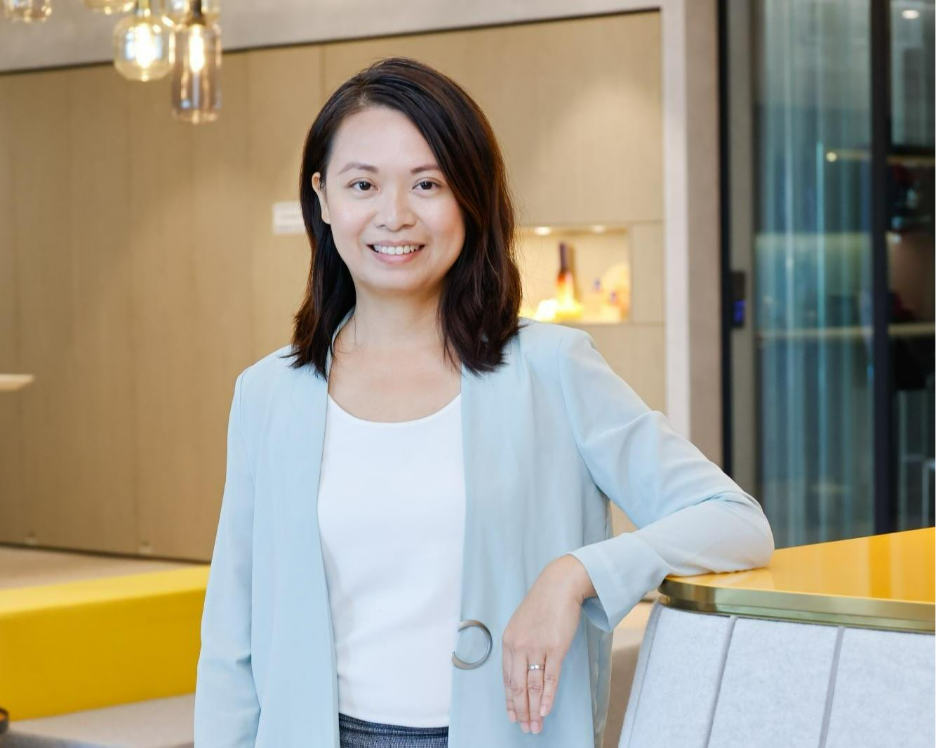
Reflecting on her career leaps, Venisa credits her supportive network as crucial to her growth. In sustainability, where existing solutions often don’t align with specific roles or companies, mentorship plays a crucial role in innovation and resourcefulness. Throughout her career, Venisa’s mentors have consistently encouraged her to remain open-minded and explore new opportunities.
During her MBA, Venisa purposefully embraced new experiences by joining various student clubs. She also attended finance classes to gain a better understanding of various business functions, even though finance wasn’t her forte. “My mentors gave me the confidence to attempt the seemingly impossible,” she says. “In sustainability, you have to think like that in order to make bold steps.”
Read the full interview on HKUST Business School Alumni Kaleidoscope
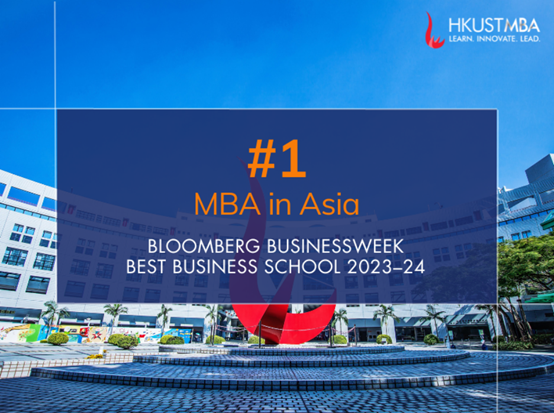
HKUST Business School is thrilled to announce that its MBA program has been ranked as the #1 MBA program in the Asia-Pacific region by Bloomberg Businessweek. This recognition reinforces the School's commitment to excellence in business education and highlights its significant impact on the regional business landscape.
The ranking, based on rigorous evaluation criteria, aligns closely with the MBA program’s core objectives, including preparing students for long-term career success and impact, fostering a culture of continuous learning, and developing innovative and influential leaders. It also recognizes school’s efforts in connecting students with esteemed alumni and corporate leaders, further strengthening the program's network and enriching the learning experience.
"Our school is grateful for the support offered by our alumni and corporate partners and is pleased that our community is honored in this way," said Professor Stephen Shih, Associate Dean of the HKUST MBA Program. "This recognition reflects the dedication and hard work of our students, alumni, faculty, staff, and corporate partners. This ranking is relevant for us because the criteria used align with many of our own objectives, such as preparing our students for long-term career success and impact, promoting a culture of learning, connecting students with alumni and corporate leaders, and developing innovative leaders."
While we appreciate the insights provided by this ranking, our focus remains strongly on our students and our mission: Developing Leaders in Asia for the World. Our priority is to equip our students with the knowledge, skills, and mindset necessary to navigate the challenges and opportunities of the global business environment.
For more information about the HKUST Business School MBA program and its recent ranking, please contact us at mba@ust.hk.
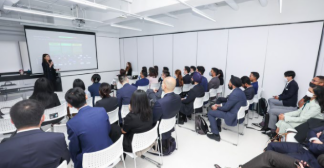
MBA Career Day
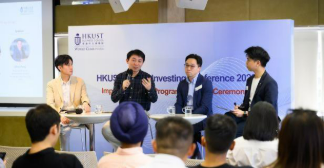
HKUST Impact Investing Conference 2023 - Impact Investing Club
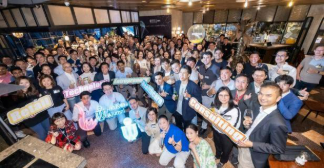
MBA Alumni Industry Mixer
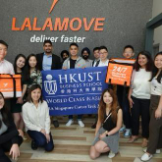
Singapore Career Trek
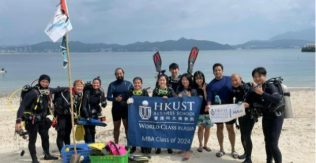
Dive With Debris - Social Impact Club
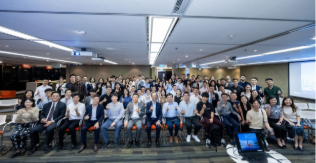
Executive Exchange - Chairman’s Edition featuring Mr. Antony Leung
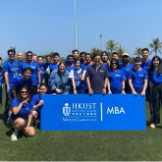
HK MBA Tournament 2023
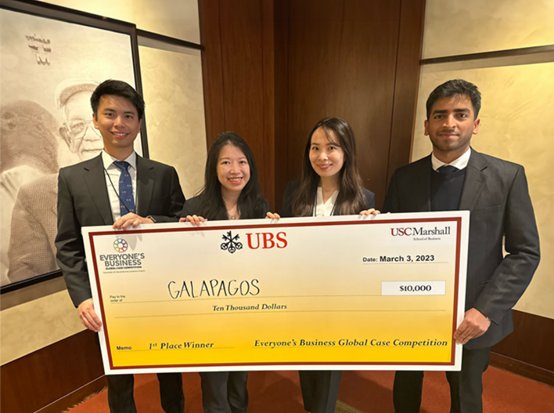
The USC Everyone's Business Global Case Competition is an enriching initiative for MBA students with a global focus. The winning team from our Full-time MBA Program, Mariya Kaneda, Kar Kei "Calvin" Chan, Wensi Chen, and Abhijeet Paul, tell us about the challenging learning experience.
What is the Everyone's Business Global Case Competition?
The Everyone’s Business Global Case Competition is an international event run by USC Marshall. The competition brings together teams of MBA students to tackle a real-world business problem. It gives students excellent international exposure in a pressurized, competitive environment.
This year the winning team was from the Hong Kong University of Science and Technology (HKUST) Business School! The team was comprised of Mariya Kaneda, Kar Kei "Calvin" Chan, Wensi Chen, and Abhijeet Paul.
The prompt for the challenge changes every year, but the judging system remains the same. Winning is based on the quality of the analysis, the feasibility of the solution, and the presentation's effectiveness.
This year's competition gave students the challenge of developing a digital client acquisition strategy for UBS Wealth Management. Applying fresh new strategies to the world’s largest wealth manager is difficult enough. However, the prompt also tasked teams with focusing on a specific US market segment: multicultural female entrepreneurs.
Winning required the HKUST team to create an effective solution that addressed not only the marketing issues but financial, digital, and also cultural issues.
How did the HKUST team approach the challenge?
With the prompt questions as a guide, the HKUST team began researching their market, target clients, and UBS values. After creating key connections that addressed both the challenge and client needs, the team from HKUST designed the Cherish App.
Cherish App’s niche lay in enabling UBS to attract their target clients by providing philanthropy management services. The team's research demonstrated that these services are disproportionately valued by multicultural and women investors.
One of the key requirements was to have a free app that would help UBS build trust. However, from a strategic perspective, the team wanted not only to broaden their reach to potential clients and also to provide data-driven insights. Cherish App was initially made up of:
-
Philanthropic donation tracking
-
ESG insights on how money is being spent
-
Fitness tracking
However, the team ultimately prioritized UBS’ key competencies and dropped the fitness tracking element. As Abhijeet Paul recalls, this would be a shrewd choice. “The decision-making process helped us deliver a better presentation in the end,” he says. “This was something even the judges acknowledged when we were doing the final presentation.”
Therefore, the team’s initial research into UBS Wealth Management’s core values paid off, and their approach was looked upon favorably by the judges.
Overcoming challenges with a data-driven strategy
The team’s success is even more impressive considering the difficulties they faced from the outset.
Firstly, the team lacked experience in digital transformation, which made finding a solution for digital client acquisition especially challenging. However, with just three weeks to prepare and in the midst of a fast-paced MBA, there was an opportunity to get ahead. There was a wealth of knowledge available right in HKUST to tap into.
Their technology and marketing professors were more than happy to answer questions and share their knowledge. Calvin says, “This quick-learning guidance really helped us to steer in the right direction and made progress much smoother.”
Added to that was the cultural challenge of studying in Hong Kong but working for a US-based client. As the only team from outside the United States, the team needed a cultural crash course to be competitive. They conducted extensive research including interviews with people familiar with the diversity issues in the US and wealth management. This research really helped the team understand a new market and to develop a winning solution.
Looking back on the sheer amount of work needed to succeed, Calvin summarizes the experience. “The situation proved to be a very steep learning curve for all of us. We had to put in very long hours to meet the deadline including working on the flight to Los Angeles.”
The role of the Enhancing Professional Skills course in the team’s success
In addition to the short-term push that won the USC Everyone's Business Global Case Competition, the team also drew the core element of their MBA program. In particular, the Enhancing Professional Skills course at HKUST. This one-week intensive workshop serves as an accelerator for students’ presentation skills.
“It includes specific training sessions,” the fourth team member, Wensi Chen, says. “For example, elevator pitches where we learn how to grab the audience’s attention within the first 60 seconds of a presentation, and a Q&A session where we learn how to anticipate and respond persuasively to questions.”
The week ends with a learning-through-competition model, making it an ideal training ground for future case competitions. By coincidence, they used a prompt from the previous year’s Everyone’s Business Global Case Competition which this team also won.
The constructive feedback provided valuable insights for the team to improve their approach. Knowing which presentation techniques work and which don’t laid the foundation for the USC competition strategy. However, Calvin adds, “One of the best takeaways of the EPS week was the confidence booster.”
Lessons learned from winning the Everyone's Business Global Case Competition
While the top prize for the competition was a $10,000 check, the personal and professional benefits stretch much further. The exposure of traveling to California expanded the team’s network to a vast range of USC faculty and judges who held executive director positions at UBS. The team and the UBS judges got to talk after the competition as well.
“We discussed ideas,” says Abhijeet. “They even came to a point where they were suggesting us to build the app for them, so I think it was overall a very positive experience.”
Mariya offers a more personal takeaway. “Most importantly, it was a wonderful experience collaborating with my teammates who are from different parts of the world and from different cultural backgrounds.”
Through the competition, the team got to open their eyes to different perspectives that made them re-evaluate their knowledge.
Experiences such as the USC Everyone’s Business Global Case Competition compound what HKUST MBA students learn in the classroom. Aside from the aforementioned skills and confidence it brings participants, it is a conversation starter at networking events and interviews. Winning is proof that they’re able to succeed under pressure and in unfamiliar situations.
If you’d like to speak directly to our students about their experience at HKUST MBA, click here to chat with our ambassadors.
View their interview with MBAGRADSCHOOL on YouTube:

Insights for doing business in China
Chris Pereira spent the better part of two decades conducting business in China. Before leaving, he got his MBA from HKUST Business School. He shares with us his insights from his time abroad.
Challenges of doing business in China
The Asia-Pacific region will take the economic spotlight from North America and Europe in very little time. Understanding how business is done in places like mainland China and Hong Kong will be the key to long-term success.
Companies moving from East to West, or West to East have to contend with vastly different social and legal landscapes. Staying compliant with regulations is a massive challenge that requires specialized knowledge. Additionally, a lack of cultural understanding can be particularly challenging. As a Canadian who lived in China for 15 years, and now based in New York, Chris is one of the few East-West business specialists.
In his professional life, Chris has always served as a bridge between cultures. He found a place in translation and cross-cultural communication roles in Chinese companies. After completing his MBA at the Hong Kong University of Science and Technology Business School (HKUST), he could take things to the next level and start his own company. Chris is now the founder and CEO of Impact, helping businesses from the Asia-Pacific region with PR and marketing in Canada and the US.
Chris shares with us his insights into doing business in China.
Designed in California, Assembled in China
The relationship between business in the West and China is complex and multifaceted. China opened its doors to global businesses to urbanize its population and lift millions out of poverty. For decades, the main interest of westerners doing business in China was to set up manufacturing facilities. For example, Apple became the most valuable company in the world thanks to the favorable manufacturing conditions in China. It was a win-win scenario, with western capital accelerating Chinese development.
Chris has experienced the rapid development of China first-hand. As an English literature student back home in Canada, Chris first developed an interest in Asia. He soon recognized biases when he first went to China in 2004.
“I was expecting to see a very rural, agrarian society. Seeing a lot of farmers working on that rice fields, that sort of thing,” Chris says, “but when I got to Beijing, I remember looking out at the skyline from my first hotel, and there were literally hundreds of cranes working on buildings. The city was growing up as I was watching it, basically – enormous growth and a lot of opportunities. Something clicked in my mind to say, ‘Hey, I think I should stay.’” (3:55)
Chris turned his thoughts into actions. He enrolled as a Chinese Language and Literatures student at Zhengzhou University, became fluent in Mandarin, and stayed for another 15 years. He was well-positioned to witness the further transformation of the 21st-century Chinese economy.
Designed in China, Made in China
China leaped from an agricultural to a modern industrial economy in record time. It is now the second-largest economy in the world, behind the United States, and will soon be the largest. Chinese businesses are reaping the rewards from the lessons learned from working for others.
Over the last 40 years, it’s become possible for a city like Shenzhen to go from a fishing village to a “metropolis Tech Capital, the Silicon Valley of China.” (1:55)
While China is still a manufacturing powerhouse, it is also giving western businesses even-footed competition in the tech industry as home-grown firms expand to the global stage. TikTok has overtaken Meta’s Facebook and Instagram in popularity among teens. It’s likely nothing short of government intervention will reverse that trend as social media moves away from written to video content.
Is doing business in China getting harder?
Western businesses are finding it harder to do business in China as they face competition that was there years ago.
Still, business is about creating a win-win situation for stakeholders. With rapid advancement comes new avenues for joint ventures between Chinese and western businesses. It can be hard to find a winning solution when there’s a lack of trust. But when trust is there, you’ll be inclined to understand intentions before jumping to the wrong conclusion.
Of course, how trust is built changes between cultures.
As an example, Chris shares an anecdote of a time he was at a business dinner with a Canadian in China. “The Canadian sat next to the Chinese business partner. And the Chinese business partner, because he was welcoming his guest … took some food from the middle of the table and put the food onto the Canadian’s plate.” The Canadian felt like he was being treated like a kid who didn’t know how to use chopsticks.
In reality, the Chinese business partner meant to show the utmost respect. Chris explains the action as “I care about you, I’m going to get your food for you first before I give it to myself.” (24:26)
Designed in China, Made in China
Hong Kong, in particular, has played a crucial role in facilitating the flow of business between China and the West. Its unique history and political status positioned it as a bridge for outsiders to mainland China. As such, many foreign companies have headquarters there. With the influx of capital comes an influx of talent that’s further developed by some of the best universities in the world.
“Hong Kong has reinvented itself many times over the last few decades. Hong Kong never has it easy, whether it’s from geopolitics or an economy altered, there’s always challenges,” Chris tells MBAGRADSCHOOLS. “In some ways, the experience of Hong Kong is the experience of an entrepreneur. The harder challenges you face, the stronger and better you get over time. And I think that that’s why Hong Kong is strong.” (14:00)
Innovation is part of Hong Kong’s nature, culture, and people. That’s evidenced by the thriving entrepreneurial scene, which was home to 18 unicorns in 2021.
The local government plans to maintain its attractive position well into the future. The InnoHK initiative will commit over US$1 billion to its development as an innovation hub with deeper connections to the mainland. The initiative sees the government, industry, and schools like HKUST working together to support early-stage start-ups.
HKUST creates a network of entrepreneurial alumni
Chris enrolled in HKUST Business Schools’ MBA program because he knew they’d prepare him for running his own business. Though, his takeaways didn’t end with increased business acumen. “I think what I got out of HKUST was much more than I thought I would, and more than I expected.” (2:52)
One unexpected lesson was how important building trusting friendships with classmates is. Being surrounded by ambitious people who worked hard pushed Chris’ ambitions to new heights.
“The relationships that you develop, doing homework with your classmates, working on different projects, hearing what they’re doing in their careers. That opens up all kinds of new ideas,” Chris explains. “So when you go into the MBA you think you’re going one way but when you meet the classmates that are with you, who are also ambitious, are working in the middle of a growing career also, that can lead to so many new ideas.” (8:46)
The classmates and alumni of HKUST became Chris’s role models as he jumped to become an entrepreneur. The network proved invaluable as they introduced talent to hire, and provided feedback along the way.
“I asked a bunch of my classmates who are in finance, ‘Hey, can you look at my pitch deck?’ Because I’ve never made a pitch deck before, I’m not a finance guy,” Chris shares. “So I got feedback from them. They said, “It’s terrible, rewrite it. Make it again.’” (13:10) Chris credits time doing homework together as the reason why he was able to get so much honest, critical feedback.
Interested in doing business in China?
Despite the challenges, the connection between business in the West and China remains strong. If you’re interested in doing business in China, Chris can’t recommend a better place to start than doing an MBA at HKUST. The university’s network of alumni and location in Hong Kong make it a great place to start a new chapter of your career.
Be sure to reach out to other HKUST alumni from their ambassadors page.
Watch video:
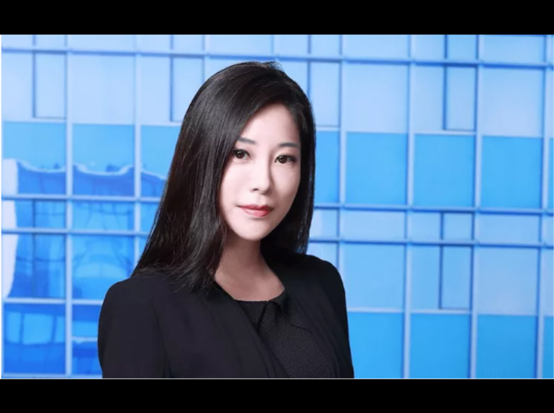
Mia Cheng used the transferable skills and network she gained at the HKUST MBA to pivot her career from aviation management to managing investments at a mid-sized family office.
While many people's MBA journeys are linear, upskilling to progress their current career, some choose an MBA to gain transferable skills that allow them to switch career paths.
This was the case for Mia Cheng, who, after a three-year career in aviation management at a Taiwanese technology company, chose to pursue an MBA and look for new career opportunities.
The HKUST MBA honed her skills and elevated her resume so she could pivot to a new career in managing investments for a family office in Hong Kong.
Enrolling in an MBA to switch careers
Mia always loved interacting with people from different backgrounds; she chose Hotel and Restaurant Management for her bachelor's degree at Fu Jen Catholic University in Taipei, where her dream job was to be a flight attendant. After graduating and completing an internship in the hotel industry, she joined Qatar Airways.
After three years in the Middle East, Mia joined a diversified Taiwanese technology company. Her aviation experience led her to managing the company’s fleet of private jets.
“Aside from managing the fleet of private jets, I also provided strategic and administrative support to overseas infrastructure projects, reporting directly to the Chairman," Mia says.
These experiences inspired her to upskill to give her more authority as a manager, and increase her chances of improving her career trajectory.
"I wanted to develop my understanding of finance to support my decision-making as a manager. So, after three years with the company, I started considering my next step," Mia explains.
Mia joined events held by the HKUST MBA alumni network and spoke to MBA consultants. Most importantly to Mia, a Hong Kong business entrepreneur spoke about HKUST’s local brand recognition and broad network, which solidified her decision on HKUST.
"He shared how the network and employability of HKUST graduates could help a career switch. That’s why I chose HKUST to break into the Hong Kong market."
Gaining transferable skills
HKUST caught Mia's eye when she noticed its EMBA consistently ranked number one worldwide. While she didn't have the experience to join the EMBA, the MBA's elective courses and diverse classes captured her attention.
"HKUST has a broad set of courses in various industries and an overseas exchange program that gives students the opportunity to explore. Apart from the course selection, the diversity of the class was also attractive to me to build a global network."
The HKUST MBA boasts a diverse international student body from a range of backgrounds. Of the 2021 intake, 89% were non-local and came from professional backgrounds, such as consulting, engineering, and analytics. The alumni network—which Mia utilized to hone her application— represents countries across the world, including Thailand, France, Germany, and the United States.
During her time at HKUST, Mia's skillset expanded significantly. Courses and an exchange at Yale SOM gave her the knowledge and techniques she used first in her Investor Relations internship at a hedge fund, and then in her current position.
"The MBA courses in Corporate Finance, Family Business, and Value Investing helped me adapt to the finance industry," Mia says. "The knowledge and case studies help me to solve problems and enhance my on-the-job learning."
However, Mia has found the personal skills she gained at HKUST to be the most valuable.
"The most important takeaway was on the soft skills side. The diversity of the class’s backgrounds, made me realize if I want to reach an agreement, I needed to move from a competitive mindset to a cooperative mindset."
Starting her career in finance
During her MBA, Mia was given numerous opportunities to make connections and establish a network in her new career. During an internship in Investor Relations, she built up her network in Hong Kong and gained industry insights.
She also accessed the HKUST MBA career service, which increased her network and career-focused skills.
"There is a wide variety of networking and training events for popular industries, which allows for individualization. Each full-time MBA student had access to career coaches from different backgrounds. I found that the mock interviews I had with my coaches very helpful when applying for jobs."
Mia gained her position through the COO of the family office, an HKUST alum, contacting her through LinkedIn. After an interview, she was offered the job. Now, she uses her transferable range of skills at work.
“It’s not only about having the specific technical skills, but also the people skills and a growth mindset: dealing with unfamiliar problems logically, good managerial communication, and consistently reflecting upon what I learned from HKUST MBA,” Mia explains.
The family office, a wealth management company, has investments across different industries, including public and private equity, real estate, and biotech. The founder is a Harvard PhD and a macro hedge fund manager. Mia works supporting the team in all issues - investment, non-investment, and organizational.
Having gone through the career-switching process, she points to three things that allowed her to learn and flourish in her new path: active networking, persistence, and being open-minded.
"I was unsure about which industry I would land in post-MBA, and I had not even thought about joining a family company. Keeping an open mind allowed me to gain insight into the sector quickly, maintain different options, and choose this role."
Source: BusinessBecause
Chat with our students: Chat with Our Ambassadors | HKUST MBA | Learn. Innovate. Lead.
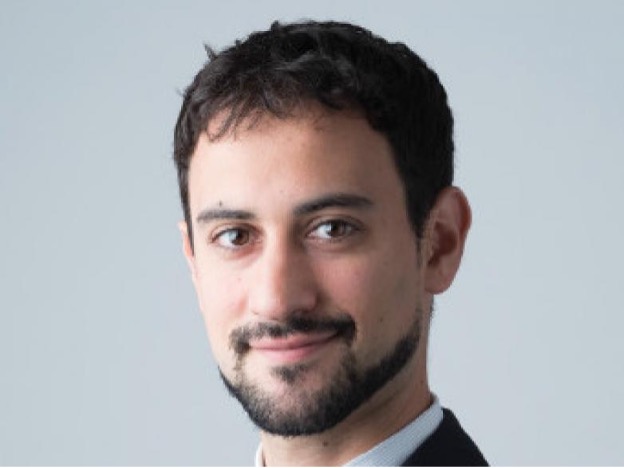
Michele Valente used his MBA at HKUST Business School to pivot his career to consulting within Europe.
Pre-MBA: Senior Business Intelligence Analyst, Canon
Post-MBA: Consultant, Bain & Company

Could an MBA in Asia help you get hired in Europe? It worked for this HKUST Business School grad
MBA programs in Asia are experiencing what seems to be an unstoppable rise. With political turmoil in Europe and the USA acting as a deterrent, many students are turning towards China and Hong Kong to get a cutting-edge business education that will afford them global opportunities.
Indeed, although Asian MBAs are often looked upon by Westerners as portals to careers specifically in Asia, this isn’t always the case.
As Asia becomes a bigger and bigger force in business, it pays for students to have experience there—whether they plan on putting their MBA to work in Singapore or Spain.
In fact, for Michele Valente, a consultant at Bain & Company in Milan, his MBA at HKUST Business School in Hong Kong was a key step in pivoting his career within Europe.
Strategy training
“Before my MBA in Hong Kong I worked for two multinational companies in Europe, and I started to specialize in business analytics and strategy,” Michele explains.
“I wanted to deepen these subjects, as they were becoming more relevant for corporations, therefore I decided to look for a program which could give me a good background on these topics.”
Michele was attracted to HKUST by their strong focus on hard skills like analytics and strategy, and when he arrived at the school, he dove right in.
He soon found that one of the best ways to master the topics he was interested in was to go into consulting, and it wasn’t hard to find opportunities to learn.
“From day one I had the chance to network with bright classmates from consulting backgrounds and with industry experts—from companies coming to campus as well as lecturers,” Michele says.
“I learnt about the consulting approach to problem-solving, and I figured this was exactly what I needed to learn in order to become a good strategist.”
Extra-curricular engagement
This abundance of exposure opportunities is partly thanks to Hong Kong’s strength as a business community, as the city is home to everything from big finance firms to small tech startups.
However, experts coming to campus wasn’t the only way that Michele managed to deepen his knowledge of the consulting field.
On an organized trip to Singapore, students on the HKUST Business School MBA got the chance to meet business leaders in one of Asia’s most buzzing business hubs, and Michele even got to speak to the managing principal of a consulting firm, who advised him about how to move forward in his career.
After that, things moved quickly. Michele applied to a summer internship position to a consulting firm and was accepted.
“The summer internship became a chance for me to learn about consulting projects, and for this company to learn about me,” he says. “At the end of this period I got a full time offer and came back to work for them at the end of my MBA.”
He stayed in that role for two years, before his experience landed him his current role at Bain & Company.
This is much of the value of the MBA in Michele’s eyes: the boost that the program offers to students from any career background, with any career ambitions for the future—even outside of the classroom.
“For example, my MBA program organized a day to create school clubs,” he recalls. “The consulting club was one of the main clubs, and it was led by students. We organized case cracking and practising sessions with experts and with students—this was extremely useful for my preparation for interviews.”
An essential network
For anyone with ambitions in consulting, whether that’s in Asia or abroad, Michele sees an MBA at HKUST Business School as a great opportunity to advance that goal, and recommends that students seize it with both hands.
Though the MBA might be based in Hong Kong, the school and the businesses that move around and through it have connections and challenges that are globally-relevant, and the chance to network in this environment is a clear asset.
“Talk to people from day one,” Michele advises, “especially to those working and coming out of consulting, and find out if consulting is what you really want to do. It's a very interesting job which gives strong basics to problem solving and data analysis, but this often comes with big cons, such as continuous travel and a not-ideal work-life balance.
“Usually if you come from an MBA you are in your 30s, and your priorities may be other than staying in the office until 3am for a due diligence for 3 consecutive weeks...”
For Michele, however, this doesn’t seem to be a problem—now back in Milan, his career is on a steady climb.
Source: Business Because
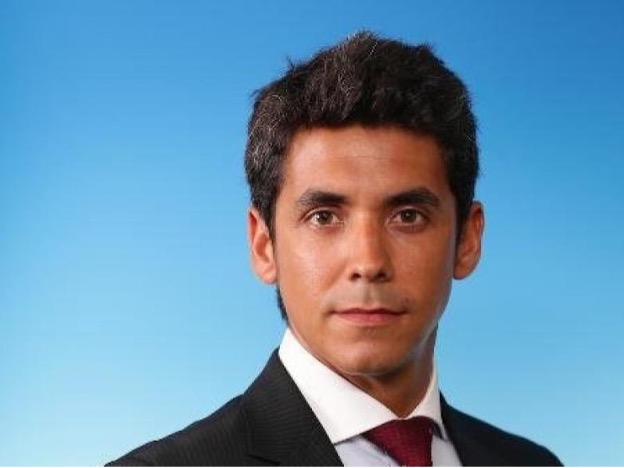
Hugo Tapia Frade went from finance in Spain to retail in London after his MBA from HKUST Business School—here’s how he managed it.
Pre-MBA: Audit Senior II, Deloitte
Post-MBA: Project Manager, Group Business Development,
Hackett London
Current: Head of Consumer Strategy and Planning - Group Business Transformation, Hackett London
Making the leap into a new industry can be one of the most daunting moments of your career. You spend years building up experience in one specialism, progressing further up your own path; contemplating the leap sideways into another can feel like blind faith.
However, with the right transferable skills, your existing experience can take on a new meaning in a different industry, and the shift can broaden your horizons.
This is the goal of many who are looking to make a switch in their careers, and one reason why they may turn to an MBA.
For Hugo Tapia Frade, head of consumer strategy and planning at Hackett London, his MBA at HKUST Business School was an opportunity to supplement his background in finance with broader business knowledge.
He’d previously worked in financial audit at Deloitte in Spain, so he’d had exposure to the products and services industry before, but he wanted to look at the bigger picture around corporate strategy, supply chain management, and marketing.
Perhaps most importantly, he wanted to get outside of his comfort zone.
“I chose HKUST in part because, as well as being one of the top programs in the world at the time, from a personal point of view I thought it would be much better for me to go to Asia and leave with that experience, rather than going to Europe or the US,” he says.
Global insight
Hugo knew that broadening his experience from finance in Spain with a generalist education on the other side of the world would set him up perfectly to pivot his career after the degree, as experiencing business in another culture would open his eyes to new ways of communicating and managing a team.
Hong Kong, as a business hub on the boundary between China and the West with strong connections to tech and finance, was the clear choice.
As for HKUST Business School in particular, it was the quality of the professors’ professional backgrounds that swung it for Hugo, alongside the international character of the MBA cohort.
“I thought it would be an opportunity for me to get to know people from different parts of the world,” Hugo recalls.
“For me, it’s been a great journey, honestly,” he says now. “It was a great experience, very intense, and I got to know Asia from a cultural point of view, which opened my mindset quite a lot.
“When I came back to Spain, I saw that I was a much more open-minded person than before.”
Strategic training
As well as the personal development that Hugo experienced on the MBA, he also enlarged his professional skillset with strategy training.
“I chose the strategy track, so of course it was very finance-orientated, but I chose to study a lot of marketing,” he says.
This was instrumental in switching the track of his career once he returned to Europe.
“When I came to London and found the job I have now, it turned out to be a perfect match, because of my industry background plus the mix with the finance and strategy teaching from the MBA,” he says.
In more ways than one, Hugo’s time at HKUST Business School broadened his horizons, and he has been reaping the benefits since graduating.
“As a whole, your mindset changes completely, and the way I approach things has nothing to do with the way I did it before,” he says.
“I’m able to see a far bigger picture—before I was very into numbers and accounting, and now I can see business issues I wouldn’t have been able to see previously.
“Basically, I was able to add a layer on top, which is more valuable and influential.”
For European students like him who are hoping to make the leap in their careers and try something new, HKUST Business School comes highly recommended from Hugo.
“I would recommend Hong Kong to any Western student, because of the mix of cultures that you get there, as well as the quality of the MBA” he confirms. “I don’t think you can get that in any other place in the world.”
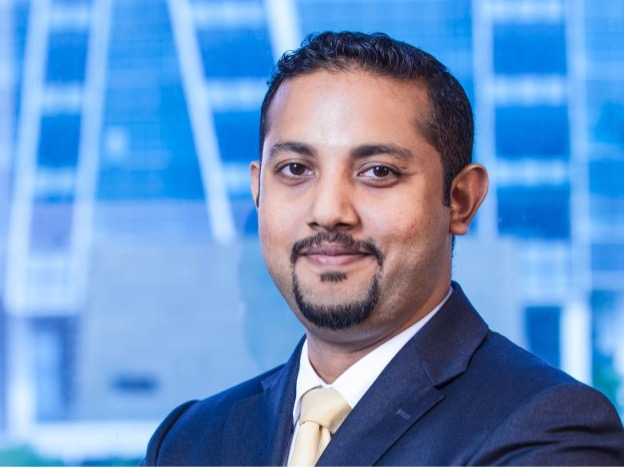
Akhil landed an internship with support from the HKUST MBA career office, which was converted into a full-time job offer.
Pre-MBA: Operations Manager (Second Officer), Anglo Eastern
Post-MBA: Regional Supply Chain Manager (Asia Pacific), Methanex Corporation
Akhil landed an internship with support from the HKUST MBA career office, which was converted into a full-time job offer. Now working at the regional headquarters of Methanex, one of the world's largest chemicals corporations, Akhil shares why he chose Hong Kong to do an MBA and how the journey prepared him for his new role as the Regional Supply Chain Manager of APAC.
1. Why did you decide to do an MBA at HKUST and in Hong Kong?
What attracted me to HKUST was the focus on small class sizes lending to a more personal overall experience, as well as a conscious effort to maintain an internationally diverse cohort each year.
In addition, something that may not be known as obviously about the HKUST MBA program is its reliance on business case studies to deliver a substantial part of the curriculum, which was attractive to me and was my preferred mode of learning.
There is also a strong focus on participation and excellence in business case competitions across the globe. The program and the faculty dedicate significant time and effort in creating an environment for case competition teams to thrive in—something that I feel really gives the HKUST MBA an extra edge over some of the other Asian programs.
Having been in the shipping industry before my MBA, I was well aware that Hong Kong would be a natural choice for me to build out a career in related industries post MBA. It is also one of the great world cities and a gateway to the China market—a market that no company in any industry can ignore in this day and age.
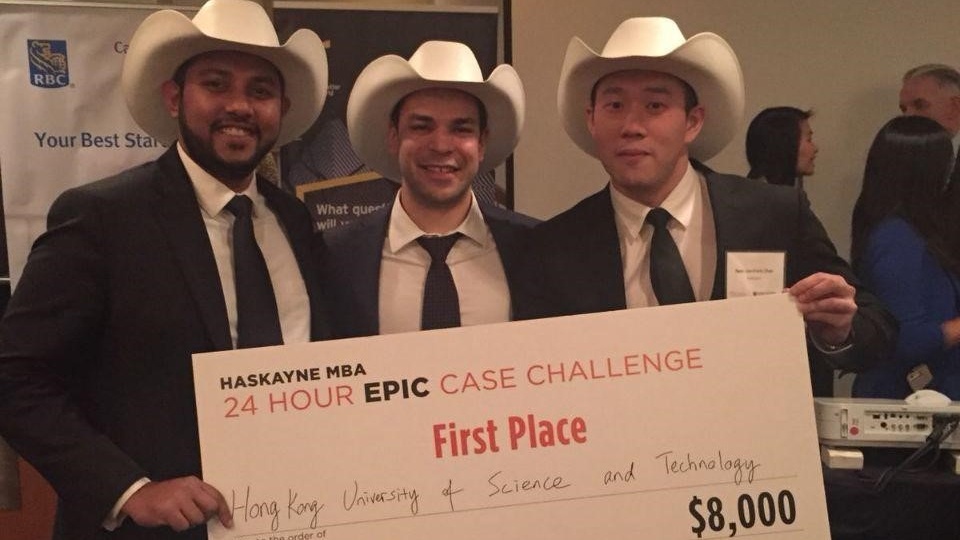
Akhil (1st from left) and his team winning the first place at the Haskayne MBA 24 Hour Epic Case Challenge in Canada.
Read more: http://mba.ust.hk/files/Story/story_alumni_Akhil.html
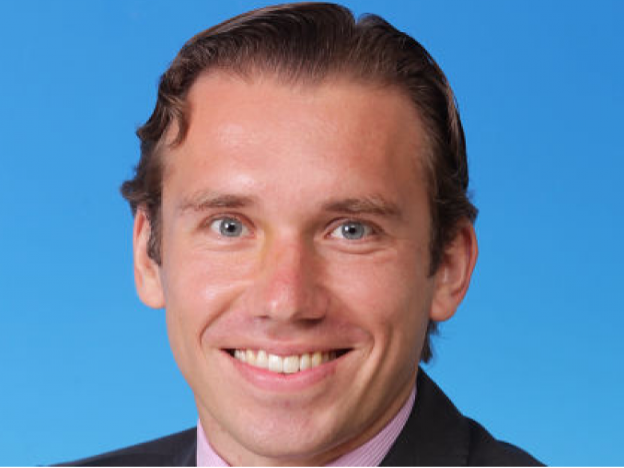
Tomas Kucera changed careers and relocated from the US to China with an MBA at HKUST Business School in Hong Kong. He tells us why more people should do the same.
Pre-MBA: Business Analyst, The World Bank Group (US)
Post-MBA: Senior Consultant, 7Marketers (China)
Current: Senior Branding and Business Development Manager, Shanghai Foreign Service Group (China)
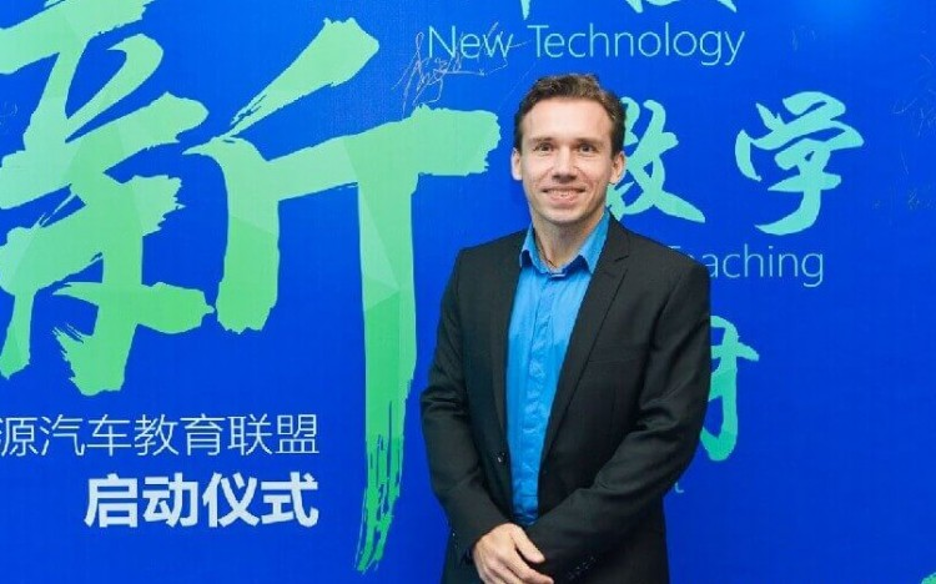
Thinking of making the move to China? This HKUST MBA says you should take the leap
When Tomas Kucera first quit his job as a web consultant at the World Bank in Washington DC to travel to China, it was only supposed to be for a few months—just long enough to learn Mandarin in Beijing.
Tomas had worked in DC for several years. His interest in Asia had been piqued after travelling there on vacation, and his trip to Beijing was intended to indulge that.
However, it just made him hungrier for more.
The experience made him realize how few people outside of China could actually speak the language or understand the complex business climate in the region, and he knew there were opportunities there for someone with his skillset and business experience.
When he came back to the US, his mind was made up: he was going to move to Asia, and he chose the MBA at HKUST Business School in Hong Kong to help him do it.
Now, 10 years on from first resigning his post at World Bank, Tomas is working for a Chinese industry leader in Shanghai as a senior branding and business development manager, joining the 80% of HKUST graduates who go on to find a placement in Asia.
In fact, Tomas’s MBA experience allowed him to land the coveted MBA triple-jump—switching industry, job function, and location in one fell swoop.
From pursuing projects on the MBA’s Consulting and Strategic Management Career area, to visiting as many as 25 companies around China—Tencent, Baidu, Lenovo, and Huawei, to name a few—the MBA at HKUST gave Tomas the tools and connections to make a successful transition.
He even got to experience life at Tsinghua University in Beijing through the school’s extensive exchange program, an opportunity that gave Tomas an important insight into life in mainland China.
We caught up with him to find out about life in China, and how the MBA at HKUST helped him craft his desired career.
How did studying in Asia live up to your expectations? Did anything surprise you?
The sheer speed at which the MBA moved was a something I had to get used to, but I was pleased with the high quality of my professors and classmates. HKUST’s MBA program was very international, similar to the World Bank, and I really enjoyed learning more about the region and experiencing it first-hand.
By the time I landed at HKUST I knew a lot about China and Asia and could speak basic Mandarin, which helped me get around the city.
What was the most useful part of the MBA for your career?
I think the most useful part is the HKUST brand—it’s a top Asian MBA that one gets to put on a CV. That has opened doors and I think helped me get jobs and better salary.
In addition, it’s the contacts—both among MBA classmates and EMBA alumni, you get contacts that you can utilize even in Shanghai. It’s the community that one gets thanks to the MBA.
What's the best thing about living and working in Asia? Would you recommend it to others?
The best thing about working in Asia and, in my case, China is seeing new trends and new technologies become reality before they come to other places.
China has come to the forefront in many technologies, such as mobile payments, the sharing economy, and new energy vehicles—it’s exciting to experience that before others, and it is special to live in a society that is used to change and is still fast-improving.
I also enjoy traveling and exploring the different cultural aspects that China and Asia [in general] have to offer.
Over the years I have traveled to 20 provinces. China is very diverse and has lots of amazing things to discover, from the big cities to historical villages and natural landscapes, and the only way to truly experience it is to know the language and to live here.
So yes, I definitely would recommend it to everyone.
Source: Business Because
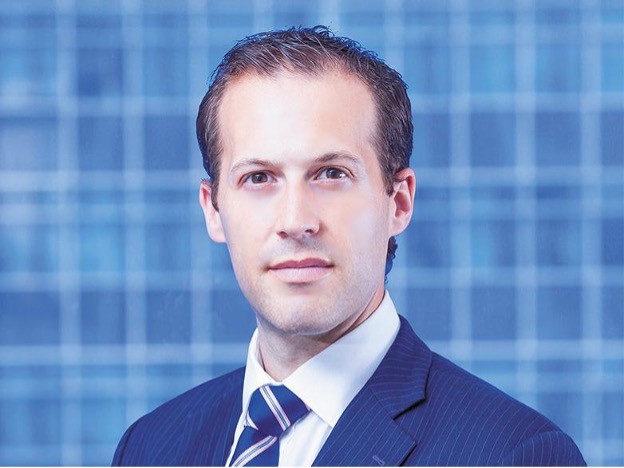
Sam Dash, Executive Assistant to the Group CEO at animal healthcare company Bimeda, was keen to change careers after spending seven years working in corporate finance, covering mergers and acquisitions.
Samuel Dash, Class of 2016
Full-time MBA
Europe
Sam Dash, Executive Assistant to the Group CEO at animal healthcare company Bimeda, was keen to change careers after spending seven years working in corporate finance, covering mergers and acquisitions.
His Master of Business Administration (MBA) from The Hong Kong University of Science and Technology (HKUST) helped him land a role in a management position in a new industry.
Dash says: “I wanted to make a step change. I enjoyed corporate finance but I decided for my long-term career path, it made sense to move into management.”
He thinks the skills he learned doing his MBA were key to enabling him to make this career change.
“In my current role, I assist the CEO with everything that comes across his desk. I have to be able to switch from thinking about finance to operations to long term strategy very quickly in order to provide the CEO with the best advice as possible.
“I think if I had come straight from finance into this role that kind of broad thinking would be very hard to do, as I would be considering everything through a corporate finance lens. I definitely think having an MBA will accelerate my progress in future.”
Having already spent two years working in Hong Kong, Dash was keen that his future career should be in Asia, and this was a key factors in his decision to do an MBA in the region. HKUST’s programme stood out from the competition for a number of reasons.
Not only did it have strong academic credentials, ranking as the leading global business school in Asia and making it into the Financial Times’ top 20 MBA programmes in the world for 12 consecutive years, but it was also very multi-cultural. When he attended an open day, he was impressed by the international mix of students.
“There were students from South East Asia, India, Korea, Japan, China and Europe.
“One of the things you realise very quickly in Asia is that it is a large place with many different cultures."
“Because HKUST has such a diverse class, you are networking with people from a variety of countries, and you get to understand their way of thinking, which is hugely important.”
He was also attracted by the flexibility of HKUST’s MBA programme, which offers students the chance to specialise in six career tracks, such as finance, consulting or entrepreneurship, or to customise the programme to meet their own career goals, choosing from more than 70 different electives.
Dash says: “From my point of view, the whole idea of doing an MBA is to get a broad management education, so I did subjects ranging from digital marketing to social entrepreneurship.”
The programme also offers language support for students who want to learn Mandarin.
“I would say if you do want to work in China or Hong Kong, having Mandarin to a conversational level is really key, especially if you want to be client facing” Dash says.
The MBA is taught through a mixture of lectures and seminars, case studies, simulations and individual and group projects.
Dash says: “Case studies are great because you get to cover a wide variety of industries and understand some of the problems that other leaders and managers are facing at those businesses.”
The university also encourages students to enter business case competitions at different business schools around the world.
Dash explains: “You get given a business problem and you have to come up with a solution and then present it to the company’s executives. With my team, I completed a marketing focused case study at Wake Forest University in North Carolina.
“It was a great experience and a really good way to apply what you have learnt in the classroom through an active scenario, and then have company executives grill you.”
Dash was particularly impressed by HKUST’s faculty, which included lecturers who had previously led a venture capital firm and been head of strategy at a major company.
“The faculty were very impressive and diverse. It was a really good mix of academics and industry professionals, which provides you with a good all-round point of view.”
He also thinks he learned a lot from his fellow students, who not only came from diverse countries, but were also from a range of different industries, including finance, accountancy, real estate and engineering.
“You learn so much from your peers when you are discussing case studies. You rely on each other’s previous work experience and knowledge to help you learn,” he says.
When it comes to finding a job, Dash says MBA students receive support from HKUST’s Career and Professional Development (CPD) team.
“They teach you how to get a job, working on things such as how to grow and develop a network, how to interview well, and how to find the right role for you, rather than just applying for every job.”
He adds that the CPD team also put together a list of jobs and internships on an internal portal, which is how he heard about his current position.
To anyone in Europe who is thinking of coming to Asia to do an MBA, Dash says: “Doing an MBA at HKUST is a great way to get your foot in the door and make that transition.
“HKUST is a great school and offers a lot of opportunities to be able to network and develop your career in Asia.”
He adds that Asia is a fascinating place to work, with huge amounts of growth.
“One of the reasons I moved to Hong Kong in 2013 was that I looked at growth in South East Asia and China, and thought, I really ought to be part of that.”
Source: eFinancialCareers
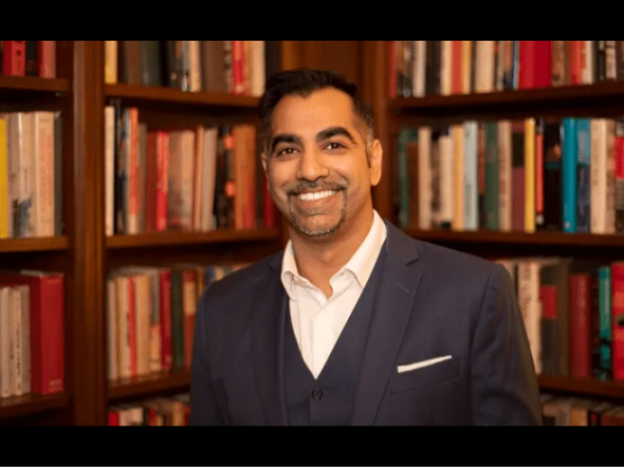
Gautam Khattak, Class of 2013
Full-time MBA
Asia
The HKUST MBA curriculum is designed to help grads launch careers in tech. 34% of 2019’s MBA cohort entered tech companies like Apple, Google, and more
Technology is overtaking banking and finance in Hong Kong as the most popular destination for MBA graduates from Hong Kong University of Science and Technology (HKUST) Business School. Up to 34% of HKUST MBA graduates entered the sector in 2019.
The MBA’s business technology course immerses students in artificial intelligence and data analytics, and a region of growing technological prowess offers plenty of opportunity for graduates. The business technology focus caters for the learning and employment needs of candidates from all backgrounds and levels of knowledge.
BusinessBecause caught up with HKUST to find out why MBA grads are flocking to careers in tech.
1. The region is a growing technological hub
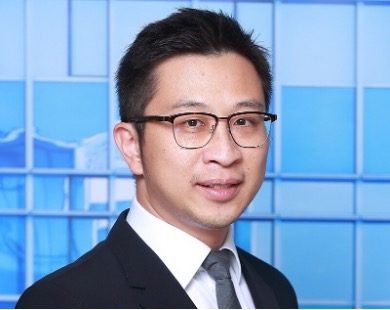
Christopher Yip (pictured right), the assistant director for MBA/MSc career and professional development at HKUST, explains that demand from tech companies in the region is growing.
Recent graduates have landed jobs with Apple, Tencent, Uber, and Google. Burgeoning tech companies like Gojek and ecommerce company Shopee are also hiring HKUST MBAs.
Despite the pandemic, companies are showing resilience too. Singapore’s Ninja Van, a parcel delivery firm, raised $279 million in a fundraising round in May. Christopher adds Unacademy, an edtech firm from India, also saw an increase in revenue in April. These developments present new opportunities for MBAs.
Then there’s healthcare. Companies in the sector have to adapt to an increasingly digitized world. “We have recently seen senior executives across Asian countries indicate that under the pandemic, companies intend to invest more in healthcare. That should give some hints to MBAs where they should head to in terms of opportunity.”
2. HKUST has strong partnerships with tech firms
In the past, HKUST has partnered for recruitment events with companies like Facebook, Apple, Google, Grab, and SAP.
And Christopher explains there’s a new addition to the school’s portfolio of corporate partners: Tencent. HKUST Business School has partnered with the giant Chinese tech firm to bring students fintech product management projects.
There’s also a multinational healthcare company that has growing operations in Asia and a partnership with HKUST. Christopher explains that this new partnership has been providing increasing opportunities for HKUST MBAs in the past few years, hiring them into strategy and marketing roles.
3. The HKUST MBA equips grads with technology skills
In conversations with Christopher, companies have increasingly expressed a desire for graduates skilled in data analytics with a good understanding of the breadth of technology currently being used in their firms.
Some courses on the HKUST MBA are co-taught by professors from the Department of Computer Science and Engineering. The school also offers flexible core courses in data analysis, programming in Python or R, and artificial intelligence, and international study trips have taken students to Silicon Valley to study entrepreneurship and innovation.
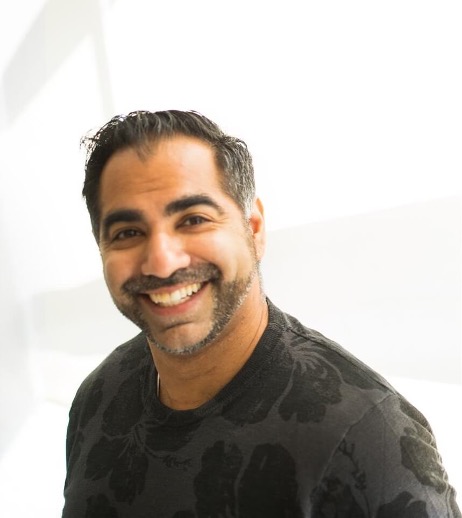
Soft skills are high on the agenda too, and students develop these skills at HKUST through group work, team projects, and working with companies during MBA internships.
Gautam Khattak (pictured right), an MBA graduate from HKUST, and now the vice president of information technology at Advanced Energy, credits the MBA for helping him combine his engineering experience with a strong business acumen.
“HKUST’s MBA program expanded my awareness and insights into aspects of the business I would have typically shied away from early in my career,” he explains.
“After the MBA, I applied my problem-solving abilities to business and organizational challenges (rather than just technical ones), driving not only improvements but transformations across multiple departments, which led to my advancement to a chief information officer position.”
Gautam went from being a niche engineering manager to being able to run cross-functional projects in ways that improved engineering, he explains, as well as other business areas like operations and marketing.
He doesn’t believe there is a separation between business and technology today. “The two are inextricably linked and, in order to have a successful business, one must develop a cohesive technology strategy.”
Understanding how technology is an enabler for every facet of business is not only a strength and passion for Gautam, but he believes it to be the key to creating value for a business today.
Knowing how to manage tech projects that incorporate multiple teams is vital. Christopher explains that HKUST is among the first business schools in Asia to offer Scrum workshops for students to get product management experience tailored for technology firms.
Scrum is a framework for project management that pushes teamwork, accountability, and step by step progress towards a well-defined goal.
4. There is personalized support for MBA students
Every full-time student on the HKUST MBA has one to one mentorship time with a dedicated careers coach from the program. They have regular meetings—now on Zoom—to talk about their ability, to identify their career goals, and how to reach them.
They work with employers to match candidates with suitable job openings. They make sure each student is able to leverage their MBA and to launch their ideal career.
MBA students also have an academic advisor who can help them tailor their curriculum to match their career aspirations. These two personalized coaches were rolled out for the MBA class beginning in 2020.
The academic advisor has at their disposal the strong flexibility of the HKUST MBA curriculum from which students can pick and choose their ideal career path. The business technology area is accompanied by courses in consulting and strategic management, finance, general management, and marketing. Students have over 70 flexible cores and electives to pick from.
All of this means that students from the HKUST MBA are well placed to enter careers in tech. For Gautam, the MBA also meant he was able to grapple with the challenges posed to tech by the COVID-19 pandemic.
“The COVID-19 crisis has shown that the need for rapid decision-making, problem solving, and systems thinking is more important than ever. These skills allowed me to handle the myriad problems that hadn't been considered even in the best business continuity plans,” he says.
“Being able to react fast, anticipate cascading effects, and quickly analyze data can make or break an organization. The MBA not only gives you a new set of tools but also a totally transformed mindset. Advantages like this can really help enable a leader navigate this dynamic landscape, blazing the trail through the seeming chaos.”
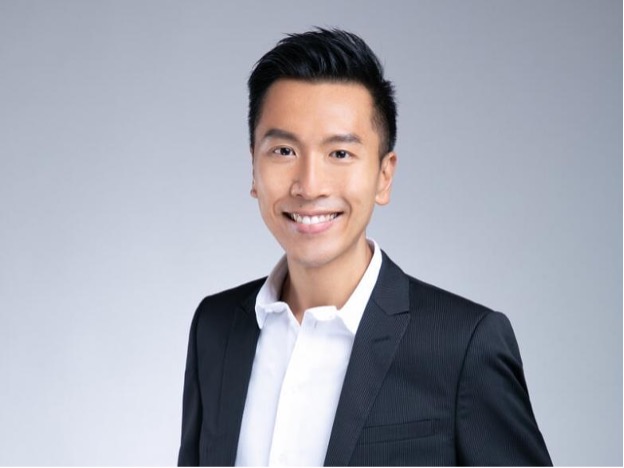
COVID-19 has hit the travel industry hard. HKUST Business School MBA, Aldric Chau, explains how top MBA talent can help the industry recover
When COVID-19 hit, the airline industry ground to a halt. Cancelled flights, dropping passenger numbers, and huge hits to revenue. The International Air Transport Association (IATA) estimates that globally between January and December 2020, overall seat capacity will be down 51-52%, passenger numbers will be down by nearly three billion, and revenue loss could hit $400 billion.
Part-Time MBA graduate from the Hong Kong University of Science and Technology (HKUST) Business School, Aldric Chau, believes that top MBA talent can help aid travel and other industries’ recovery post-pandemic.
He’s the head of retail, e-commerce, and travel partnerships for Cathay Pacific Airways, and has seen first-hand the impact COVID-19 has had on the industry. Digital transformation will become unavoidable for airlines as they reinvent their business models in the years to come, to modernize and deal with the fallout from the pandemic.
COVID-19 and the challenges facing the airline industry
COVID-19 means airlines can’t act in the same way they did in the past, and Aldric thinks it’s an opportunity for introducing step changes in the entire ecosystem.
“We need to think how we use digital tools to optimize the company going forward,” he explains. To maintain growth and adapt to the new economy, MBA graduates skilled in technology will be a top priority.
Aldric’s MBA at HKUST equipped him with the skills to solve complex business problems and adapt to a challenging environment, as well as the business jargon to work across departments. That meant when COVID-19 hit he was ready to act.

Whilst airlines’ passenger business took a huge hit when the pandemic hit, there are still opportunities in cargo and other parts of our operation, Aldric explains—“We had to be very agile and innovate, for example, we’ve started using the passenger cabins of our Boeing 777-300ERs to help transport medical supplies and meet the increased demand for airfreight.
“It has always been important to be knowledgeable in tech and to use that as a tool to sustain and grow our business, but I think after COVID-19 the pandemic has accelerated all types of business transformation.
“Businesses still relying on offline transactions, manual processes, and a brick and mortar business model have to change and adapt in order to survive in a COVID-19 environment.”
The benefits of the HKUST MBA
The HKUST MBA has developed since Aldric graduated into an MBA for the new era of business and tech.
A pre-MBA accelerator course teaches students Python programming; the school gives students the opportunity to deep dive into topics like artificial intelligence, big data, the Internet of Things (IoT), and fintech; and a new business technology and analytics career path leads students into the world of tech after graduating.
Aldric explains the MBA doesn’t just teach you the theory but backs up your education with case studies so managers can take the technical knowledge and use it in their organizations.
Because of HKUST’s academic focus on science and technology, there is also an overlap in the courses—faculty have balanced industry and research expertise. Professor Mordecai Golin, for example, has a PhD from Princeton University and his research focuses on the design and analysis of algorithms, computational geometry, and information theory.
Aldric also studied consulting skills for managers and was taught by Chris Doran, an ex-McKinsey consultant.
“We learned to better structure our thought process so when we’re tackling problems, even though the solution might not be the same each time, the thought process is the same, and is data and insights driven,” he says.
HKUST is focused on building a partnership with their students to give them the exposure, business knowledge, network, and platform to develop their career.
Every full-time MBA student from the cohort entering in 2020 will have a personalized academic advisor, and a career advisor. The MBA students work with their career coach to identify their career goals and how to reach them. The academic advisor helps each student tailor their curriculum to match their career aspirations—MBA students have over 70 flexible cores and electives to pick from.
The partnership Aldric built with HKUST allowed him to thrive post-MBA and deliver on digital transformation objectives for Cathay Pacific.
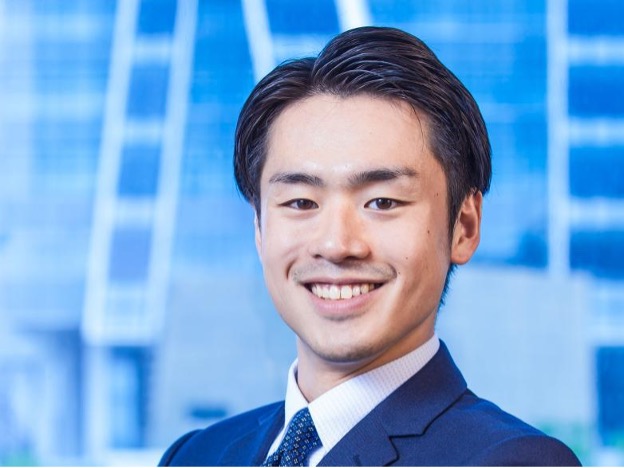
“We should get used to managing technology.” Takashi Kobayashi, our HKUST MBA graduate, also a sponsored nominee from a leading Japanese telecom shared how the MBA interlinks technology with different business sectors. Takashi has also recently expanded his career footprints from Japan to Singapore.
Pre-MBA: Account Manager, NTT Communications (Japan)
Post-MBA: Corporate Strategy and Planning, NTT Ltd. (Singapore)
Takashi Kobayashi,Class of 2019
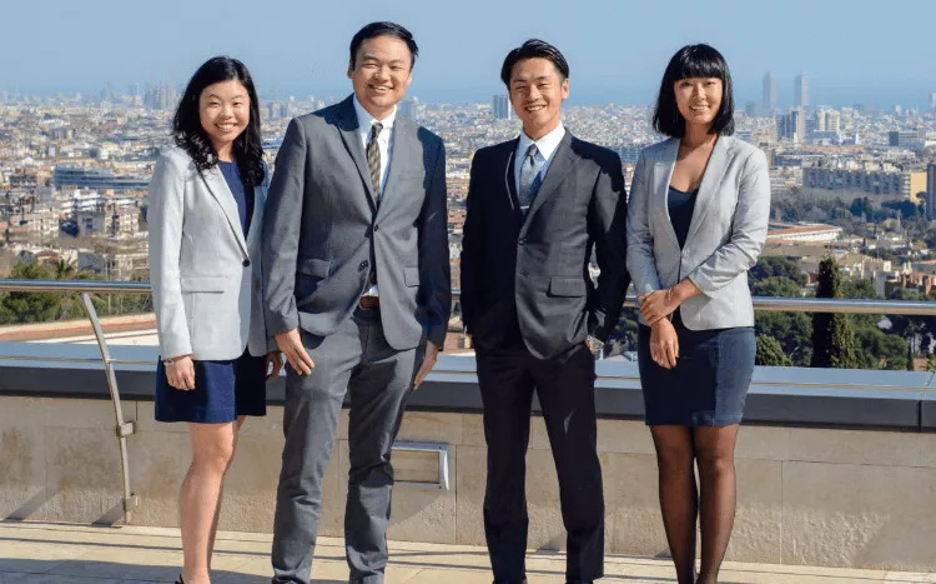
HKUST - Takashi (second from right) saw how business and technology come together on his MBA at HKUST in Hong Kong
Learning to manage technology is a fundamental skill for future business leaders. HKUST Business School in Hong Kong teaches MBAs about hot tech topics like blockchain and big data analytics
Learning about technology is key for MBA students today. If you look at the companies that dominate the public spotlight, you’ll find the names Amazon, Apple, Facebook, Alibaba, Tencent, and Google on the tip of your tongue.
If you also look at the list of top unicorns (private companies valued at over $1 billion), you’ll find technology businesses dominate. Do the names Didi Chuxing and Airbnb sound familiar?
The dominance of technology within business means that today’s MBA students need the skills to understand and communicate right across the tech stratosphere. If you look at the companies dominating today, you’ll also notice East and West coming together.
That’s why Takashi Kobayashi, an MBA graduate from the class of 2019 at Hong Kong University of Science and Technology’s (HKUST) Business School, chose Hong Kong for his studies. Hong Kong, he says, offers access to the world's cutting-edge technologies and acts as a bridge between East and West.
Why business technology knowledge is important.
Japanese student Takashi is in his eighth year at NTT Communications. Since starting his MBA—which his company sponsored—he has left a sales role and is now reveling as a manager within corporate strategy and planning for the company. He’s also left Japan for Singapore.
He originally set out to study the MBA to broaden his skillset. Not only in sales and negotiation, but finance, strategy, and data analytics. What he found at HKUST is that business and technology have come together in the MBA program, and the most valuable MBA graduates have strong knowledge of how they interlink.
“We should get used to managing technology,” he says. “Also, from the perspective of the future, data analysis, python, and other data tools will allow you to grasp and articulate your business strategy.”
The HKUST MBA stands out, Takashi adds, because you’re surrounded by myriad students and faculty with strong industry backgrounds. Courses are taught by professors like Cassian Cheung, former president of Walmart China and Quaker Oats Asia, as well as Caroline Wang, former chief marketing officer and chief information officer at IBM.
Then there’s the curriculum. Courses are available on deep learning business applications with python, or business analytics in R. There are also flexible core courses in programming and artificial intelligence.
Students who don’t have a background in coding or programming can also take HKUST’s pre-MBA introduction to Python before they join the school."
“You also have deep access to Shenzhen, which was attractive for me,” adds Takashi. “Shenzhen is now a big technology ecosystem.”
Source: BUSINESSBECAUSE
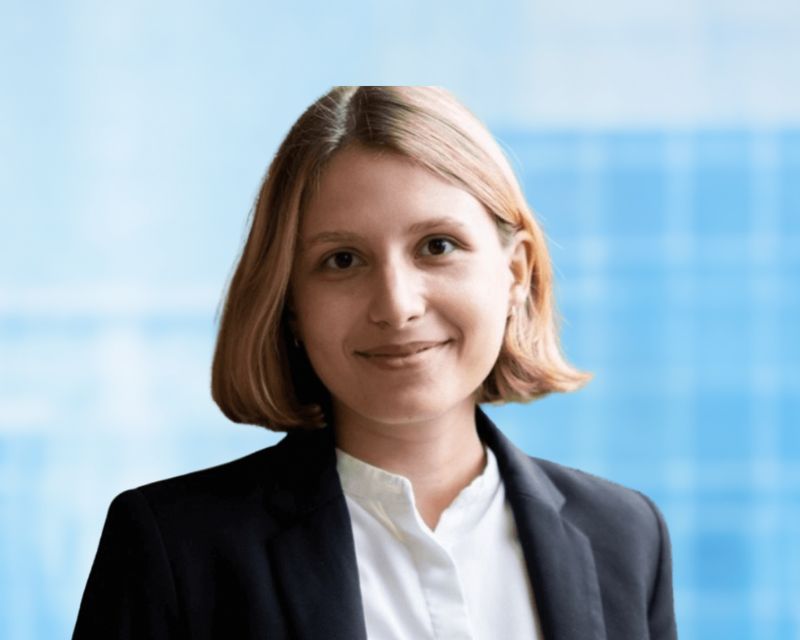
This is particularly true in Asia, where businesses are at the forefront of developing and adopting revolutionary technologies, such as robotics. But, rapid technological development also makes workplace skills depreciate faster than in the past, as new technologies generate gaps in workers' skills.
To keep up with such developments, requires a strong skillset and the tools to adapt and embrace these changes.
The MBA at Hong Kong University of Science and Technology (HKUST) could be a route to gain the necessary tools to embrace such technological developments. The program has a strong emphasis on technology, and its location means you’ll be right at the heart of Asia, the global hub of tech activity.
Asia's technological advancements
Technology, such as AI and supply chain automation, are fundamental to economic growth. For example, PricewaterhouseCoopers (PwC) estimates that global GDP may increase up to 14% (the equivalent of US$15.7 trillion) by 2030 due to AI's accelerating development and take-up.
For China, this is doubly true. In 2019, China contributed 50% of the world's computer exports, while Japan exported almost 20% of the world's high technology. Asia is the world’s largest robotics market and China and Japan are at the forefront of commercializing the research domains for AI.
According to a Harvard Business Review report, China has introduced a number of policies in recent years to promote the development of AI, including ‘Made in China 2025’ and ‘Next Generation Artificial Intelligence Development Plan.’
"China is the global leader in Fintech development. Hong Kong has a unique role in connecting western and eastern business world and Fintech has huge potential to disrupt the existing financial services," says Rong Zheng, an HKUST professor who teaches Fintech and Big Data Financial Analytics.
HKUST's tech-forward, beginner-friendly curriculum
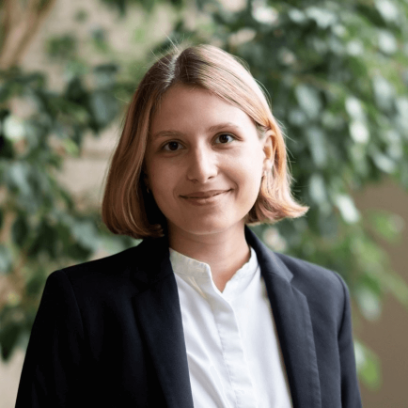
The need for skilled workers well-positioned to embrace technology is essential to a business's progression. The HKUST MBA recognizes this and its program continually evolves to give its students the latest knowledge, enabling them to be invaluable assets to business.
Elisa, a German national, started at HKUST in August 2022. Her bachelor’s was in economics and philosophy, so her employer, Boston Consulting Group (BCG), sponsored her to study for an MBA to upskill her business understanding.
"I was working at BCG for three-and-a-half years, and wanted the opportunity to deepen my business knowledge. I wanted to use the MBA to explore a new region, and Asia will become stronger and more critical in the future."
She was attracted to the HKUST MBA because of its Asian-focused community and its specializations in sustainability and tech.
The HKUST MBA offers several technology-focused courses, both core modules, such as Technology Management and electives, such as Doing Tech in China and Asia, Deep Learning Business Applications with Python, Visualizing Data for Business Decisions, and Building Innovative Companies to Achieve High Performance.
Elisa chose courses that would teach her about the revolutionary technologies that were disrupting business, including Cryptocurrency, Blockchain and their Business Applications, and Transforming Business with Artificial Intelligence.
"I took the blockchain and AI courses because I was specifically interested in the hottest technologies out there. I think it's very important to understand them."
In Rong's class, Fintech and Big Data Financial Analytics students gain a deep, practical understanding of the financial applications of AI and blockchain.
"AI and blockchain have capabilities proven effective in improving business operations. In this course, students learn how these technologies work and reflect on how they will shape the future of financial service industry.
"Even though students don't do the hard-core tech themselves, the in-depth understanding of these new tech will help them to get ready for the future of work," Rong explains.
Learning about revolutionary technologies through Asian businesses
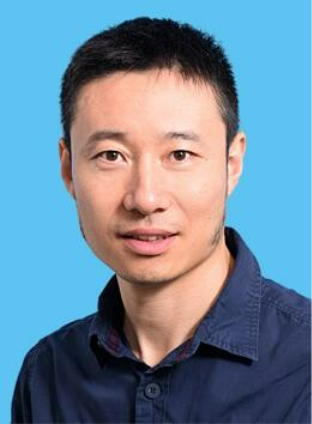
The HKUST MBA mixes theory and practice when building students' understanding of technology and how it can be utilized in business.
Case studies and guest speakers from diverse industries and functions help students without a technology background to grasp the complexities of the topics.
"Every week we discussed case studies based on real-life examples. Because the technologies are very recent, the case studies are also super recent," Elisa explains.
"The course on artificial intelligence was in cooperation with Microsoft Asia, so we had speakers from Microsoft. In the cryptocurrency class, we had speakers from firms specializing in cryptocurrencies or implementing blockchain projects."
The diversity of the professors' expertise helped Elisa understand both the technicality of technology and its application in business.
"Half were from the technology side. Some of my professors had a PhD in computer science, and some other professors came from the business side but had a deep interest in technologies."
The HKUST MBA allows students to gain insight into how Asia is harnessing disruptive technology and using it to advance and revolutionize businesses.
“As a businessperson, you don't need to know how to write the code yourself, you don't need be a data analyst or an AI engineer, you don't need to build the models. But you need to understand how it works to know where the restrictions and limitations are,” Elisa says.
"It is quite clear that, in the future, simple decision-making tasks will be done by AI. Just like how Office, Word, or Excel have been used, in the near future, AI will become essential skills for everyone," Rong (pictured) says. "They are not going to replace managers, but help mangers improve work efficiency and efficacy. Future leaders will be people who are more data-driven in every aspect."
Source: BusinessBecause
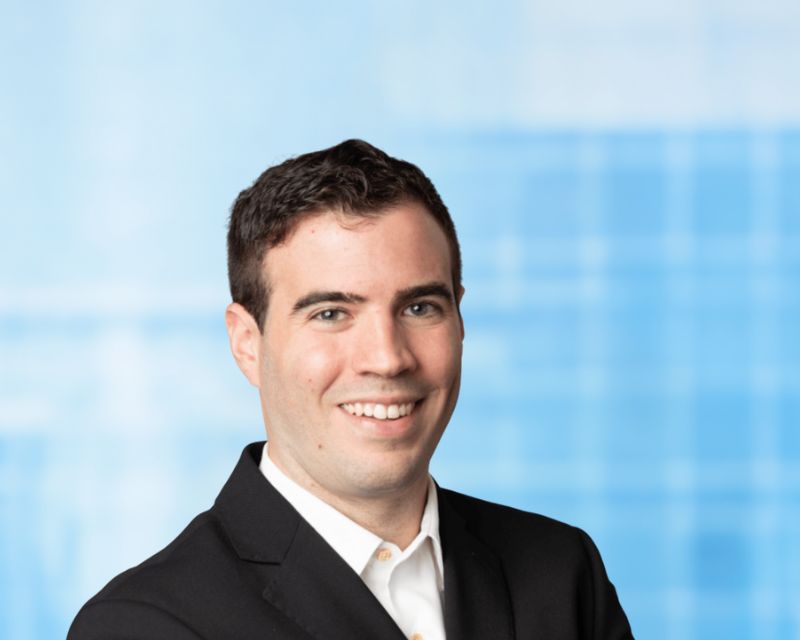
David Carreno Cerillo found his way to his dream city, Hong Kong, through an MBA, which also gave him the skills he needed to launch a global career.
After falling in love with Hong Kong during an internship, David Carreño Cerrillo made it his mission to return to the city. An MBA allowed him to do this while gaining a coveted skillset at a top business school, HKUST. As one of the world's top financial hubs and a key player in international business, Hong Kong was the ideal place for David to upskill and develop his global career as a financial analyst. Find out how David achieved his dream of launching an international career in Hong Kong through his MBA.
Discovering Hong Kong
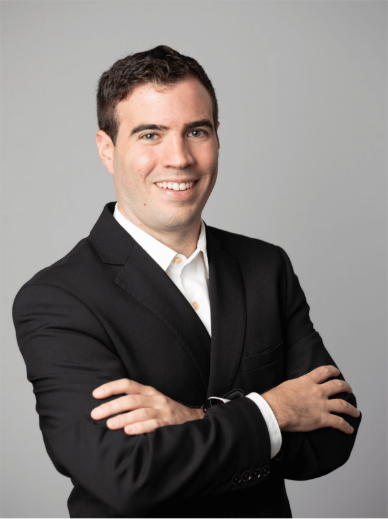
David (pictured) stumbled upon his love for Hong Kong in 2014. After earning his bachelor's at ESADE business school, he interned with a trade agency of the regional Catalonia government, which sent him to Hong Kong.
David's first choice for his international placement had been Canada, while Hong Kong was 5th or 6th. Despite this, when placed there, he discovered he loved the city.
"It is a super exciting city. It's a city of contrasts. You have the central district with all the big buildings, the skyline, and finance and business focus. Then you can take public transport, and in an hour, you're on a beach that looks like Thailand.
"That contrast is one of the things that made me fall in love with Hong Kong," David says.
After his internship, he moved back to Spain with a job offer from the Spanish insurance company MAPFRE and worked there for five years in financial roles before he felt his career progression faltered.
"I was getting stuck, career-wise. So I started to reflect on what was next for my career. How can I develop it more? What do I want to do in the future? And, if I wanted to push my finance career, an MBA was a great option."
Joining the HKUST MBA
For David, an MBA was an ideal opportunity to move back to Hong Kong and cultivate his burgeoning financial career.
David knew Hong Kong had a booming financial sector where he could establish a global career, but he was also drawn to the HKUST MBA program, its accreditations, and the array of finance courses.
In 2022, the HKUST MBA was ninth in the world for international mobility and number one in Asia for aims achieved, according to the Financial Times. It was also second in Asia for best business school MBA ranking, according to Bloomberg Businessweek. In 2023, the program was ranked Global 15 in Career Progression by Financial Times.
It has an expansive global network, with nearly 90% of its students being non-local, representing 10–20 nationalities from different parts of Asia, Europe, North America, and other regions.
HKUST also has a flexible curriculum with a wide range of electives, allowing its diverse student base to tailor their studies to fit their interests.
"The good thing about the MBA is that it has very specific electives you can choose from," David explains. "These were good for developing my niche skills, for instance, related to private equity, venture capital and asset management."
Launching a global finance career
The flexibility of the MBA allowed David to intern part-time while he was studying, and full-time over the summer break.
"The career and professional development team have a lot of connections in Hong Kong. Companies come to the HKUST MBA and offer internship opportunities. Then the careers team promotes the position to students, and we can apply for it."
This led David to intern at Zerobridge Partners, a small advisory firm in Hong Kong that acts as the middleman between small and medium enterprises in Asia, especially private credit funds giving loans to those companies.
"The internship lets you apply the learnings that you get from the MBA and expand them," David adds.
After interning part-time while studying at HKUST and full-time during the summer, Zerobridge offered David a full-time position.
David has found in Hong Kong, first jobs are often a stepping stone in your career.
“One of the key things people need to realize is that it's okay to start small. Your first job here might not look like your final destination, but that first step can be a great opportunity to learn from professionals and will help develop your profile."
David was at Zerobridge for a year-and-a-half and moved to the asset management and investment industry six months ago. He works for ADM Capital, a leading Asia-Pacific private debt manager.
"The good thing about being in the investment industry is we deal with lots of different industries and every day is super different."
David's advice for those coming to Hong Kong for an MBA is to set an objective, be flexible, and work hard both academically and in making contacts in your target industry.
He enjoys exploring the beaches, going to restaurants, and running through the beautiful mountains. Still, he feels he has thrived there because of his commitment to growing professionally.
Source: BusinessBecause
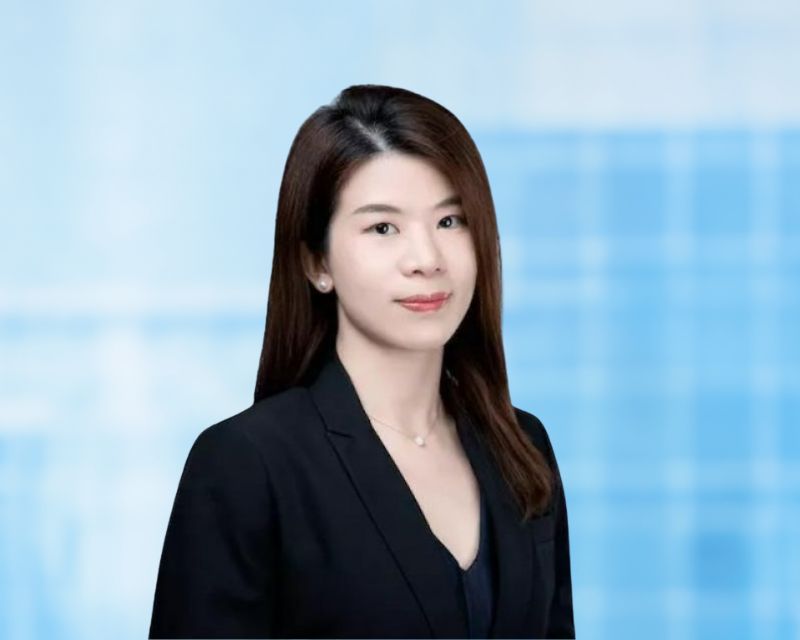
Scarlett Rong built up a strong managerial career but after pivoting from real estate to IT she decided to upskill with a part-time MBA to stay ahead of the curve.
What can a part-time MBA do for a flourishing career? Even if you are succeeding in a managerial role, an MBA can help future-proof your career, particularly in a rapidly advancing sector like tech.
This was the case for Scarlett Rong, who, despite excelling in her career in the information technology (IT) sector, decided on a part-time MBA to advance her knowledge of the IT sector and expand her business acumen.
Entering the IT industry
After graduating from the Chinese University of Hong Kong with a bachelor's degree in finance and marketing. Scarlett worked for three years in real estate development, equipping herself with a strong business knowledge.
After this she decided to pivot her career and move into the IT sector, She landed a job working at the Alibaba Group, for Ali Pay, where she stayed for another three years.
Scarlett progressed in her IT career by moving from Ali Pay to Tencent’s WeChat pay, a mobile payment and digital wallet service based in China. In her current role, she works to expand the business in the Hong Kong, Taiwan, and Macau markets.
“Tourists come to Hong Kong from Macau to visit, travel, and spend money. So we will target them for promotions,” she explains.
Despite her growing success in the IT sector, first as a business development manager at Ali Pay and then as a business director at WeChat, Scarlett decided she needed to advance her knowledge to keep up with developments in tech.
“In the IT industry you need to work to be up to date, and absorb new knowledge,” she says.
Choosing a part-time MBA to enhance her career path
Scarlett decided to enroll in a business degree to further her career. When it came to choosing a business school program, HKUST was an obvious choice because of its expertise in cutting-edge tech.
“HKUST is famous for technology. I knew the program would enhance my knowledge in data analysis, AI, machine learning, and so on, which is the future for me,” she explains.
The part-time program is for working professionals who want to expand their business knowledge, skills, and network to accelerate their careers. HKUST’s reputation, expansive network, and links to her employer also attracted Scarlett to the business school.
“The reputation of this program was a big positive. I had other graduate friends enrolled in this program and they only had good things to say.
“I have our senior management also enrolled in his program who said the experience was good, I think that will be very useful to my future career development.”
Scarlett chose to study a part-time program so she could gain these useful connections and coveted skills while continuing on her positive career path.
“My career developed quite smoothly and well. So I decided to balance work and study at the same time. That's why I chose a part-time MBA.”
Gaining a transferable skillset at the HKUST MBA
Currently enrolled in the HKUST MBA, being able to study the intersection between business and tech has been a major highlight for Scarlett so far.
Supplementing her in-depth tech skills with broader business insights is helping her bridge the gap between IT and business directors at work.
HKUST mixes soft and hard skills within its core courses and electives. Core classes include Financial Accounting, Marketing Strategy & Policy, and IT Management, and students can choose from an array of electives that range from Big Data Analytics to Responsible Leadership and Ethics.
IT Management has been very beneficial for Scarlett both in gaining specific information technology skills and in understanding how it intersects with business management. She has been able to apply her new managerial point of view to her job.
“It made me understand how to balance the IT needs and the business needs,” she says. "From the perspective of an IT team, more advanced technology is better. That is a no-brainer. But from the business or operation side, the implementation of new technology might negatively affect the current operation.”
Another key advantage for Scarlett has been the network and connections she has gained. The HKUST MBA is made up of a diverse group of students from various professional backgrounds, whose different perspectives supplement each course.
“In the MBA, I think the most valuable part is that the students are professionals in different fields. In accounting class, there is already an experienced auditor in our class, who debates with a professor, which makes the classes very interesting.”
The diverse backgrounds have also taught her how to work with people with varying personalities and work approaches. This has been important when leading a team at work.
“In team projects, we figure out how to communicate and execute the project, and understand the right way to work with people,” she says. “In work, you can't choose your teammate or your boss the only way you can further your career path is to work together.”
The skills, soft and hard, and network and connections Scarlett has developed at HKUST have elevated her managerial acumen and will allow her to continue to thrive as a woman in the demanding and complex IT industry.
“In Hong Kong, the IT field is mainly dominated by men. So I would like to try to include more women in the field. Women have an interesting viewpoint and they know how to make things happen.”
Source: BusinessBecause
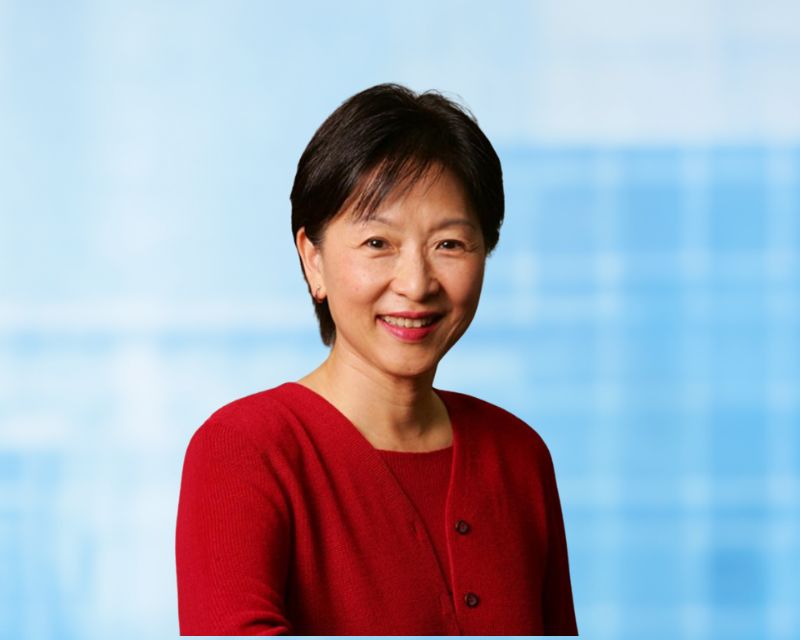
At HKUST Business School, we firmly believe that it takes the best teacher to bring out the best in students. Our faculty consists of world-class experts who are dedicated to nurturing the best in our students. One such remarkable individual is Prof. Caroline Wang, an Honorary Fellow and Adjunct Professor of Management at HKUST. With a wealth of executive experience at IBM across multiple countries, Prof. Wang brings invaluable insights to our students' journey toward leadership excellence.
From Martial Law to International Business
Prof. Wang's extraordinary journey into the international business arena began with an invitation to attend a UNESCO international student conference in Korea. Born and raised in Taiwan during the martial law era, her determination to work in an international environment was ignited by this experience. After earning her second master's degree in public health from Harvard University, Prof. Wang embarked on her career in late 1978 at IBM in the US Sales division through a two-year trainee program.
The World Is Not Black and White
Being the only Asian at IBM USA's sales division in the 1970s and 80s, the initial barrier Prof. Wang faced as a cultural minority was language. Her manager, Jim, candidly noted, "Caroline, you're working hard, and I see your potential. But unless you improve your English, your future at IBM will be limited." This was a challenging moment for someone with a strong track record as a communicator in Chinese. This was the ‘fight or flight’ instinct for Caroline to motivate herself to tremendously improve her English.
To stay sharp for English studies afterward, Prof. Wang always opted for non-alcoholic beverages when socializing with her teammates. “On one occasion, a colleague asked me in a bar, ‘You Asians don't drink alcohol? Probably drink something else there? Soy sauce?'," she recalled. “I told him calmly, ‘Robert, you have a problem, and I am not about to make it my problem.’ and the bar went silent.” Prof. Wang’s response earned her greater respect for standing up for herself and refusing to be defined by stereotypes.
“The world is not simply black and white. Avoid falling into false dichotomies and evaluate the choices we have,” Prof. Wang added. It was her decision to improve her English that allowed her to build a satisfying career at IBM for decades, and eventually to teach "Managerial Communication" at HKUST Business School.
Women in the Corporate World
Having worked in Tokyo, Prof. Wang found that women were a minority in top management positions and were often stereotyped as more emotional than men. Employers were also more hesitant to hire recently married young women. Nevertheless, she holds an alternative perspective on this phenomenon, “Hiring is a process that matches organizational and individual needs. Throughout different life stages, it's about planning, making choices, and setting priorities. It's not simply a matter of fairness but a multiple-choice question for both parties.”

The Color of Corporate Culture
Prof. Wang defines “corporate culture” as a "pattern of assumptions" from her experiences working at IBM in the USA, Tokyo, and Greater China. She found corporate culture can be more hierarchical and patriarchal in some countries, less so in others, “For instance, Taiwan businesses prioritize personal relationships, while in the US, individual contributions are highly valued. In Japan, conformity is favored over differentiation and creativity, which can lead to individualistic and capable employees not being fully appreciated.”
Looking back on her successful multinational career, Prof. Wang concluded that working together is a mutual choice, “To find employers that align with your values, you must understand your own "color", your principles, and where you won't compromise—much like entering a marriage.”
Click here to read original article on inTrend, Moscow School of Management

Are you struggling to identify the ideal MBA location as a launchpad for the next chapter of your career? How to decide where to launch yourself post-MBA to best propel your career trajectory? This article will delve into key considerations of deciding your best-fit MBA location.
Alignment with Personal Development Goals
It is essential to align your choice of MBA destination with your personal and professional development goals, as each location offers unique industry landscapes, networking opportunities, and cultural experience.
Hong Kong and Singapore are frequently compared as Asian economic powerhouses. As a global financial hub bordering mainland China, Hong Kong provides unparalleled access to the world's second-largest economy (According to the World Bank). This proximity opens doors to vast business opportunities and allows you to tap into China's booming markets. With its strong economy, low taxation regime, business-friendly environment and vibrant pace, Hong Kong offers an ideal location to develop a career in different industries, or leverage your MBA to transition into strategic roles within multinational corporations.
Singapore, on the other hand, is often considered Asia's Silicon Valley, boasting a thriving tech and startup scene that attracts those seeking an entrepreneurial environment. Ultimately, the best choice depends on your own career aspirations – whether you envision yourself navigating the complexities of global business landscape amidst Hong Kong's diverse cultural tapestry, or driving innovation within Singapore's dynamic startup sector and network with Southeast Asian countries.
Post-graduation Work Visa Flexibility
When choosing an MBA location, visa policies play a crucial role. Unlike traditional employment visas that restrict your job search or require employer sponsorship in other countries like the US or Singapore, Hong Kong's Immigration Arrangements for Non-local Graduates (IANG) visa offers unparalleled flexibility. With the IANG visa, you will have a generous 24 months to secure employment after graduation, providing ample time to explore diverse opportunities, start your own business, or gain valuable experience across different industries. This flexibility allows you to shape your career path according to your passions and ambitions, without having to go through the uncertainties of work visa application in other locations.
Harsh Mody’s Strategic MBA Choice
Take it from Harsh Mody, an HKUST Full-time MBA alumnus from Class of 2018 who strategically picked HKUST MBA as his launching pad to pivot his career from investment banking and startup to management consulting. Mody set his sights on Asia's high-growth market, particularly China, and strategically landed in Hong Kong for its flexible IANG work visa and expat and business-friendly environment. While in other countries like the US or Singapore, Mody felt their visa limitations for foreigners and the uncertainties in eligibility to work there would make their post-MBA career journey trickier. Harsh's post-MBA career trajectory took him from consultant to his current leadership position as Principal at the Boston Consulting Group in Hong Kong.
“I chose Hong Kong specifically for its very liberal Visa regime. The HKUST MBA did a good job of making available a lot of different tools. MBA is a very personal journey and it comes down to each individual how you choose to leverage those resources,” said Harsh in an alumni sharing webinar.
To learn more about the opportunities that HKUST MBA has to offer and experience firsthand our world-class education, sign up for a masterclass today:
JOIN OUR MASTERCLASS: Events | HKUST MBA | Learn. Innovate. Lead.
Table Summarizing Considerations of MBA Study in Popular Locations
|
|
US |
Europe |
Hong Kong |
Singapore |
|
Major Post-MBA Visa Policies for International Graduates |
|
|
|
|
|
Market Landscape |
|
|
|
|
|
Minimum Salary/Income Tax Bracket |
10%5 |
Depend on countries
|
2%9 |
15% (for non-residents)10 |
|
Remarks: Information in this table is updated as of March 2024 and for reference only. Always check with your target school and the relevant governing body for the latest information when making your MBA decision. |
||||
Source:
1.Top MBA.com – Remaining in the US After Your MBA: OPT and H-1B Visas
https://www.topmba.com/blog/remaining-us-after-your-mba-opt-and-h-1b-visas
2.European Education Area – Visas for work in Europe after graduation
https://education.ec.europa.eu/news/visas-for-work-in-europe-after-graduation
3.HKSAR Immigrations Department – IANG
https://www.immd.gov.hk/eng/services/visas/IANG.html
4.Singapore Ministry of Manpower – Work Passes
https://www.mom.gov.sg/passes-and-permits
5.US Internal Revenue Service – Federal income tax rates and brackets
https://www.irs.gov/filing/federal-income-tax-rates-and-brackets
6.Gov.uk – Income Tax rates and Personal Allowances
https://www.gov.uk/income-tax-rates
7/Republique Francaise – Tax Scale
https://www.service-public.fr/particuliers/vosdroits/F1419?lang=en
8.impots.gouv.fr – What is the average tax rate and do I qualify for it ?
https://www.impots.gouv.fr/international-particulier/questions/what-average-tax-rate-eligibility
9.GovHK – Tax Rates of Salaries Tax & Personal Assessment
https://www.gov.hk/en/residents/taxes/taxfiling/taxrates/salariesrates.htm
10. Inland Revenue Authority of Singapore – Individual Income Tax rates
https://www.iras.gov.sg/taxes/individual-income-tax/basics-of-individual-income-tax/tax-residency-and-tax-rates/individual-income-tax-rates#title2

Having spent over a decade working in Hong Kong, Ron Ruigrok (DiMBA Intake 2023) has achieved a remarkable tenure in the industry, including his current role as the Director of E-commerce and Operations at The Repeat Group. He remains committed to pursuing an MBA program as the optimal choice to elevate his career to new heights.
Choosing HKUST's Digital MBA as Part of His MBA Journey
As the first leading Asian digital MBA program (DiMBA), we understand the aspirations of busy senior professionals like Ron. They seek a world-class education that can be seamlessly integrated into their demanding schedules, allowing them to continue making a lasting impact in their workplace. Ron, driven by his desire to enhance his knowledge and skillsets, has recognized the importance of pursuing an MBA to become a more effective leader and broaden his capabilities. By embarking on this program, Ron is poised to elevate his career to new heights while making a significant and meaningful contribution to his organization.
Ron shared his perspective, stating, "Opting for HKUST's Digital MBA program was an easy decision for me, thanks to its esteemed reputation, diverse class profile, and extensive alumni network." The key factor that solidified his choice was the flexibility provided by the DiMBA program, allowing him to attend both physical classes on campus and online courses, effectively managing his personal life and work commitments.
Within the HKUST Digital MBA program, Ron can easily juggle his professional and personal responsibilities while pursuing his MBA, enhancing his executive effectiveness.
Cultivating Growth Through Diverse Perspectives
With a cohort composed of 11 different nationalities and representing 10 diverse countries, the DiMBA Intake 2023 witnessed the convergence of physically distanced students from around the globe during Immersion Week.
Within this vibrant setting, Ron found himself forming lifelong and deeply meaningful friendships. Reflecting on his experience, he expressed, "The opportunity to connect with a community of accomplished professionals from various industries and countries has been truly transformative. The richness of diverse opinions and thoughts fuels my academic and professional growth in ways that I could have never imagined."
Embracing the Journey: This is Only the Beginning
As Ron embarks on this transformative journey, he eagerly anticipates propelling his career to the next level, armed with the essential skills to thrive in the evolving digital landscape. The HKUST MBA program empowers him to achieve his goals and unlocks new opportunities for success.
Individual Consultation with MBA Advisor
Download Brochure | HKUST MBA | Learn. Innovate. Lead.
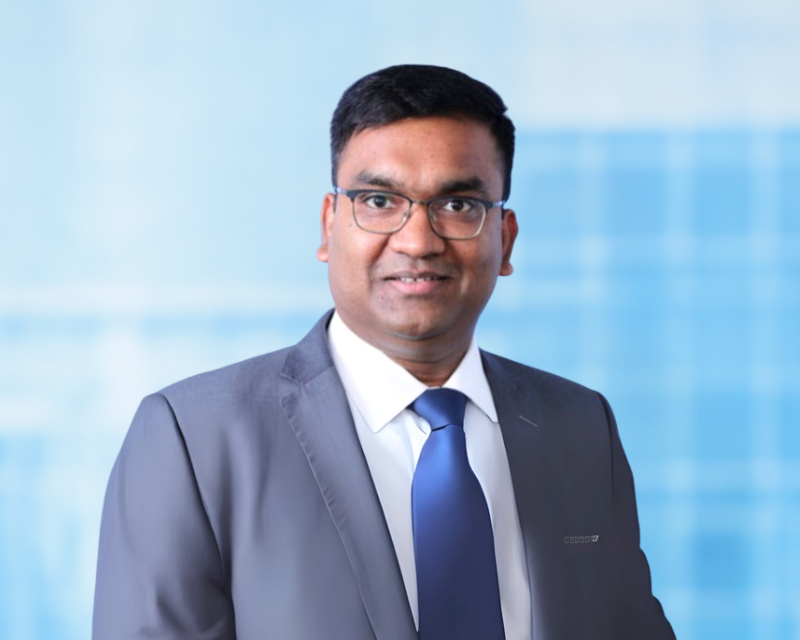
Amit Kumar Sureka, an alumnus of the Part-time (Weekly Mode) MBA Class of 2020, holds the position of Finance Director at KC Maritime Group. With over 18 years of experience in the Maritime Industry across Hong Kong, Dubai, and India, he brings a wealth of expertise. His key role oversees strategic financial planning and operational functions, with a focus on capital optimization, enhancing financial performance, and managing risk. He has spearheaded financial systems and strategies to improve efficiency and profitability, managed global banking relationships, and successfully led significant financial restructuring projects.
Why did you decide to pursue an MBA at HKUST?
Prior to embarking on his MBA journey at HKUST, Amit held the position of Finance Manager at KC Maritime Group. Recognizing the need to deepen his knowledge, skills, and managerial competencies, Amit chose to pursue an MBA at HKUST as the program perfectly aligned with his career objectives and aspirations in finance. Amit emphasized that several key influential factors led him to this decision.
“The decision to pursue an MBA at HKUST was driven by several factors: its global reputation, a strong alumni network, and its strategic location in Asia, which is pivotal for my career in the maritime industry.”
Additionally, Amit emphasizes that during the application process, he reached out to the admissions team to discuss how the MBA program could cater to his specific professional growth needs. Engaging in various activities, such as attending the HKUST MBA Open House Event, information sessions, and speaking with alumni, further solidified his decision to choose the HKUST MBA program as his number one choice.
Commitment to the HKUST MBA program
Amit's commitment to the HKUST MBA program is deeply rooted in the alignment of his personal and professional objectives with the program.
“The program's focus on innovation, leadership, technology, and global business perspectives is highly relevant to my career in maritime finance. What greatly influenced my decision was HKUST's collaborative and rigorous academic environment, along with its practical approach to real-world business challenges. The renowned faculty and the opportunity to learn from a diverse group of peers were also crucial factors. Additionally, the beautiful campus added to the appeal of the university.”
Courses from the HKUST MBA program that have benefited you the most in your current role
Reflecting on the courses offered at HKUST MBA, Amit highlights how several courses collectively provided a robust foundation for navigating and managing intricate aspects of global business environments. These courses had a significant impact on his career growth and played a crucial role in his promotion to Finance Director, enhancing his professional competency. “Courses such as Strategic Management, Family Business, Macroeconomics, Effective Negotiation, Managing Change, and Enhancing Professional Skills, taught by a team of accomplished professors, have broadened my business perspective and deepened my understanding of complex corporate dynamics.
“The Strategic Management course equipped me with the necessary tools to formulate and implement forward-thinking strategies. The Family Business and Macroeconomics courses provided me with a deeper understanding of market fluctuations and the dynamics of family-owned businesses, which are crucial in the maritime industry. The Effective Negotiation and Managing Change courses were particularly beneficial in honing my negotiation skills and effectively leading through transitional phases. Lastly, the Enhancing Professional Skills course improved my communication and leadership abilities.”
The practical components of these courses, such as real-world case studies and simulation exercises, were vital in bridging the gap between theoretical knowledge and practical applications. “This educational experience has played a crucial role in refining the financial strategies and frameworks I implement in my current role, leading to significant optimization of our financial performance and strengthening of our market position. Moreover, these courses have not only enhanced my capability to drive strategic decisions but also fortified my leadership skills in navigating complex financial landscapes.”
Schedule an admissions consultation
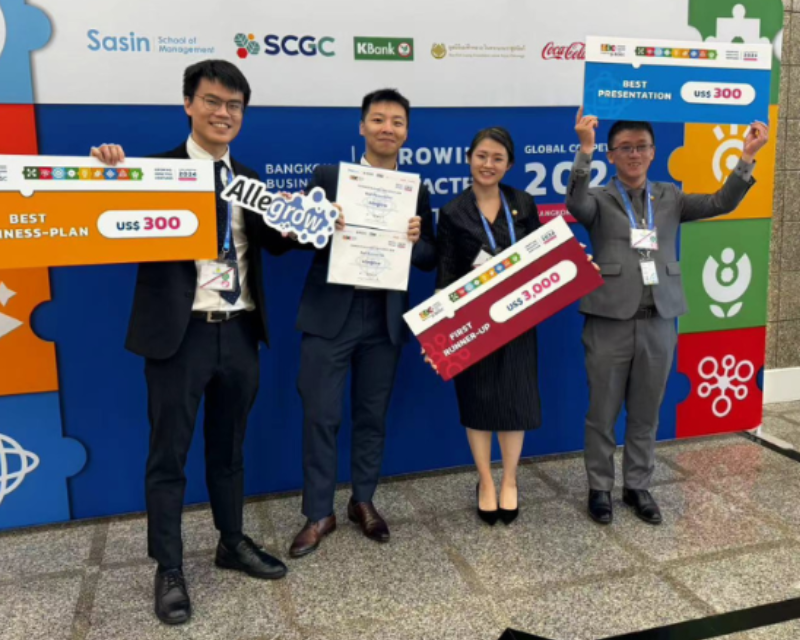
Our HKUST Full-time MBA Intake 2023 students brought home remarkable success by securing the First Runner-Up, Best Business Plan, and Best Presentation awards at the Bangkok Business Competition at Sasin!
This Bangkok Business Competition, known as Asia's Longest-running Global Student Startup Competition, aims to foster a spirit of entrepreneurship among graduates and promote innovation in higher education institutions. This year, a total of 62 academic institutions have participated in the competition.
Congratulations to Marshall Ma, Pie Wong, Boyang Wang, and Amy Yiu for their outstanding performance. A heartfelt thank you to Professor Joon Nak Choi for serving as the team's advisor and providing valuable guidance throughout the competition.
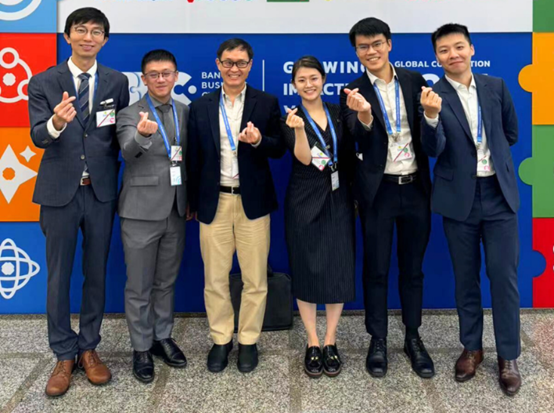 (Left to right: Laurence Lau (Co-Founder & CEO, Allegrow Biotech), Boyang Wang, Professor Joon Nak Choi, Amy Yiu, Pie Wong, and Marshall Ma)
(Left to right: Laurence Lau (Co-Founder & CEO, Allegrow Biotech), Boyang Wang, Professor Joon Nak Choi, Amy Yiu, Pie Wong, and Marshall Ma)
Individual Consultation with MBA Advisor
Download Brochure | HKUST MBA | Learn. Innovate. Lead.
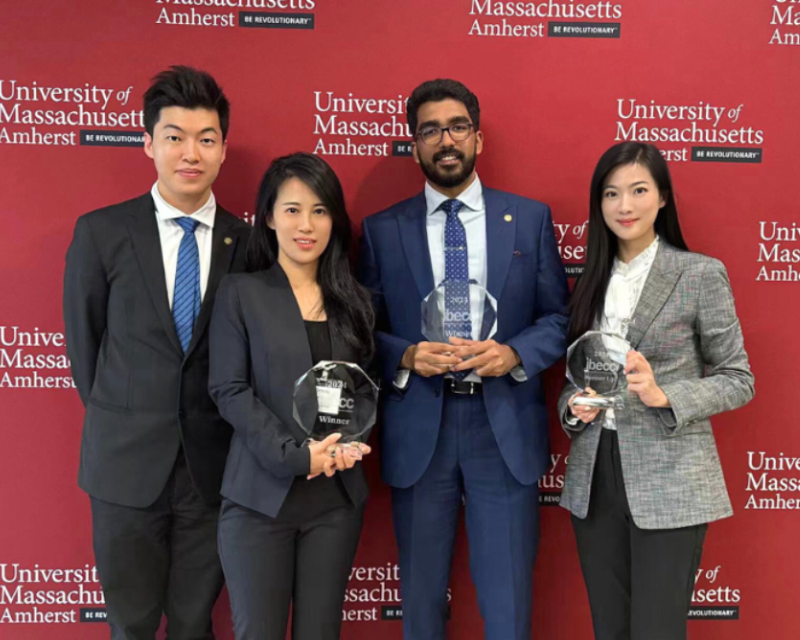
An impressive achievement indeed! Heartfelt congratulations to the HKUST Full-time MBA Intake 2023 students - Vincent Chan, Sophia Wang, Kartik Singh, and Denise Ho for their exceptional performance at the International Business Ethics Case Competition (IBECC) 2024. Securing 2 Golds and a Silver Award is truly a remarkable feat!
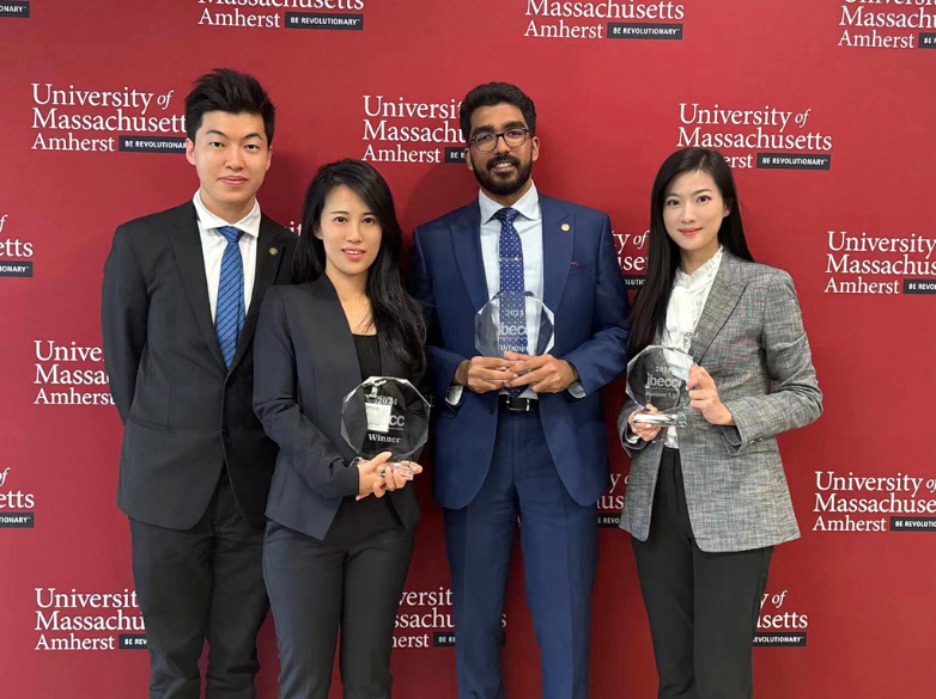
(Left to right: Vincent Chan, Sophia Wang, Kartik Singh, and Denise Ho)
As the only Asian business school represented in IBECC, the HKUST Team excelled in addressing the ethical business challenge of “Easing YouTube’s Content Fatigue Problem; Steering towards Balanced Content Recommendations.” They provided strategic recommendations and detailed actionable steps, thereby enhancing YouTube’s sustained ethical leadership in the digital era.
We extend a special acknowledgment to Professor Laurence Franklin for his invaluable guidance and advice.
Congratulations to the entire team for their diligence and commitment! Their success and representation of our MBA program fill us with immense pride.
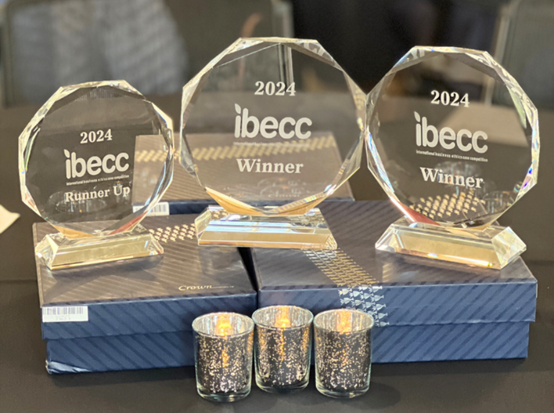
Individual Consultation with MBA Advisor
Download Brochure | HKUST MBA | Learn. Innovate. Lead.
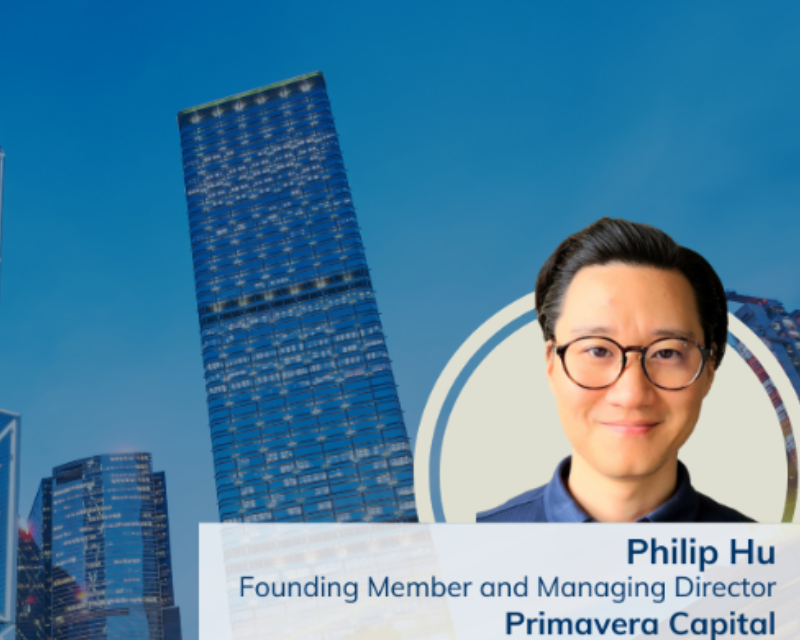
In this article, we uncover the strategic position of Hong Kong in Asia's next growth chapter. We explore the factors that contribute to Hong Kong's appeal as a global business hub and engage in a dialogue with Philip Hu, Founding Member and Managing Director of Primavera Capital, to gain valuable insights into the city's business and investment outlook. Primavera is a premier Asia-Pacific based investment firm that has led landmark investments in portfolio companies such as Yum China (the largest restaurant company in China, including brands like KFC and Pizza Hut), Envision (one of the largest wind turbine manufacturers globally), and Xpeng (a leading electric vehicle company). Primavera has 100+ portfolio companies across PE, VC, and Credit strategies.
Hong Kong's geographical location and global leading infrastructure make it a key gateway to both North and South Asia, but also the rest of the world. Its pro-business environment, stability and safety, and transparent legal framework create an ideal ecosystem for businesses and investors. Hong Kong's global connectivity positions it as a strategic hub for trade and investment.
Interviewer: Welcome, Philip. What makes Hong Kong appealing as a business and investment hub?
Philip: Hong Kong's stability, low tax regime, business-friendly policies, and robust financial sector make it an attractive destination. The city's talent pool, drawn from world-class universities, and its focus on research and development contribute to its position as a hub for emerging industries.
Interviewer: Do you have any examples to share that highlight Hong Kong's growth potential?
Philip: One example of many is the expansion of UBS here. Hong Kong is home to UBS’ Asia headquarters and they are doubling their office space to take up a whole office tower. UBS is one of the largest wealth managers globally with approximately USD4 trillion in invested assets. This is roughly the size of Japan or Germany’s economies in nominal terms. When such an organization on a global scale chooses Hong Kong as their Asia HQ, it carries meaning on the city’s growth potential. Hong Kong is also home to over 2,700 family offices, which is double the number in Singapore. This highlights the city's appeal as a strategic location to manage wealth with various government policies becoming even friendlier to attract more capital.
In terms of logistics, Hong Kong, for the 13th time since 2010, retained its crown as the busiest cargo airport hub in the world. Global leading companies like DHL and Alibaba’s logistics arm, Cainiao, have further setup critical infrastructure here, with some logistics companies expanding capacity by 50% or more.
For innovation and energy transition, CATL, the world's largest electric vehicle battery manufacturer, is establishing their global headquarters in Hong Kong. This demonstrates the city's attractiveness to cutting-edge industries as Hong Kong is making meaningful strides in diversifying its economy and embracing advanced technologies and sustainable solutions.
Hong Kong is strengthening its position as a research and development center across multiple sectors. We are seeing global healthcare companies coming in, such as AstraZeneca, building a major R&D center here that would cover areas of treatment for autoimmune diseases, oncology, and rare diseases.
In terms of events, the latest Rugby Sevens here had 40% of the tickets sold internationally to visitors from countries like the UK, Australia, and Japan. The event represents the ongoing international appeal and vibrancy of Hong Kong.
Hong Kong is not just limited to financial services and it will continue to be much, much more.
Hong Kong as a "Superconnector"
Interviewer: Do you have any examples that demonstrate Hong Kong's role as a "superconnector" between Asia and the rest of the world?
Philip: Hong Kong's strategic location and robust infrastructure make it an ideal platform for businesses to access both the Asian and the global markets. Many multinational companies also choose Hong Kong as their entry point into China, for example, utilizing its business-friendly environment and connectivity. China accounts for 48% of Asia’s GDP in PPP terms and remains an important driver of global growth for some to come. Hong Kong also hosts a plethora of global conferences and events that attract businesses and people from around the world, really making its mark as a global bridge between different regions.
Emerging Industries Fueling Growth
Interviewer: Are there any emerging industries that are driving growth in Hong Kong?
Philip: Hong Kong excels globally in the areas of fintech, logistics, energy transition, and biotech, among others. As mentioned earlier, the city continues to attract some of the world’s largest and most influential companies across multiple sectors to setup regional or global headquarters as well as R&D or logistics centers, etc. It also has a robust and growing startup scene, with a number of unicorns that have been born and bred here.
Interviewer: What do you personally appreciate the most about Hong Kong?
Philip: Having lived and worked in multiple places, I have always gravitated back to Hong Kong. There are few cities on this planet that provide such a blend of a truly urban, global city married with the ease of access to really stunning and unique natural beauty, which makes this place truly special. You really can have it all, from going hiking, taking a boat trip, relaxing on the beach, and also indulging in shopping, fine dining, and nightlife, all in a single day. The city's efficiency, cultural offerings, and diverse entertainment options make it a vibrant and exciting place to live and work.
Hong Kong's strategic position as a global business hub in Asia's next growth chapter is evident. Its stability, connectivity, and business-friendly environment make it an appealing destination for investors and businesses worldwide. The city's focus on emerging industries, innovation, and sustainability further positions it as a strategic powerhouse for the region. As we move beyond the headlines, it becomes clear that Hong Kong's potential for growth and success is set to soar in the coming years.
ABOUT PHILIP HU
Philip is a Founding Member and Managing Director of Primavera Capital. He sits on the Leadership Committee, Investment Committees, Strategic Partnerships Committee, Portfolio Management Committee, ESG Committee, Operations Committee, among others. Prior to Primavera, he held positions in investment banking based in Hong Kong and in a hedge fund based in San Francisco. He holds a Bachelor of Science from Cornell University.
If you are interested in more news, consider following Philip’s LinkedIn here.

The global supply chain, the lifeblood of modern business, faces constant disruption from technological advancements and a growing focus on environmental responsibility. Through a forward-thinking curriculum with a focus on responsible leadership, the HKUST MBA program cultivates versatile leaders equipped for the challenges and opportunities of this complex ecosystem, preparing them to navigate the landscape for good.
Our strategic connection with BASF, a leading global chemical company, arises from a shared vision of the business leaders of tomorrow – ones equipped with both a rock-solid foundation in business fundamentals and the agility to navigate a constantly evolving landscape. Recognizing this need, BASF considers variety of factors including but not limit to engagement, human capital return, and digitalization within their talent strategies. They focus on innovative ways to keep talent engaged, coupling with their commitment to long-term strategic investment and active investment in building a robust digital infrastructure to ensure their long-term competitiveness.
Sharpening Talent from Strong Foundations
A major component in strengthening BASF's talent pipeline is bridging with universities for early-career talent. Committed to recruiting a diverse profile of high-calibre business talents worldwide, the HKUST MBA program holds a rigorous admissions process. This process forms a strong talent pool and develops future business leaders for global enterprises.
|
Chi Hong Hon,
|
“HKUST MBA graduates come with excellent academic backgrounds and professional experience,” said Chi Hong Hon, Head of Human Resources, Hong Kong. “The program's focus on experiential learning and leadership development translates into diverse skillsets we see in their graduates, like finance, marketing strategy, consulting, and technology. All these add value to our organization.” He continued, “The high level of confidence, perspectives brought to the table, and excellent communication skills they demonstrate in tackling difficult challenges are very important in the multinational and fast-paced BASF context.” |
A Tailored Talent Pipeline for BASF
Bringing in the right talent to drive business success requires an in-depth knowledge of industry nature, market dynamics, and a deep understanding of talent. BASF partner with our Career and Professional Development (CPD) Team to streamline their talent acquisition process through talent matching and various career events.
|
“Every time I have a role to fill, the CPD Team is one of the first connections I reach out to,” said Dennis Espinas, Vice President, Global Supply Chain & Business Solutions Dispersions, Resins & Additives. “They do a fantastic job of listening and understanding our needs to match us with the right talent. Impressively, their continued connection and engagement with MBA graduates at BASF exemplify the team’s profound care and unwavering dedication to the success and development of their students.” He added, “I am keen to find ways to take this connection further. Perhaps expanding our discussions to include roles across our broader Asia-Pacific footprint would be a good next step”. |
Dennis Espinas,
|
The BASF Culture of Support, Growth, and Diverse Horizons
Though rooted in Germany, BASF also has an established presence in over 90 countries across the globe. BASF not only creates chemistry for a sustainable future, but their large scale of business and expansive global footprint provides a tremendous amount of development opportunities. This keeps their talent excited and engaged throughout their long tenure.
“At BASF, people aren't limited to a particular track,” said Dennis. “We have a culture that encourages both lateral movement to diversify experience as well as vertical progression for those interested in pursuing a leadership path. Opportunities are very transparent, and you will be in the driver's seat of your own career development. The sky is the limit for talents with the motivation to make an impact, the propensity to achieve and the hunger to grow & develop.”
BASF also greatly invests in the lifelong learning of its talent. For BASF in Hong Kong, they offer an employee assistance program to provide some financial assistance to successful applicants in pursuing external professional qualifications, mentorship and networking opportunities, and abundant learning and training resources. Other BASF entities at overseas also have different programs to suit for the need.
|
Helen Wang,
|
“The market today is very competitive,” added Helen Wang, Director, Supply Chain Management, Intermediates Asia Pacific. “The 'X-shaped' talent with both business and digitalization mindsets is crucial in helping us fulfill our increasingly agile business needs.” |
Building a Successful BASF Career
We invited Dennis and Helen to share the crucial factors they look for in talent for building a successful and ever-growing career at BASF, particularly within the supply chain arena they lead. Analytical and critical thinking skills to draw insights and conclusions from comprehensive sources are their top priorities. They also emphasized the importance of digital agility in adopting and leveraging tools that improve the work process. Beyond these competencies, the ability to build relationships, influence others, and manage counterparts and teams will take one's career further and higher.
Aligning strength in a world driven by sustainability, innovation and digitalization, we partner with forward-thinking industry leaders like BASF in developing leaders in Asia for the world. We build a diverse community of future business leaders with adaptive skills, confidence in navigating through challenges, and collaborative spirit that enable to contribute from day 1. Join us in shaping the business landscape of tomorrow.
SCHEDULE AN ADMISSIONS CONSULTATION
RECRUIT OUR FULL-TIME MBA STUDENTS
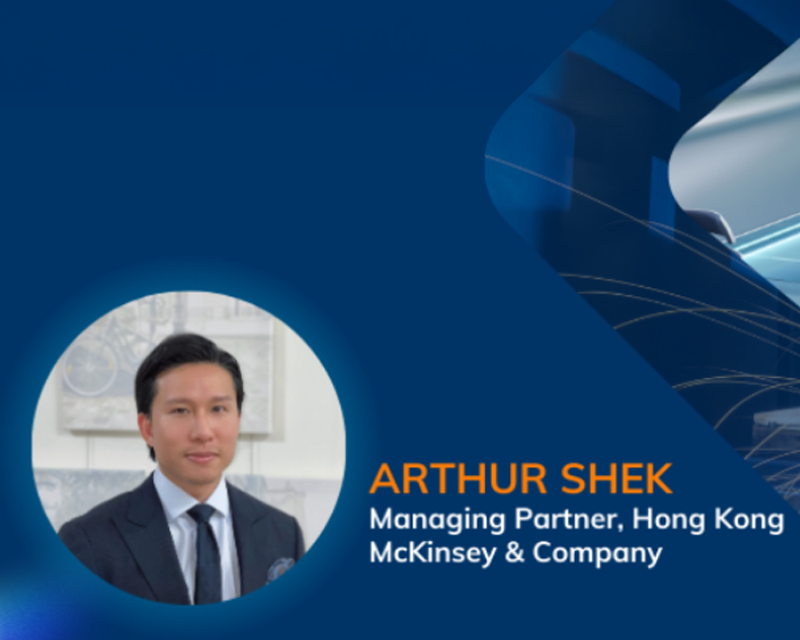
Asia is on the cusp of a transformative shift from being a tech manufacturer to a tech creator. At the forefront of driving this holistic and sustainable change in companies across Asia is Arthur Shek, the Managing Partner of McKinsey's Hong Kong office. Leveraging his vast expertise in strategy, digital transformation, and innovation, Arthur provides valuable insights into the importance of Asia's transition towards becoming a "tech creator" and the pivotal role played by McKinsey in facilitating this profound shift.
Over the years, Arthur has led many transformation efforts with multinational financial institutions, local conglomerates, as well as public organizations, in Asia as a whole. He is a Co-Founder of the Melo Program, a not-for-profit platform dedicated to empowering youth in Hong Kong through bridging them meaningfully with leaders in business and society. Arthur also sits on the Board of Junior Achievement Hong Kong, is a frequent speaker on youth and business technology topics, and advises various startup companies.
Could you share briefly what it means for Asia to transition to being a "tech creator"?
Arthur: Asia has long been a powerhouse in tech manufacturing, producing consumer electronics, industrial electronics, and semiconductors. However, the region has historically relied on importing critical technologies, rather than leading in foundational technologies and end-to-end self-sufficiency. For example, in the chip industry, Taiwan and South Korea's strength lies in production and manufacturing, rather than design across the value chain. This has positioned Asia as more of a technology taker.
However, the landscape is changing. In recent years, we've witnessed a shift. Emerging technologies like AI, cloud computing, clean energy, and more have the potential to shape our world. What's unique about these areas is that there are no definitive global leaders yet. This presents a tremendous opportunity for Asia to step up and become a leader in shaping the future.
While Asia is making progress in these areas, there is still work to be done to fully realize its potential as a tech creator. By focusing on building capabilities, fostering innovation, and investing in research and development, Asia can move beyond being a technology taker and emerge as a true shaper of technologies.
How do you foresee this shift influencing the consulting industry, and what role do you believe McKinsey can play in facilitating and driving this transition?
Arthur: This shift is crucial for the industry, and its impact extends to various dimensions. Firstly, it influences who we work with, as these shifts are driving the future goals of Asia. In the consulting industry, we anticipate increased demand from companies leading in these areas. These are the companies that shape the world, and partnering with them aligns with our aspirations. Secondly, it affects the type of work we do. Given the novelty of these shifts, companies will require new strategies and capabilities. Our collaboration with them will revolve around these aspects, including building new execution muscles. Lastly, and significantly, it influences how McKinsey thinks about our own people and capabilities. To effectively assist these companies, we must develop expertise in AI, cloud, software engineering, machine learning, and more. This ensures that we provide clients not only with the best advice and insights, but also with the support necessary to achieve impactful outcomes. We see ourselves as partners, holding their hand and working together towards success, rather than simply offering advice. To meet these challenges, McKinsey is also investing in its own capabilities, including AI, cloud computing, software engineering, and machine learning, to ensure we can provide the best advice and support for our clients.
In your role at McKinsey & Company, you've been at the forefront of business transformation projects. Could you share an example of a project that particularly stands out and any emerging trends you've observed in this space?
Arthur: Hong Kong has enjoyed significant advantages as a market, benefiting from the robust growth of the Chinese economy and its position as a gateway between the East and the West. The rule of law and the trust in professional services have further contributed to the success of many companies in the region. Amidst these favourable conditions, one project stands out in my mind—a collaboration with a consumer goods manufacturer embarking on a transformative journey. Their goal was to transition from an OEM to a recognized brand that directly engages with customers. This required a comprehensive transformation encompassing their business model, technology infrastructure, and organizational culture. We played a pivotal role in helping them redefine their value proposition, establish robust data capabilities, and identify core competencies in emerging technologies. Additionally, we emphasized the empowerment of young talent, fostered a culture of innovation through cultural changes, and implemented agile ways of working.
You advise many CEOs and top business leaders. Could you share your thoughts on the key qualities that define a successful leader in today’s business environment and any new qualities that will become more important in the future?
Arthur: Certainly! I believe there are two key qualities that define a successful leader in today's business environment. Firstly, having a strong vision for change is crucial. Many companies resist change because they are comfortable with the old ways that have worked for them. However, with the fast changing environment, companies need to adapt. Leaders who possess a clear vision for change and can communicate it compellingly to their organization are becoming increasingly important. Secondly, the ability to attract, motivate, and retain top talent is essential. Everything from business models to technology can quickly become obsolete. A company's success ultimately relies on its people. Leaders who can lead their organizations to win the war for talent demonstrate another vital quality.
Many MBA students aspire to a career in consulting. From your perspective, what specific skills should they focus on developing? And how can they best prepare themselves to adapt to the rapidly changing business environment?
Arthur: Consulting is a demanding industry, tackling complex challenges and opportunities that companies struggle to resolve on their own. For aspiring consultants, there are important skills to develop. Firstly, problem-solving skills are fundamental. This includes logical thinking, structured problem breakdown, prioritization, and coming up with solutions while considering different perspectives and weighing pros and cons. Secondly, language and communication skills are crucial. Fluency in languages relevant to the consulting context, such as English, Mandarin, or Cantonese, is increasingly important for effective communication with diverse stakeholders. Lastly, while consulting remains a generalist industry, there is a growing demand for specialized expertise. Developing knowledge or expertise in specific industries or functional areas like data analytics or user experience design can differentiate aspiring consultants in today's market, where adding value to clients is very important.
Your active involvement as one of the founders of Project Melo demonstrates your dedication to social causes. Could you please share what inspired you to create this program and how you envision it will positively influence the younger generation?
Arthur: For me, it's rooted in my love for Hong Kong and my desire to make a meaningful difference in this city. I believe success is achieved by becoming someone who can positively impact and shape our community. Project Melo was born out of a realization in 2019 that there was a significant gap between the aspirations of the youth in Hong Kong and the older generation. We noticed that while many established leaders expressed optimism about the future, the youth had lower levels of hope and trust. This gap inspired us to take action and build a bridge between the two segments. The vision of Project Melo is to empower the youth by providing them with a platform to learn, connect, and make a positive impact on their city. We have worked with various companies and foundations, collaborating on projects that address issues important to the youth, such as mental health, sustainability, financial literacy, and social inequality. Moving forward, our goal is to hand over the reins to the youth themselves, allowing them to lead and shape the platform according to their vision. Balancing my professional work, continuous learning, and nurturing future leaders requires purpose, alignment, and sustainability. Having a long-term purpose helps guide my actions and decisions. I also ensure that the activities I engage in are synergistic and contribute to my overall goals. Lastly, I prioritize sustainability and recognize that life is a marathon rather than a sprint. It's crucial to maintain a balanced and fulfilling lifestyle that can be sustained in the long run.
As we reflect on Arthur 's journey, we are reminded of the importance of purpose, synergy, and sustainability as we strive to make a lasting impact in our personal and professional lives.
About Arthur Shek
Arthur Shek is the Managing Partner of McKinsey’s Hong Kong office. He focuses on driving holistic, transformational, and sustainable change at companies especially in Hong Kong and Mainland China, and also has extensive experience operating in Asia as a whole. Over the years, Arthur has led many transformation efforts with multinational financial institutions, local conglomerates, as well as public organizations. The topics Arthur advises on include strategy, digital, innovation, organization and culture change, capability building, mergers and acquisitions, and others, and he is the co-lead for McKinsey’s work in fintech in the region.
Individual Consultation with MBA Advisor
Download Brochure | HKUST MBA | Learn. Innovate. Lead.
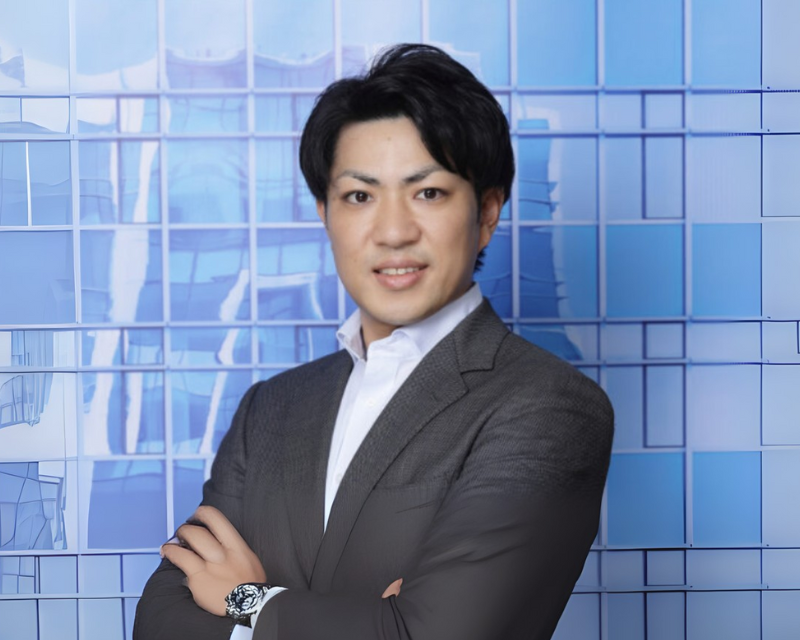
Ryohei Sunada, former Assistant Vice President (Sales and Marketing) of Mitsui Sumitomo Insurance Company, a leading Japanese insurer, seized the opportunity to reflect on his business development career and reignite his long-held aspiration to pursue an MBA. This led him to join the HKUST Full-time MBA program (Intake 2022).
Sparked by legacy and drawn to excellence
Having been seconded to Thailand and immersed himself across several Asian cities through studying and internships, Ryohei saw the opportunities and growing dynamism in Asia. He decided to start the next chapter of his career here. Ryohei met Japanese students and alumni of the HKUST MBA program at the AGOS Summer Festival. This sparked a life-changing desire for growth and excellence. "I was very impressed by the strong Japanese alumni network and the supportive environment they created," Ryohei said. "I also found the condensed and enriching 16-month full-time curriculum compelling. Since then, HKUST Business School became my top MBA choice."
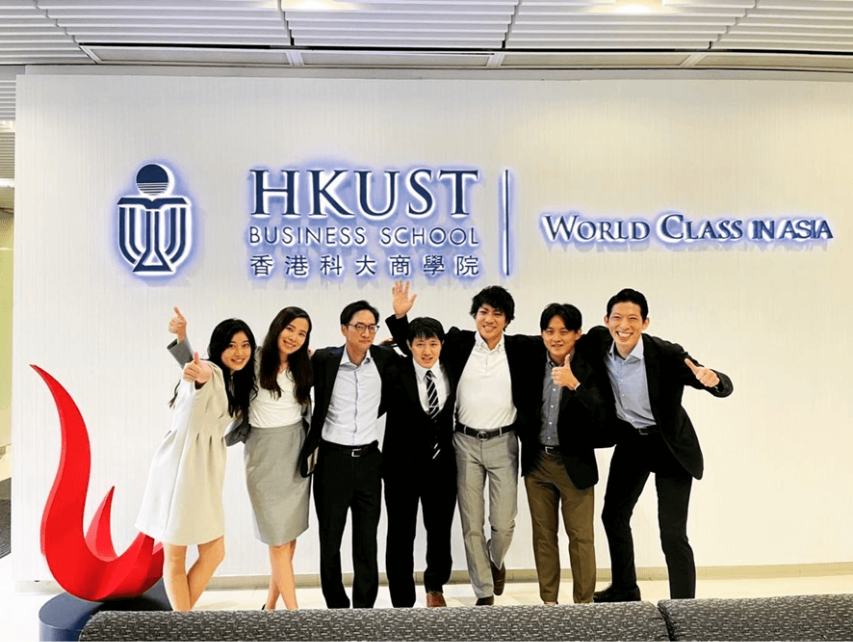
Ryohei (third right) and his Japanese classmates from Full-time MBA Intake 2022
Challenging and encouraging each other for mutual growth
Ryohei's learning journey quickly hit the ground running after he experienced the thrill of discovering the vibrant city, the stunning sea view, and the resourceful campus at HKUST. The diverse and high-achieving student community he learned alongside stimulated his pursuit of excellence.
"The experience collaborating with talents from all walks of life in the Marketing Strategy Policy core course in the first term was remarkable," Ryohei recalled. "The opportunity to learn perspectives from classmates from Germany, South Africa, France, and Canada gave me exposure to diverse cultures and different genders. The shared struggle and growth brought us closer, building a strong and lasting friendship."
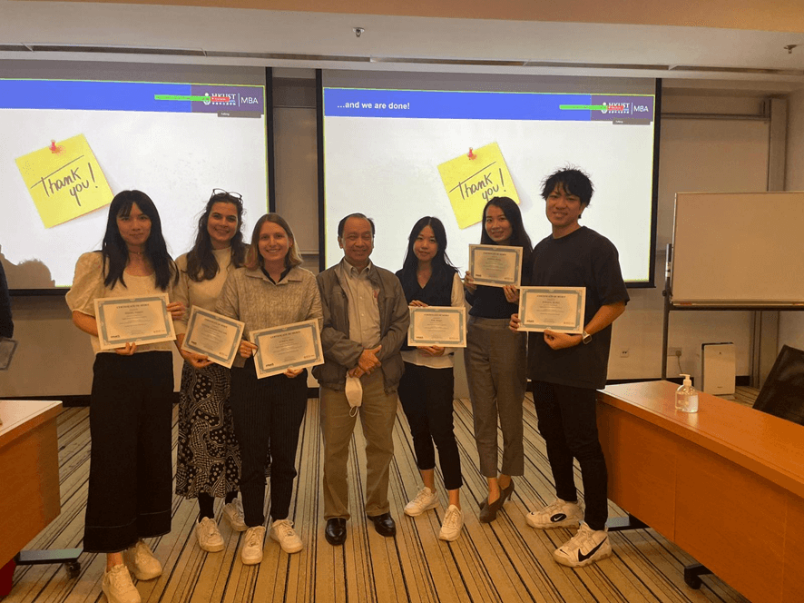
Marketing Strategy Policy Course with Prof. Joseph Salvacruz
Earning trophy and life-long friendship in refining case analysis competencies
Working towards building a strategy consulting career, Ryohei actively participated in case competitions and the flagship Enhancing Professional Skills program. These programs aimed to empower students in accelerating their analytical and presentation skills, which are critical building blocks for successful business leaders in board and stakeholder engagement.
Drawing insights from a team with diverse professional backgrounds, including fashion design, IT, finance, and marketing, Ryohei and his teammates aced the HKUST MBA Case Competition. They won the program's sponsorship to attend the Capsource Case Competition in Hawaii.
"The team went through thick and thin," Ryohei said. "We debated rigorously along every step, from pre-event preparation to on-site competition. Apart from putting our enhanced skillsets into practice, it was an invaluable experience to learn about time management, managing priorities, and teamwork. We navigated through challenges together, winning not only the championship but also lasting friendships."
Ryohei and his teammates winning the Capsource Case Competition in Hawaii
The global perspective: embracing new cultures and sharing his own
HKUST is a globally connected business school with a well-respected network of international school partners. Leveraging this advantage, Ryohei further strengthened his global acumen with an exchange to IE University in Spain during the second year of his MBA studies. The three-month exchange allowed him to expand his professional network to Europe and immerse himself in a new culture.
With a great passion for connecting people, Ryohei co-ran the Japan Club to introduce the timeless and trendy Japanese beauty to his classmates through cultural sharing events. As Ryohei highlighted about the Japan Trek he orchestrated with other club committees, "Hosting the Japan Trek for about 40 classmates was a very memorable experience. The process of structuring the event, inviting sponsorships, and meticulous planning were great opportunities to learn."
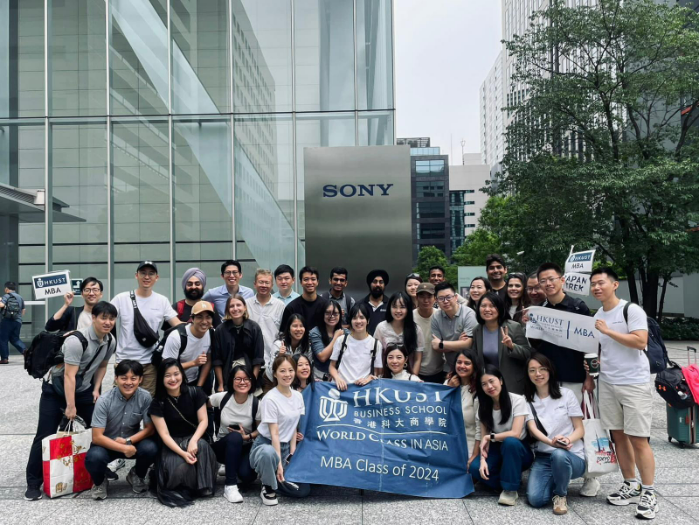
Sony Company Visit and Sightseeing at full-time MBA Japan Trek
Next chapter: From business development to strategy consulting
Despite being on exchange during the job search season while the recruitment landscape remained competitive, Ryohei achieved his aim. He landed a Strategy Consulting role in the Accenture Japan with the dedicated career services and supportive alumni network available through the HKUST MBA program.
"The program provides a large variety of career services," Ryohei said. "In particular, the case interview training with coaches from a strategy consulting background was very helpful. Many of us benefited from our alumni connections for more opportunities."
We asked Ryohei to conclude his MBA journey, and he quoted a recent encounter: "I reconnected with one of the referees of my MBA application and he asked me how my MBA was. Without hesitation, I said, 'It was the best time of my life!'"
LEARN MORE ABOUT OUR FULL-TIME MBA PROGRAM
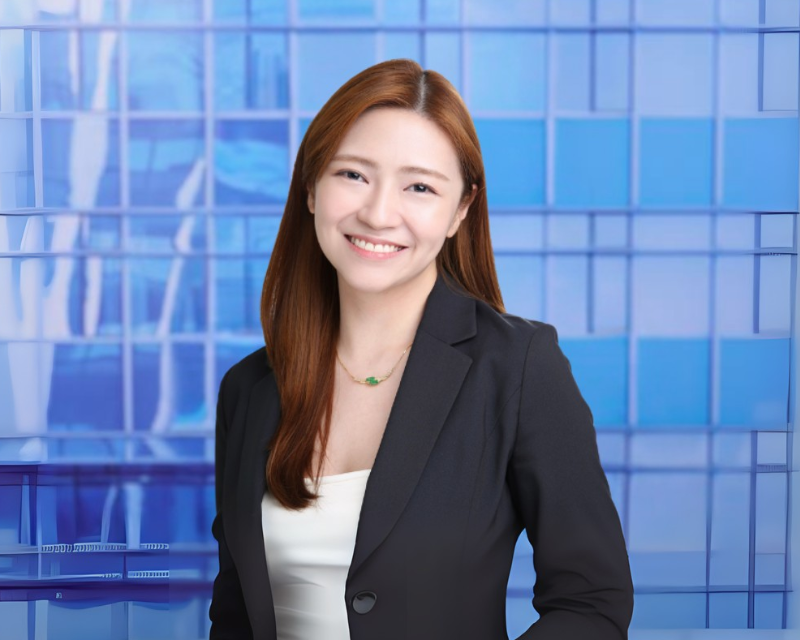
Gail Cocuaco (DiMBA Intake 2023) is a finance professional from the Philippines, with over eight years of experience in the equity markets, spanning both research and sales roles. She has pursued further education to facilitate a career pivot and to foster continuous growth. Recently, Gail transitioned into a new role as a relationship manager in private banking.
Why HKUST Digital MBA Program
The combination of Gail's prior experience and her current professional goals made finding the right program a critical consideration. She sought an educational opportunity that could complement her transition into private banking while broadening her global perspective - a balance essential for her continued growth and success.
Pursuing an MBA with the HKUST Digital program was therefore an ideal choice, as it enabled her to "acquire essential business skills without geographical limitations".
The Digital MBA program also offers flexibility, allowing her to balance a new career, a new degree and the pursuit of qualifying exams simultaneously.
Charting A Customized MBA Journey
A key strength of the Digital MBA program is its customizability. Rather than offering a one-size-fits-all curriculum, the program allows students to craft a personalized course of study. Gail can leverage the program's rich elective options to select classes that directly address the specific areas she hopes to explore and the skills she aims to develop. This might include courses in managerial communication, effective negotiation and behavioral economics, enabling her to build a portfolio of knowledge and competencies that align with her unique goals.
This level of customization is particularly valuable in today's turbulent business landscape. By having the flexibility to chart her own academic path, Gail can ensure the program provides her with a holistic, versatile skill set needed to tackle complex, multifaceted challenges. This personalization empowers students to take an active role in shaping their educational journey.
Connecting with the HKUST Community
Despite being an online program, the HKUST Digital MBA places a strong emphasis on in-person interaction and relationship-building. Immersion Week is a crucial component for our students. For Gail, Immersion Week was a blend of fun, challenges and learning. Beyond getting to know her fellow Digital MBA classmates, she relished the opportunity to meet in-person with her professors, alumni, and students from the full-time and part-time tracks.
At HKUST, we take great pride in nurturing a strong and close-knit alumni community. With over 6,300 MBA graduates from more than 70 nationalities, the connections and collaborations forged during the program continue to thrive long after graduation. Together, we create an ecosystem that fosters growth, collaboration, and lasting relationships for all our students.
Individual Consultation with MBA Advisor
Download Brochure | HKUST MBA | Learn. Innovate. Lead.

Introducing Yumiki Yeung (DiMBA Intake 2023) from Hong Kong, who comes to us with an extensive background in the insurance industry. She currently works as the Head of Office for the Pilot Rehabilitation Program for employees injured at work.
Why an MBA at HKUST
Debunking the myths of pursuing an MBA, Yumiki demonstrates that an advanced business degree is not just for those with a finance or business background. Although Yumiki studied a non-business undergraduate degree, she has now been working in the field for more than 15 years and is seeking to acquire comprehensive business knowledge to enhance her career prospects.
Specifically, Yumiki has chosen to pursue her MBA at HKUST due to the program's excellent reputation in business studies. More importantly, the flexible learning mode allows Yumiki to continue her education, expanding her business acumen, while maintaining her current role where she is able to continue to help those in need. Her journey shows that individuals from diverse academic and professional backgrounds can successfully leverage an MBA to achieve their career aspirations.
More Than Just Digital
Whilst the learning format adopted by HKUST is innovative, with an option of choosing online and virtual electives, Yumiki also enjoys the compulsory on-campus components, such as the opportunity to meet her cohort at the beginning of the semester and the global immersion program in her final year.
The global immersion program enables Yumiki to embark on an international study tour with her peers, traveling outside of Hong Kong to take classes at HKUST's partner institutions, network with business executives, and celebrate the culmination of her MBA journey.
Aside from the global immersion program, the HKUST MBA also offers many exchange opportunities through our partnerships with programs like GNAM, Yale MAM and DBi. As the only GNAM (Global Network for Advanced Management) network school in Hong Kong, HKUST MBA students can enjoy embarking on exchanges at the top 30 business schools globally. This breadth of international exposure enables our students to gain professional connections and expand their perspectives beyond the local market.
Pinnacle of Immersion Week
The HKUST MBA Immersion Week is a transformative experience that challenges students to refine a diverse range of essential skills while fostering meaningful connections with their peers. Amidst the packed agenda, Consequential Communications, taught by Professor Caroline Wang, has consistently stood out as a highlight for students, elevating their communication capabilities in profound ways. "This course showed me how essential it is to be an effective communicator in the workplace," attested Yumiki. "The class provided me with valuable insights on how to use communication skills effectively in my job and gave me practical ideas that I can immediately apply."
As Yumiki continues on her MBA journey, she is confident that the program will not only equip her to gain the hard skills to thrive in the business world, but she sees the HKUST MBA as a platform to become a well-rounded, globally-minded leader poised for success in her current role and beyond, equipping her with the opportunity to grow professionally and in her personal endeavors.
Schedule an appointment now to learn more about the Digital MBA program. Start an application with us and embark on your own journey today!
Individual Consultation with MBA Advisor
Download Brochure | HKUST MBA | Learn. Innovate. Lead.
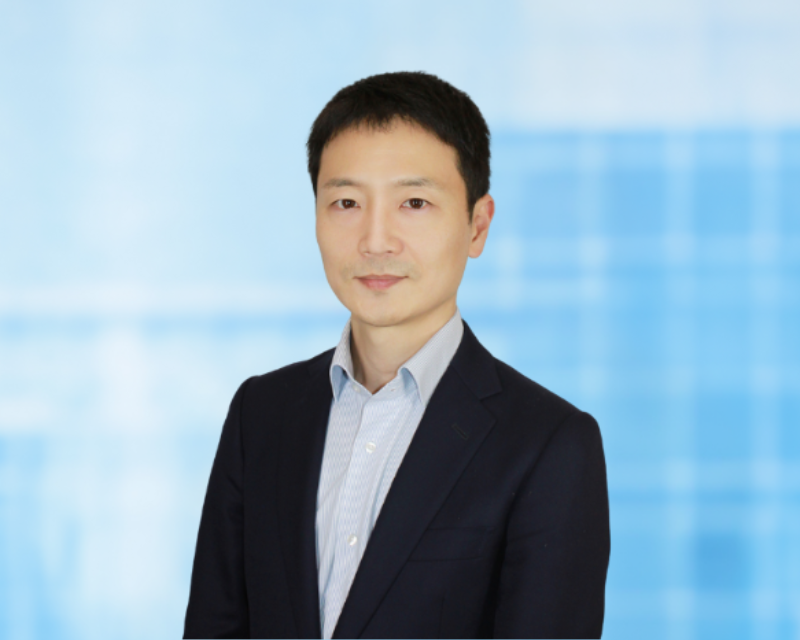
Masafumi Shimozu (DiMBA Intake 2023), a Japanese student who currently resides in Sydney Australia, turns to embark on a Digital MBA journey to advance his career in banking.
The Choice to Pursue an MBA at HKUST
To Masafumi, the benefits of his flexible course schedule became evident. It allowed him to take courses on the weekends without disrupting his work commitments. This flexibility also gave him the opportunity to pursue electives that could complement his career aspirations and work responsibilities.
He noted a particular interest in courses related to blockchain, cryptocurrency, and information management. He felt these subjects would help elevate his knowledge in the fintech industry and digitalization more broadly. The ability to tailor his curriculum to his professional interests was a key advantage of his educational program.
Additionally, the diverse student population and global viewpoints were another draw for Masafumi in choosing this program, specifically the Asia-centric student body at HKUST. He is also very eager to share his experiences as a banker living in Hong Kong, Singapore and Australia, but also wanted insights from fellow classmates on their perspectives on Asian business culture and contexts. The opportunity to learn from and exchange ideas with a globally diverse group was an important factor for Masafumi.
Career Goals and Aspirations
Masafumi plans to leverage an MBA in helping him bridge the gap between being both a global business leader and knowledge in the fintech industry. He hopes to bring back the business skills acquired on the MBA program to his current workplace.
Best Memory Yet
The best part of the DiMBA Program so far for Masafumi has been the in-person and interactive experiences. As he describes it, "the in-person and interactive experience makes me motivated." During his on-campus visit, Masafumi was energized by the opportunity to meet his classmates face-to-face and engage in dynamic discussions. The vibrant campus environment and collaborative learning format has been a highlight, reinvigorating his passion for continuing his management education. Masafumi looks forward to further immersing himself in the program and tapping into the diverse perspectives of his peers to enhance his business acumen.
Speak to an advisor today to learn more about the HKUST Digital MBA program.
Individual Consultation with MBA Advisor
Download Brochure | HKUST MBA | Learn. Innovate. Lead.
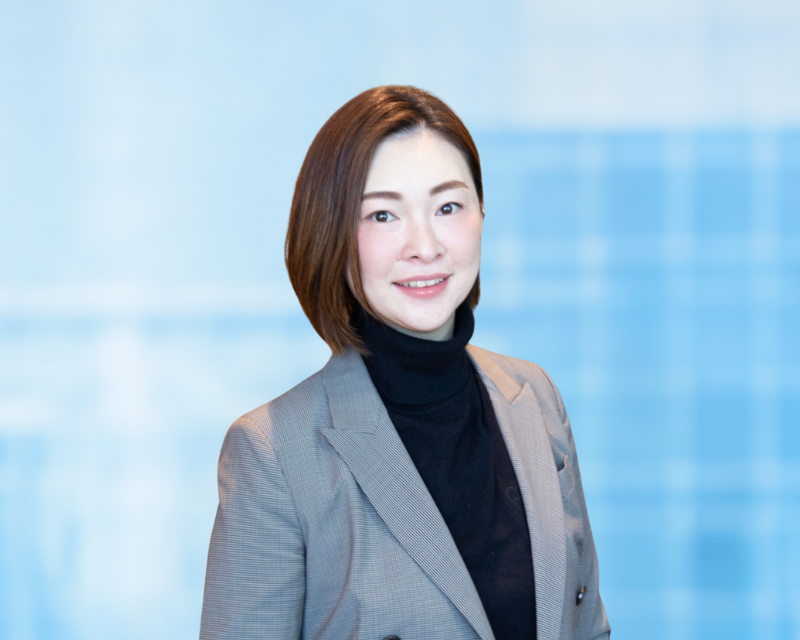
Chisato Suh Takahashi (DiMBA Intake 2023) is a visionary leader in the digital marketing realm, currently serving as the Director of Marketing Strategy and Operations at " Eureka inc.” of Match Group.
Motivated by a strong dedication to empowering women, Chisato choses to advance her education to broaden her influence. She expresses, "I aimed to explore a more innovative career direction." Opting for an online MBA program stemmed from her aspiration to merge her work background with academic development, enabling her to elevate her career seamlessly.
Harmonize Ambition and Lifestyle with the Innovative Digital MBA.
The HKUST Digital MBA (DiMBA) emerges as the perfect fit for Chisato, offering a harmonious blend of flexibility and quality of education. "The flexibility offered by HKUST's Digital MBA program is essential for me. I have reached a certain point in my career, and I am keen on continuing my career progression without interruptions." she emphasizes. As Asia's top-ranked business school, HKUST provides a globally recognized and flexible Digital MBA program that aligns perfectly with Chisato's ambition to enhance her global competitiveness.
Chisato values the same curriculum design and faculty teaching of Digital MBA with the In-person MBA programs. She notes, "I want to have the full package of knowledge and experiences that a traditional MBA program offers. The graduation certificate if DiMBA is equivalent to Full-time MBA program is a remarkable feature, this certificate will ensure my future competitiveness in the job market.” Its global recognition aligns with Chisato’s aspirations to work internationally, ensuring her skills and qualifications are valued worldwide. The program’s innovative approach and commitment to a robust educational experience make it an ideal choice for professionals like Chisato, who aim to balance career advancement with personal growth.
Connect, Collaborate, and Thrive - Building a Lasting Bond Virtually
Chisato has found her learning experience at HKUST to be incredibly rewarding, largely due to the diverse and supportive cohort. The compact class size of the Digital MBA fosters open communication and lively discussions. She appreciates the active chat group where classmates discuss a variety of topics, from personal to study-related to work-related matters. Chisato values the relationships and friendships built within this interactive environment.
“Our chat group is incredibly energetic and proactive, which makes learning with them a truly dynamic experience. We dive into everything from personal stories to study tips and work advice, and the small class size keeps our interactions lively and engaging. I absolutely thrive on the positive energy and strong friendships we've built—it's a fantastic way to learn and grow”, Chisato shares.
She highlights the strong sense of community, noting that friendly competition and constructive feedback among classmates enhance the learning experience. The program’s “immersion week” in Hong Kong was pivotal, allowing her cohort to bond quickly and form lasting friendships. This initial week created a strong sense of bonding, with everyone sharing the common goal of graduating from the Digital MBA program. This bond supports virtual classes and online communication, enriching her online learning experience.
Despite initial concerns about online classes, Chisato has found them engaging and effective. The robust digital tools provided by HKUST facilitate interaction, ensuring that virtual classes are as dynamic as in-person ones. This innovative approach to online education has allowed Chisato to fully immerse herself in the learning process, benefiting from the diverse backgrounds of her peers.
Tips for Potential Applicants
Chisato advises, "Think about what you truly want in your professional and personal life." She encourages candidates to reach out to HKUST MBA Office’s friendly administration team and current students for insights. "Your career belongs to you—seize the opportunity to make it extraordinary." Explore the HKUST DiMBA program to help shape your career path and achieve your ambitions now.
Individual Consultation with MBA Advisor
Download Brochure | HKUST MBA | Learn. Innovate. Lead.
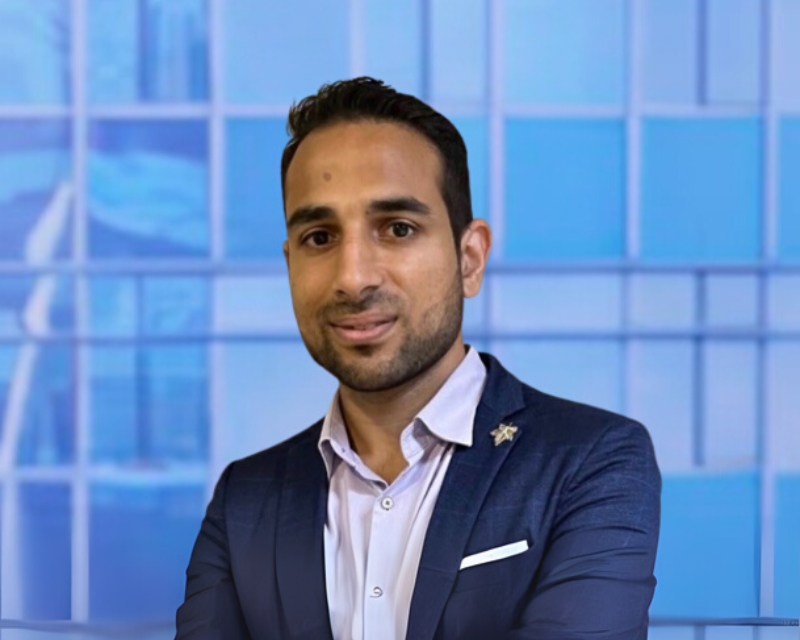
In an era where digital innovation is at the forefront of business transformation, professionals like Waqas Mahmood are taking bold steps to enhance their expertise and leadership skills. With over seven years of experience in the IT industry, Waqas currently excels as an IT consultant at Deloitte. To propel his career to new heights, he has chosen to pursue the Digital MBA (DiMBA) program at the Hong Kong University of Science and Technology (HKUST).
The Unique Appeal of HKUST's DiMBA Program
Waqas was drawn to the HKUST DiMBA program for its unique positioning in the Asia-Pacific region. Unlike many traditional MBA programs, the HKUST DiMBA integrates cutting-edge technology with business education. This blend is particularly appealing to professionals like Waqas who seek to stay ahead of the curve in understanding the latest technology trends.
"The digital MBA program of HKUST is quite unique when compared to other MBA programs," Waqas notes. "There are not many digital MBA programs in the Asia-Pacific, and HKUST specializes not only in business but also in technology. If someone wants to gain more understanding about the latest technology trends, then they can join this MBA program."
Enhancing Critical Thinking and Soft Skills
Beyond its technological focus, the HKUST DiMBA program emphasizes critical thinking and the practical application of business concepts. For Waqas, this approach is crucial in translating academic knowledge into professional success.
"The HKUST MBA program not only teaches business concepts but also teaches us, the candidates, how to think critically and bring the learnings from the MBA program to our professional working life," he explains.
Waqas is particularly keen on developing his soft skills, which he believes are essential in today's dynamic work environment. "I want to develop soft skills and connect with like-minded people. In the current world, soft skills are much more important than hard skills," he asserts. "The main aim I'm looking to develop from this digital MBA program is to develop my soft skills, my leadership skills, and my critical thinking skills."
Building a Global Network
One of the significant advantages of the HKUST DiMBA is its ability to connect professionals from diverse backgrounds and industries. For Waqas, this aspect is invaluable as it allows him to build a network of like-minded peers and industry leaders.
By participating in the DiMBA program, Waqas expects to forge meaningful connections that will not only enrich his academic experience but also provide opportunities for collaborative growth and innovation in his professional career.
Individual Consultation with MBA Advisor
Download Brochure | HKUST MBA | Learn. Innovate. Lead.

“Pursuing an MBA at HKUST has been one of the best decisions that I have ever made. It has not only transformed me professionally, but also personally. It has been such a rewarding experience that if I had the chance to do it all over again - I would."
Meet Lin Yuan, from our Full-time MBA program, Class of 2021.
Lin was born in China and grew up in Sydney, Australia.
At that moment he had two options in mind, either to look for a new job or to pursue an MBA.
MBA: why Hong Kong instead of Australia?
Lin highlights his key factors of deciding to pursue an MBA in Hong Kong.
“Having worked in Hong Kong previously, I have always experienced the city as a melting pot between the east and the west cultures. Its geographical location also serves as a strategic advantage, within 15 minutes you can take the high-speed rail across the border to mainland China, or a two three-hour flight to anywhere in South East Asia."
Were there any obstacles that you overcame during the admissions process?
The decision for Lin to pursue an MBA came within a short timeframe. With limited time to prepare for his GMAT and juggling personal and professional responsibilities, his first attempt resulted in a less than impressive score.
“At that moment, I felt like my chances of obtaining an MBA at HKUST had completely vanished. To my surprise, which later became my motivation, was the admissions team encouragement and patience to have a second go at the GMAT exam (even after the admission deadline). To me, this truly shows that HKUST selection criteria’s for their candidates, is not solely based on exam scores, but it was a basket of consideration factors such as working experience, previous qualifications, life journeys, interpersonal skills, and lastly which I think the most importantly, our motivation and aspirations to become a better individual after an MBA. We quite a lot hone on the word "diversity" in the MBA program, for me I believe this is reflected in our selection process and the appreciation that every person brings something different to the table.”
Gaining International Exposure and Maximizing your experience at HKUST: Exchange Programs and Internships
The HKUST MBA program offers full-time and part-time MBA students access to a world of international collaboration and enhance their global perspective to maximize their experience during the MBA program. Through our partnerships with the Global Network for Advanced Management (GNAM) and being the only member school in Hong Kong along with other renowned universities across 28 countries, Master of Advanced Management (MAM) Program at Yale University’s School of Management (Yale MAM), Exchange Semesters, and Doing Business In (DBi) Program and networks, our students can broaden their horizons and take advantage of global opportunities.
“Internships during the MBA program are not mandatory, however most of us decide to undertake one. The main reasons why are that it allows us to apply the skills that we have learned in the classroom and also to try new industries and roles that we wish to pursue after the MBA. For me, the internship also offered a platform for me to learn about the organization’s culture and values to see if this is the right fit for me for my career."
HKUST has established a strategic connection with BASF, a leading global chemical company, based on a shared vision of nurturing future business leaders equipped with a solid foundation in business fundamentals and the agility to thrive in an ever-evolving landscape. Initially, Lin began a three-month internship at BASF, but due to the circumstances at the time, he extended his internship to 11 months. Lin shared that his MBA exchange with NYU Stern School of Business was delayed due to the disruptions caused by COVID-19. Despite the challenges, Lin successfully secured a full-time role at BASF, which he accepted. He postponed his classes for two months to embark on a business trip to Shanghai while simultaneously starting his virtual exchange with NYU Stern School of Business.
During his internship at BASF, Lin experienced his 'ah-ha moment.' Reflecting on his MBA journey, he noted that the most significant change he observed in himself was his way of thinking. When he laid everything out in terms of the scope, and in terms of his broader thinking, not only from a sales perspective, which is where his strong suit was, but also obtaining the perspective of the understanding all aspects of each departments within a company such as marketing, finance, logistics, operations, strategy, technology, and more, was the breadth that you get going through an MBA. “You are no longer a specialist, but now you’re a generalist who knows a bit of everything."
The importance of having a diverse group of professionals in your intake
At HKUST's MBA program, we take immense pride in our strong and close-knit community, which continues to grow. With over 6,300 accomplished MBA individuals from more than 70 nationalities across 60 countries, our diverse network is truly special.
Lin stated that the professional and cultural diversity of the HKUST MBA program served as the catalyst for his broader understanding of business. His classmates from the 2019 intake represented various professions, including consulting, finance, accounting, HR, IT, marketing and sales, operations, and logistics, resulting in a rich mix of expertise. The average age of his classmates was 29, and 96% of them were non-local students.
An unforgettable example that Lin shares is “During one of my financial account classes, I had a question that I did not know how to answer – my first reaction was not going to go to Google to search for the answer. Actually, my answer was to pick up my phone and call a classmate with a financial accounting background.”
Lin expresses that he uses this example on a regular basis “as you transcend into the business world, these are the people that you build relationships with throughout your MBA journey that you can rely on and help each other to maximize both career and personal goals.”
Is an MBA for everyone and is an MBA still worth it?
Lin shares that an MBA is not for everyone. However, he believes that by reaching out to alumni and students to learn about their MBA experiences and success stories, one can start to determine whether an MBA program would align with their career journey. In Lin's case, he feels that he received a return on investment (ROI) from pursuing an MBA at HKUST. Reflecting on his own success story, he believes that pursuing an MBA has “changed me both personally and professionally, but at the same time, I measure the ROI of an MBA not over the new few years that I have completed the program, but it’s really over my lifetime with the networks that I have built and the continuous learning mindset that we have developed throughout the program.”
As the Head of Product Management, Dispersions, Asia Pacific at BASF, is there any advice that you would give to prospective students interested in this industry?
For Lin, the decision to go for an MBA did not cross his mind where he had a fixed mindset of which industry he wanted to pursue. Lin adopted an open-minded approach, recognizing the value of maximizing his experience with the various global exposure opportunities offered by HKUST MBA such as global exchange programs, company visits locally or abroad, recruitment events, executive talks with industry leaders, career coaching, and more.
After completing the MBA program, Lin pathed his way in a leading global chemical company, BASF. “If you asked me if this was where I saw myself after the program – the answer is not in a million years. However, if you followed up with the question; do you think you made the right decision and are you enjoying your work – the answer would be a million yes-es.”
During the early stages of thinking of pursuing an MBA, candidates may not always have a clear career path. If you are someone like Lin who is more curious about what other industries or career paths are out there, Lin suggests to “use these 16 months (standard study mode Full-time MBA) wisely and keep an open mind, because sometimes if you are so focused on just one target often you might miss some of the golden opportunities that are just right in front of your eyes.”
Beyond the Classroom: Social Impact Club
The Social Impact Club is one of the eight student clubs at HKUST and is a non-academic club, established by Lin and fellow classmates, leveraging the skills of each member with the same objective to make an impact on society.
Embracing the belief that “to learn is to lead”, we empower our Full-time MBA students to take the initiative in establishing professional and cultural student clubs aligned with their passions and interests. These clubs provide a platform to apply classroom learning, hone networking and leadership skills, and enhance communication capabilities. Our diverse range of student clubs have included Consulting & Strategy Club, Finance & FinTech Club, Entrepreneurship Club, Sustainability Strategy Club, Japan Club, and more.
Advice for future MBA students
Lin has always had the attitude of ‘work hard, play hard’. If there is one quote that he can share, it would be “There is more than a GPA, in an MBA.”
Individual Consultation with MBA Advisor
Download Brochure | HKUST MBA | Learn. Innovate. Lead.
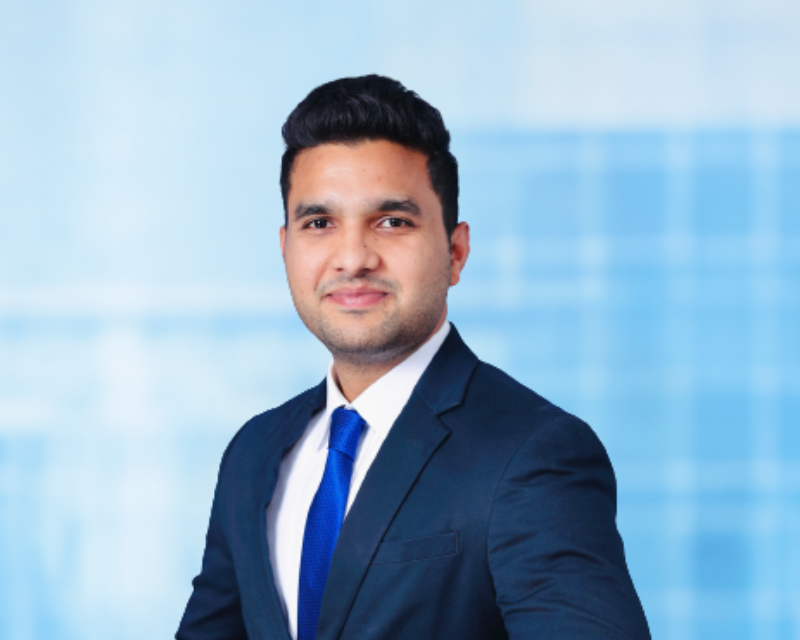
Investing in Growth and Future: A Mindset for Lifelong Learning
Hailing from a data analytics background, Naveen relocated to Hong Kong from India in 2018 to build and lead a team on consulting projects with Deloitte China. Since then, he has called this city home. Fueled by a lifelong ambition for self-improvement and a desire to make a positive impact, Naveen saw pursuing an MBA as a strategic investment.
“The greatest investment you can make is in your education and self-development. When tasked with greater responsibilities back then, I felt a strong need to acquire skills, knowledge, perspectives, and connections that would complement and accelerate my career. HKUST’s close ties to industry, the vast variety of electives and exchange opportunities offered by the HKUST MBA program, its extensive alumni network, and the flexibility of the Part-time Weekly mode were all factors that drew me to the program,” said Naveen.
How does Naveen balance his achievements, communication and priorities?
“I proactively articulated how my employer would benefit from the learnings I’d gain from the MBA program and the return on this investment. I was also transparent about trade-offs and boundaries while maintaining flexibility to avoid overcommitment. Regular catch-up sessions and sharing calendars are great ways to keep management and your team updated and secure their support throughout your MBA journey,” shared Naveen.
Seizing the Exchange Opportunity as a Part-time Student
Seeking to refresh his perspective after a decade in the workforce, Naveen leveraged HKUST MBA’s extensive exchange partner network to pursue an exchange with IESE Business School in Barcelona, Spain. This allowed him to sharpen his skills in sustainability strategy and emerging economics. To make this once-in-a-lifetime experience possible, Naveen strategically used his sabbatical and annual leave to take time away from the office during the non-peak season. He meticulously planned the transition and delegated responsibilities to his team.
“During my exchange at IESE Business School, I actively participated in several MBA Clubs and conferences. This allowed me to build an international network and appreciate cultural diversity and different perspectives. These skills are particularly valuable for future collaboration with others in a global business environment,” said Naveen.
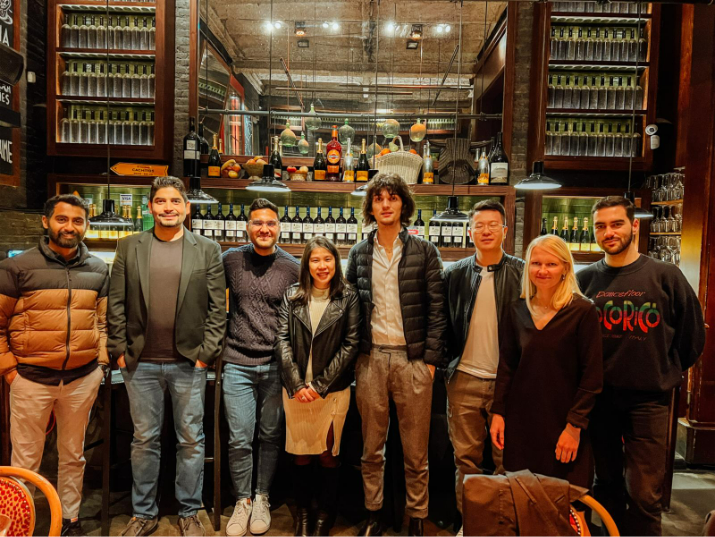
During his exchange in Spain, Naveen organized an alumni mixer and hosted full-time MBA students representing HKUST at the Roland Berger Case Competition.
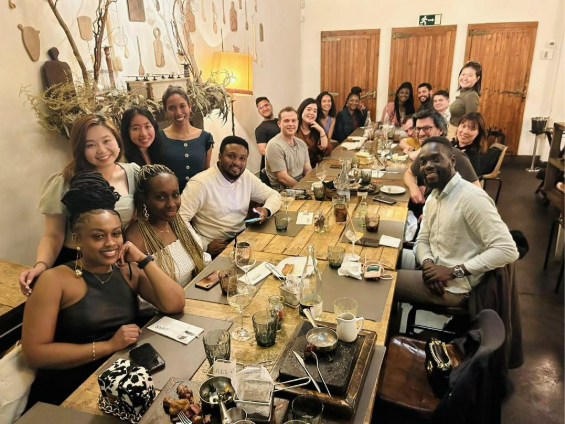

Naveen expanding his network and celebrating cultural diversity during his exchange at IESE Business School in Spain. (Left: Farewell dinner with fellow exchange students. Right: Multi-Culti Fest)
Doors of Opportunity: Becoming a Change Catalyst
The HKUST MBA program is your springboard to achieve exactly that. Embrace a period of intense personal and professional growth as you gain a broader perspective, hone your leadership skills, and build a lifelong network of ambitious peers and world-class faculty. Imagine yourself confidently leading diverse teams, making strategic decisions, and inspiring those around you. Take the first step towards becoming a change catalyst.
LEARN MORE ABOUT OUR PART-TIME (WEEKLY) MBA PROGRAM
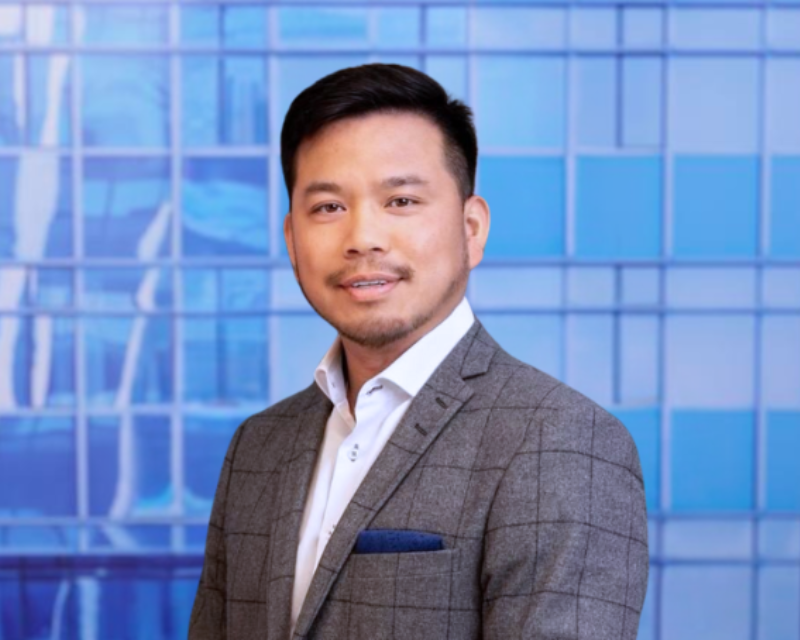
Kenrick Li (DiMBA Intake 2023) from Vancouver, BC, Canada. He currently works as a Regional Manager in the Luxury Automobile Industry, dealing with captive finance and lending, after-sales product planning and sales training.
Emphasis on Personal Growth and Leadership Development
Kenrick did not view the MBA primarily as a means to advance his corporate ladder climb. Rather, he felt he had reached a point in his corporate career where he should seek an "unparalleled opportunity" through the MBA program.
Specifically, Kenrick was looking to immerse himself in a community that could provide him with valuable insights and skills essential for becoming a global leader. The MBA represented a chance for him to gain new perspectives and capabilities beyond just the technical foundations of business, benefiting him professionally and personally.
The HKUST Digital MBA Program
Kenrick was particularly drawn to the HKUST Digital MBA's reputation for excellence in teaching, with a world-class faculty comprised of over 150 academics with extensive research and industry expertise.
Beyond the program's academic rigor and world-class faculty, Kenrick was impressed by the university's adoption of a blended learning model. This approach allowed students to experience both virtual core classes as well as face-to-face electives. The blended format provides the flexibility of online learning for the core curriculum, while still offering valuable in-person interaction and discussion-based learning in the elective courses. This combination can give students the best of both worlds.
Other Contributing Factors to Choosing the Right Program
Aside from the program's unique blended learning design, another key factor that drew Kenrick to the HKUST Digital MBA was the school's active international alumni network and diverse class cohort of over 20 nationalities across the last three intakes. This array of perspectives and insights will enhance the peer-to-peer learning experience, fostering insightful discussions into different business domains.
As the program enters the summer term, Kenrick looks forward to creating and fostering long-lasting relationships. He adds, "The hard and soft skills I gain will enable me to be more effective in business and my personal relationships as well." Kenrick is also eager to fully immerse himself in all that the HKUST Digital MBA program has to offer.
Individual Consultation with MBA Advisor
Download Brochure | HKUST MBA | Learn. Innovate. Lead.
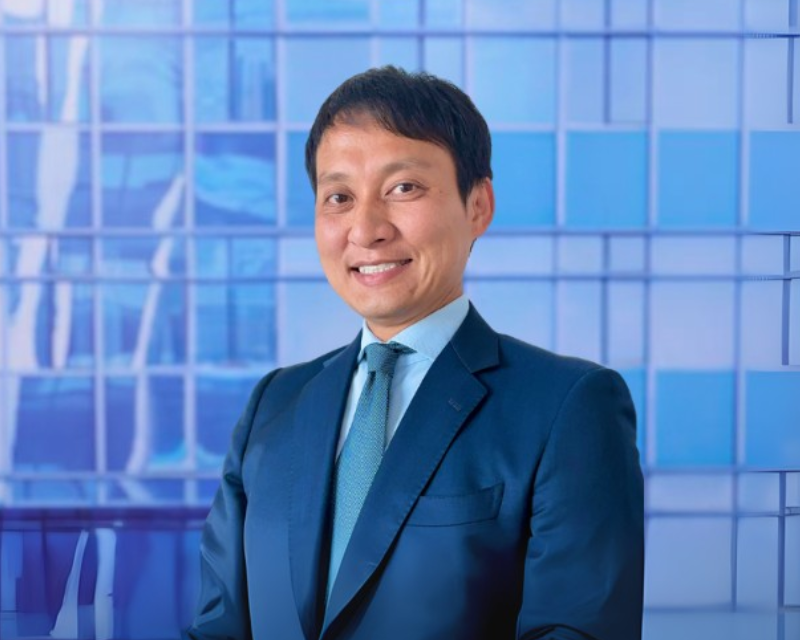
Hailing from Japan, our Digital MBA Intake 2023 student Satoshi Nonaka (Justin) is a seasoned professional embarking on an online MBA journey alongside his senior-level leadership role in Silicon Valley. As a senior-level leader, he currently oversees strategic partnerships between insurance and innovative startups, spearheading these initiatives under the venture capital arm of the MS&AD Group. Facing the challenge of pinpointing promising startups, he has chosen to enhance his hands-on business and technology expertise with a comprehensive business education.
Why HKUST's Digital MBA Program
Justin has reached a point in his career where he is eager to tackle new challenges and explore avenues for growth within the insurance and technology landscape. He explains that pursuing an MBA will empower him to approach these high-level strategic decisions with an enhanced understanding of business fundamentals, providing a foundation to judge which startups have potential and are truly innovative.
To find a top-notch program that offers the specific coursework he was seeking, Justin came across the Digital MBA (DiMBA) at the Hong Kong University of Science and Technology (HKUST). Ranked #1 in Asia by Bloomberg Businessweek, the HKUST DiMBA program is taught by over 150 distinguished scholars and industry experts from 25+ countries, bringing diverse perspectives and extensive research expertise.
With his extensive experience navigating the fast-paced world of Silicon Valley, Justin is poised to bring a unique perspective to the DiMBA program. His classmates can look forward to learning from his real-world insights and proven track record of success in the corporate realm.
The beauty of Justin pursuing Digital MBA is the ability to immediately apply what he' has learnt in the classroom to his current role. By studying and working concurrently, he can adapt new skills and knowledge to his day-to-day responsibilities in real-time. This symbiotic relationship between the academic and professional worlds will accelerate Justin's growth and ability to drive impact within his organization.
HKUST Digital MBA vs. Conventional online program
The HKUST Digital MBA program stands out from conventional online MBA programs through its blended learning approach and mandatory in-person components. This blended learning model provides students with the flexibility of online learning combined with valuable face-to-face experiences.
A key differentiator is the program's curriculum structure, which is comprised of over 50% electives. This allows students to customize their learning path and take courses that best align with their career goals and interests. Furthermore, students have the option to enroll in in-person electives, enabling them to learn alongside participants in HKUST's full-time and part-time on-campus MBA programs.
In addition, all Digital MBA students are required to attend an on-campus Immersion Week. This serves as a critical kickoff to the program, facilitating cohort bonding, skills development through workshops and experiential learning, company site visits, and networking with alumni and current students.
This blend of online study and mandatory in-person engagement sets the HKUST Digital MBA apart from more traditional fully online MBA programs. It provides working professionals with the flexibility of an online format coupled with high-touch, interactive experiences to enhance learning and professional development.
Justin's best memory from Immersion Week was the chance to meet his fellow classmates, bonding over team building activities, intensive workshop. The chance to meet on campus "made him feel like a HKUST student, giving him motivation and pride".
Individual Consultation with MBA Advisor
Download Brochure | HKUST MBA | Learn. Innovate. Lead.
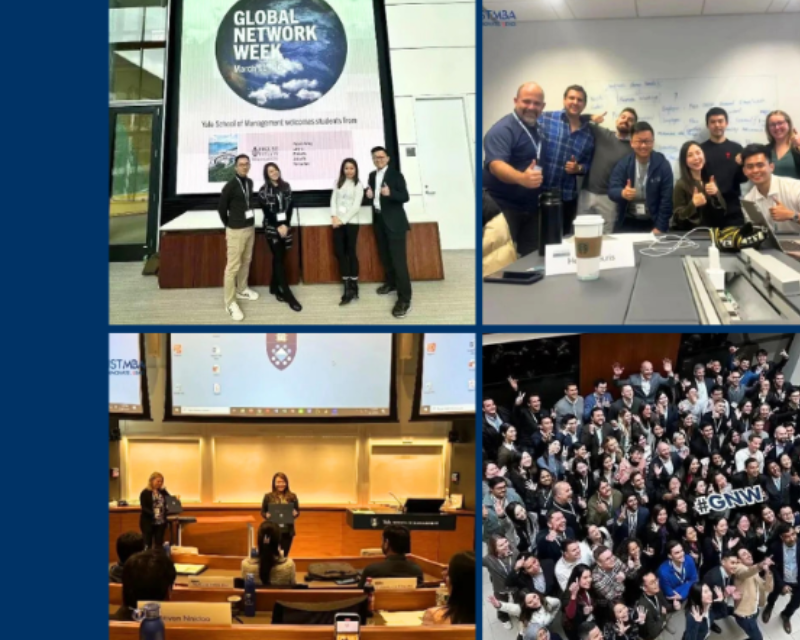
At HKUST MBA, we offer our MBA students the chance to participate in four different exchange programs, which provides them to gain international exposure and maximize their experience during the program. Through our partnerships with Global Network for Advanced Management (GNAM), Master of Advanced Management (MAM) Program at Yale University's School of Management, and Doing Business In (DBi) programs and networks, our students can broaden their horizons and take advantage of global opportunities.
Whether you're a full-time or part-time MBA student, we provide access to a world of international collaboration and diverse business insights through a range of exchange programs and opportunities.
This year, our MBA students embarked on their Global Network for Advanced Management (GNAM) spent a week at our network school, Yale University's School of Management, participating in a course called Behavioral Science of Management.
Student Experiences
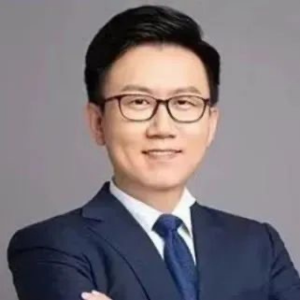
Larry Li, Intake 2020, Part-time MBA (Bi-Weekly Mode).
Deputy Chief Advisor, Smart City Division, Hong Kong Productivity Council
“I am very honored to participate in the GNAM global network week program representing HKUST MBA, and spending a valuable week at the School of Management at Yale University. Although the time was short, I experienced Yale University's Management Behavioral Science course, which was very rich in content, involving behavioral science, consumer experience, negotiation thinking, influence, and so on, and gained a lot!"
"This program brings together 98 students from different countries and regions, and this cross-cultural exchange is very rare and interesting. In class, students actively participate in Q&A and discussion, and after class, they team up to check in on the local food and attractions. Although the time was short, the classmates all established good connections and made plans to meet again!"
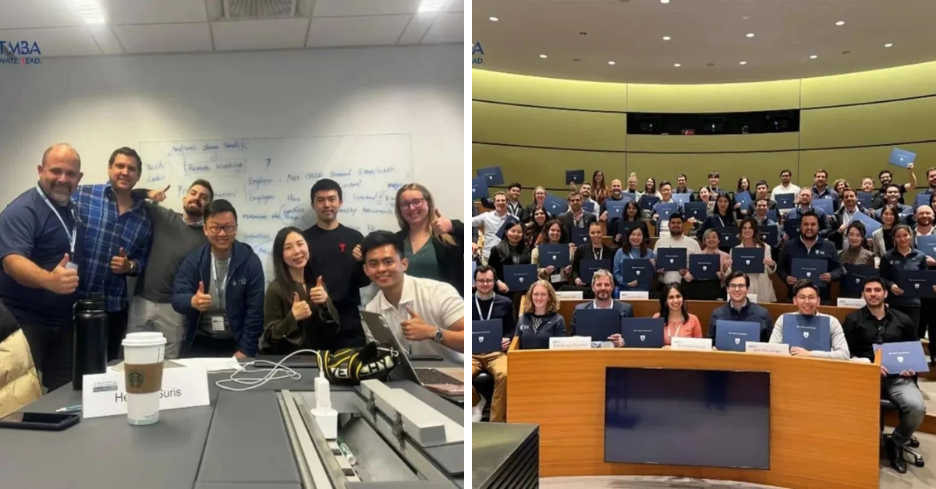
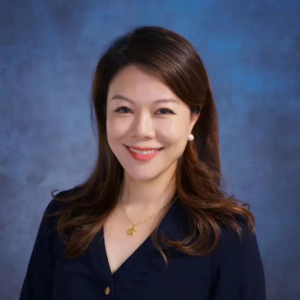
Elaine Du, Intake 2021, Part-time MBA (Bi-Weekly Mode).
Head of International Audit, Shenzhen Mindray Bio-Medical Electronics Company Limited
“A short week of campus life, with a total of 98 students from universities in 17 countries experiencing a collision of thoughts, was an unforgettable for a lifetime. The teaching methods of top professors are simple and easy to understand, analyzing such abstract Behavioral Science from individual and organizational dimensions, deriving objective behavioral summaries from extensive research data. I deeply felt the academic frontier power of Yale on this topic. Cultural exchanges with different team members from six countries have broadened my way of thinking and helped me better understand the unique characteristics and differences in how people from various countries interact."
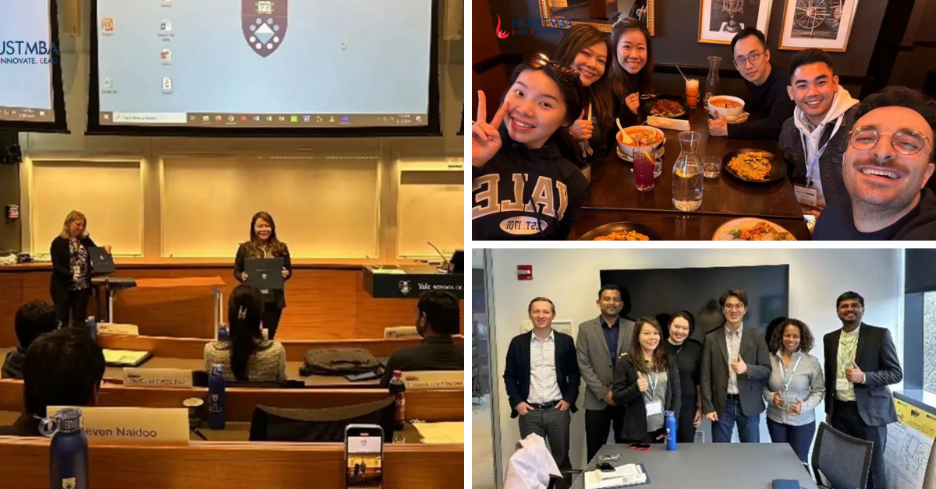
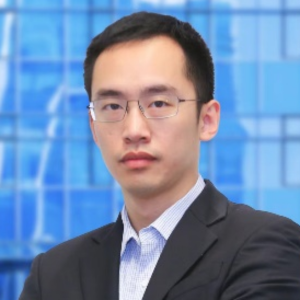
Zhixin Yu, Intake 2021, Part-time MBA (Bi-Weekly Mode).
Associate Director, Bristol Myers Squibb R&D China Portfolio and Project Management
“The Yale GNAM week trip taught me not only specific viewpoints but more importantly, the thought processes and logical frameworks behind the perspectives proposed by professors and classmates from different cultural backgrounds. What truly made this week special was our final group presentation. Our group, through a vote, abandoned the traditional PPT summary format and adopted a new approach of theatrical performance to better portray the actual psychology behind human behavior and how to predict consumer behavior and make decisions."
"If you also desire to expand your global perspective and grow with outstanding talents, then the HKUST MBA program will be the ideal choice for you to achieve your career goals. Join us now and embark on an exciting journey into the future together"
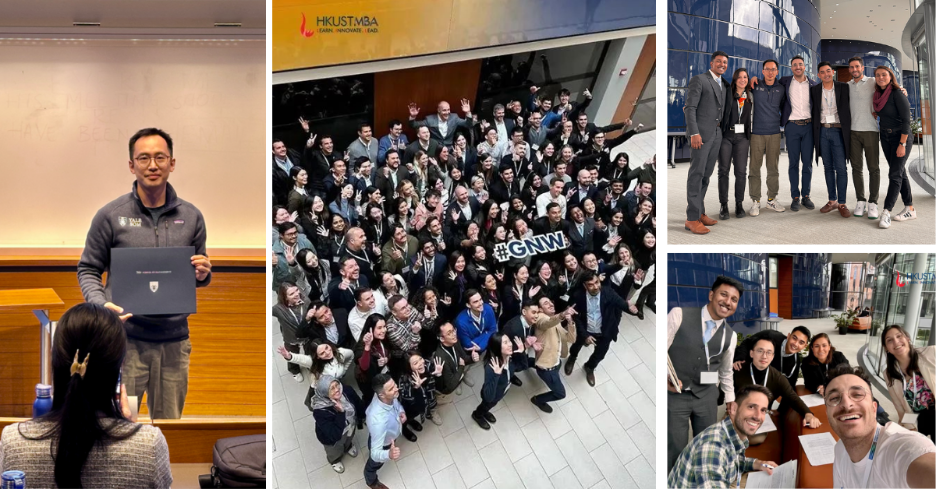
Learn More
About Our Program | World-class Faculty | Arrange a Campus Visit
Download Brochure
Full-time MBA Program | Part-time MBA Programs (Weekly & Bi-Weekly) | Digital MBA for Global Leaders

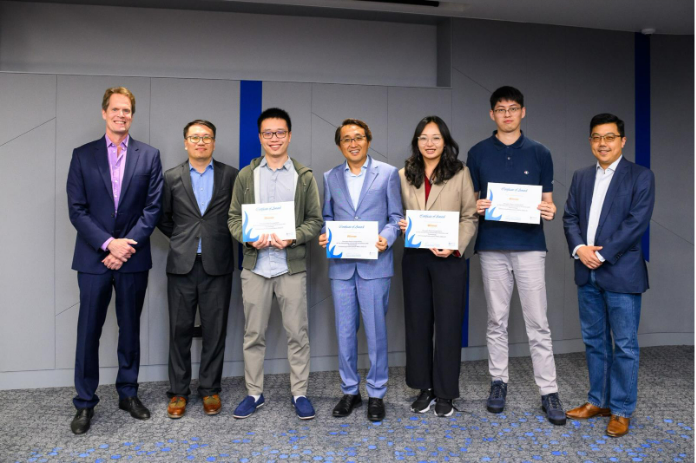
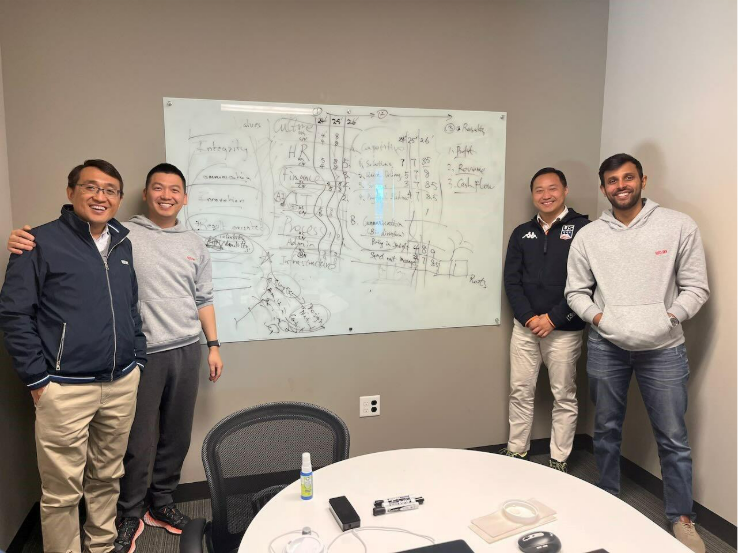
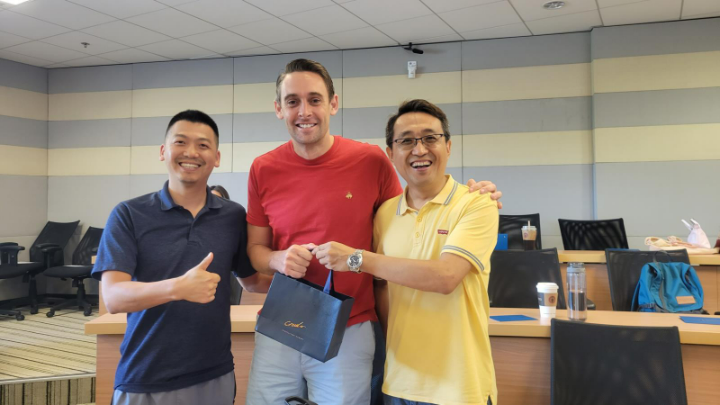
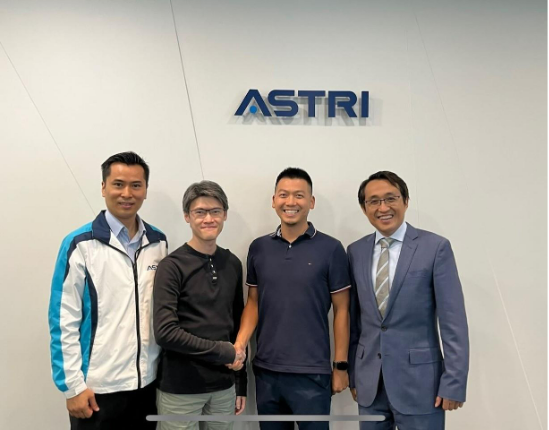
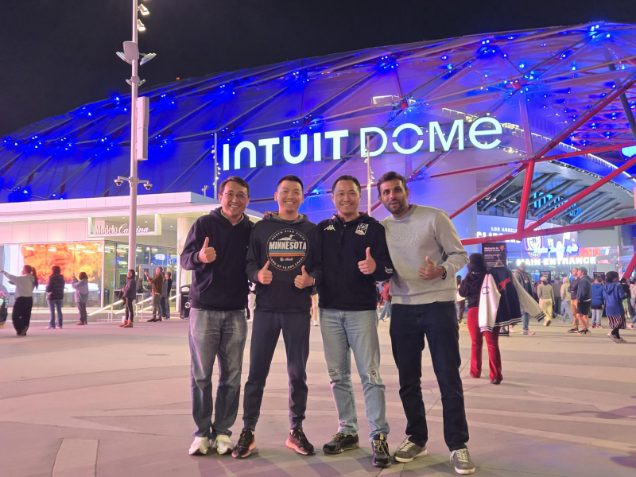
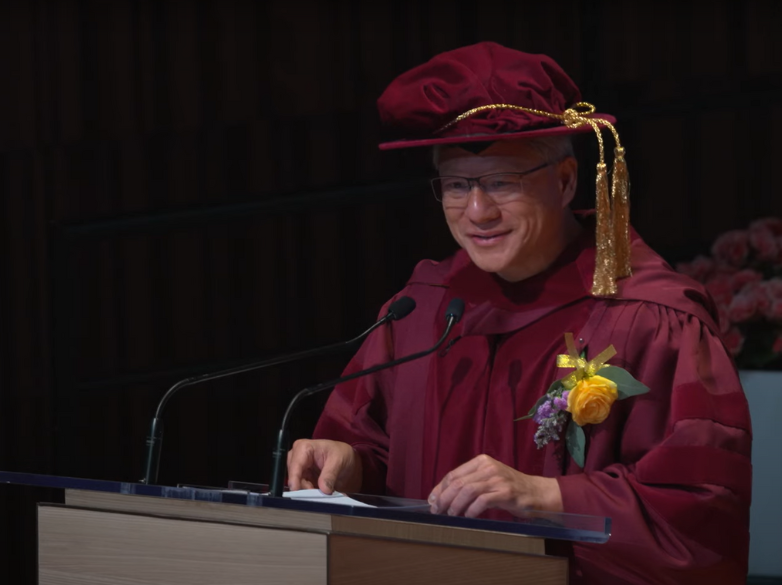
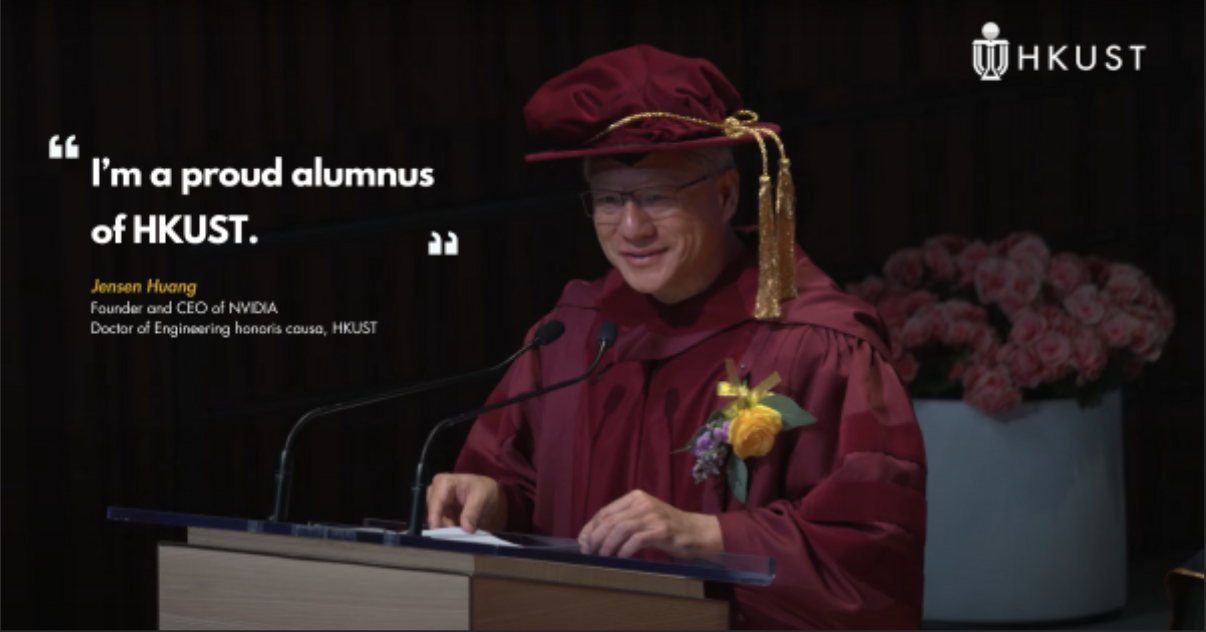 (“I’m a HKUST alumnus!", Jensen Huang)
(“I’m a HKUST alumnus!", Jensen Huang)
 (From the right: Dr. Harry Shum is HKUST Council Chairman and former Microsoft EVP leading AI and Research.)
(From the right: Dr. Harry Shum is HKUST Council Chairman and former Microsoft EVP leading AI and Research.)

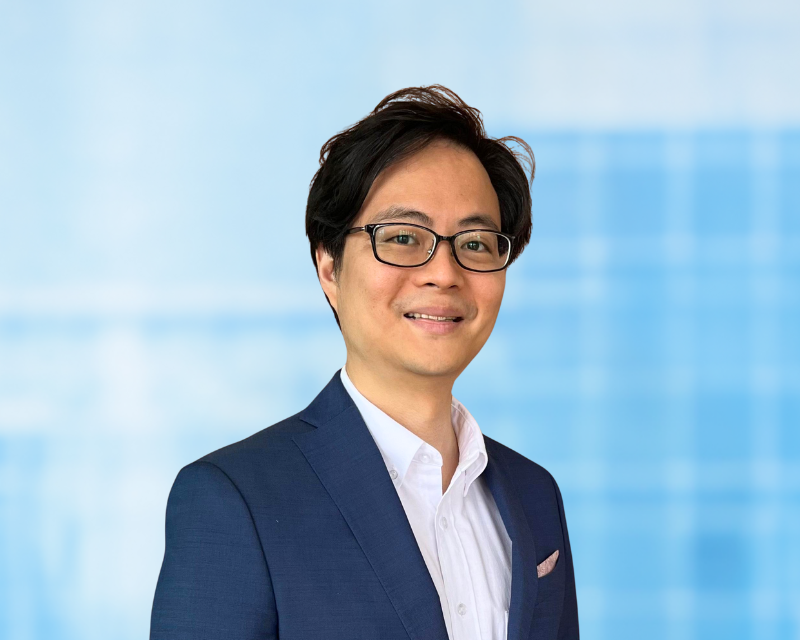
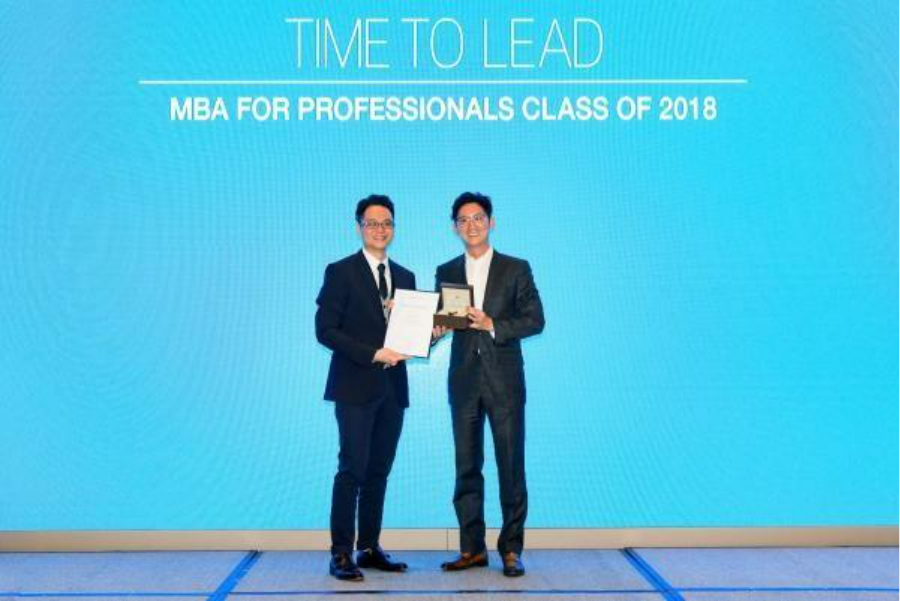

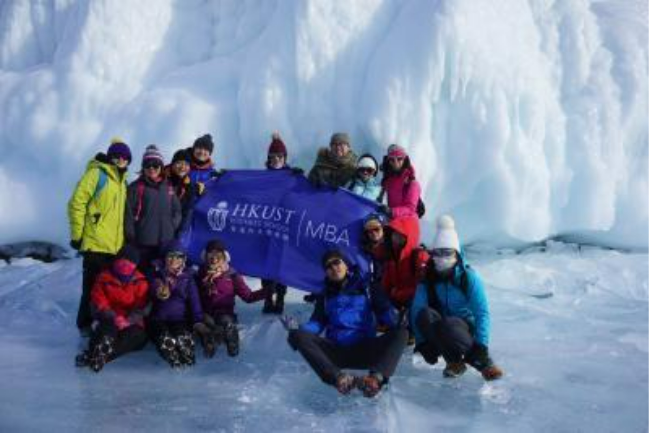

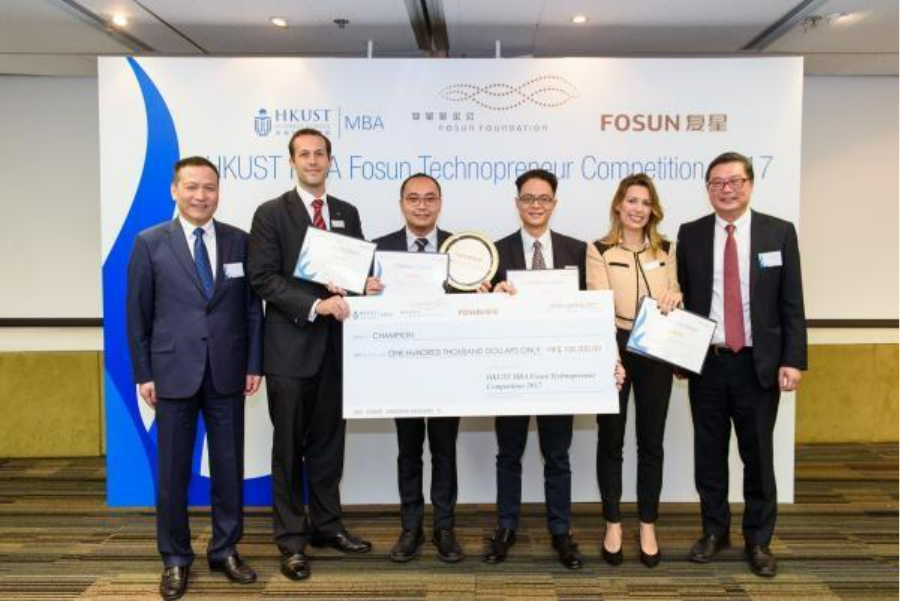
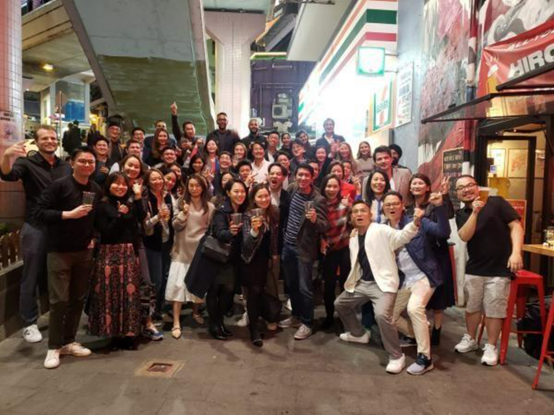

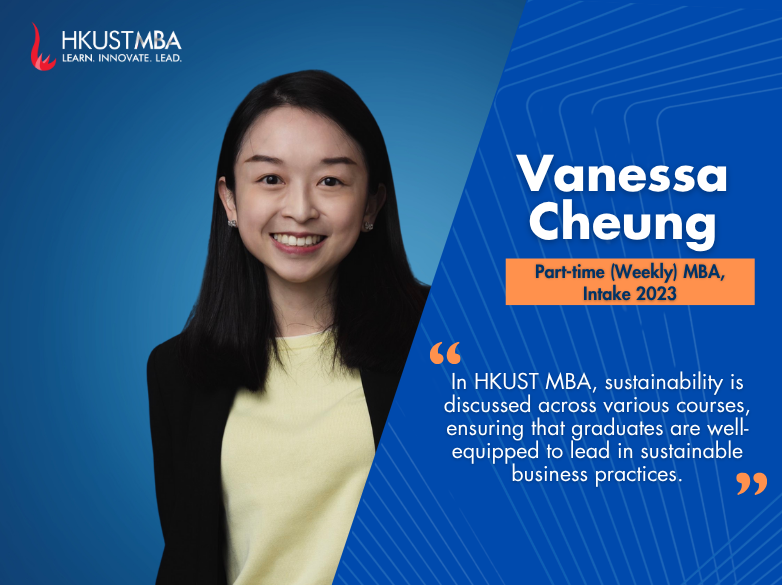
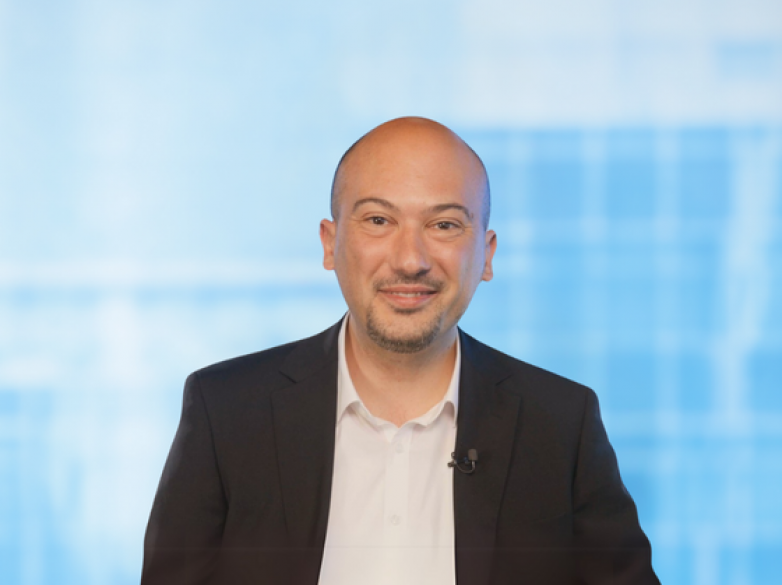
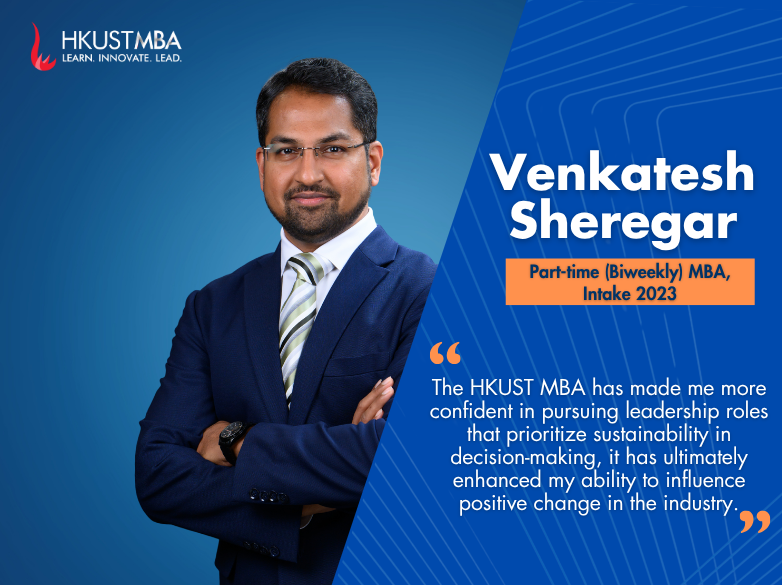

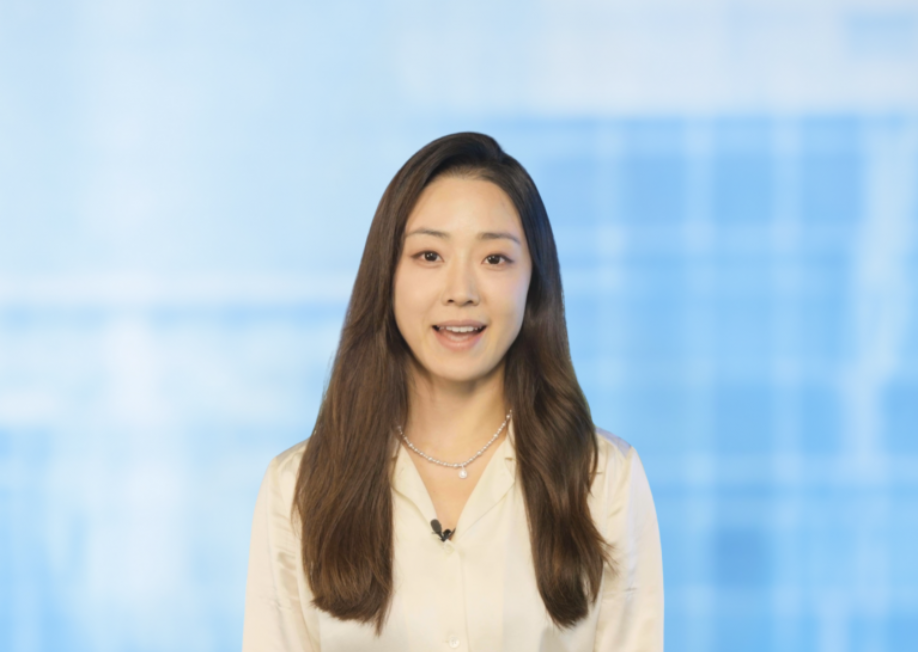
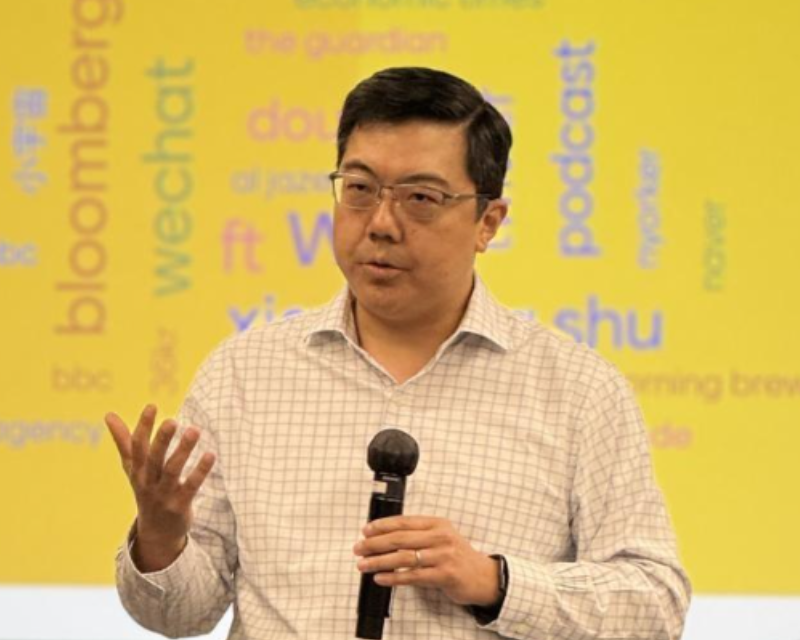
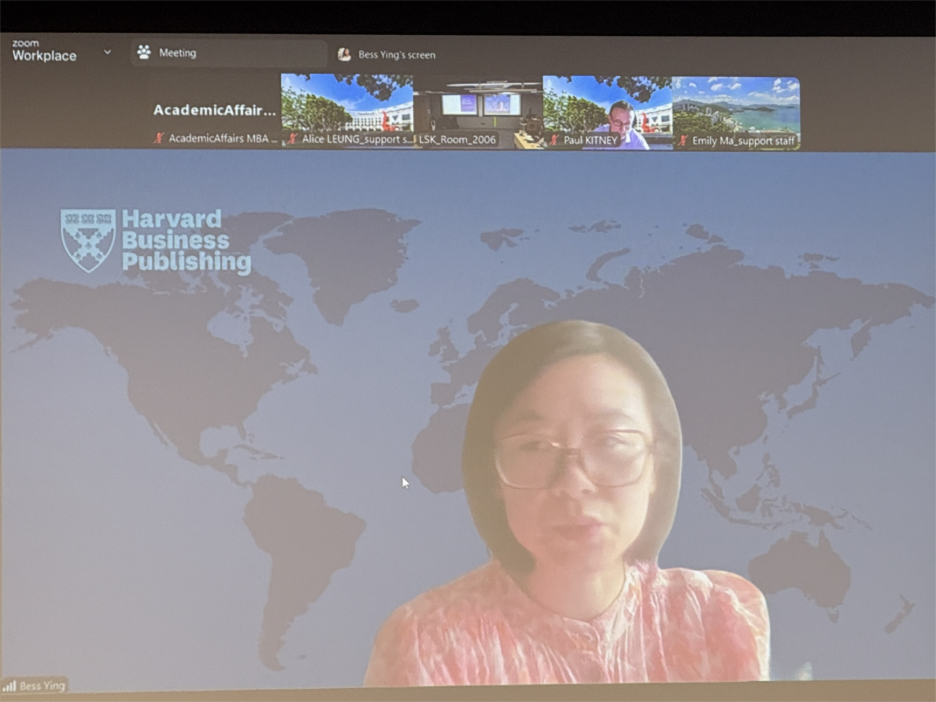
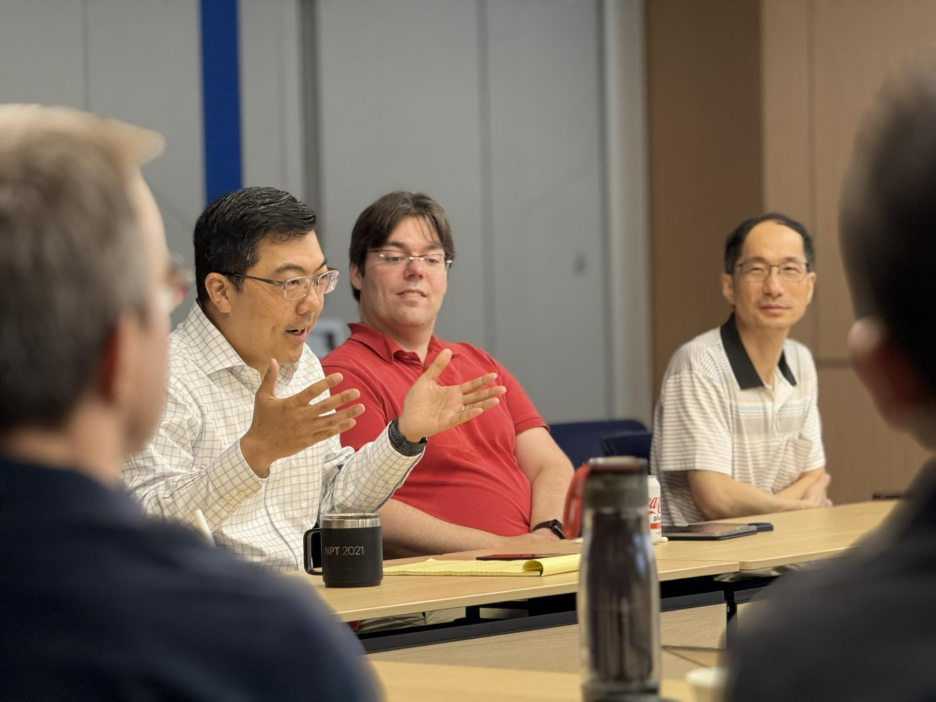
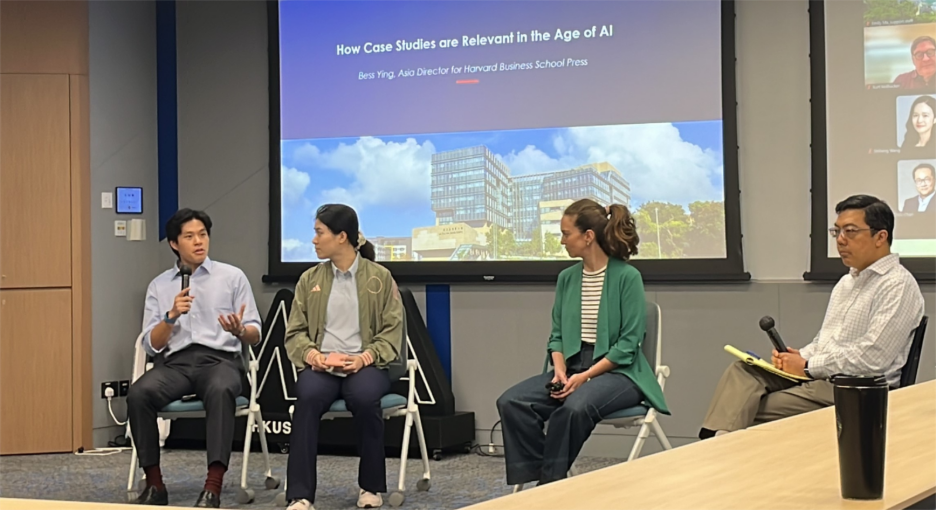
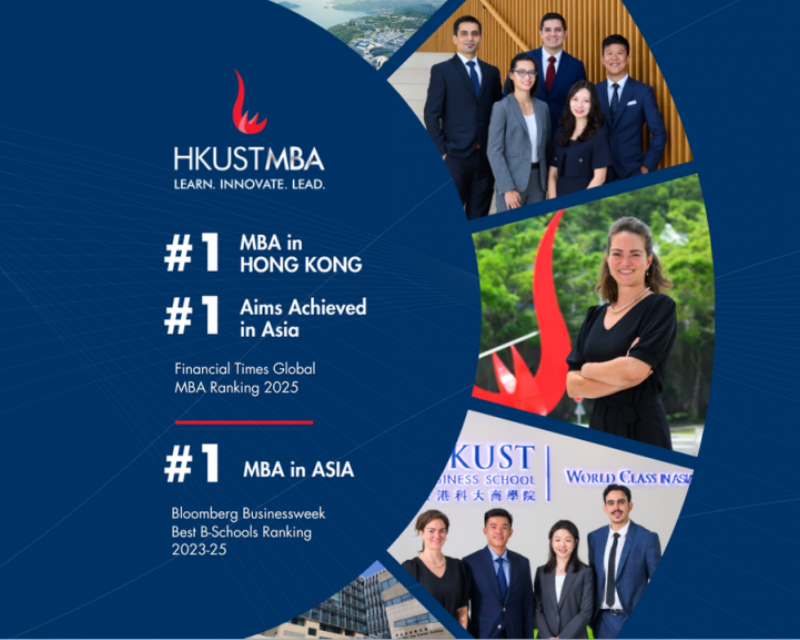
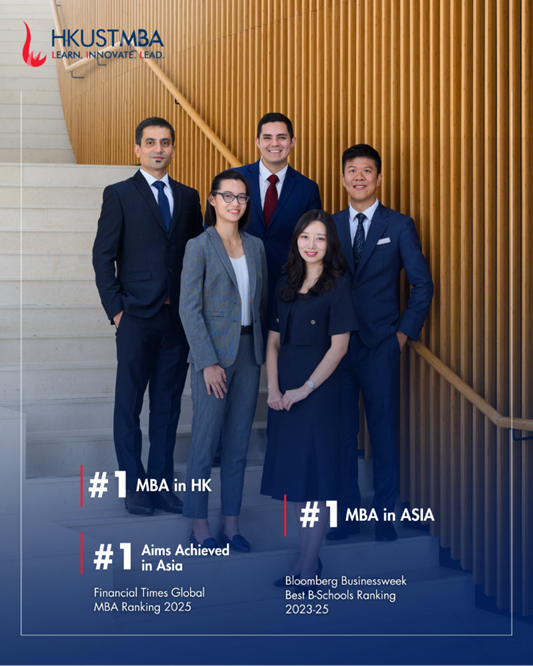
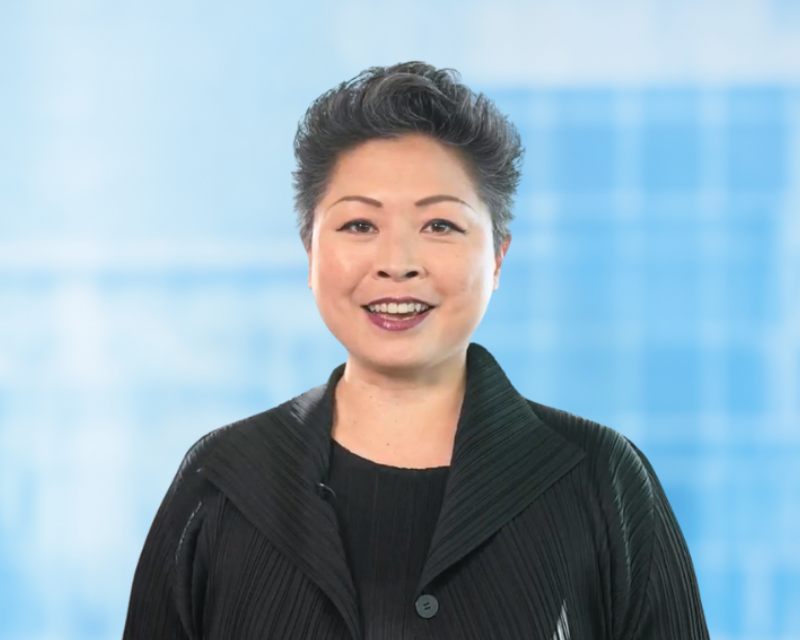
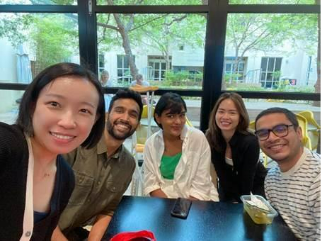
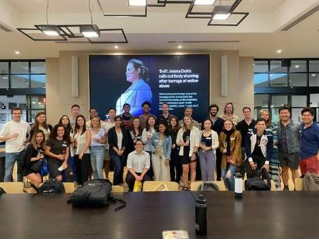
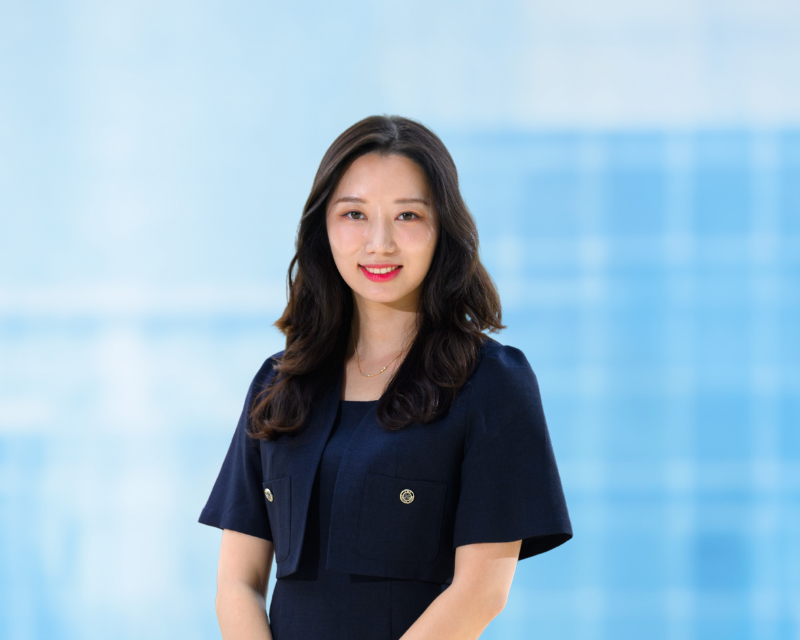


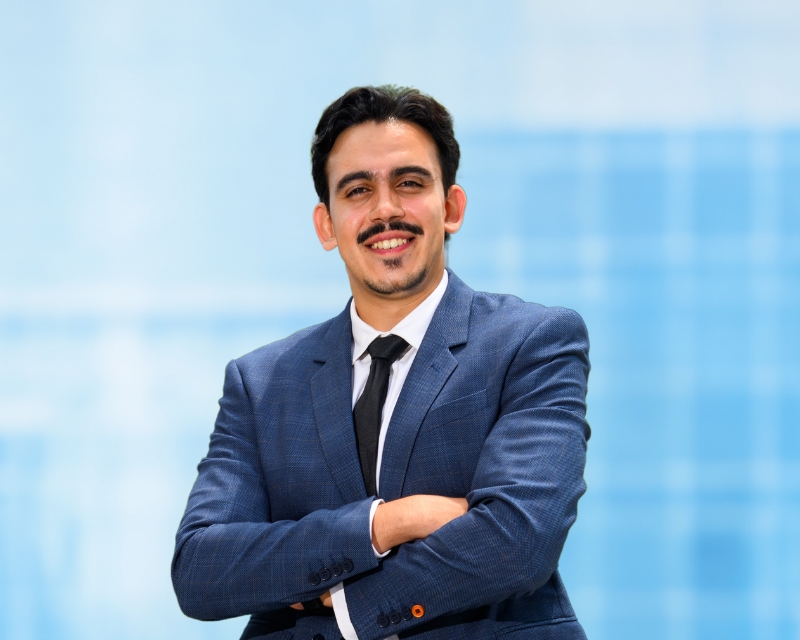
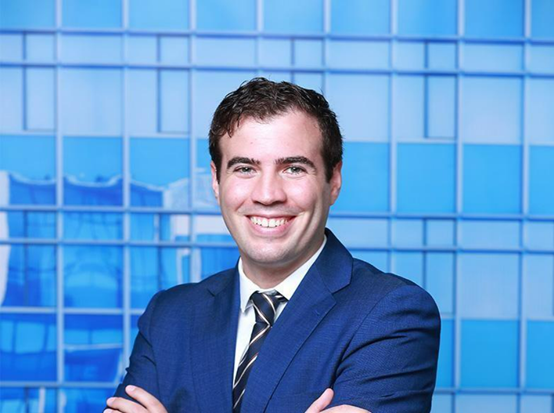
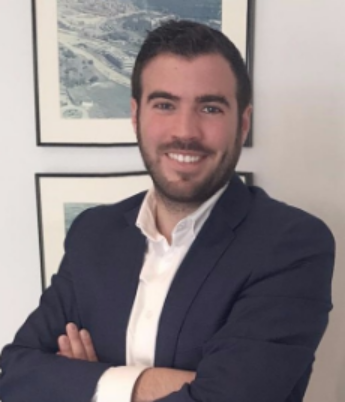
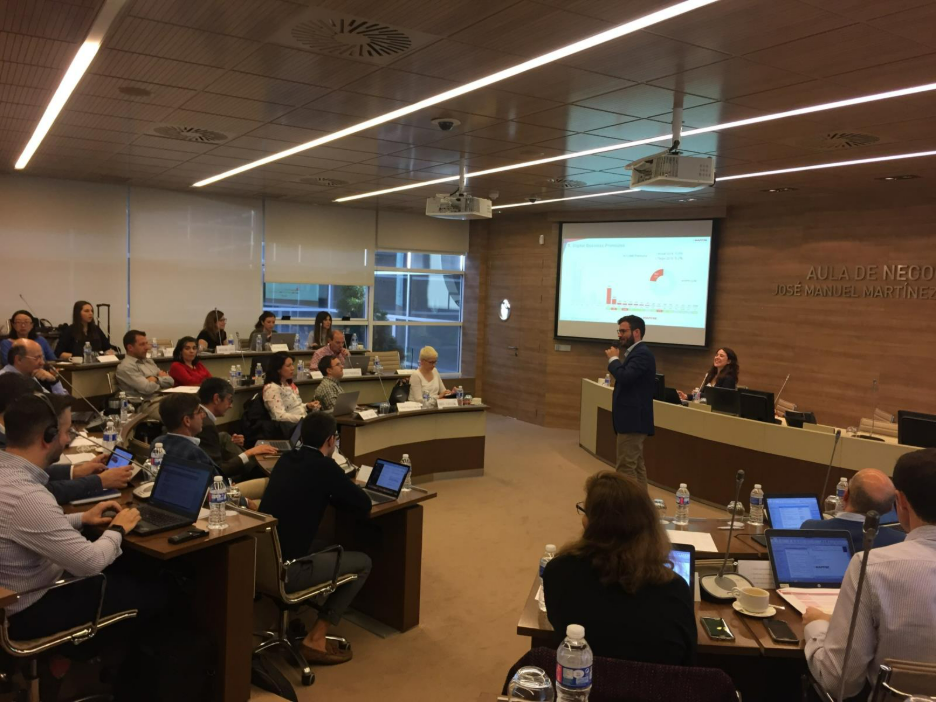
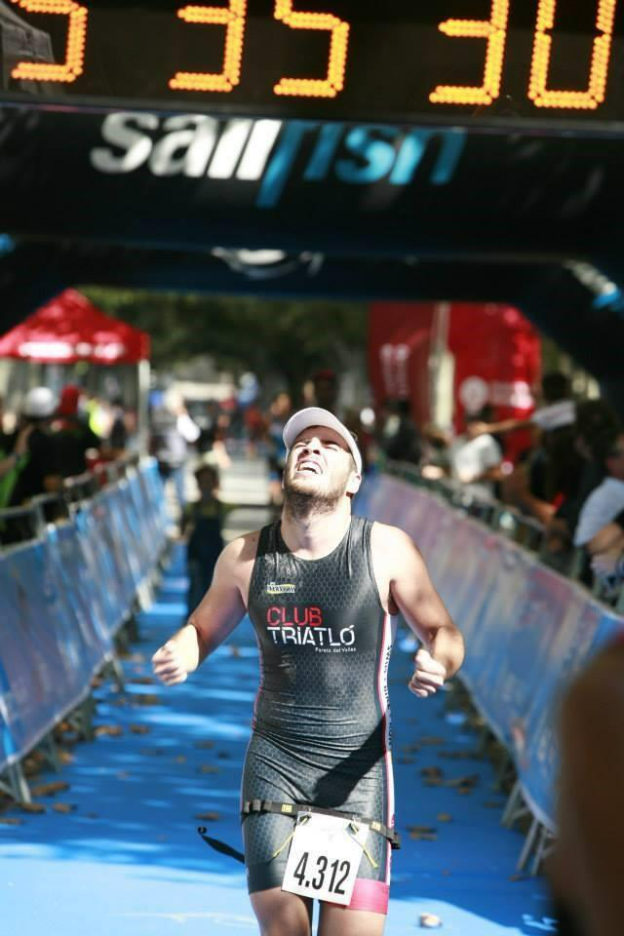
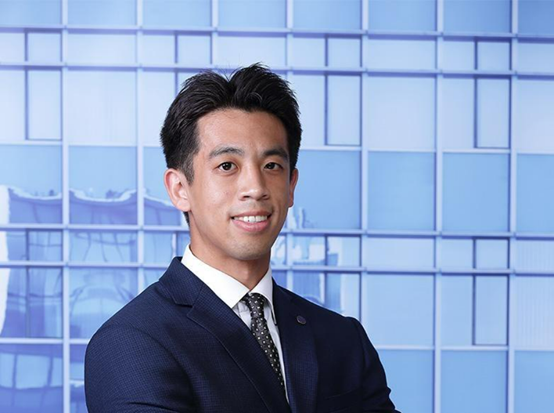
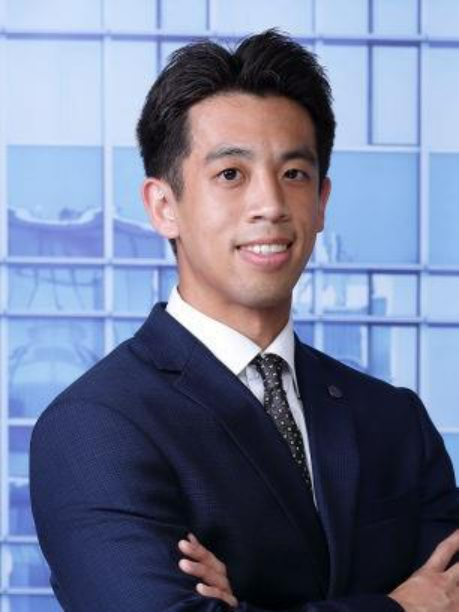
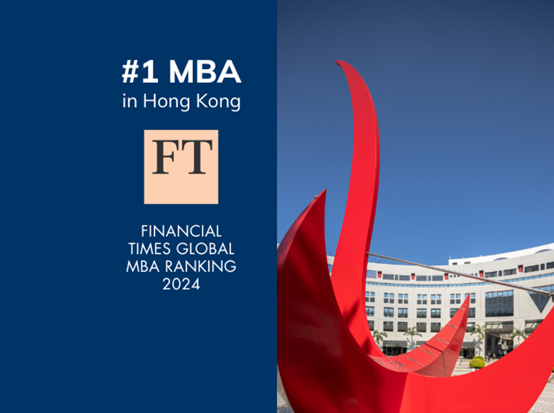

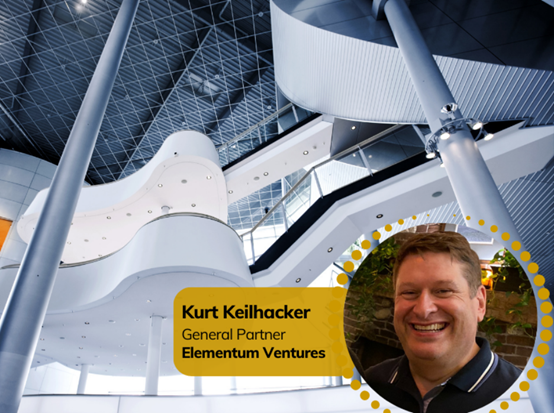
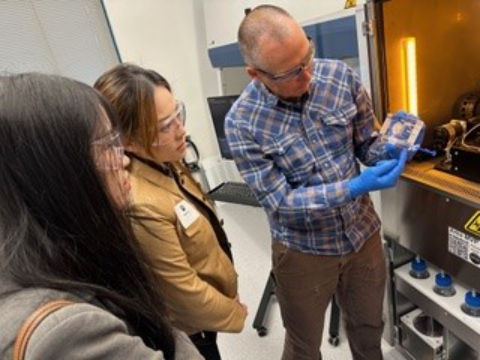
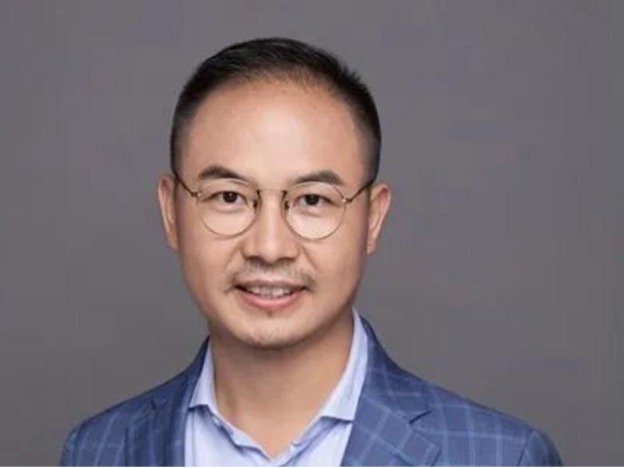
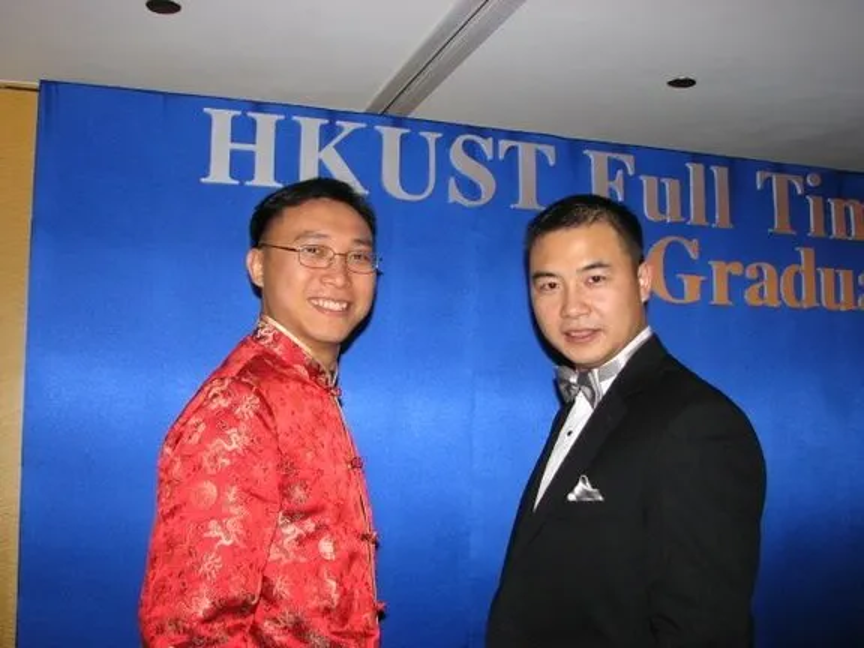
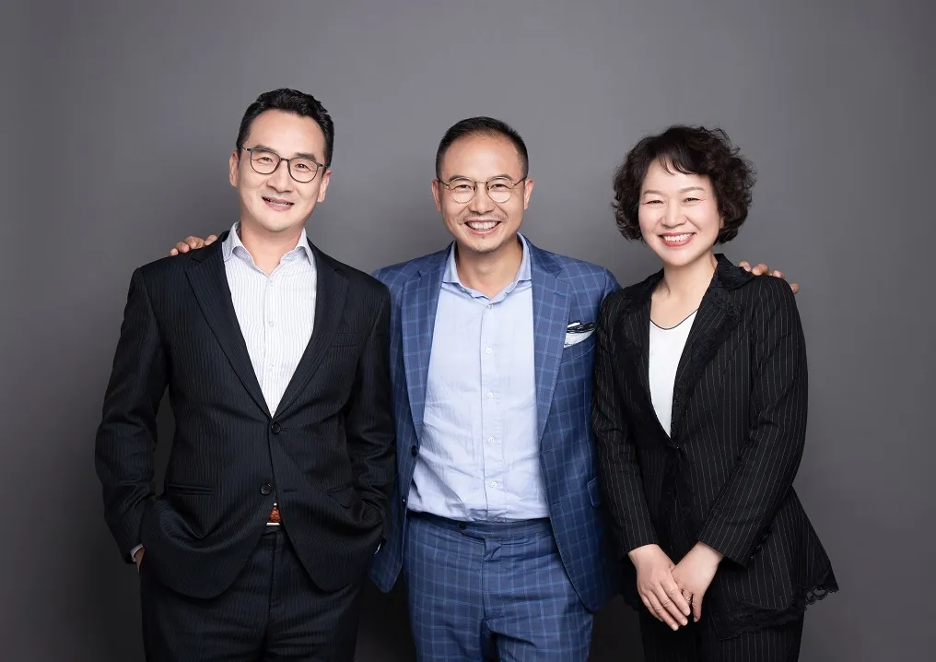
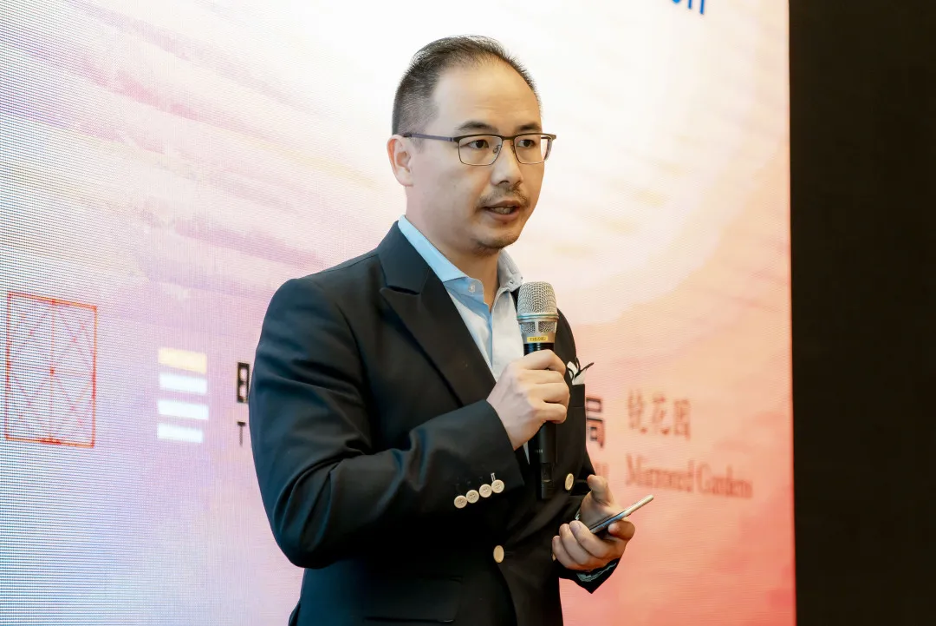
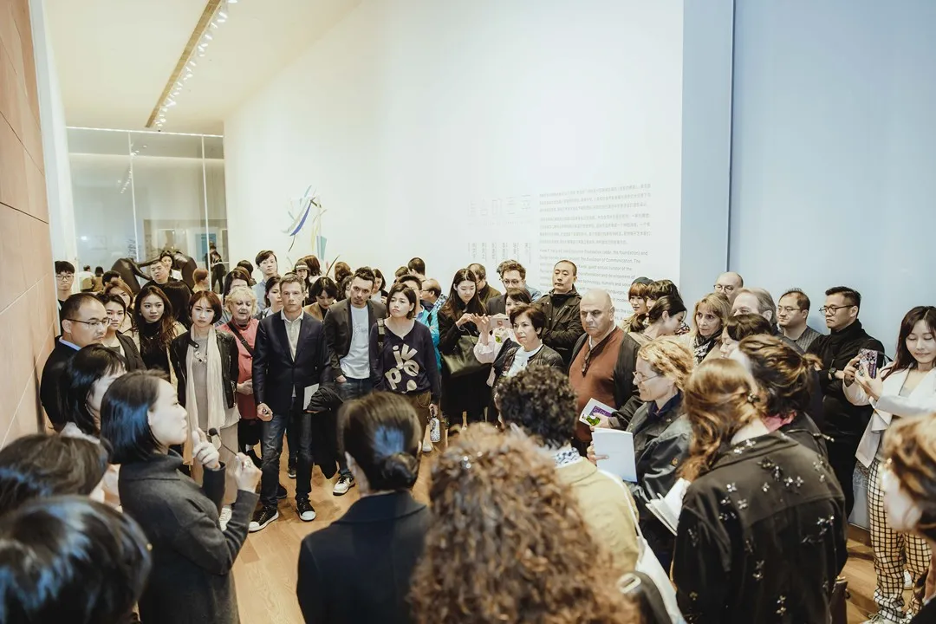
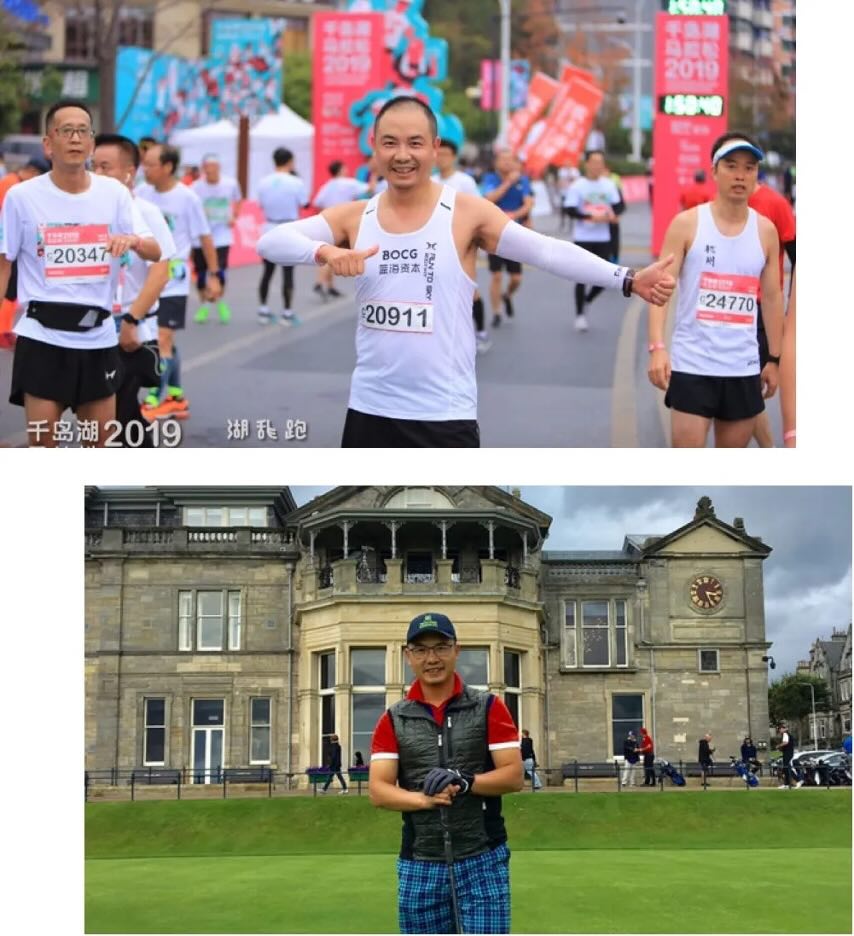
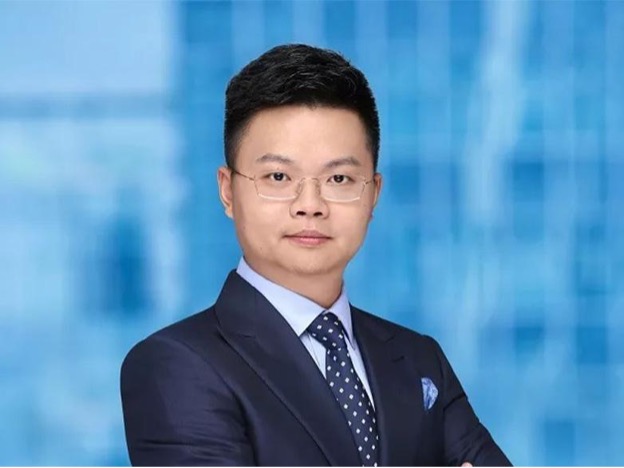
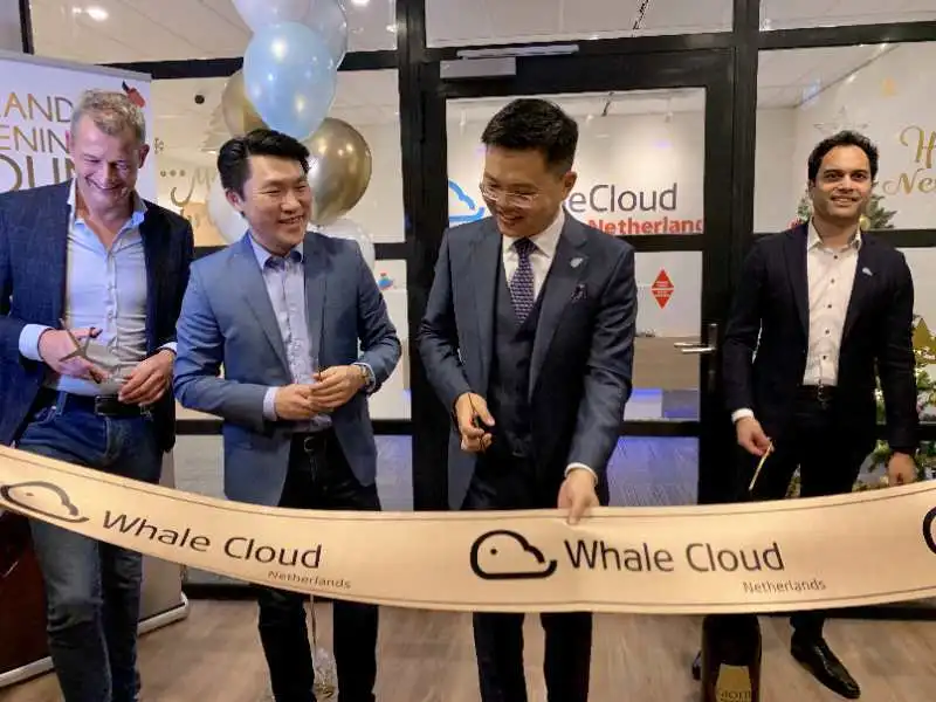
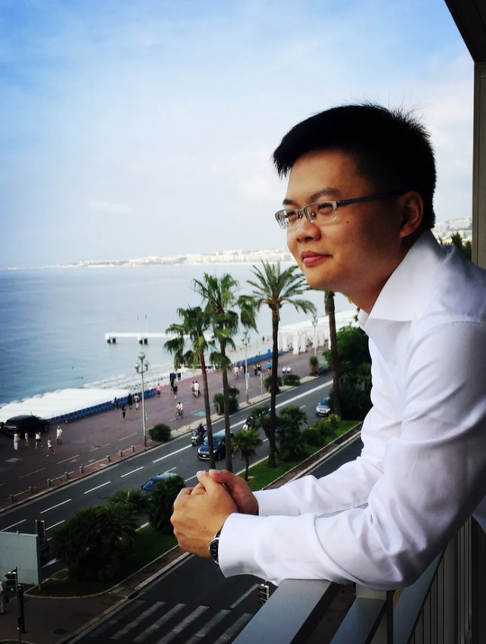
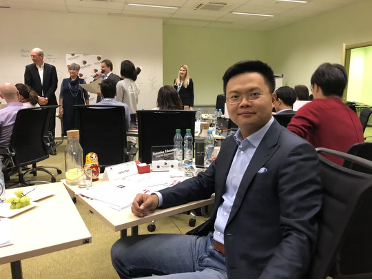
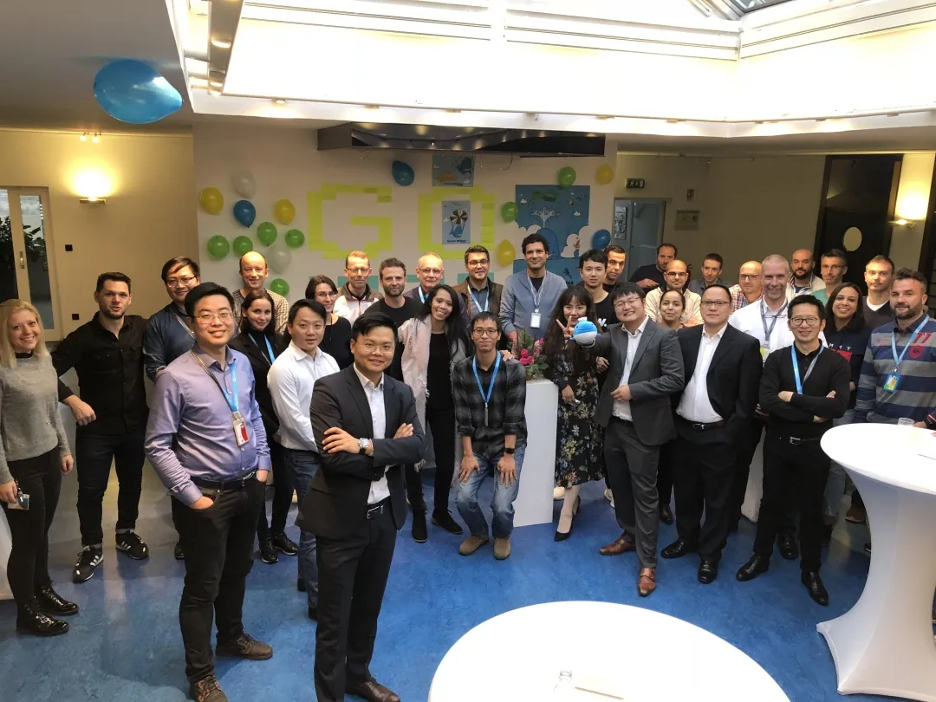 Jacky 与卢森堡客户一起庆祝公司系统上线
Jacky 与卢森堡客户一起庆祝公司系统上线
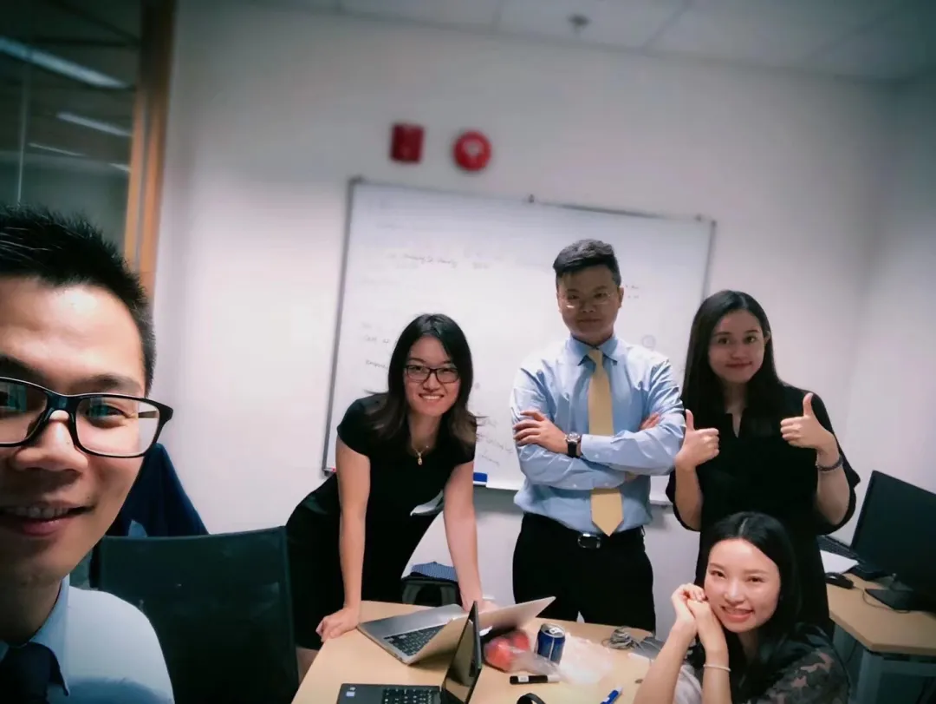
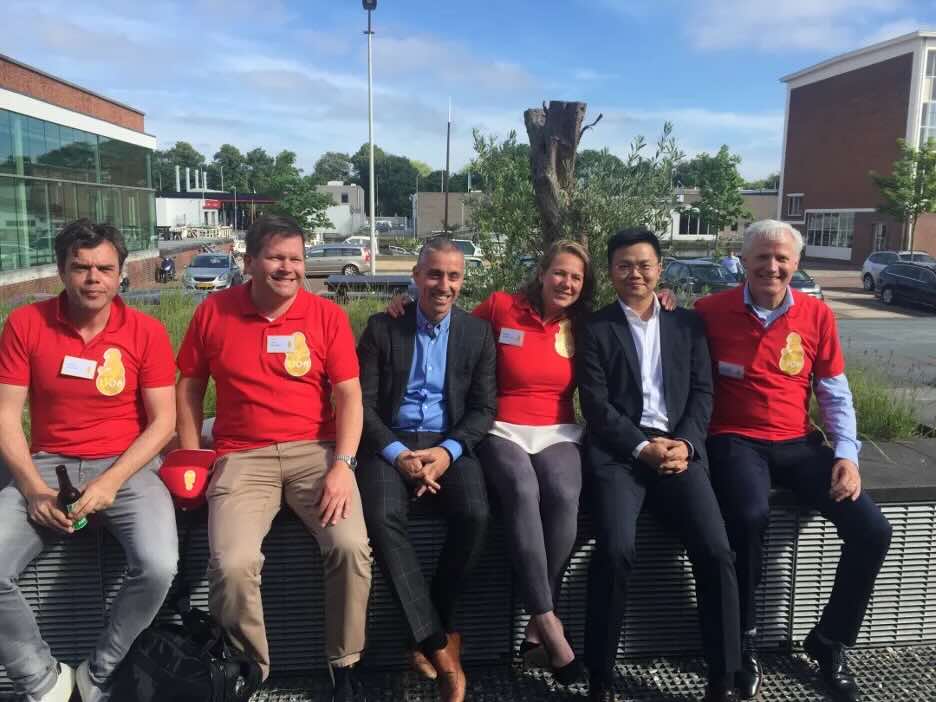
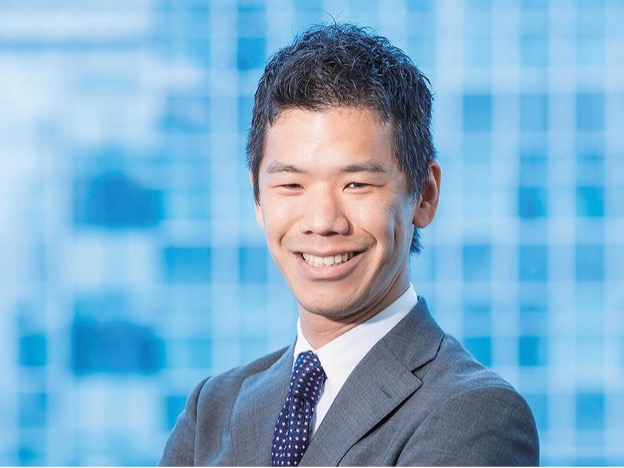
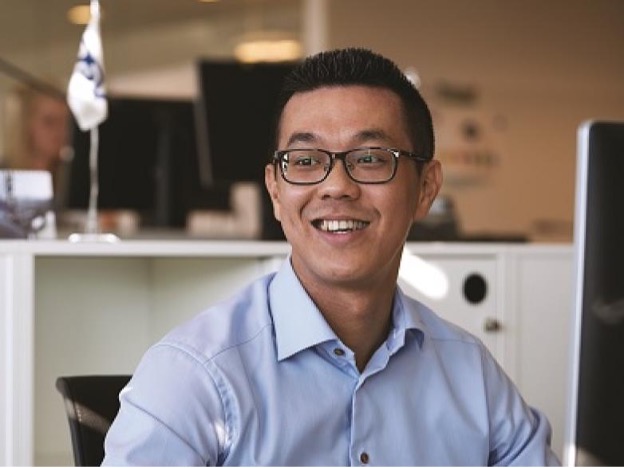
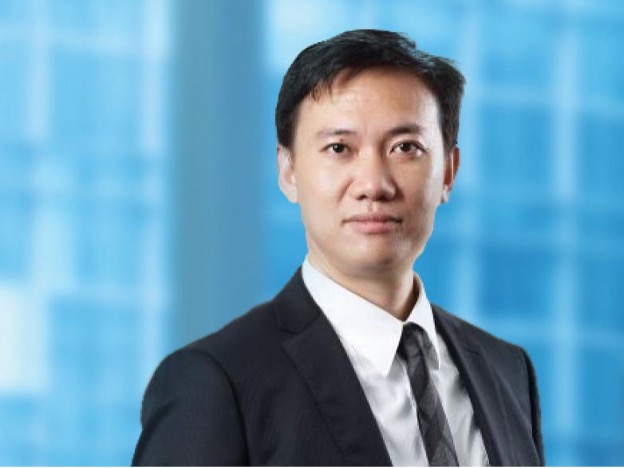
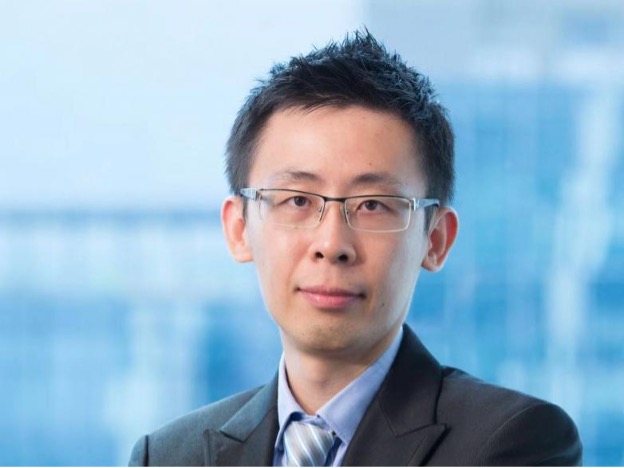
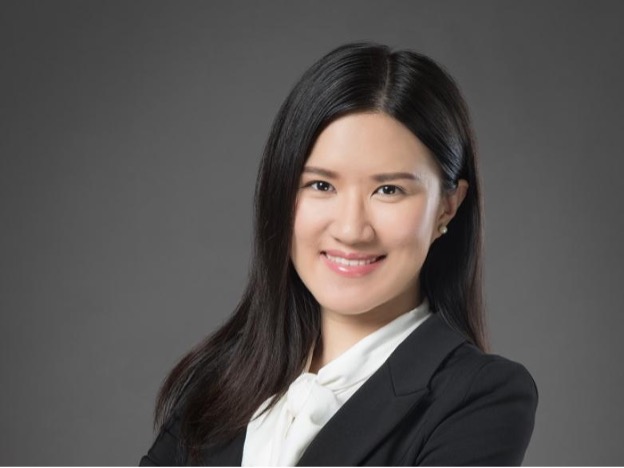
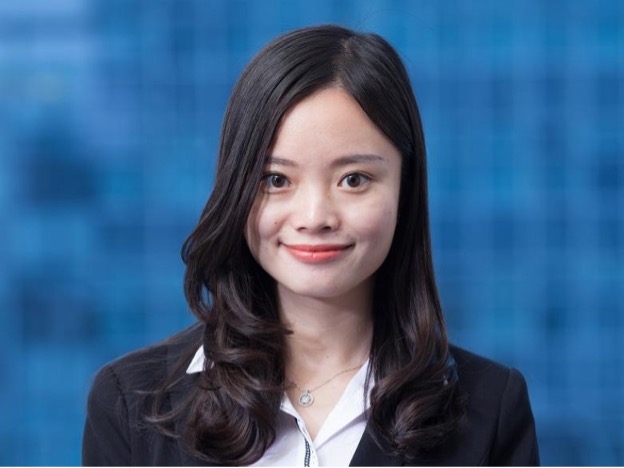
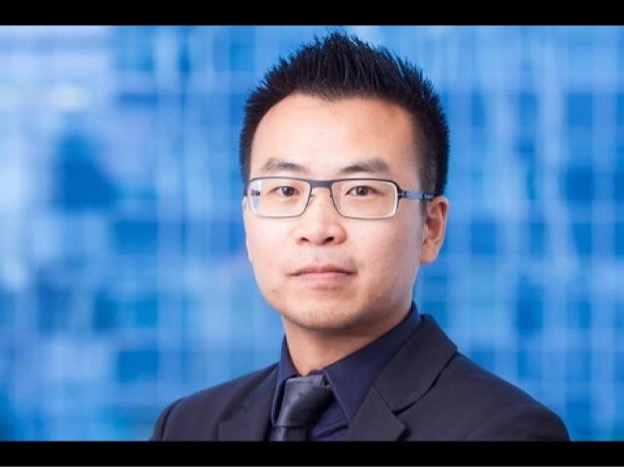
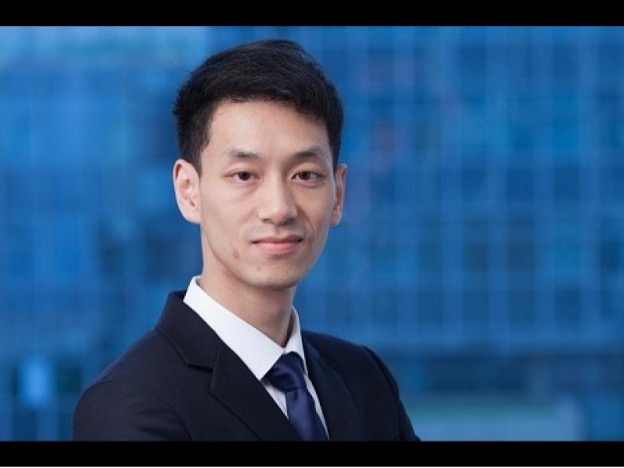
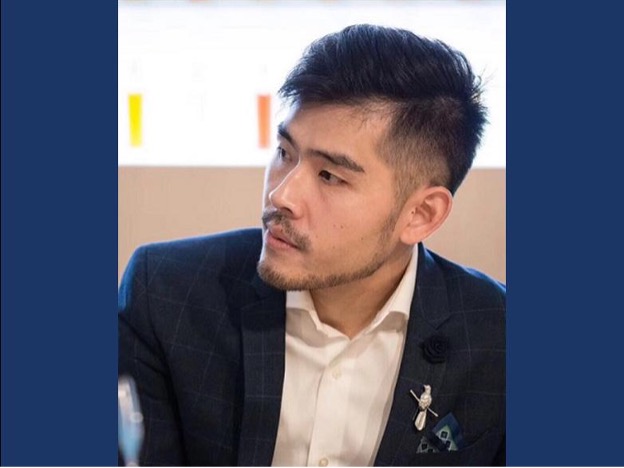

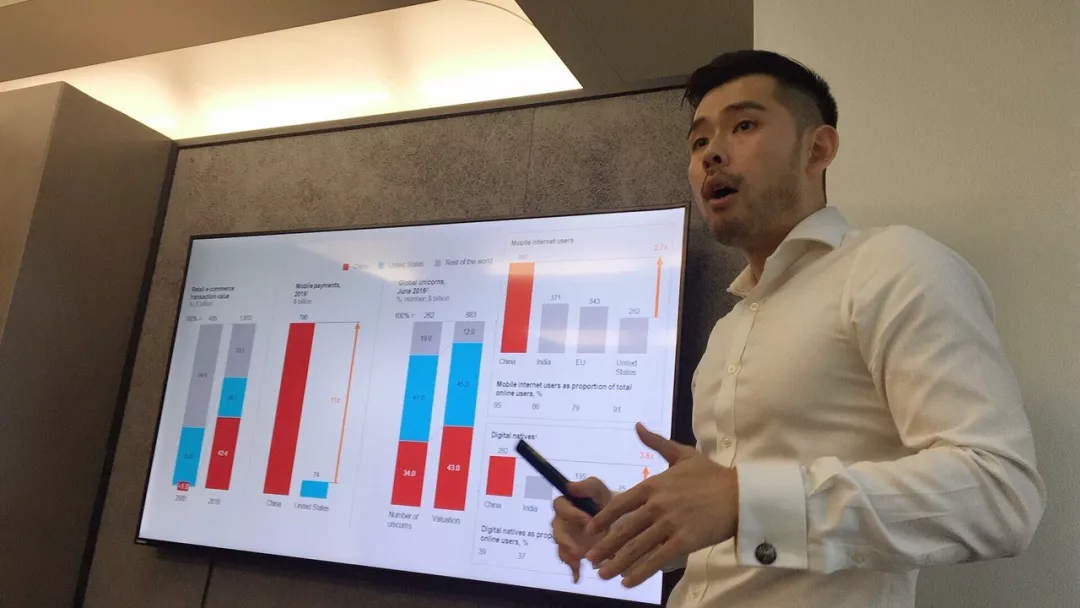
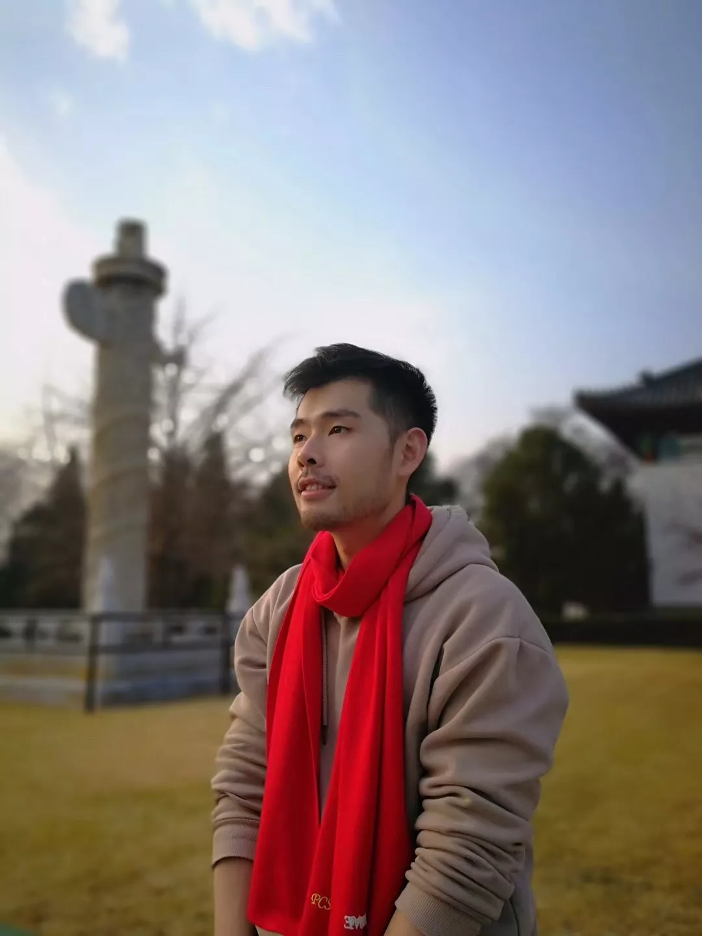
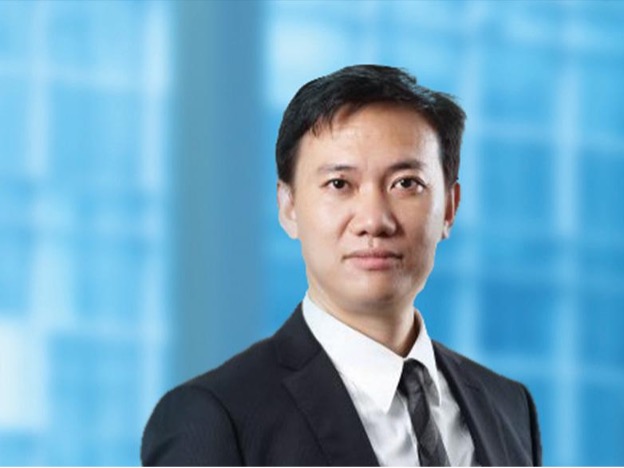
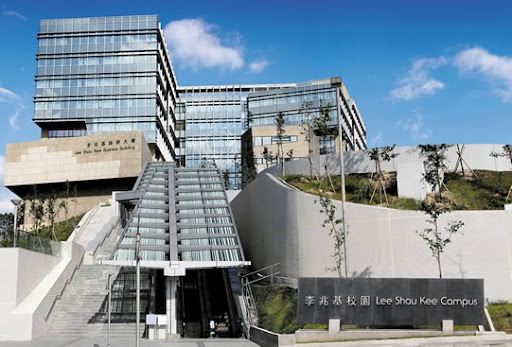
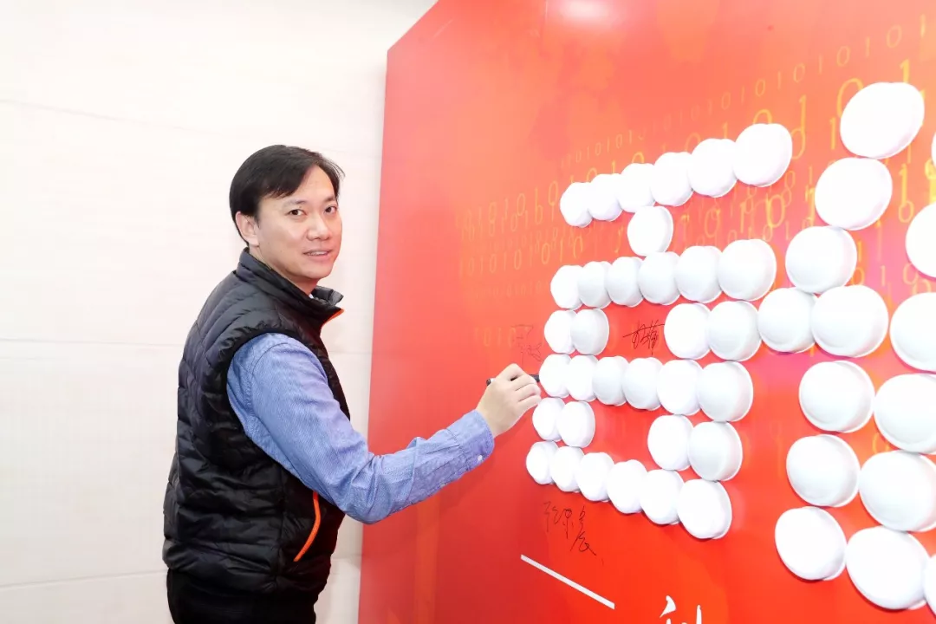
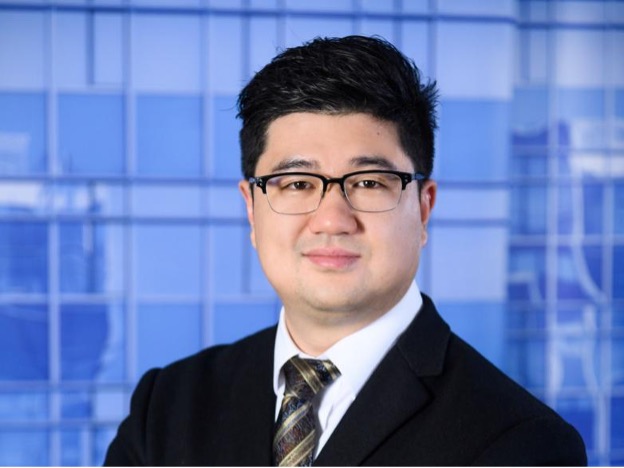

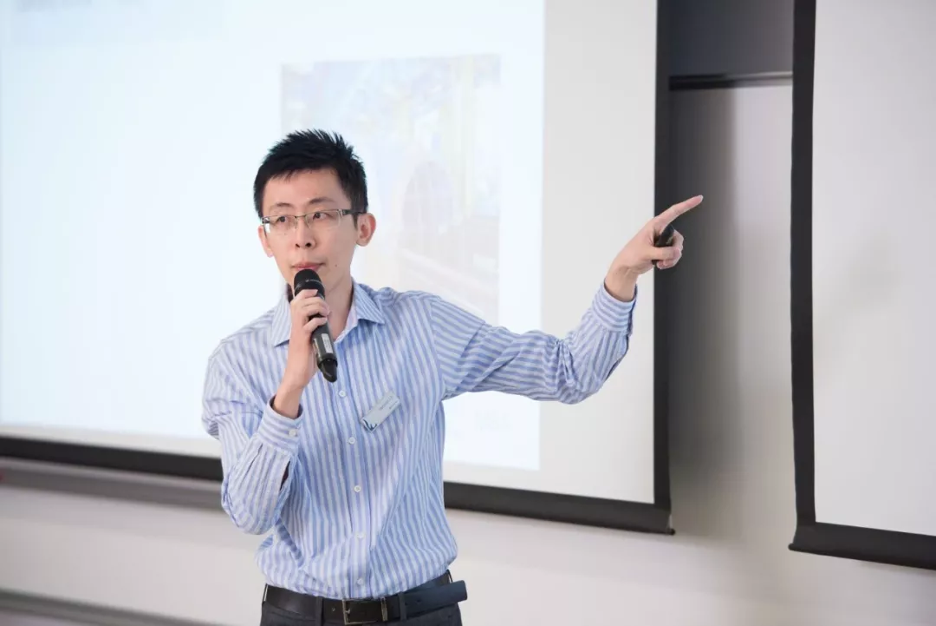
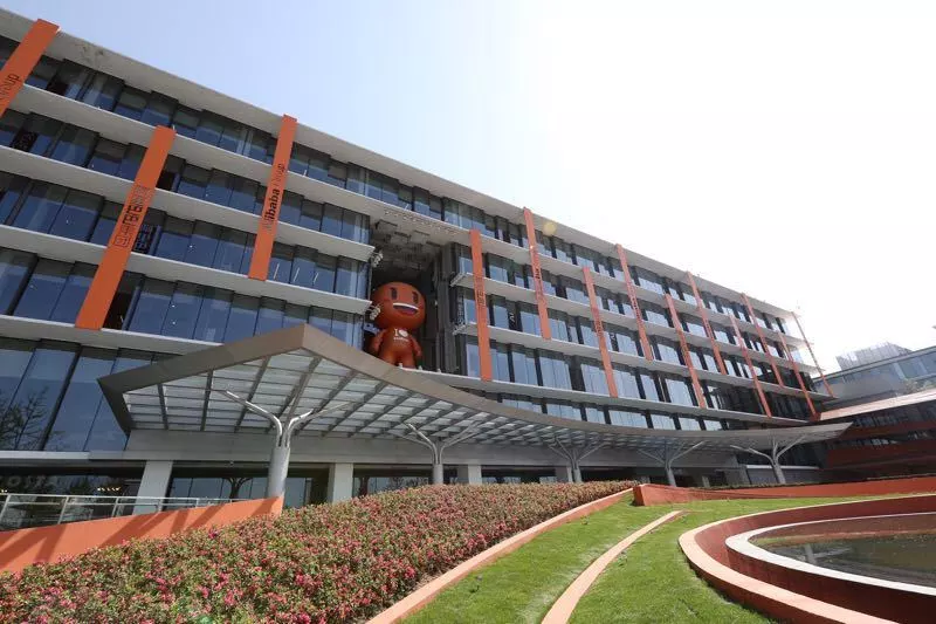

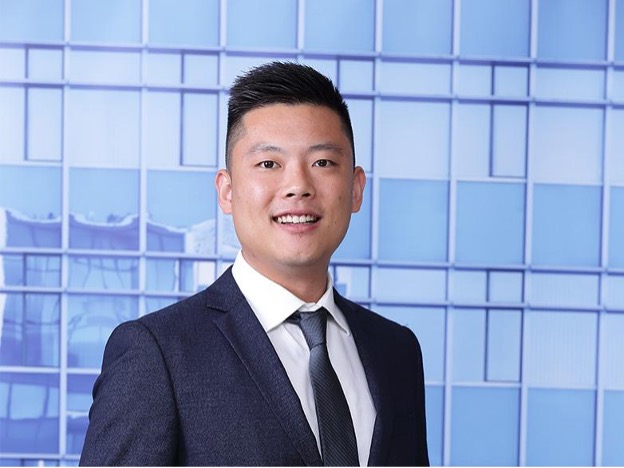

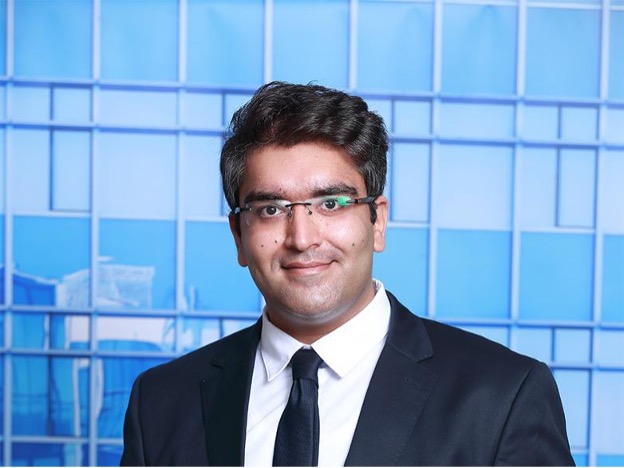
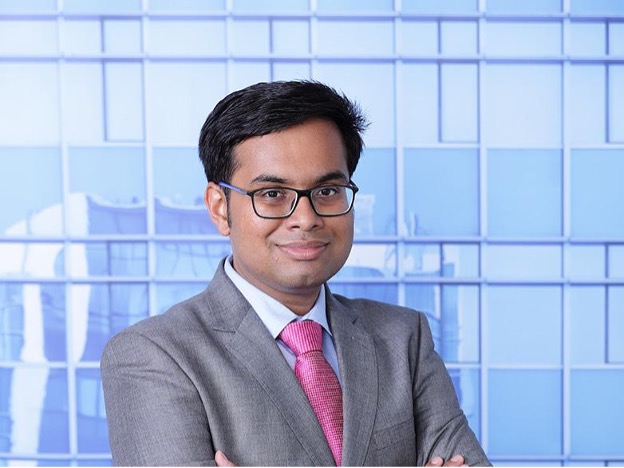
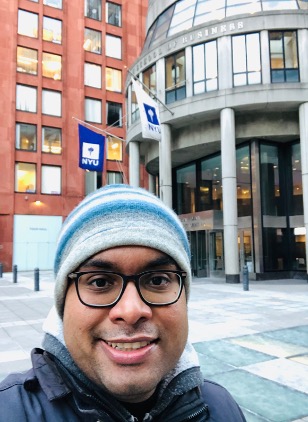 In front of the NYU Stern School of Business Henry Kaufman Management Center; the home for the MBA program.
In front of the NYU Stern School of Business Henry Kaufman Management Center; the home for the MBA program.
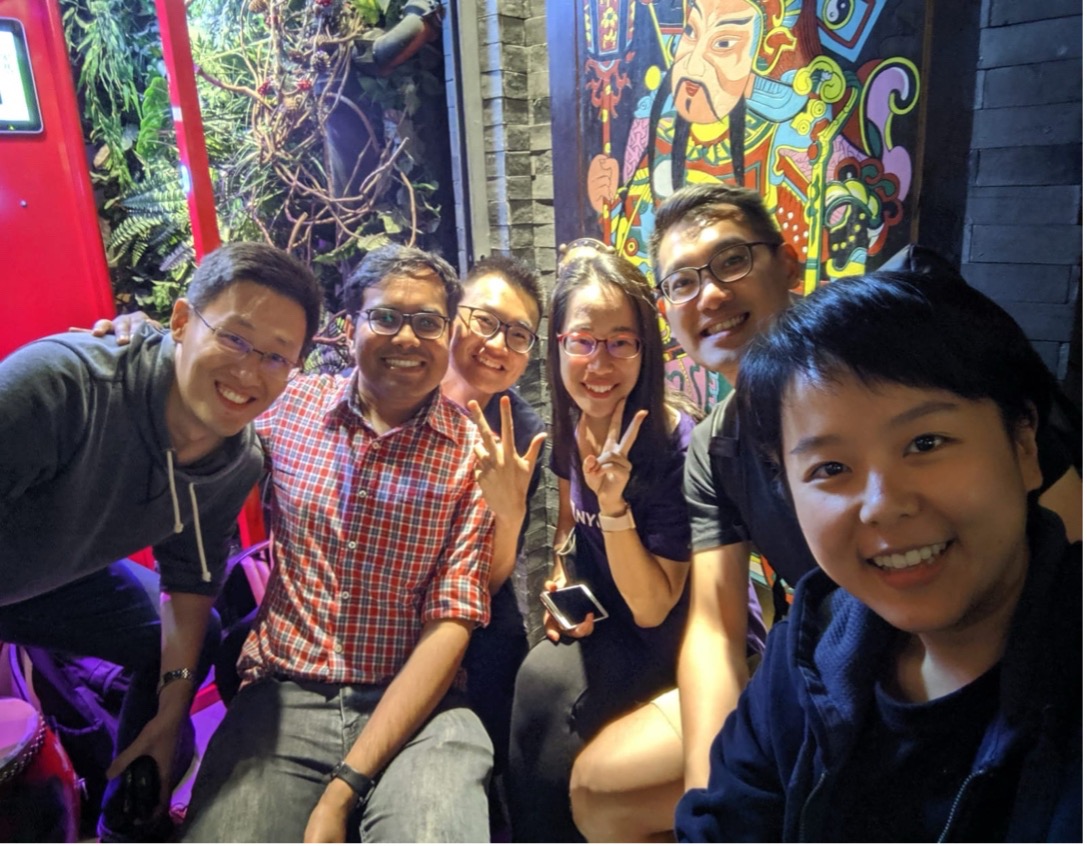 The HKUST MBA Group celebrating Mid-Autumn Festival at a Hot-Pot Restaurant in Flushing China Town. Getting to experience a new place with old friends is always a blessing!
The HKUST MBA Group celebrating Mid-Autumn Festival at a Hot-Pot Restaurant in Flushing China Town. Getting to experience a new place with old friends is always a blessing!
 Washington Square Arch – The landmark that lets you know NYU is just around the corner. Fun Fact- Built in 1889 to celebrate the centennial of President George Washington’s inauguration.
Washington Square Arch – The landmark that lets you know NYU is just around the corner. Fun Fact- Built in 1889 to celebrate the centennial of President George Washington’s inauguration.
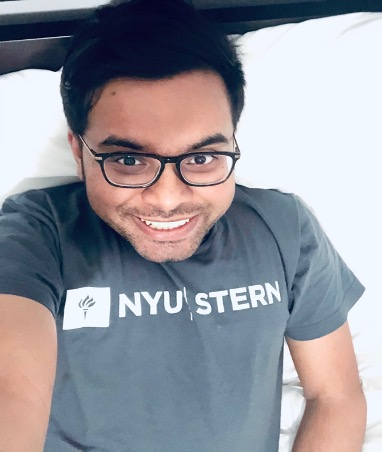 Trying to show the school spirit with a NYU Stern Tee. Random Fact- Had a lot of random chance encounters with people on the street and at the airport wearing the T-shirt. Short Lesson- Always show your school pride
Trying to show the school spirit with a NYU Stern Tee. Random Fact- Had a lot of random chance encounters with people on the street and at the airport wearing the T-shirt. Short Lesson- Always show your school pride